Spring 2024
Co-presented by: Gender Studies Programme, Gender Research Centre & Sexualities Research Programme, The Chinese University of Hong Kong
3 Apr 2024 (Wed) Mini-Conference of Thesis of MA in Gender Studies 2024 & Gender Studies RPG & MA Outstanding Thesis Award Presentation Ceremony
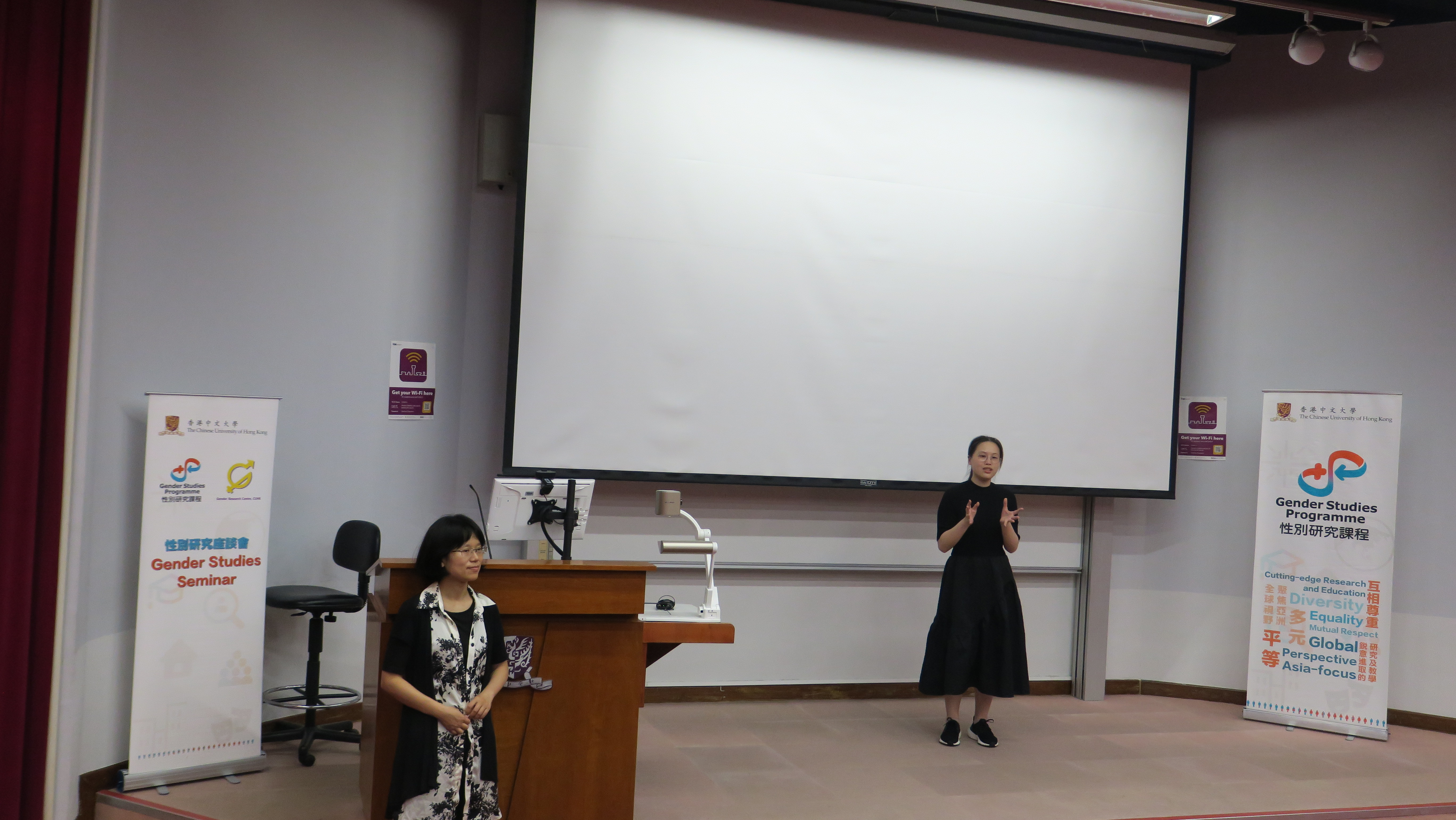 |
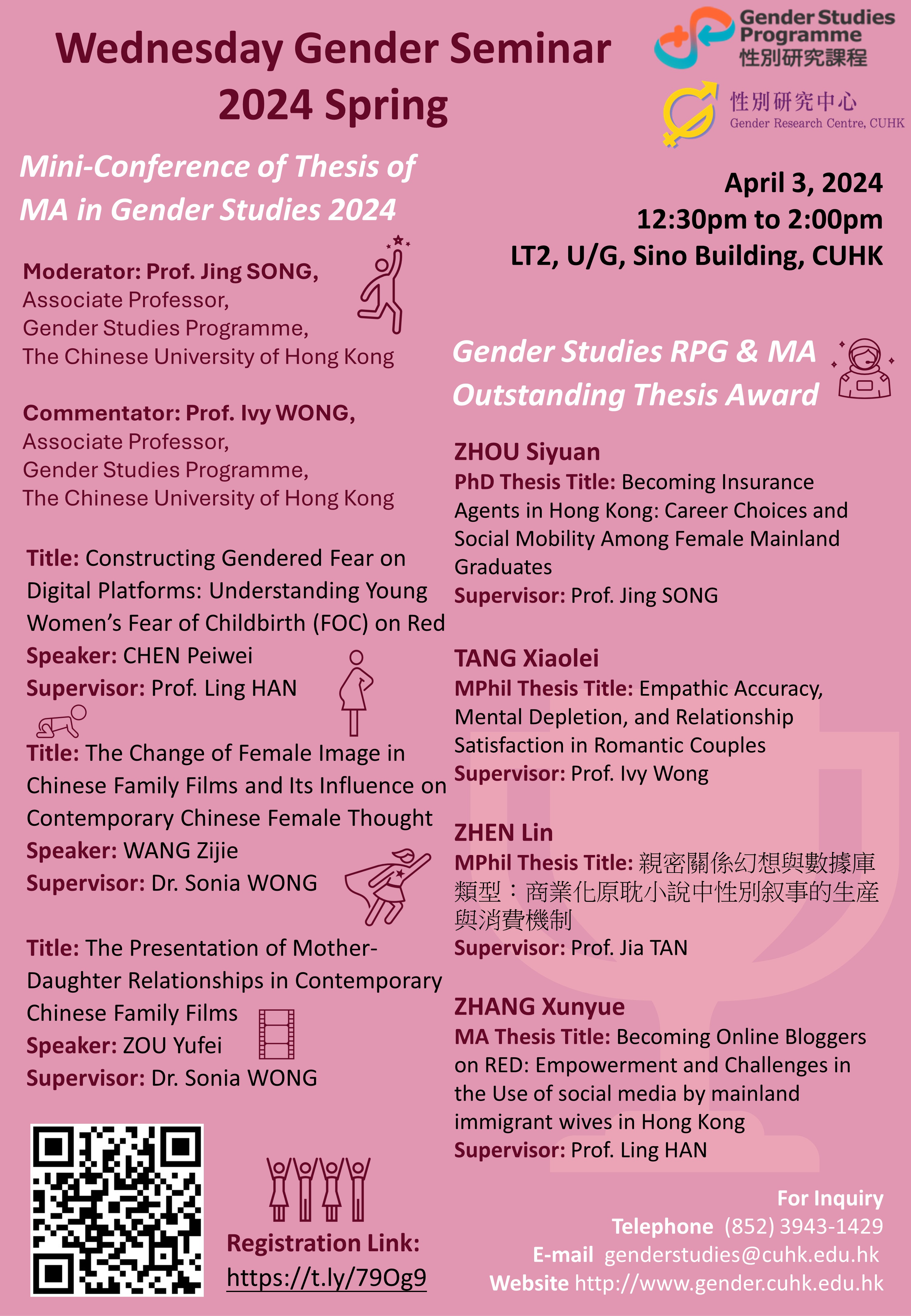 |
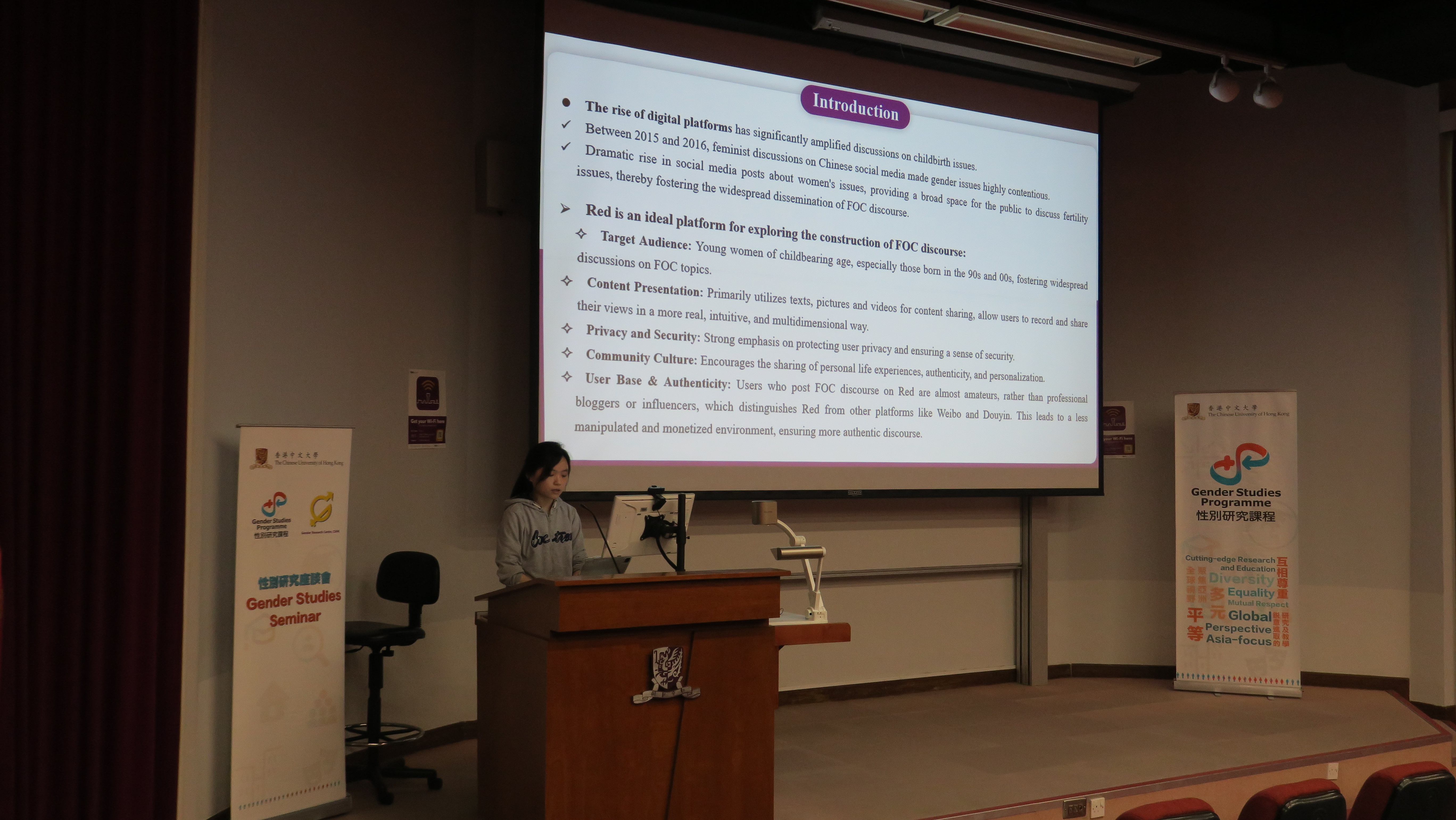 |
|
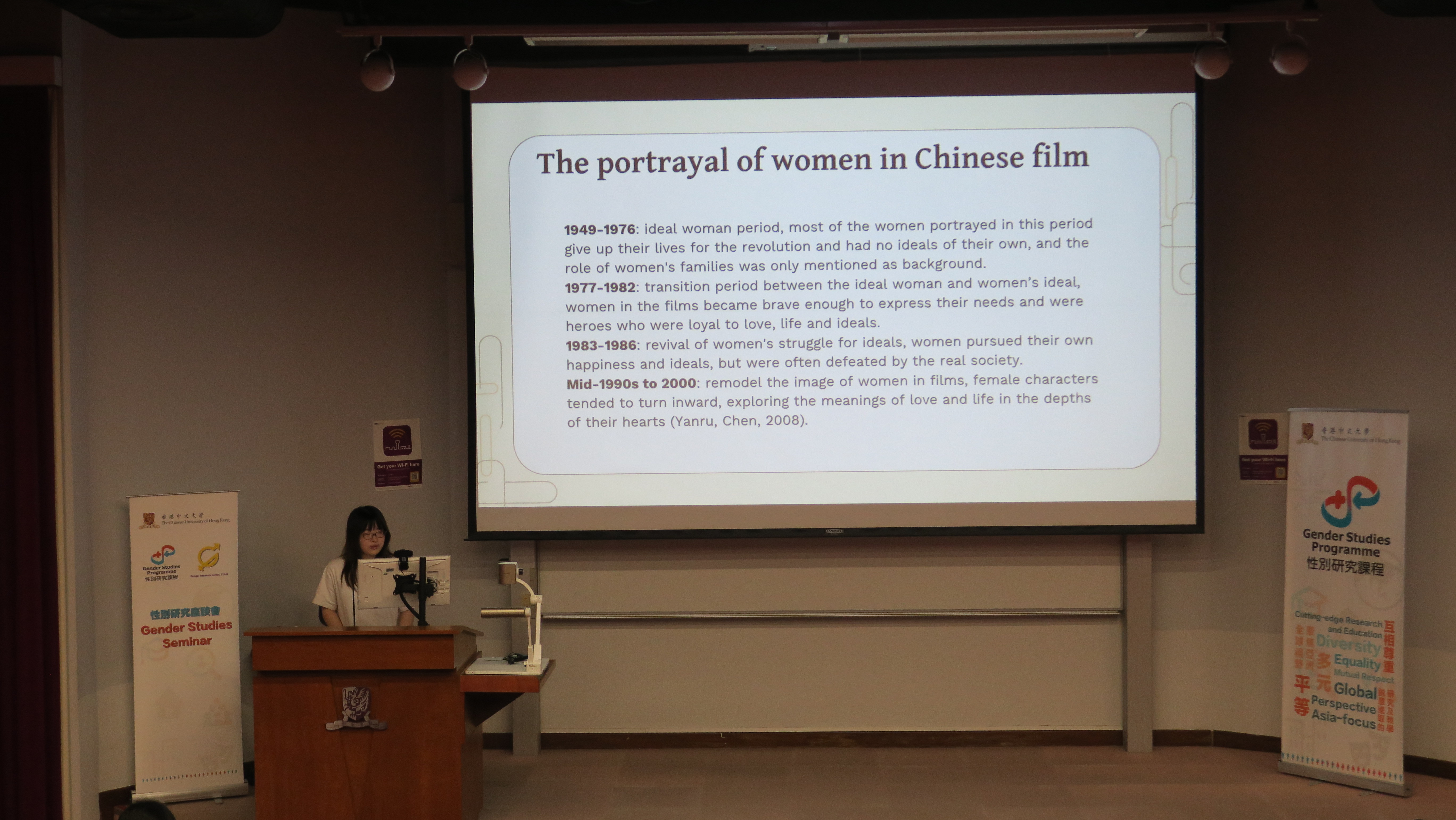 |
At first, CHEN Peiwei presented her thesis on “Constructing Gendered Fear on Digital Platforms: Understanding Young Women’s Fear of Childbirth (FOC) on Red.” FOC discourse has become prevalent among young women on digital platforms in China, often depicting childbirth as painful and terrifying. This study analyzed 187 notes on FOC discourse on Red using CDA, to explore why FOC discourse emerged as a popular topic among young women on digital platforms, as well as how Red users construct FOC discourse. Findings revealed a tension between resistance to traditional gender roles (prioritizing education and careers) and compromise (accepting traditional roles). Regardless of stance, women saw their choices as personal without challenging deeper structural issues, reflecting an internalization of neoliberal discourses. The study enriches the understanding of FOC discourse in the Chinese context and its ties to societal shifts.
Next, WANG Zijie presented her research on “The Change of Female Image in Chinese Family Films and Its Influence on Contemporary Chinese Female Thought.” This research examines how women are portrayed in contemporary Chinese family films within the context of traditional family structures. Analyzing three 21st-century Chinese family movies (“Einstein & Einstein” (2013), “Spring Tide” (2019), and “Sister” (2021)), along with conducting five in-depth interviews, the study identifies three distinct female archetypes: rebellious daughters, self-sacrificing sisters, and mothers trapped in their homes. “Einstein & Einstein” focuses on the journey of a rebellious daughter, highlighting her evolving subjectivity against patriarchal oppression. “Sister” explores the conflict of a young woman balancing personal independence with familial responsibilities. “Spring Tide” delves into the intergenerational conflicts within a family. Overall, the study underscores the strengths and limitations of contemporary Chinese family films in portraying women’s roles and experiences within family dynamics.
The third presentation was delivered by ZOU Yufei, her topic was “The Presentation of Mother-Daughter Relationships in Contemporary Chinese Family Films.” The study analyzed Chinese family films to understand the nuances of the mother-daughter dynamic in Chinese culture. Findings revealed several archetypal forms of mother-daughter relationships: “Coexistence” portrays a deep emotional bond between mother and daughter, where they rely on each other for support. “Independence” highlights the separation between the two, emphasizing the daughter’s quest for autonomy. “Domination & Resistance” reflects the prevalent power struggle between mothers and daughters. “Absence & Disorientation” depicts situations where the mother fails to fulfill her role adequately. “Abusive & Divisive” portrays a destructive relationship characterized by psychological abuse from the mother. “Dependence & Devotion” illustrates instances where the daughter assumes the caregiver role due to the mother’s weakness. “Discipline & Imitation” showcases the mother’s controlling nature shaping the daughter into a mirror image of herself. This research sheds light on the diverse nature of mother-daughter relationships in Chinese cinema, providing insights into generational differences and cultural shifts.
Written by: YU, Mengke
在本次小型学术会议上,有三位性别研究硕士生分享了她们的研究。
陈培炜研究了中国年轻女性在数字平台上关于分娩恐惧(FOC)的讨论,揭示了在社会主义向市场经济转型过程中形成的新性别动态对女性生育选择的影响。通过分析微博上的相关笔记,研究发现女性表达了对婚姻、分娩、家庭责任和职业发展等多方面的担忧。未婚女性倾向于利用议价能力拒绝传统生育负担,追求独立;而已婚女性则可能在面对冲突时合理化生育问题,以满足传统性别角色。研究指出,无论抵抗还是妥协,女性通常将决定视为个人选择,而非挑战结构性问题。此外,研究强调了数字平台在构建独立个体身份和挑战传统生育叙事中的作用,为理解年轻女性在数字时代的自我认同提供了新视角。
王子婕研究了中国家庭电影中女性角色的演变及其对女性观众思想的影响。从1980年代前的革命理想化女性形象,到21世纪表达现代焦虑和存在困境的家庭电影,女性角色逐渐展现出更多的个性和独立性。通过《狗十三》等电影案例分析,研究指出女性意识的觉醒和对传统家庭规则的反抗。同时,对比了两代母亲形象,展示了女性在追求个人幸福和家庭责任之间的平衡探索。这些变化反映了中国女性地位的提升和性别平等意识的增强,对当代女性的思想和生活选择产生了积极影响。
邹毓菲探讨了中国家庭电影中母女关系的表现形式及其对女性意识的影响。随着女性导演对母性主题的深入挖掘,电影开始展现母女间的真实情感和复杂关系,不再将母亲形象简单神化。通过分析《柔情史》、《喜福会》等电影,研究指出母女关系在家庭和社会中的重要性,并从多个角度探讨了母女间的共存、从属、依赖、纪律等动态。这些作品揭示了女性在父权文化中的困境和挑战,同时也展现了女性对自我认同和独立性的探索。通过这些电影,我们可以看到女性导演如何通过母女关系来反映和质疑传统家庭结构,以及如何在女性主义电影制作和理论发展中找到新的表达方式。
Written by: ZHU, Huiying
總體來看,三位演講者的研究內容都以媒體傳播為載體分析當代女性聚焦的性別議題。
陳培煒同學關注到小紅書上年輕女性對生育的恐懼,這是近年小紅書平臺上被女性熱議的話題。根據小紅書用戶畫像統計,小紅書的女性用戶佔比高達80%,並具有年輕化、高學歷、對新鮮事物接受程度高、追求生活品質等特點。在小紅書上,女性可以談論生育恐懼而不會感到困惑。陳同學觀察了未婚女性和已婚女性對生育問題的反抗與妥協,在渴望擺脫傳統性別負擔的同時,女性通過代孕、收養、僱傭保姆等方式進行妥協,這種妥協或抵制的選擇本質上是一種戰略,旨在最大限度地提高個人利益,並最大限度地減少當前社會結構中的潛在傷害和風險,而不是挑戰這些結構性問題。在生育問題上獲得真正的自主權結局權,更重要的是挑戰現有的性別結構與性別規範,小紅書等數字媒體平臺正有效推動著這一進程。
王子潔同學研究了中國家庭電影中女性形象的變化,通過對不同年代中國家庭電影中女性形象演變的分析可以看到中國女性形象在影視作品中的重塑與蛻變。女性不再頻繁以家庭中的某個角色出現,而是成為獨立的個體去追求愛情、理想與事業等。但父權制仍舊籠罩並影響著女性熒幕角色的呈現,如《狗十三》中熱愛物理的少女李玩,她將小狗愛因斯坦視為精神寄託,但作為不被重視的女兒,她在失去愛犬後只能選擇妥協,父親和繼母把愛給了弟弟,她的乖巧懂事要通過服從男性家長的管教來體現,這樣的女性角色的經歷令觀眾感到窒息。
鄒毓菲同學通過對17部中國母女關係為敘事線索的電影的觀察研究,將影視作品中的母女關係分為上級、下級、平等和無關聯的四種關係,基本涵蓋了當代中國社會常見的母女相處模式。其中提到《春潮》對惡母形象的描述,也像是對主流話語敘事的一次反抗。它用殘忍的筆觸,解構了主流話語中那個代表著至美至善的母親形象。這對頌揚母愛的傳統是一次次大膽的冒犯。事實上,一旦一種現象若成為不可解構的對象,那麼它就不可避免地成為僵化的存在。
Written by: ZHAO, Kaiyu
In this week's Wednesday Gender Seminar, we have a mini-conference of the MA thesis in Gender Studies 2024 and have the Gender Studies RPG&MA Outstanding Thesis Award Presentation Ceremony. What impresses me most is MA student Peiwei Chen's thesis topic, Constructing Gendered Fear on Digital Platforms: Understanding Young Women's Fear of Childbirth (FOC) on Red. In Chen's research, she introduces the Fear of Childbirth (FOC) discourse, having become a popular topic among young women on Chinese digital platforms where childbirth is often described as a painful and terrifying experience. She explores the new gender dynamics that are formed under the intertwined influence of the state, market, and traditions as China transitions from a socialist to a market economy. Chen tries to answer the question of "Why does FOC discourse emerge as a popular topic among young women on digital platforms? Empirically, how do Red users construct FOC discourse?" The research uses Python to grab the notes under the topic "#生育恐懼 #恐育 #恐生恐育 #恐生 #恐孕 #生娃恐懼 #不敢生孩子“ in Red from September 2021 to September 2023. According to the analysis of statistics, Chen finds that digital platforms offer women a venue to construct themselves as independent individuals despite real-life compromises on childbirth burdens. The widespread engagement with FOC discourse on social media platforms states young women's aspirations to challenge traditional gender norms and assert their autonomy concerning childbirth decisions. Red, as a general and public digital platform, provides a critical platform with young women to share their worries, complaints, and fears about the unknown knowledge of childbirth and the struggle of shouldering the so-called moral and social responsibilities of being a mother and forming a family. Through Chen's research and findings, I find that most of the fear of childbirth in China is because of the lack of sex education, mothering guidance, and responsible social protection welfare for mothers and babies. Young women always find childbirth is like a trap, tricking women into being locked in the cage of gender stereotypes and patriarchal heterosexual society. Being influenced by Western feminism, independent women have become the ideal figures of young Chinese women. The conflict of culture and ideology in feminism and childbirth freedom, young women regard childbirth as the opposite and negative symbol of gender bias and not being feminist. Therefore, young women today hold an extremely negative attitude towards childbirth and marriage and are entirely against women having the right to childbirth. With Chen's research, she tries to mitigate young women's anxiety and fear of childbirth and embrace the unique right and choice of being a mother instead of disgusting the natural biographic symptoms of being a female. From my perspective, I sincerely hope that Chen's research can help provide a more general and neutral aspect of gender rights and gender imbalance and offer readers ways to reach a neutral step between being a feminist and also accepting the physical features of being a female.
Moreover, by unveiling the truth and image of the messy discussion on FOC in Red, I hope departments can show concern about sex education in school and even in public to help people know more about sex knowledge and together try to protect gender rights. Also, it hopefully can remind the government to complete the law and regulations on childbirth and parenting mothers and suggests companies reach equality in the workplace by offering women pregnancy leaves and reducing discrimination against married or mother women. There are a lot of steps we have to take to achieve gender equality in mothering, childcare, marriage, work, education, and every social situation with different genders.
Written by: ZHANG, Yingzi
27 Mar 2024 (Wed) Enacting Mundanity: How Digital Technologies Shape Gendered Transnational Eldercare
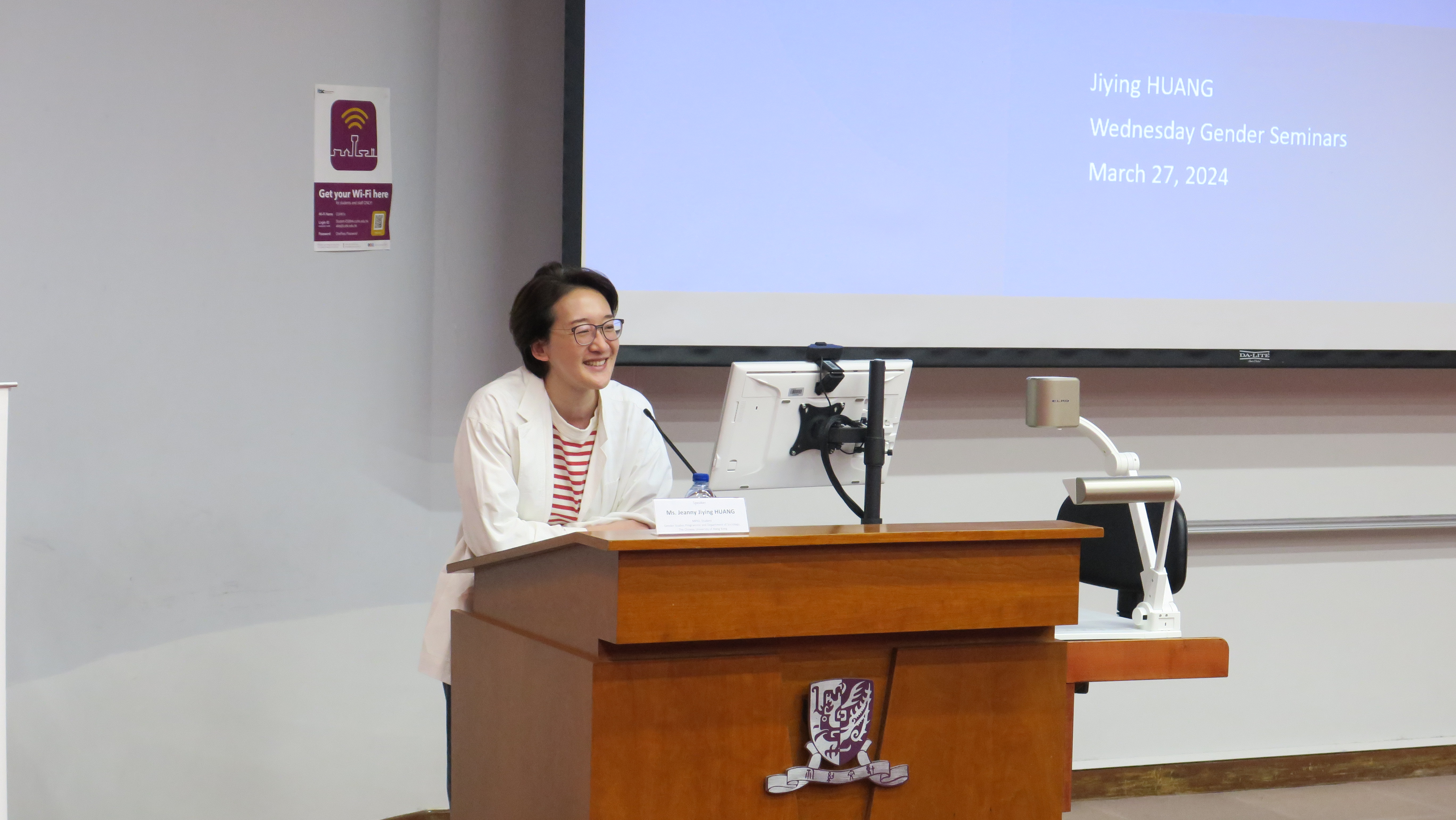 |
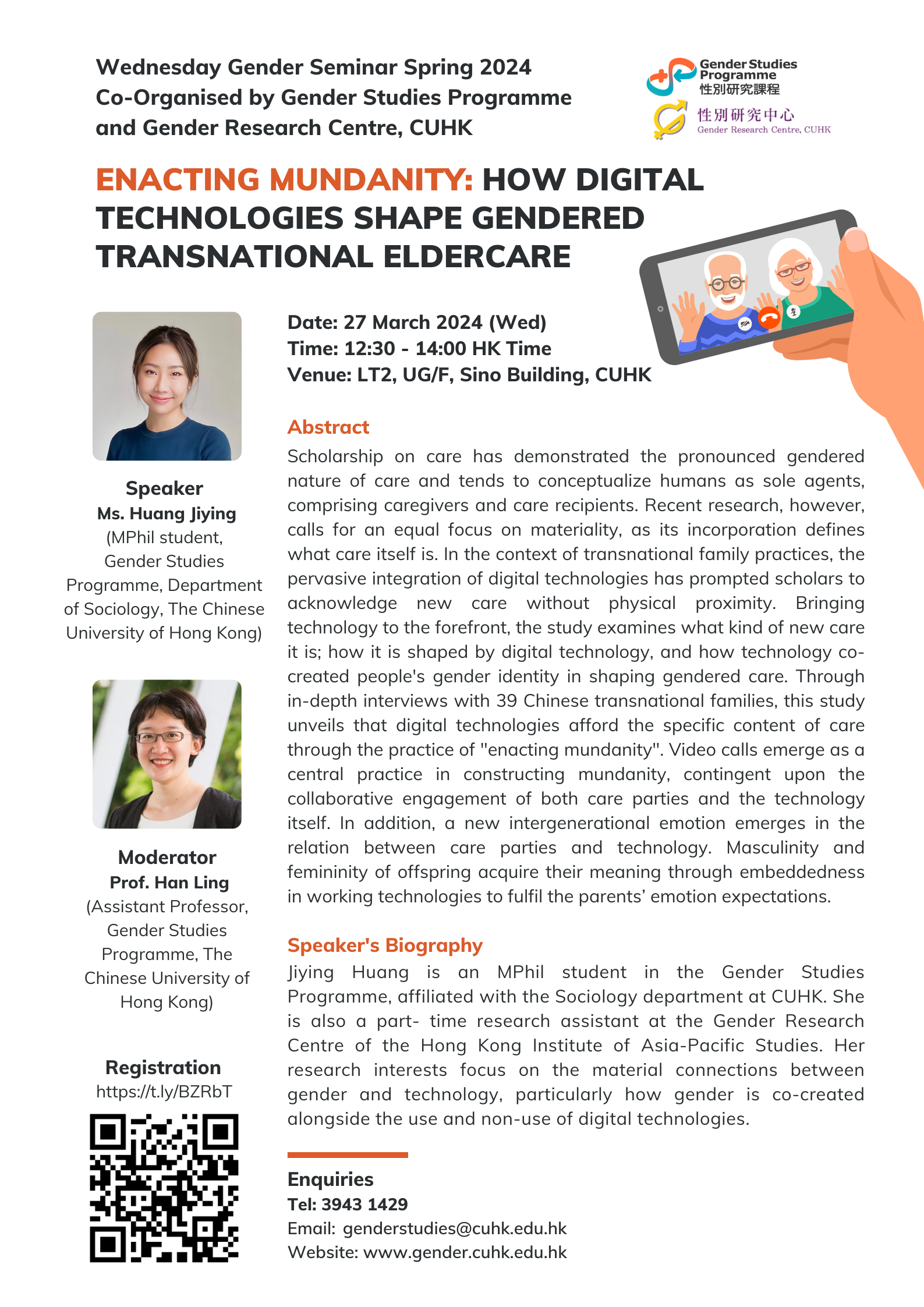 |
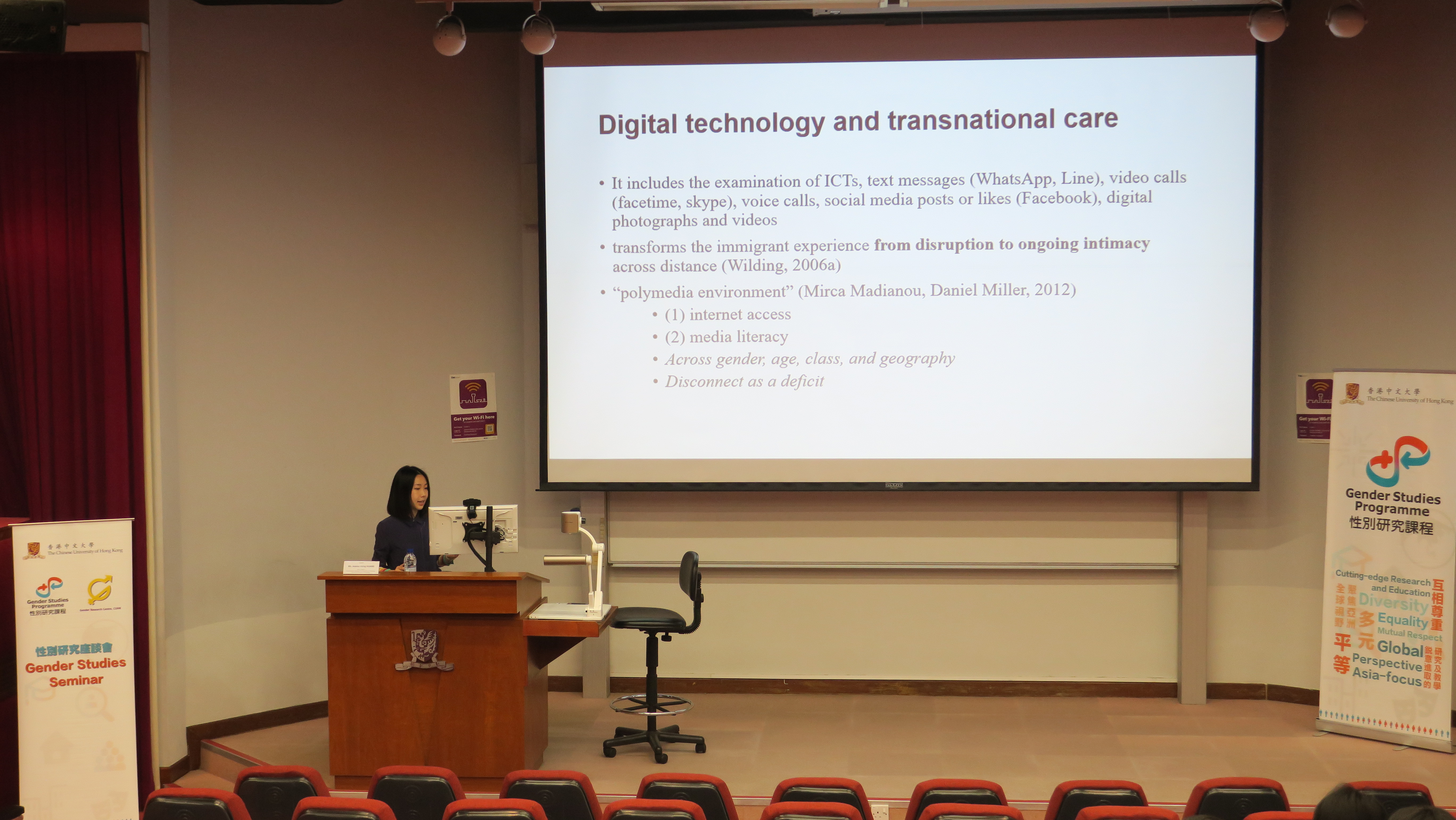 |
The speaker Jeanny Jiying HUANG shared the theoretical approach of her research at the beginning, that is, digital technologies seen as ‘finished’ or ‘ready-made’ entities are relatively undertheorized in transnational family research whereas the transparent technology is engaged in many relations. Thus the researcher proposed three research questions:
l How do people perceive transnational care?
l How do people and technology co-operate to make care exist as they understand it?
l How are gender and technology mutually shaped in transnational care practices?
The study employed remote in-depth interviews to collect data from 39 transnational families in China. To answer the first research question, the researcher found that caring is immigrant adult children's selection of what to care about and what to care about is the cooperation with people and digital technology. The researcher also mentioned that class plays an important role in the case of transnational elder care. For example,people perceive to care about emotional rather than financial condition. As a result, the technology focuses on and facilitates the demand for emotions and for sharing everydayness. Such demands equalize the expectations of gender roles and shape the way transnational children become good sons and daughters. As for the gender practice, men are more likely to communicate with their fathers, while women become dominant in communicating with their mothers. Another important finding is that because the lens of a video phone limits the range of what a person can observe, presence and absence can be emphasised, blurred, or even hidden by adjusting the lens. As a consequence, even when both parents are in the same space at the same time, the frequency of their "presence" on camera is not equal.
Written by: WANG, Xiaoqing
Today’s topic is about how do transnational family doing caretaking and elder caretaking. Congressional family means the parents are left behind in the home country while their daughter and son are migrants in the host country. Recent years, within the development about the digital technology, there is a significant involvement in the digital technology in the transnational family. It includes the examination of ICTs, text messages, video calls, voice calls, social media posts or likes, digital photographs and videos. These digital technology transforms the immigrant experience from disruption to ongoing intimacy across distance.
The speaker uses doing gender theory in her article, which is, gender is an achievement, it is a situated doing, an emergent feature of social situations formed along the way. Her research questions are as follows. How do people perceive transnational care? How do people and technology co-operate to make care exist as they understand it? How are gender and technology mutually shaped in transnational care practices? This study employs remote in-depth interviews to collect data from 39 transnational families in China. All interviews were based on a semi-structed interview protocol that lasted between 50 minutes to 3 hours.
Within-country caregiving is categorized into four types of care: practical financial, personal, and emotional/moral support. Caring is immigrant adult children’s selection of what to care about, and what to care about is the cooperation with people and digital technology. The study found that class plays an important role in defining and for old age, remittances are a denial of their individual abilities. Besides, no remittance is a result of both the affordance of technology and what people choose to care for. As for the process of enacting mundanity, the researcher found that transnational relationship through digital technology heavily rely on sharing everydayness, and such demands equalize the expectations of gender roles. Men are more likely to communicate with their fathers and women become dominant in communicating with their mothers.
To conclude, offspring, both men and women, need to contribute emotional value and acquire “small talk” skills.
Written by: WANG, Zijie
本次讲座针对跨国家庭中的老人和子女,如何通过数字媒体技术塑造性别交流关心进行研究。这项研究采用整合社会学、女权主义研究和STS。以中国移民家庭为例,进行深入远程采访,将手机社交媒体不仅仅是被动沟通的工具,他们作为积极参与成员参与跨国关怀、塑造中的关系的意义,对于如何评定跨国关心实践中的定位实践在女儿和儿子之间共同创造,以及什么是和人们如何看待跨国护理进行主要探究问题。得出跨国老人关心是一个世俗过程的形成,通过数字技术建立跨国关系在很大程度上依赖于共享日常生活结论。而其中关怀是人类和技术通过在实践中相互形成的关系来展现的,旨在保持其交流的某种状况或至少保持其稳定。而技术作为均衡器,承担着捕捉调动情绪的期望的功能,与期望男性通过金融工具履行孝顺职责并期望女性承担亲自关心和情感工作的传统观念相反,该技术专注于并促进对情感和分享日常生活的需求。后代通过实践特定形式的技术中介的关怀,技术塑造他们的女儿和儿子的形象,无论男女,都需要贡献情感价值,并获得“闲聊”技能。当缺乏这些技能时,他们会为没有履行自己的性别角色而感到内疚。与此同时,儿童对于呼叫功能的高水平使用微信成为一种日常和情感载体,并履行他们的性别角色。最后通过关注男性和女性使用关怀技术的实践,展现出在技术关怀的基础上在跨国关怀上做性别的现象。该研究试图填补技术史上缺乏女性主观的经验,即使父母双方同时在同一空间,他们出现在相机上的频率是不平等的。母亲的话语及主动权与父亲的半透明式的世俗建构形成了鲜明的世俗结构对比。
Written by: WANG, Ziqi
在數字科技的發展過程中,跨國贍養得以實現,面對面的親密服務不再是子女贍養老人的必須。研究探討了人們對跨國贍養的理解,如何通過與現代科技的合作進行贍養,以及性別與科技怎樣相互塑造了跨國贍養的實踐。
越來越多的人們使用不同的數字平台而非傳統的方式來維持親密關係,對於與老人空間上處於遠距離的移民子女來說,這種方式更是必要的。此前研究表明,女性在贍養過程中更容易產生愧疚感。當子女開始使用科技工具,它才被賦予了意義,重要的不是科技本身,而是它同其他要素的關係以及它們如何相互作用。
研究聚焦於中國的移民家庭,對39個移民家庭進行了深度訪談,絕大多數的家庭為中產及以上階層。數字科技在作為移民大國的中國被頻繁地應用於日常生活中,計劃生育政策以及儒家孝文化形成了如今移民子女與中國老人的跨國養老的獨特性。相比於經濟支持,情感支撐(如分享日常生活)是跨國子女們更傾向的一種的贍養方式,不同於傳統對女性格外要求的私人的贍養服務,這種運用科技的情感需要在一定程度上減弱了對性別角色的期待。
研究表示,男性更傾向於與他們的父親交流,女性則更傾向於與母親交流,視頻通話為母女創造了談論家庭瑣事的安全空間。在視覺空間有限的攝像鏡頭前,父母的「現身」並非是平等的,而「現身」與「缺席」的界線可以在電子鏡頭下被加強或者模糊,甚至是消除。子女通過以微信為主的科技平台與父母進行情感溝通,如果沒有完成,可能會相應產生愧疚感。
數字科技在跨國贍養中為子女提供了對父母的日常情感分享平台,子女通過這種科技化的贍養過程也實現了自己的性別身份在家庭中的表達。
Written by: YANG, Yuqing
13 Mar 2024 (Wed) Complicating the Migrant Maternal Imaginary: Valuation and Parenting Experiences of College-Educated Chinese Stay-at-Home Mothers in Singapore
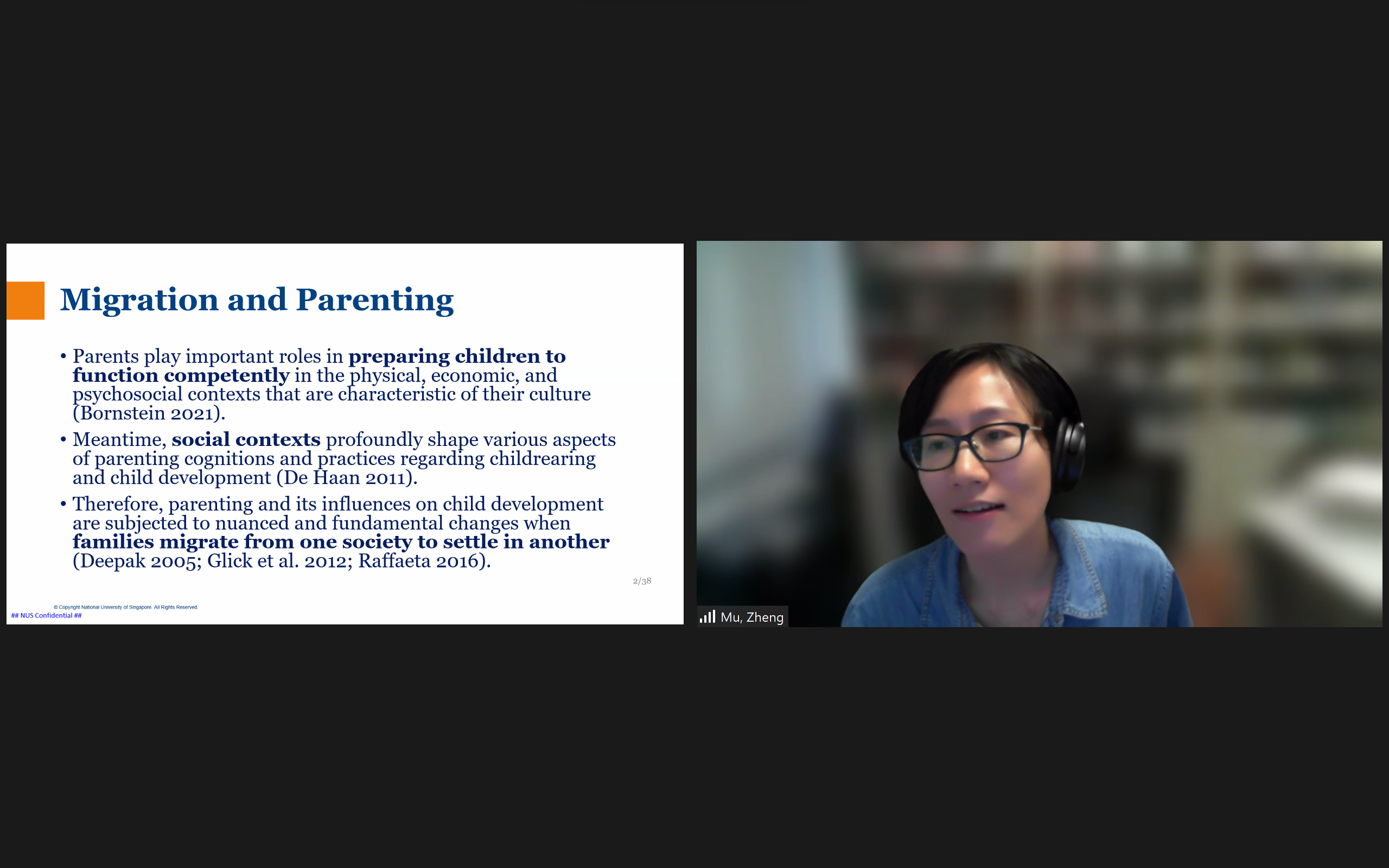 |
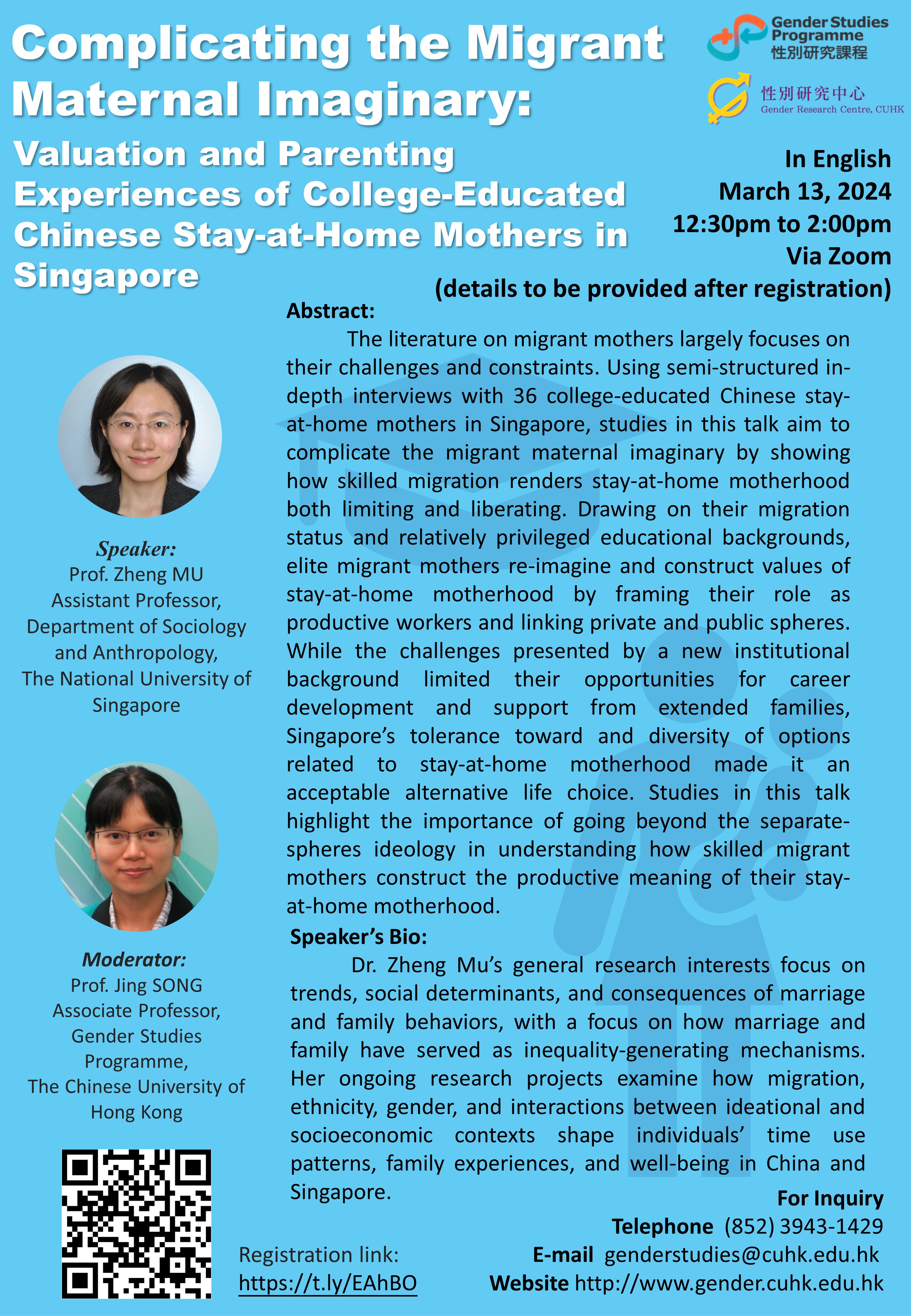 |
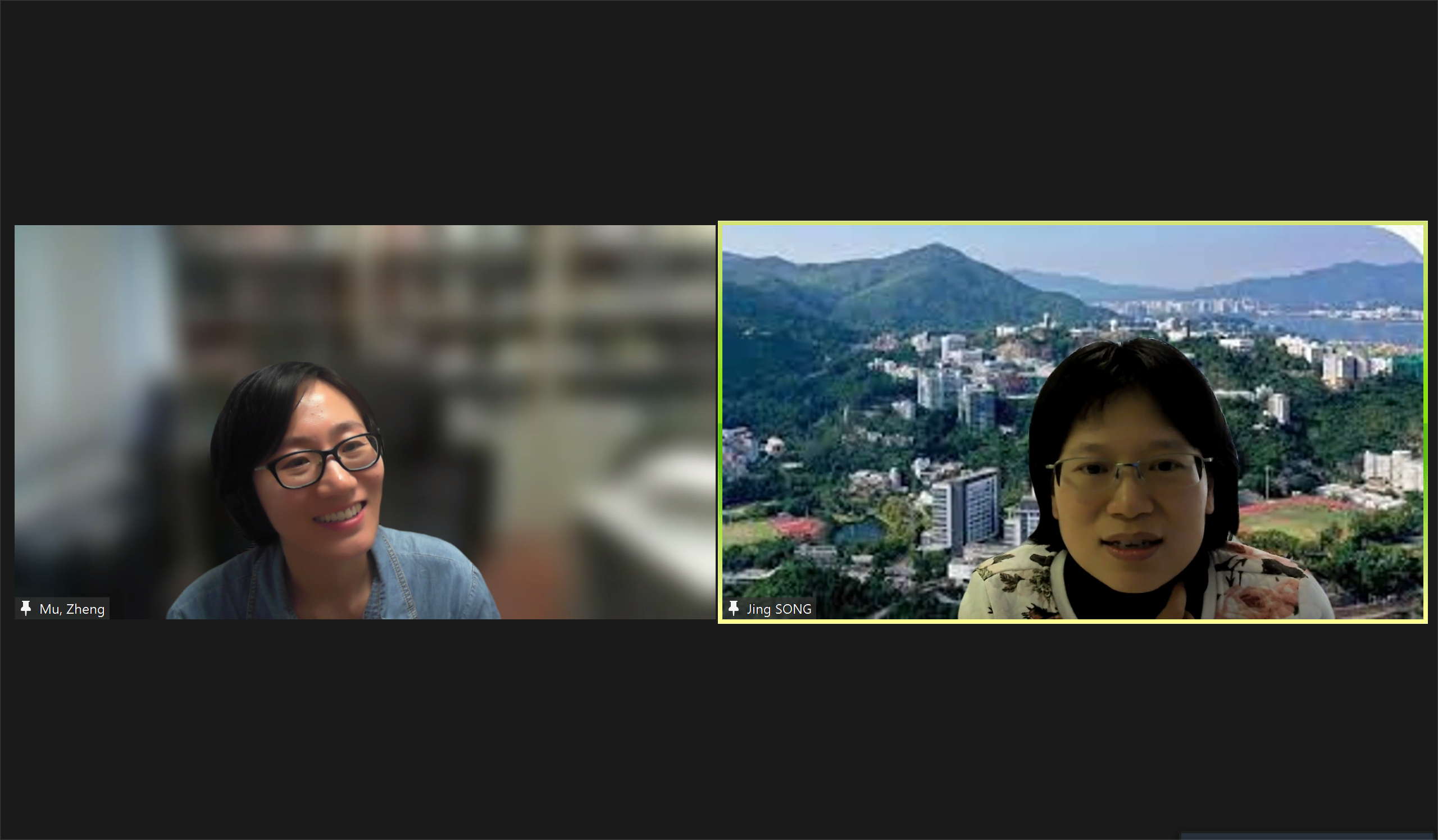 |
Professor Mu ZHENG shared her work about college-educated stay-at-home Chinese mothers in Singapore. The research investigates how these mothers, despite being highly educated and skilled, choose to embrace the role of stay-at-home parents after migration.
The study employs the "migrant maternal imaginary" framework to explore how do this group of women construct the productive value of domestic work by imagining the marketable value embedded in their stay-at-home motherhood and how does migration constrain and enrich parenting options of these mothers.
Professor Zheng's findings suggest that these mothers insisted on staying at home as a self-empowering choice, emphasizing their unique contribution to motherhood, seeking future opportunities to engage in productive activities, and seeking recognition from their families for their domestic roles. Meanwhile, the study emphasizes that these women's decision to stay at home is not just a matter of personal choice, but is closely linked to broader social, economic and cultural dynamics. These mothers face challenges from societal norms undervaluing domestic roles, gender inequalities limiting their choices, and the complexities of migration impacting their family and cultural connections.
The study also addresses the impact of migration on parenting practices, emphasizing that in the face of new cultural and social environments, mothers are able to respond to these challenges by using their educational background to develop an approach to parenting that blends the strengths of the family and the host culture.
Professor Zheng's research exposes the intricate interplay of gender, culture, and migration on stay-at-home mothers, challenging entrenched societal norms and gender structures that undervalue domestic roles. Highlighting the blend of traditional, modern, and post-modern influences on motherhood, the study advocates for recognizing motherhood's inherent value. It calls for future research to delve deeper into individual stories through comparative and mixed-methods approaches, aiming to shift societal perspectives towards a more inclusive appreciation of parenting practices and the productive value of motherhood within the social structure.
Written by: QIN, Kaixin
This week, Prof. Mu discussed a special group – the experiences of valuation and parenting among college-educated Chinese stay-at-home mothers in Singapore. Through semi-structured in-depth interviews with 36 college-educated Chinese stay-at-home mothers in Singapore, the study illustrated how socioeconomic privilege and migratory experiences concurrently constrained and liberated the identities of these highly educated stay-at-home mothers, thereby complexifying the migrant maternal imaginary.
The study emphasized the importance of transcending ideological realms in understanding how skilled immigrant mothers construct the productive meaning of being stay-at-home mothers. Elite immigrant mothers utilized their immigrant status and relatively superior educational backgrounds to position themselves as productive workers, linking the private and public spheres, and thus reconstructing the values associated with stay-at-home mothers. They emphasized full-time mothering as an agentic individualistic choice that maximized self-actualization, optimized child-rearing environments, and maintained future career prospects. Although the new institutional context constrained their career development and family support opportunities, Singapore's tolerance towards the maternal role enabled them to reframe full-time motherhood as an acceptable alternative life choice.
Besides, the study found that the demand for intensive parenting in the new era is increasingly centered on highly educated women, which demonstrates the return and even strengthening of gender inequality in the private sphere. Due to educational backgrounds and exposure to globalized information, highly educated immigrant stay-at-home mothers in Singapore have a greater identification with modern parenting ideals centered on quality companionship, comprehensive development, and children's subjective well-being. However, the additional burden of this concern for the educational development of the child is often borne by the mother. Despite women's increased ability to participate in the public sphere with the help of outsourcing services, and the modern parenting ideology of sharing family responsibilities is supported and acknowledged at the levels of individual and the couple, women’s role as primary educators and caregivers in the private sphere is far from being reversed.
This research allowed me to see the complex and diverse motivations behind the parenting experiences of these highly educated Chinese immigrant mothers, prompting me to rethink the various influencing factors behind the construction of the maternal role, and guiding me to view the connotations and extensions of motherhood with an open and inclusive perspective. In the end, Prof. Mu recommended future comparative analyses across immigrant statuses, religions, ethnicities, and social backgrounds for comprehensively understanding phenomena within this domain.
Written by: SHAO, Tianhua
2024年3月13日中午,新加坡国立大学社会学与人类学系的穆峥教授在我系周三性别研讨会上发表了题为“复杂化移民母职想象:新加坡受过大学教育的华人全职妈妈的价值塑造和育儿经验”的线上学术报告。校内外共四十余位师生通过zoom参会,我系宋婧教授主持并参与对谈。
近年来,新加坡优质教育资源和针对高技能人才的宽容移民政策吸引了大量华人精英群体迁入,密集育儿一度成为公共讨论焦点。穆峥教授的研究对象为生活在新加坡的受过大学教育的华人全职妈妈,她们的身份交叉了移民、性别与阶级的多重社会因素,她们同时也是家庭中密集育儿的主要承担者。作为相对精英的移民母亲群体,她们在构建自己社会(再)生产角色的过程中同时面临机会和挑战。基于此背景,穆峥教授的研究聚焦两个问题:(1)她们如何通过想象嵌入于全职母职中的市场价值来构建家务劳动中的生产价值? (2) 移民如何限制和丰富了她们的育儿选择?通过对36位参与者的半结构式深度访谈,研究洞察并展示了精英华人移民母亲赋值家务劳动的四种常用策略:强调选择家务劳动的能动性、强调高质量母亲育儿、视全职母职为获取未来雇佣机会的生产基础、(与丈夫)共识家务劳动的价值。通过赋予私领域家务劳动中的生产性意义,她们重新构建了移民母职的复杂想象。同时,移民新加坡于精英华人母亲育儿的影响是限制与机会并存的。一方面,得益于自身相对优越的社会经济地位和新加坡对全职母亲友好的文化氛围,她们能够接触更多元的家庭和人生可能性、拥有更平等的家庭内协商过程,最终使得移民成为一种可行的生活与育儿选择。另一方面,受制于社会对于全职父亲的污名化、女性慕强择偶的婚恋传统以及现有劳动力市场的性别结构,性别化的育儿期待依旧根深蒂固且难以改变,全职母亲的身份与她们而言能动与局限并存。
汇报结束后,宋婧教授就穆峥教授的发言内容与其开展了互动讨论。宋婧教授分享了伴侣间移民抉择中男性追随者的研究案例,随后发问当新冠疫情期间工作-家庭界限变得更加模糊的情况下,全职母职又是如何被合理化与正当化的?最后提醒性别与家庭议题的研究者与关注者要警惕新自由主义“自由选择与自我实现”话语带来过度美化全职母职的风险。穆峥教授表示认可,并进一步提出当讨论劳动领域的性别不平等时,我们应当关注男性与女性对于正式工作获取机会的不同,以及男性化工作和女性化工作被看重程度的不同。
本次研讨会加深了同学们对于移民、性别与育儿的交叉性的理解,为移民母职研究提供了宝贵的亚洲分析案例和公-私领域互动的理论视角。
Written by: TU, Lingyan
穆教授在她關於新加坡高學歷全職母親的研究中,提到高學歷中國女性選擇在新加坡成為全職媽媽反映了對精英地位的追求。成為全職母親重新定義了她們的角色,且與傳統的家庭主婦有所區別。同時,新加坡的移民管理呈現出二元化。一方面,低技能移民工人缺乏國家勞動法保護,簽訂個別合同,被視為短期流動勞動力。另一方面,移民專業人士或外籍人士享有特權,受到歡迎並受到法律系統的保護。她們將全職媽媽作為一種新的人生選擇,能夠與孩子共度質量和親密的時光,並在各種可能性中調整自己的育兒方式。
該研究旨在探究高學歷中國全職媽媽如何賦予家務勞動生產價值,並探討其中的市場價值。研究採用半結構化深度訪談的方法,共有36位符合標準的高學歷中國全職媽媽參與了研究。
研究發現,新加坡的高學歷中國全職媽媽採用了四種策略。首先,她們將專注於家務勞動的決定視為自主決策,強調背後的深思熟慮和主動性。其次,她們通過強調提供高質量的母愛和陪伴來評價家務勞動,拒絕認為全職媽媽是時間浪費或人力資本的損失。第三,她們將全職媽媽作為未來就業的生產基礎,通過獲得認證、語言培訓、學位獲取和兼職工作來為未來職業做好準備。最後,她們通過與丈夫共同承擔育兒和家庭責任來獲得評價和認可,鼓勵丈夫更好地理解和欣賞全職媽媽的價值。研究也提出關於全職父親的猜想,雖然得到「支持」,但依然面臨結構性問題。最後,文章指出移民生活提供了更多可能性,但也存在結構性和文化性的限制。未來該研究將向多方面深入。
Written by: WANG, Junjie
6 Mar 2024 (Wed) Urban and Rural Context of Gender Inequality and Adolescent Dating Violence in China: Tilting Toward a Feminist Poststructural Perspective
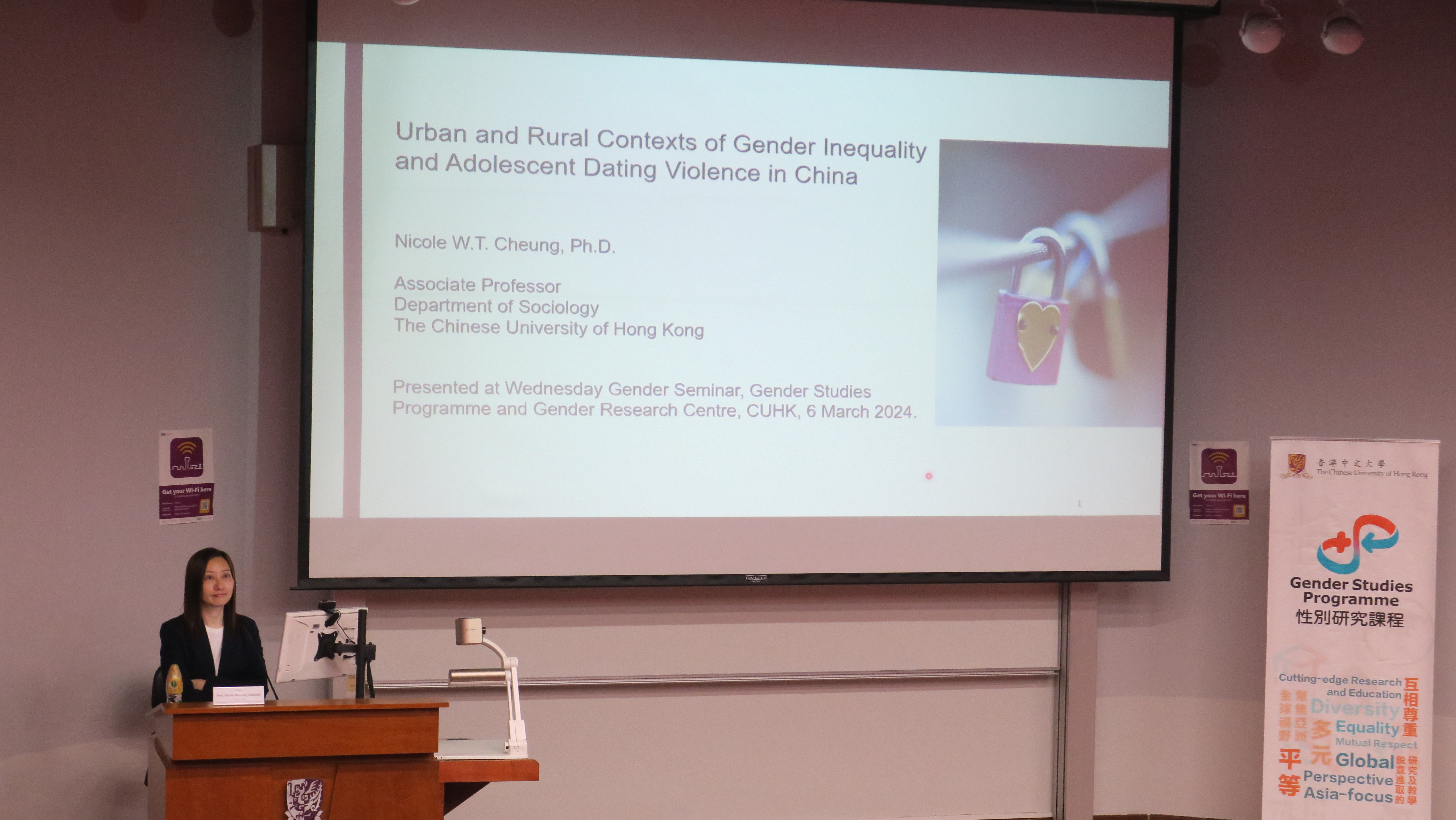 |
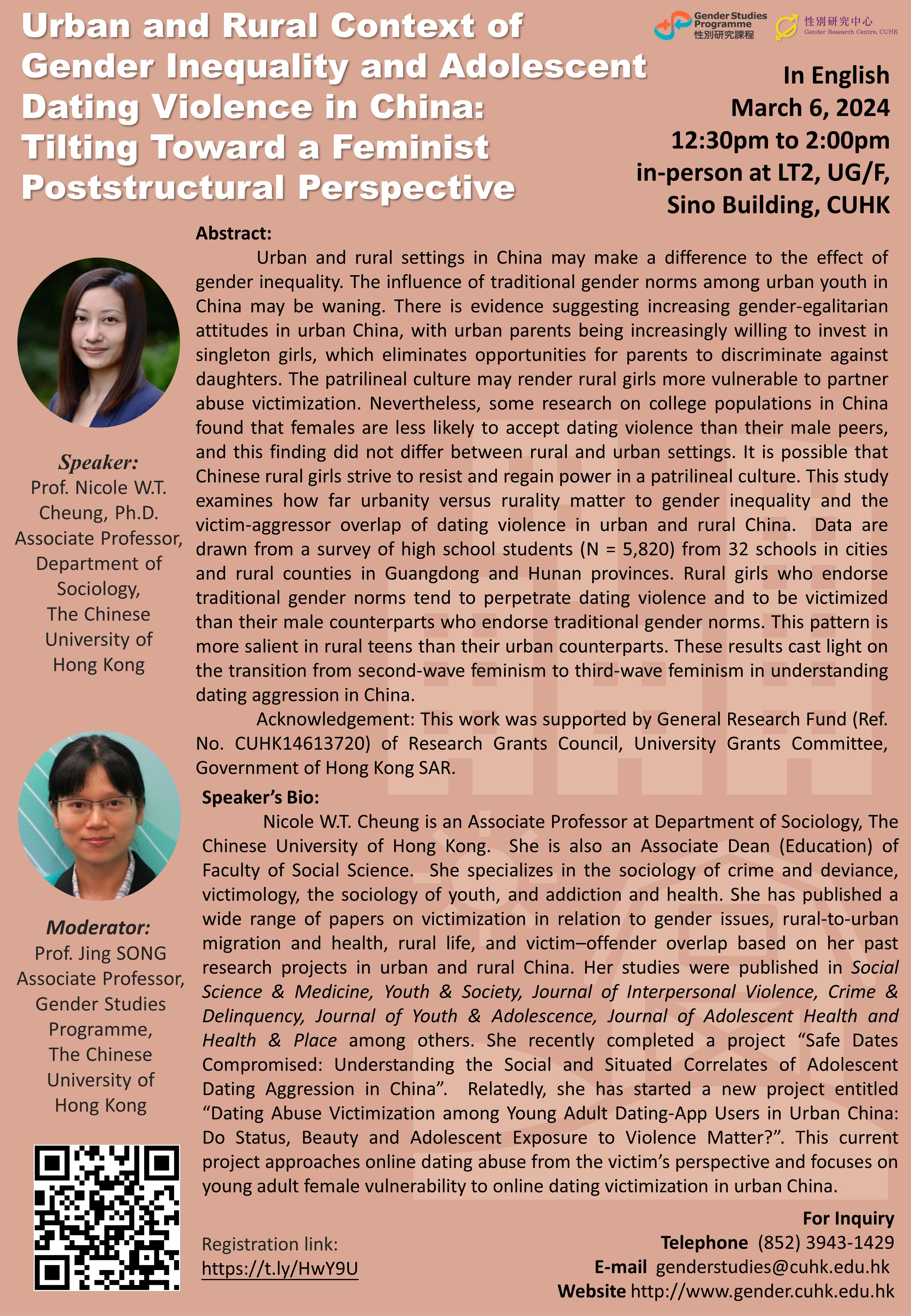 |
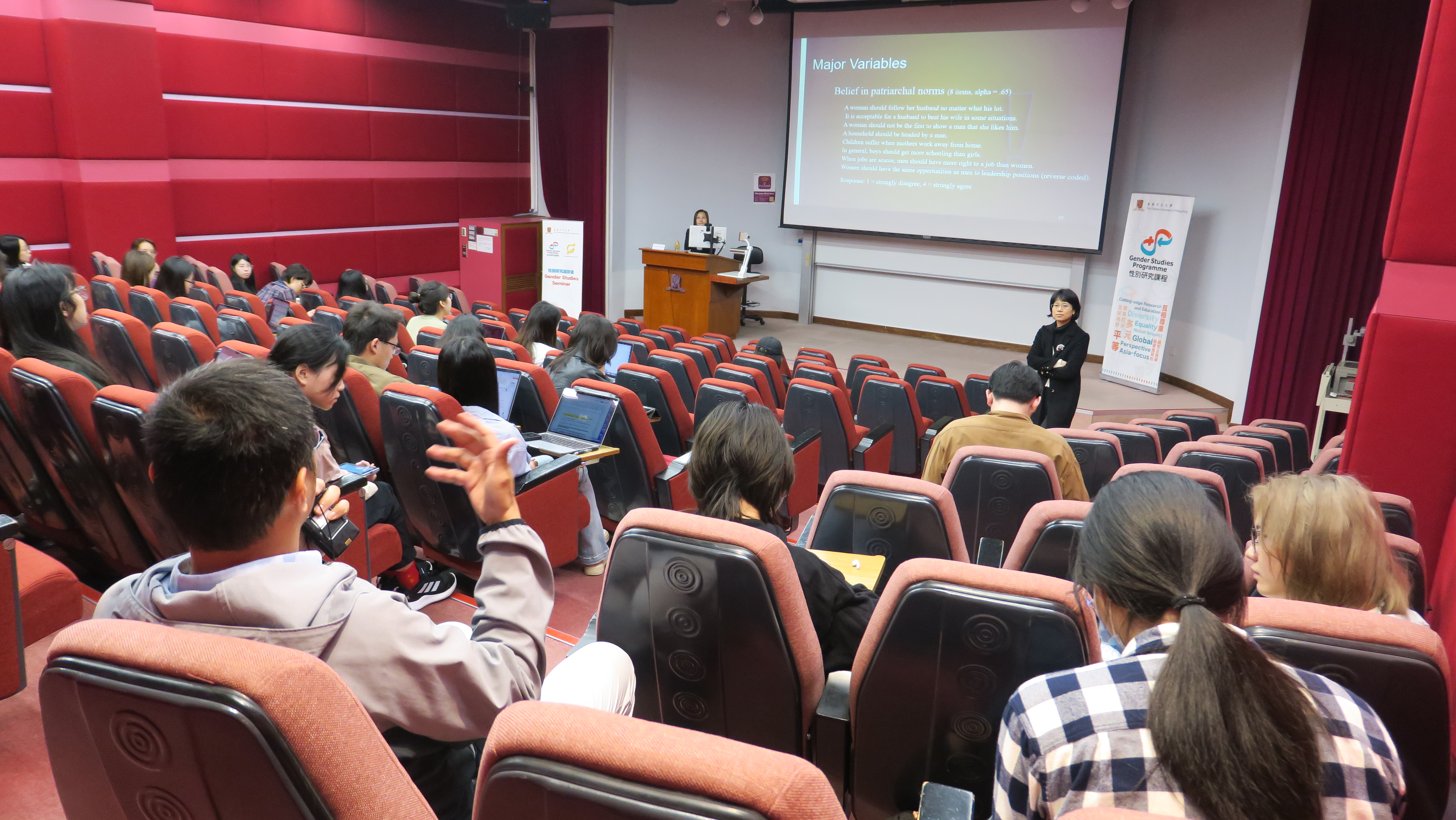 |
The theme of the seminar is ‘Urban and Rural Contexts of Gender Inequality and Adolescent Dating Violence in China’. Professor Cheung focused on adolescent health from a feminist post-structural perspective, she noticed that both teen dating boys and girls may be equally involved in perpetration and victimization. Based on the background of research on adolescent dating violence in overseas and China, Cheung examined the role of gender inequality in adolescent dating violence and how urban and rural contexts make a difference in this progress. Firstly, Cheung reviewed the relationship between the two waves of feminism and gender inequality, which showed that since second-wave feminism focused on how men dominate women, dating violence can be seen as a form of its expression that scholars could use as a starting point for research. However, in order to examine why young women became the perpetrators of dating violence, it is necessary to bring in third-wave feminism to understand the contradiction between young women and patriarchy. Meanwhile, Cheung also noted that urban-rural contextual differences may lead to changes in the identities of males and females as perpetrators or victims of dating violence. Based on these theoretical frameworks, Cheung used quantitative research to investigate 32 high schools in cities and rural countries in Guangdong and Hunan provinces. By analyzing the data sample, Cheung found that girls were more likely to perpetrate dating violence than boys in both urban and rural areas, but girls were also more likely to be victims than boys, especially in rural China. While adherence to patriarchal norms is more likely to increase the odds of dating violence perpetration among boys and the odds of victimization among rural boys. This is because patrilineal culture, as interpreted by second-wave feminism, is still prevalent in both urban and rural China, but rural girls, under the influence of third-wave feminism, were trying to resist and regain power in a patrilineal culture by resorting to aggression in response.
Written by: LI, Zhixin
On 6 Mar 2024, Wednesday Gender Seminar invited Professor Nicole W.T. Cheung to share her research, Urban and Rural Contexts of Gender Inequality and Adolescent Dating Violence in China.
Although dating violence, intimate partner violence, is an academic staple, existing studies exclusively focus on adults and the Western contexts. There are very few studies that care about teenagers, yet such violence can emerge among teenagers. Besides, international studies on the prevalence rates of adolescent dating aggression suggest there is no significant gender difference in being abused. Contextualizing in China, even though the comparable overall rates to the international level, boys are more likely to both perpetrate and be victimized by physical violence. However, rural-urban regional differences are still omitted, and we know little about rural contexts. Prof. Cheung, thus, proposed the research agenda about gender inequality and rural-urban regional differences in Chinese adolescent dating violence. This topic could provide some understanding of why and how teens establish intimate relationships and show the life course perspective and meanings of marriage.
Adopted quantitative research methods, Prof. Cheung surveyed 32 high schools in cities and rural counties between Sep 2021 and May 2022, covering 5,820 teenagers (2,835 from urban regions and 2,935 from rural countries). She finds that, in terms of overall gender difference, girls are more likely to perpetration, while boys, especially in rural China, tend to be victimized. After intersecting the belief in patriarchal norms with regional contexts, gender and regional differences emerge. Generally, the belief in patriarchal norms tends to increase boys’ dating violence perpetration across rural and urban settings, while there is no significant influence on girls. However, rural boys with the belief in patriarchal norms are more likely to be victimized than rural girls. And it is not salient in the urban contexts.
Patriarchal culture is key to these findings. In rural areas, the dominant patriarchal cultures contribute to boys’ higher possibility of using violence in relationships. Rural girls, however, are increasingly unsatisfied with patriarchy and imbalanced power dynamics, which leads to their aggressive responses to rural males and victimizing rural boys when dating. She concluded that third-wave feminism is more relevant to rural contexts rather than urban ones.
Written by: LIU, Danchen
Nicole W.T. Cheung教授分享了她对中国城乡地区性别不平等和青少年约会暴力问题的研究。青少年约会暴力不仅发生在成年伴侣之间,也在青少年群体中普遍存在。国际研究表明,全球范围内青少年约会暴力发生率约为19%,其中包括身体暴力和性暴力。男性和女性在实施和遭受身体暴力方面的比例相当,而男性更容易实施性暴力。在中国,青少年约会暴力的总体发生率与国际水平相当。
此研究关注了两个方面的问题:一是性别不平等在中国青少年约会暴力中的作用是什么?二是城市和农村环境对性别不平等对青少年约会暴力的影响有何差异?
第二波女权主义和第三波女权主义对性别不平等的作用有所不同,这也影响了青少年约会暴力问题的解释。第二波女权主义强调了父权制和男性社会建构的作用,表现为男孩对女孩施加权力和控制。第三波女权主义关注与性别相关的权力和控制问题,解释了为什么年轻女性会通过约会暴力来反抗父权制性别规范和恋爱关系中的权力不平衡。
城市和农村环境对青少年约会暴力有不同的影响。在中国城市中,性别平等观念逐渐增强,城市女孩更多地表现为幸存者而不是受害者。然而,在中国农村地区,由于经济限制和对儿子的偏重,女孩面临着不公平的资源分配,使其更容易成为约会暴力的受害者。但是,对中国大学生的研究发现,女生比男生更不容易接受约会暴力,这一发现在农村和城市环境中并无差异。
基于上述背景和假设,Cheung教授进行了进行两个方面的假设:一是,基于第二波女性主义,对父权制性别规范的信仰会助长男孩约会暴力的实施和女孩约会暴力的受害。二是,基于第三波女性主义,父权制性别规范的信仰会助长不同性别间的约会暴力,并使男孩成为约会暴力的受害者。研究并采用将两个阶段分层集群抽样调查的方法,调查涵盖了广东和湖南两个省份的城市和农村高中学生。主要变量包括控制行为、心理虐待、恐吓、身体虐待、性骚扰和对父权规范的信仰。
最终,研究数据结果显示,在中国的城市和农村地区,女孩更容易实施约会暴力,尤其在农村地区女孩遭受约会暴力的几率更高。所有地区中相信父权制规范的男孩更可能实施约会暴力,增加了男孩在约会关系中对女孩施暴的可能。第三波女权主义与农村背景相关,农村女孩更不满意权力平衡,并通过攻击行为来抗议和重新获得权力,使约会男性成为受害者。
Written by: LIU, Moxuan
本次講座深入探討了中國青少年約會暴力的問題,特別關注了城鄉背景下性別不平等與約會暴力之間的複雜關係。研究發現,不論是城市還是農村,青少年約會暴力的現象普遍存在,且男女均可能成為加害者或受害者。此項研究著重於探索性別不平等在當代中國青少年約會暴力中的角色,以及城鄉差異如何對此問題產生影響。
研究透過回顧女權運動的不同階段,分析了性別不平等、權力動態與約會暴力之間的關係。從第二波女權運動的角度看,約會暴力被視為男孩利用性別不平等並強化社會文化男性氣概規範的一種方式。而第三波女權主義則認為,女性也可能以侵略性行為來反抗性別不平等,這表明了約會暴力是一個跨性別的問題,並非單一性別獨有。此外,城鄉差異對約會暴力的影響也是研究的重點。在城市,隨著性別平等觀念的普及,父母更加願意對女兒進行投資。相反,在農村,由於經濟約束和對男性後代的偏好,女孩往往獲得較少的資源和關注,這種不平等可能加劇了農村地區的約會暴力問題。
研究提出了兩個假設來進一步探索這一議題。第一個假設關注於如何通過強化父權性別規範來促進男孩對女孩的約會暴力,而第二個假設則探討父權性別規範如何鼓勵跨性別的約會暴力行為。通過對廣東和湖南兩省32所高中的5820名學生進行調查,研究涵蓋了控制行為、心理虐待、恐嚇、身體虐待和性虐待等不同類型的約會暴力行為,同時考量了學生對父權制度的信念。
本研究結果顯示,在中國城市和鄉村地區,女孩在約會關係中實施暴力的可能性高於男孩,尤其在鄉村地區,女孩遭受約會暴力的風險亦顯著高於男孩。這一發現挑戰了傳統對性別角色的認知,指出父權規範的信仰在促進男孩對約會暴力的參與方面起著關鍵作用,無論是在城市還是鄉村環境中。同時,研究亦揭示了父權文化如何增加男孩施暴的風險,顯示出父權規範對於約會暴力的深刻影響。
Written by: PENG, Xiaoya
28 Feb 2024 (Wed) When Digital Platforms Become Migrant Destinations: A Case Study of Rural Women’s Creative Entrepreneurship in the Digital China
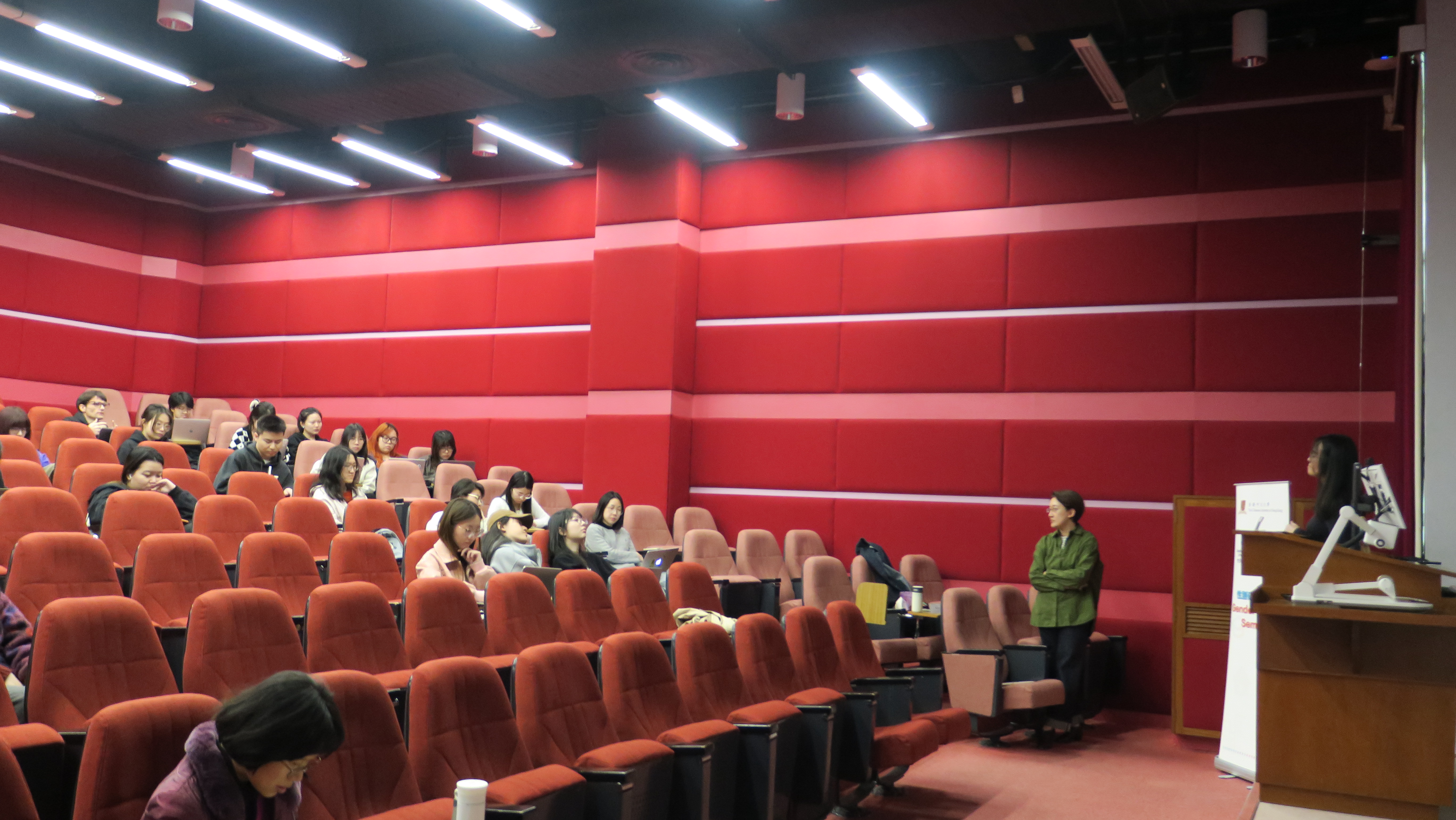 |
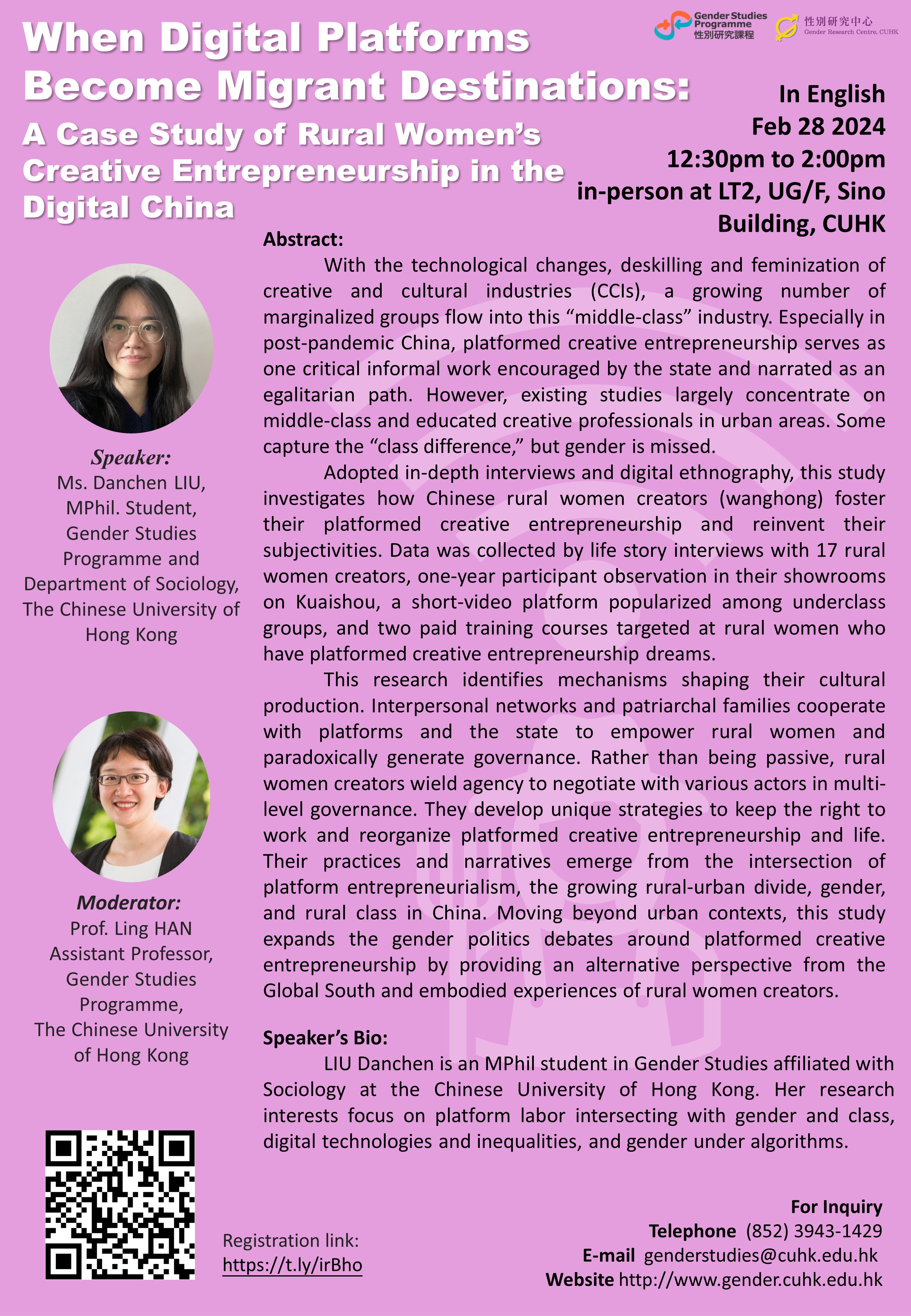 |
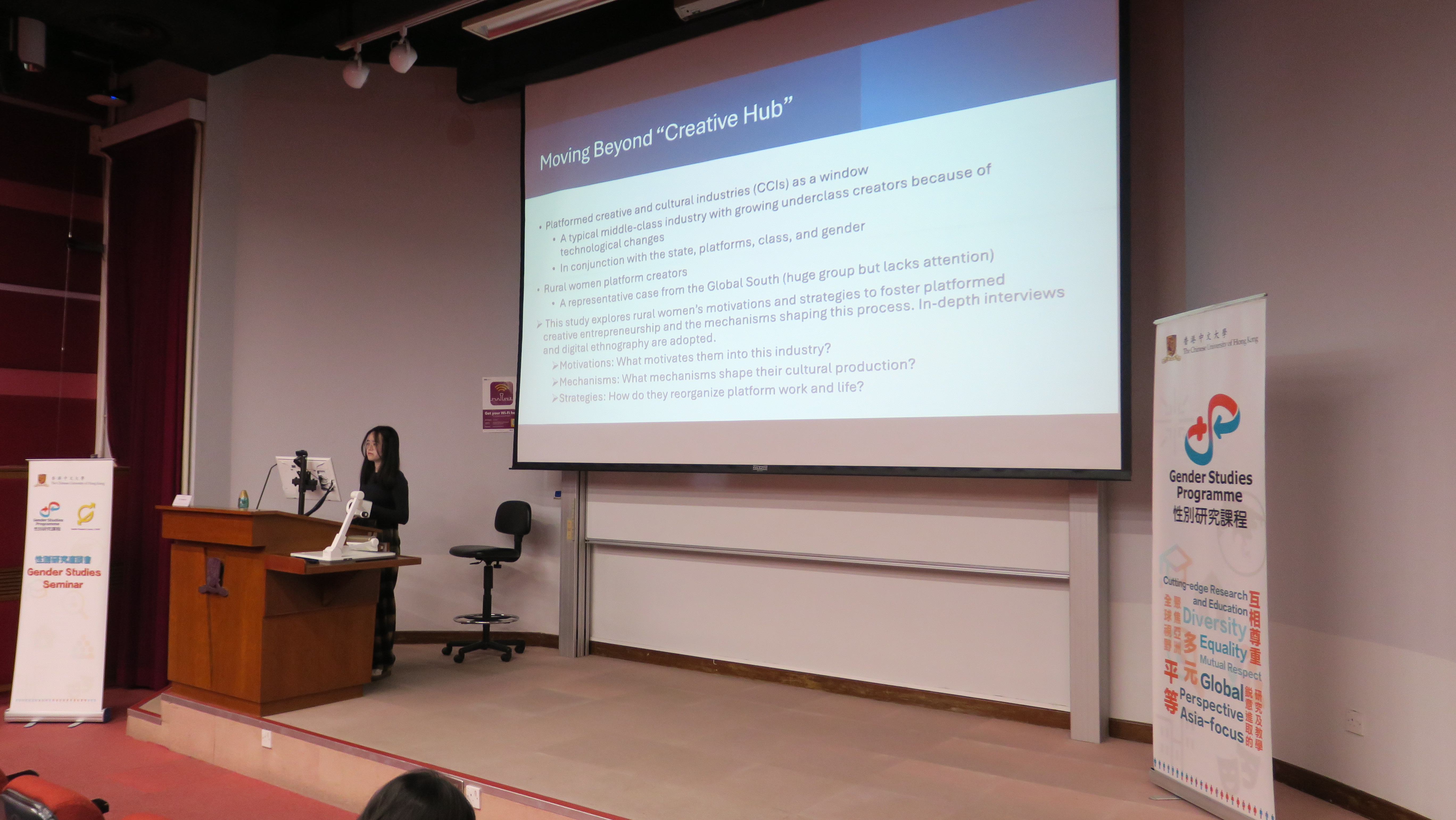 |
在本次研讨会上,性别研究项目的研究型硕士刘丹琛分享了她毕业论文研究:《当数字平台成为务工目的地——数字中国农村女性创新创业案例研究》。本研究聚焦于快手平台,探讨了农村女性参与平台型创新创业的动机、机制和策略。该研究结合质性研究与解释性研究,通过与17名农村女性内容创作者的深度生活故事访谈以及在快手直播间和微信群组的线上课程中的数字人种志收集数据,回答了什么促使农村女性进入数字平台行业,什么机制塑造了她们的文化生产,及她们如何重组平台工作与生活三个问题。
首先,性别化的家庭模式是农村女性进入数字平台的根本原因。家庭贫困是农村女性的普遍困境,同时她们也受困于照顾孩子或“生男孩”的压力,家庭生活孤独压抑,并且需要向丈夫要钱来生活,没有办法走出去。因此,她们选择在快手通过视频记录生活,从而赚取额外的生活费,排解生活的苦闷。
其次,家庭和人际关系是农村女性的主要文化生产内容,亦可分为正能量家庭生活和家庭冲突两个方向。很多农村女性内容创作者及其家人出于面子,或是平台及国家层面对正能量的推动,会着重于分享正能量的家庭生活,而不愿意展示出家庭冲突的部分。但一些农村女性创作者仍会分享家庭冲突的经历,试图展现出真实的生活。值得一提的是,正能量导向和人际关系压力可能会无意间抹去农村女性最真实的生活悲剧,这是一个棘手的问题。
最后,农村女性内容创作者重组平台工作和生活,使视频记录成为了日常生活的一部分,模糊了生产与再生产的界限。但这也使得她们的生活变得异常繁忙,她们需要在家务与农务之余,见缝插针的完成平台运营。
综上所述,农村女性内容创作者在忙碌中探寻着属于自己的主动权。
Written by: LI, Ang
關於本次講座「當數字平臺成爲移民目的地——數字中國農村婦女創新創業案例研究」,研究者的研究緣起是由於技術變革,平臺化創意文化產業湧現出了很多底層創造者,其中農村婦女作爲南方世界的一個代表性案例,群體龐大但缺乏關注。所以此研究探討了農村婦女促進平臺型創新創業的動機和策略,以及形成這一過程的機制。
研究者先是解釋了「記錄日常生活」此種視頻類型的流行原因以及爲什麽選擇「快手」平臺,並理論角度切入,分析平臺管控、后女權主義對於平臺型創新創業的影響。她提到在中國,邊緣化的群體借由國家與互聯網平臺之間的關聯來進行符合社會導向的文化輸出,進而實現流量扶貧。但這其中也暴露出了很多諸如性別不平等、階級立場、父權影響和平臺限制的現象。研究者采取了深度訪談和數字人種志的研究方法來收集數據與分析,將創作動機總結爲家庭經濟困難、婚姻生活的壓迫、有限的謀生選擇三類。
何種機制塑造了她們的文化創造?研究者認爲是家庭、人際社交網絡與平臺管控的相互作用。正能量的話語導向、結構性不平等個體化與隱藏家庭悲劇來表現幸福、淡化個人奮鬥使農村女性的悲劇消失在大衆視野中。
針對於此,她們如何重組平臺工作與生活?研究者提出「忙碌女權主義」概念,通過模糊製作與複製工作、壓縮時間來進行忙碌的實踐,超越了剝削與自我剝削,爲了走向幸福和更多可能性。
最後,關於未來的研究方向,研究者提到要將社會生產、階級問題、更多實證研究融合進來。
Written by: LI, Yushan
Kuaishou is a popular app in Mainland China and many people record their lives in short videos on it. In this context, many rural women have begun to use short video platforms such as Kuaishou to record their daily lives and try to gain some income. Based this, the speaker proposed some research questions: What motivates them into this industry?What mechanisms shape their cultural production?How do they recognize platform work and life?
To address these questions and examine rural women's life and work experiences, the researcher used qualitative research and interviewed 17 female creators from rural areas using in depth interviews and digital ethnography.These respondents were young mothers with at least one child. Their average age was 25.3 years and they had a low level of education. Most of them live in poor rural areas.
According to speaker, many of these rural women's motivations for creating come from family hardship. These women see platform entrepreneurship as an economic pursuit, and short-form video creation as a supplement to paid work.In addition, some rural women choose to create short videos at home instead of going out to work because they have to stay behind to take care of their children. Some of them also suffer from an isolated and depressing married life, and creating short videos becomes a way of self-comfort or self-actualization for them.
Besides, triple governance shapes platform engagement.Family, interpersonal social networks and platform governance shape the expression of rural women creating short videos. The pressure of social networks of acquaintances, the state and platforms' desire to spread positive energy all require progressive, happy short video content. These deny the plight of rural women and constrain their platform participation. This individualizes structural inequalities.
Many rural women also face the problem of reorganizing their work and life.Blurring production and reproduction work is one.When shooting short videos does not conflict with women's work and even generates profit. They regain confidence from being mothers with extra income.But this sometimes exposes them to cyber violence. In addition. they will have tighter schedules to work and allocate their time outside the patriarchal vision in the process.Time squeezing and hustling at the periphery are problems. In addition, speakers briefly discussed how to reorganize work and life and suggested directions for further research in the future.
In conclusion, this study examines rural women's motivations and strategies for promoting platform-based creative entrepreneurship and the mechanisms that shape this process.
Written by: ZHANG, Zheting
21 Feb 2024 (Wed) Gender Inequality in Academia: Career Development and Promotion Timelines in a University in Hong Kong
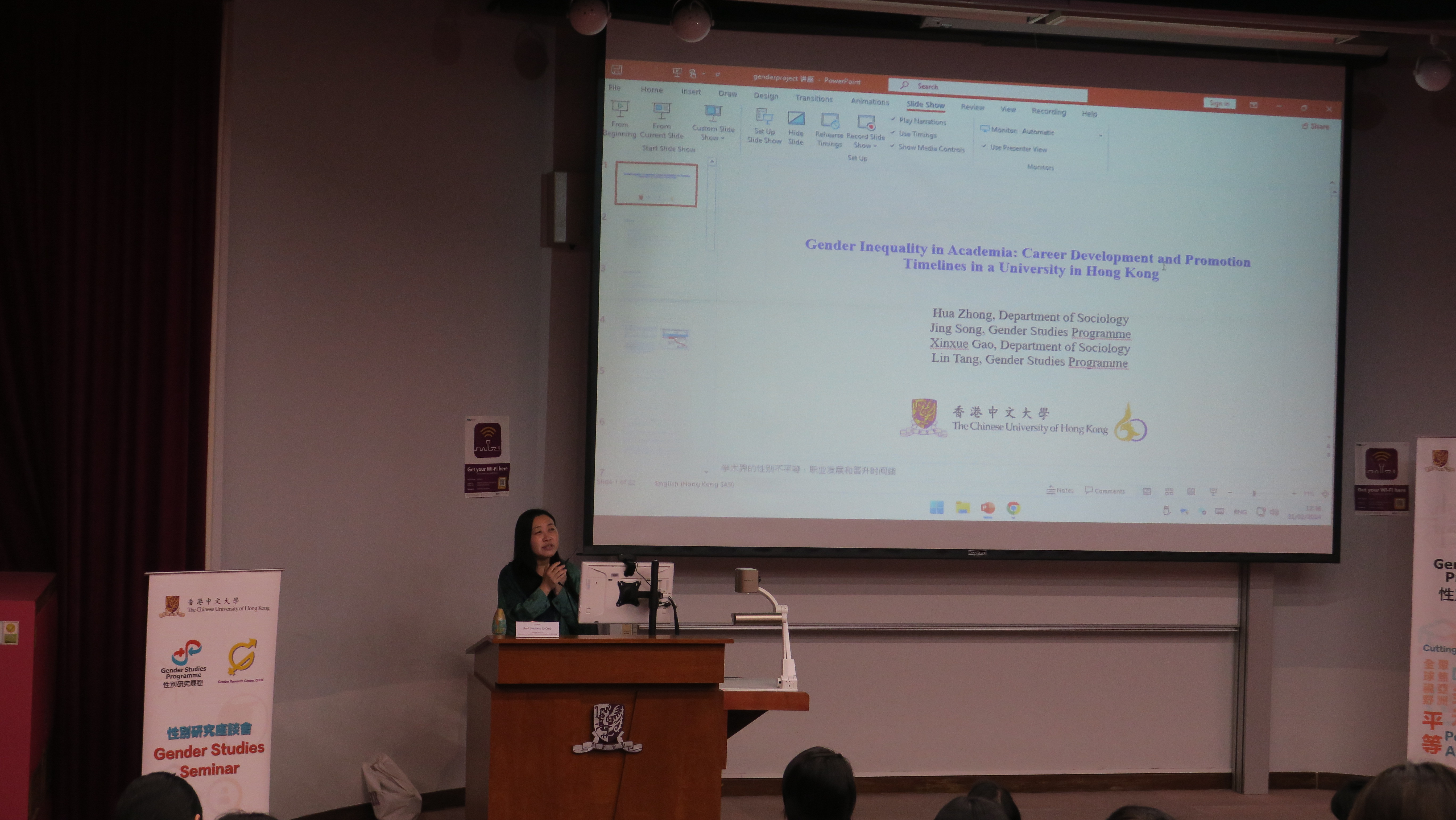 |
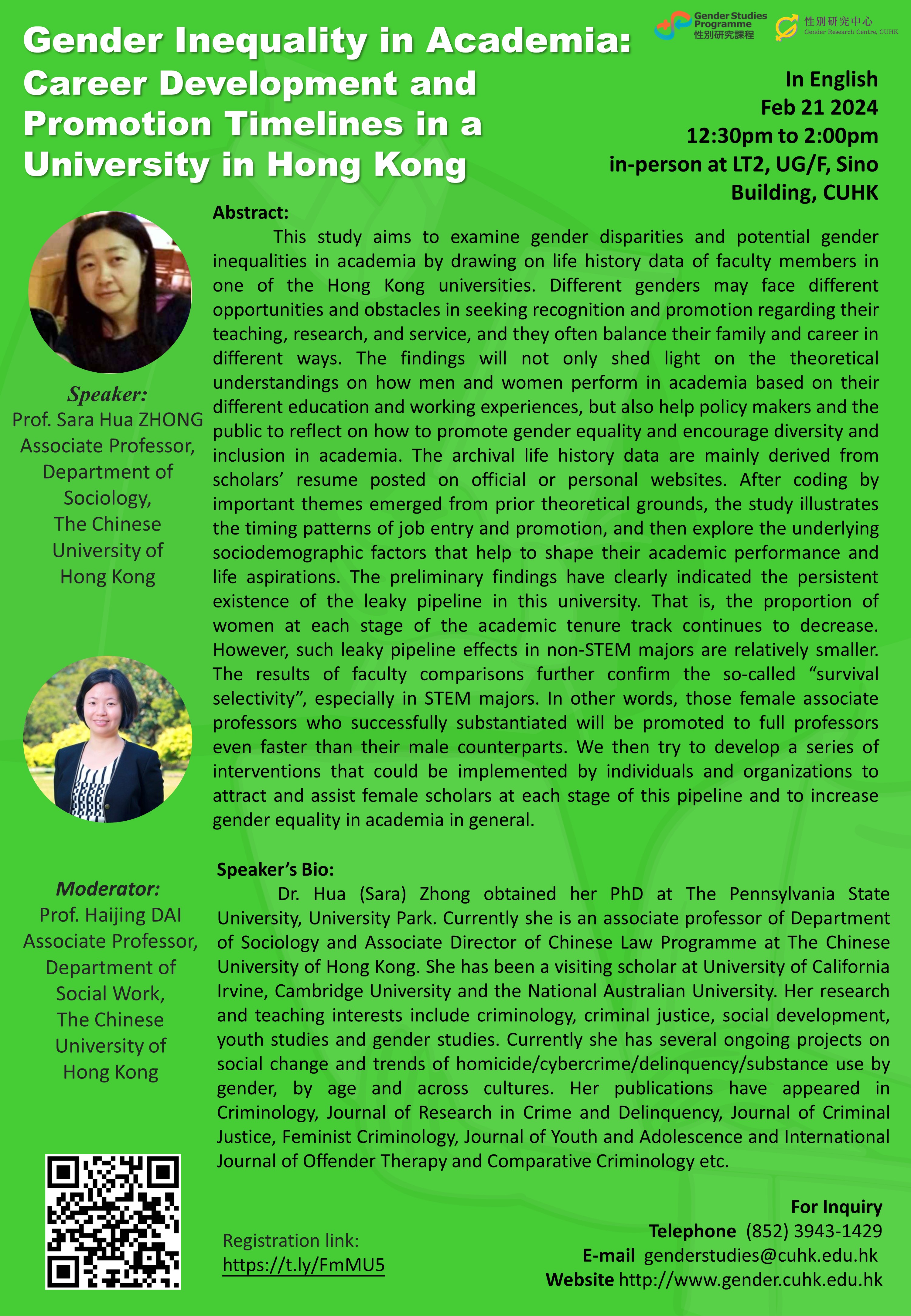 |
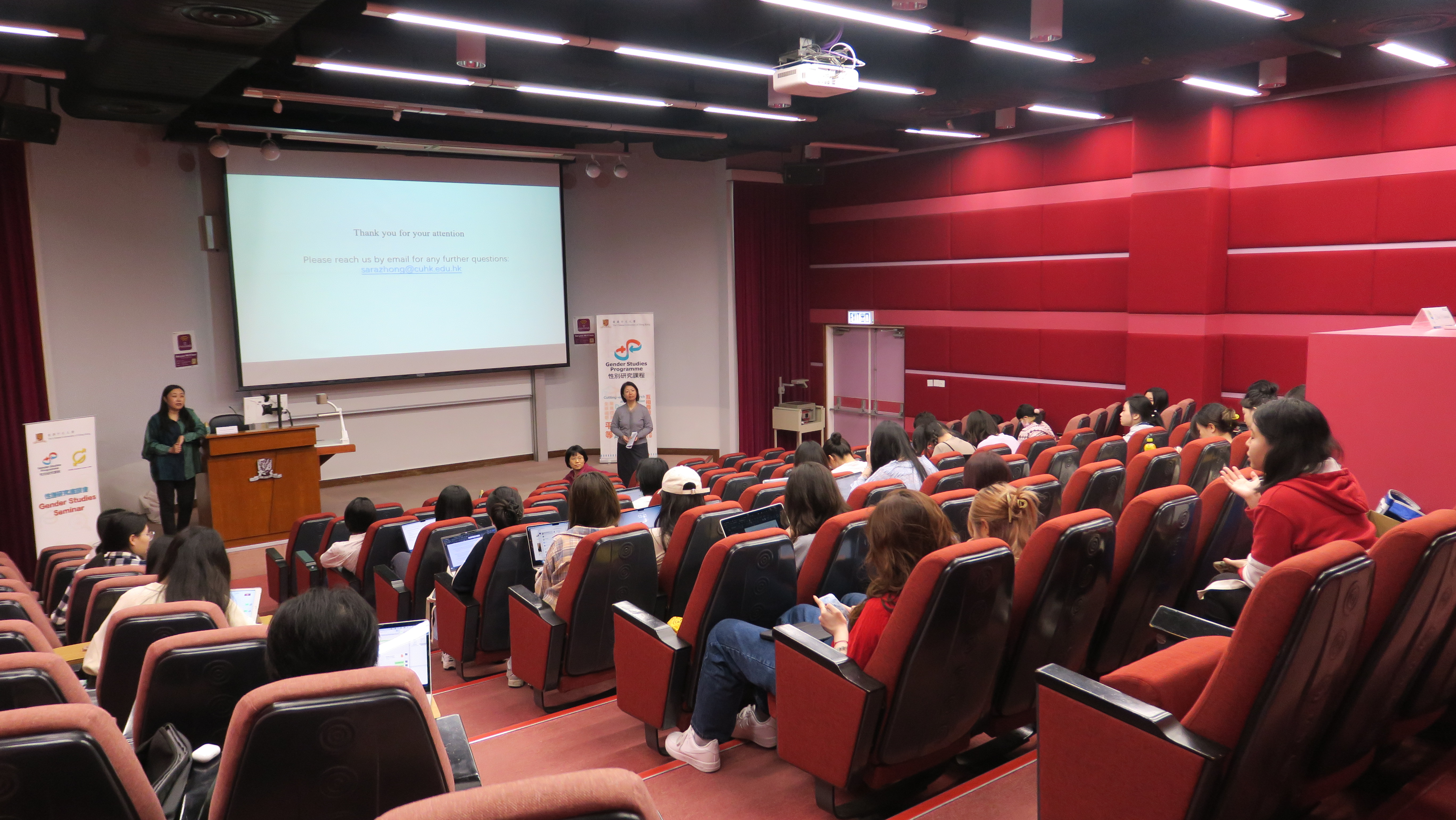 |
该讲座介绍了在香港的一所大学进行的关于学术职业发展和晋升周期的研究,旨在揭示学术界性别不平等的现状及影响,并探索其背后的社会机制。这篇总结将探讨性别不平等在学术界中的理论视角、持续存在的因素以及未来方向。
首先,讲座介绍了性别不平等在学术界中的两大理论视角:新自由主义思想和男性中心主义传统。新自由主义思想强调市场竞争、导致了系统化的精英主义,在现有男性主导的评价体系上可能加剧了学术界的性别不平等现象。男性中心传统则解释了女性学者在学术生涯中面临的挑战,如女教师数量增长速度落后于女学生增加速度的"管道泄漏(Leaky Pipeline)"现象,以及"生存选择性(Survival Selectivity)":女性学术工作者极其努力,从而才能在不平等的传统和男性中心主义的标准之下取得成功。
其次,讲座探讨了导致这种不平等持续存在的原因。研究发现,COVID-19大流行对女性研究者的生产力造成了不同程度的影响。她们在疫情期间的论文投稿量明显减少,而男性研究者的投稿量没有明显下降。此外,女性教师通常承担更多的教学工作、行政服务和情绪劳动,但这些工作往往得不到足够的认可。家庭劳动分工也是一个重要因素,从事学术行业的母亲在学校和托儿所关闭的情况下需要承担更多家庭责任,“母职惩罚(Motherhood Penalty)”对她们的工作产生了负面影响。单身的女性学者则在学术生产力方面表现出了一些积极的变化。上述结果佐证了男性中心主义传统的影响。
该研究还采集了香港一所大学教职成员的生活历程数据,并从领导力、晋升速度等维度对先前理论中的主要因素进行编码。研究结果显示,该大学中“管道泄漏”现象持续存在,即学术生涯轨迹的更高阶段的女性比例继续下降;非STEM专业中的渗漏现象相对较小,非STEM专业内部也存在一定差异。教职晋升速度对比的结果进一步证实了所谓的"生存选择性",尤其是在STEM专业中:一些STEM专业中,女性教授晋升到更高级别的速度有时甚至比男性同行更快。该研究提出,我们需要制定一系列干预措施,以吸引和帮助每个职业阶段的女性学者,促进学界的性别平等。
未来,该研究将采集更多缺失的简历数据,进行统计分析以验证相应的理论;使用邮件调查和深入访谈来研究影响学术界性别不平等的因素;扩大职业发展研究的范围,涵盖博士后和讲师;此外还将加入更多的跨文化和趋势研究。通过共同努力,我们相信可以创造一个更加公平和包容的学术环境。
Written by: 姜语菲
This week's seminar focuses on gender inequality in academia. Using the timeline of career development and promotion of female researchers at one University of Hong Kong as an argument, the speaker reveals how women's advancement in academia has been hindered in recent years.
First, the author presented the theoretical background of this research. Under the neoliberal ideology, the general social environment encourages competition among individuals in a free market with minimal state intervention. This phenomenon is reflected in academia. In addition, there is currently a leaky pipeline and survival selectivity in academia under the traditional male-centered ideology, which means that women can only be promoted in academia if they perform extremely well, and the higher the position, the lower the percentage of women.
The time of this research focused on the period of the Pandemic. The authors note that the number of academic papers submitted by female researchers has declined dramatically with the outbreak of the Pandemic. The author presume that this phenomenon is related to the drastic increase in teaching workload, administrative services, and caring work of female researchers during the epidemic. It has been found that female researchers take on more teaching-intensive lower-level positions as well as administrative tasks so that the remote online office of Pandemic has created new challenges for them. At the same time, Pandemic has led to the closure of institutions such as schools and day-care centers, which in turn has made it necessary for them to take on more domestic work.
In this context, the author corroborates her conjecture by collecting and coding data about the official CVs of female staffs at a university in Hong Kong. First, the authors found that the leaky pipeline persists at this university, meaning that the percentage of women continues to decline as they advance through the academic tenure track stages. At the same time, this situation is exacerbated in STEM majors. However, due to survival selectivity, women are instead promoted faster than male professors in some STEM majors. This research suggests that society should develop certain interventions to help women academics better participate in every stage of academic promotion.
Indeed, this phenomenon also reflects the current gender segregation in the workplace.Specifically, horizontally, women only have access to so-called lower-level, lower-paying jobs, and vertically, women are slower to advance and achieve in the same job, with the tacit assumption that men are more talented (England, 1993). In addition, the impact of the glass ceiling effect is also worth noting. Men are more likely to achieve leadership positions than women, while women, if they do achieve leadership positions, are stereotyped as inherently less capable (Davidson et al., 1992).
In essence, this is the gender discrimination brought about by patriarchal traditions, which impede women's professional development and place additional social pressures on men, which is to say that it is not beneficial to either sex. Therefore, society should pay attention to this phenomenon.
Written by: GUO, Yijia
The theme of the seminar is Gender Inequality in Academia: Career Development and Promotion Timelines in a University in Hong Kong, which was shared by Prof. Sara Hua ZHONG. This study aims to explore gender differences and potential gender inequality in academia in Hong Kong.
In recent years, gender inequality in academia has received attention, particularly during the pandemic. Studies have shown that female researchers experienced a significant decline in research productivity compared to their male counterparts. One explanation for the exacerbated gap between male and female faculties is the unequal share of teaching workload, administrative service, and care labor in virtual settings. Another explanation is the gender division of housework in the private sphere, with academic mothers taking on more of the burden of care and home education. Notably, single and childless female researchers showed a slight increase in academic productivity. However, different genders may face varying opportunities and obstacles when pursuing teaching, research, and service.
In terms of research methods, life history data of faculty members from one of the universities in Hong Kong was collected. The archival life history data is mainly derived from scholars' CVs published on official or personal websites. After sociological coding, the time pattern of job entry and promotion is clarified.
The findings demonstrate the persistent existence of the leaky pipeline in this university, as evidenced by the continuous decline in women's representation at each stage of the academic tenure track. However, such leaky pipeline effects are relatively smaller in non-STEM majors. The results of faculty comparisons further confirm the concept of "survival selectivity," particularly in STEM majors. There is a need to develop interventions that individuals and organizations can utilize to support women's academics and promote gender equality in academia.
The future research directions will involve increasing the sample size and obtaining a more diverse and cross-cultural pool of research subjects. Additionally, methodologies such as conducting in-depth interviews will be integrated to acquire a profound understanding of potential factors that affect gender inequality in academia.
Written by: HU, Bei
求得一席終身教職是多數教員在學術界的最高理想。近年來,這條通往專業人士的道路受到了重視多元共融、防治性騷擾等香港性別友好機構的更多保護,然而這種積極的努力是否真的改變了學術界的性別不平等?在週三性別研討會中,社會學系鍾華教授基於對一香港高校的學者簡歷的生活史研究,揭示了學者入職和晉升的時間模式,並探討了學術界性別不平等的社會機制。
來自香港的數據展現了學術界的管漏現象(leaky Pipeline):女性比例在每個關鍵陞遷中持續下降。其中,STEM學科的管漏現象更為嚴重,身為已婚母親的教職員處境最為艱難。新自由主義打著任人唯賢的幌子讓大學變成市場,但成為具有市場價值的賢才的過程是高度性別化的。研究已顯示,男女研究生產力加劇的差異在疫情中凸顯,女性學者承擔了更多家務、學術屆的教學和行政工作,以及情感勞動。她們被視為處理孩子的哭鬧、擔任本科生主管、給予學生情緒幫助的專家。我們在學術屆中遺憾地發現,女性學者往往成為「我從未準備好升遷」的邊緣者,或是集「美好男性氣質」於一身的終身教職倖存者。
值得一提的是,官方網頁的簡歷始終是勝者的高歌,退出學界的「失敗者」(在自成一體的學屆價值判斷中)是隱形的:他們不存在於可被搜尋的教職員網站,也缺乏可及的公共郵箱以取得聯繫。根據管漏現象的數據,成為「前學者」才是學術界的主流。他們是誰,又為何、如何離開?鍾老師的研究也呼籲日後研究可更多地關注離開學術界的人們,他們的主體經驗不應該被忘卻在終身教授的代表之中。
Written by: HUANG, Jiying
7 Feb 2024 (Wed) How Did East Asia Overtake South Asia on Gender?
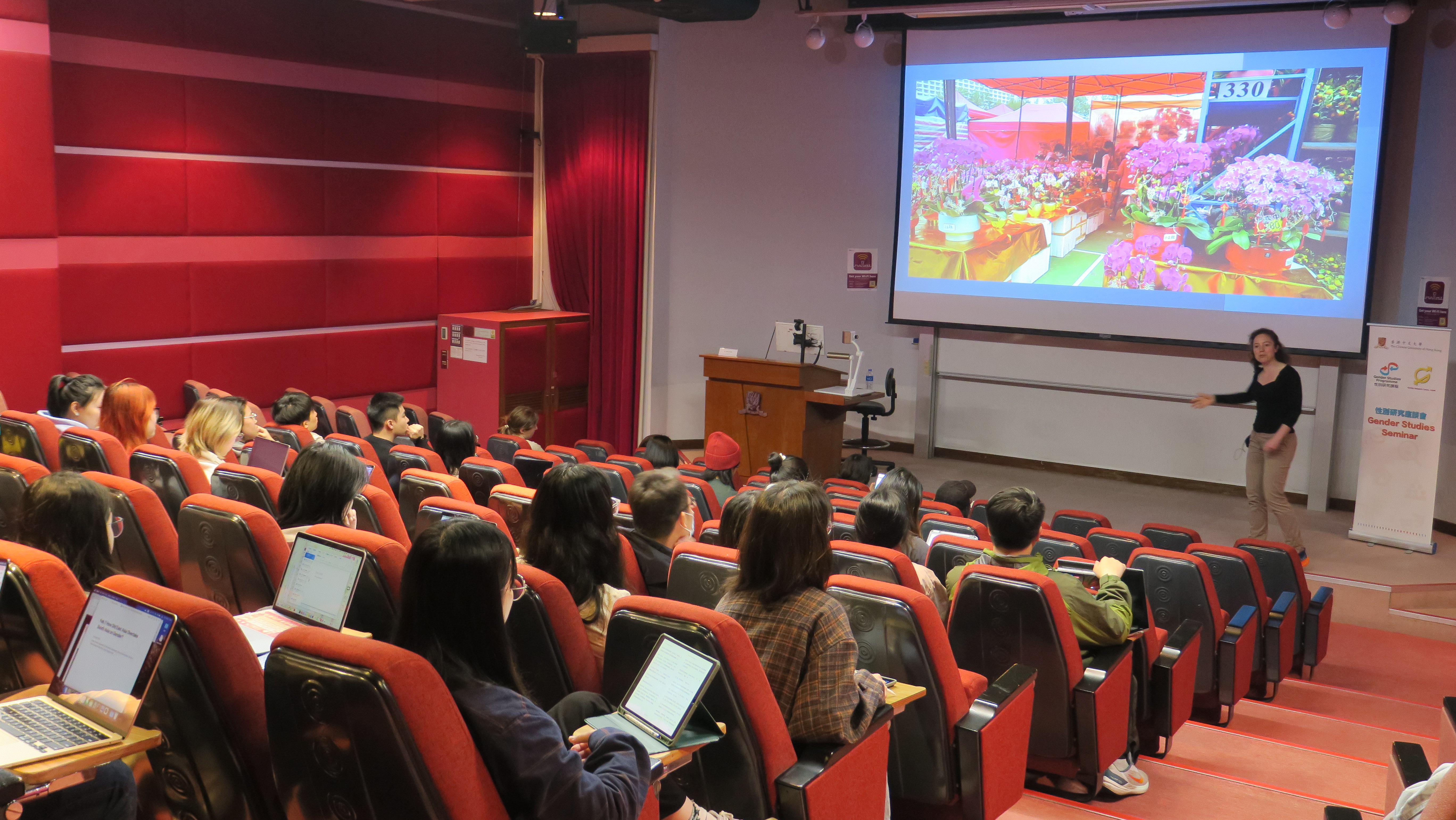 |
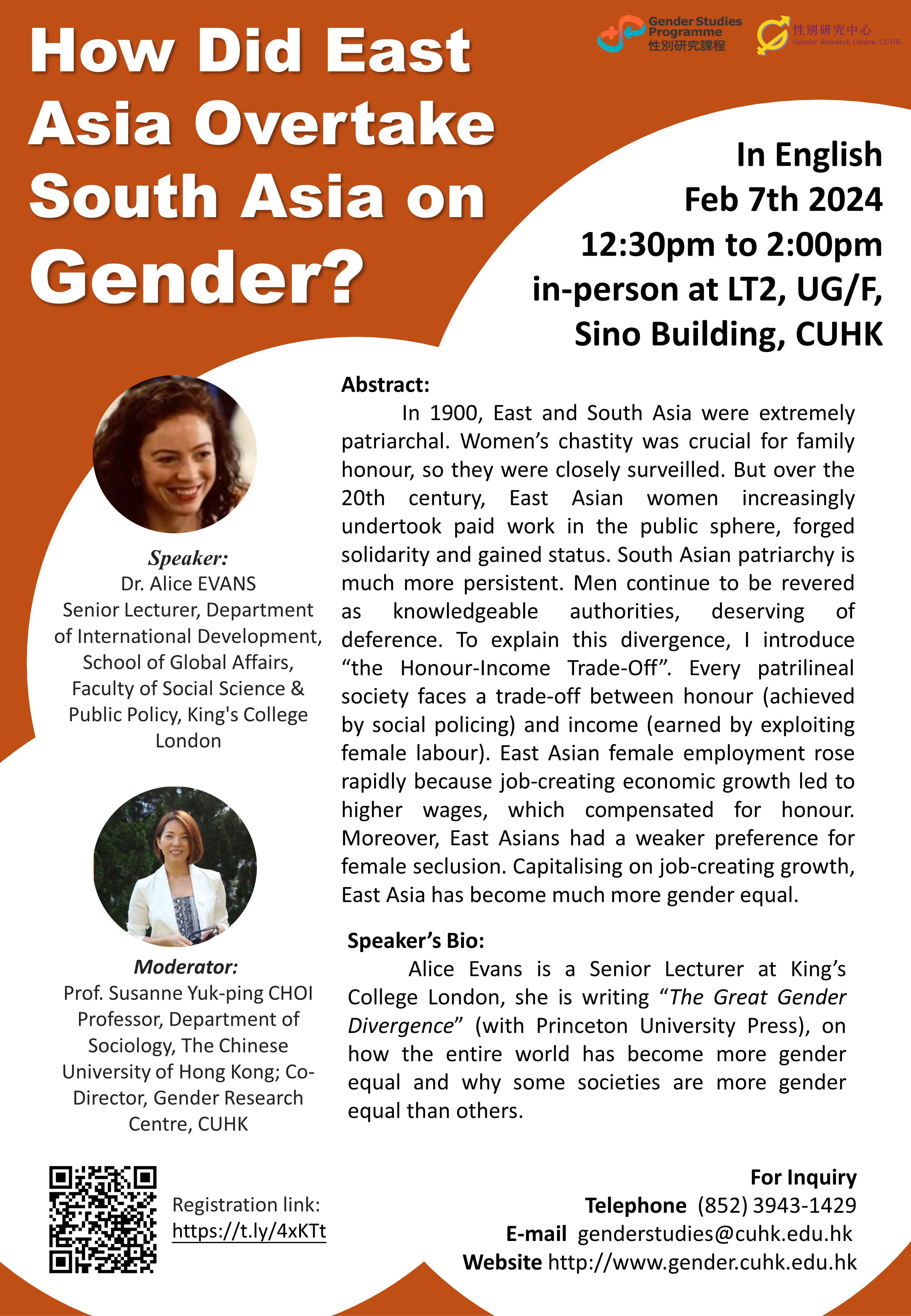 |
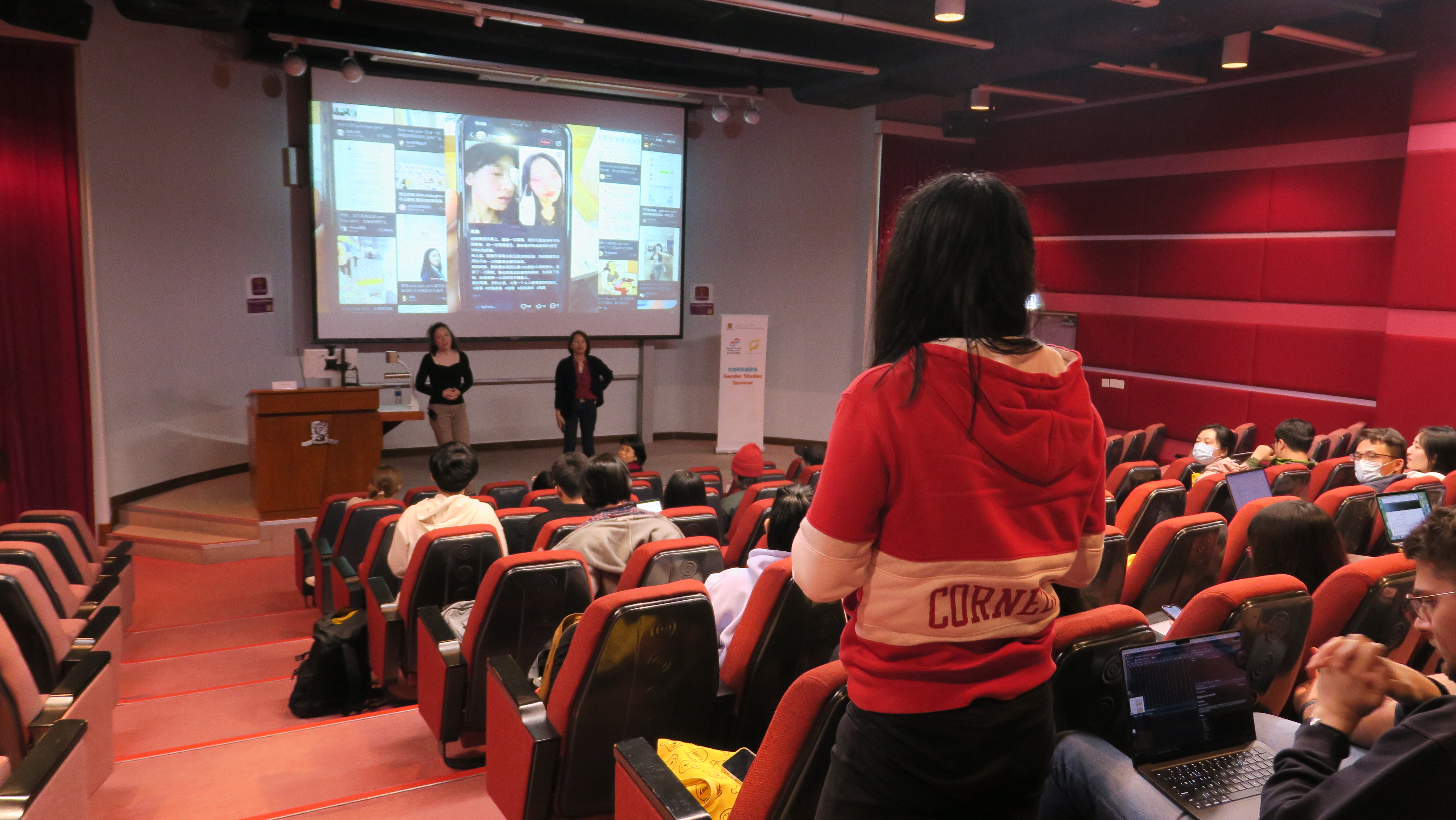 |
Both East and South Asia are polarized patriarchal societies, whereas over time, women in East Asia have begun to engage in paid work in the public sphere and have gradually gained a higher social status in comparison to the South Asia. Dr. Alice Evans introduces an essential concept “the Honour-Income Trade-Off”. Based on this concept, the reasons for gender divergences in East and South Asia can be categorized as follows.
On the one hand, there is relatively limited attention to female segregation in East Asian families compared to South Asian families. Therefore, women have seized the opportunity of rapid industrialization to obtain job opportunities, gaining an economic income outside the family and achieving the first step towards independence, which has liberated them and raised their social status. East Asian countries are realizing that women are the best labor force, which has led to large-scale employment of women, then women's self-reliance has brought about a mental and material shift away from traditional thoughts.
On the other hand, progress towards gender equality has been much slower in South Asia. The cultural traditions in South Asia are difficult to break through, as women are constrained to marry early and stay at home due to the strict constraints of men's families, social networks, and religion. At the same time industrialization in South Asia has not created enough employment opportunities, women rarely go out to work. The overall economic development in South Asia is slow and women's income is limited by caste restrictions that do not compensate for cultural preferences.
The seminar used a new lens to explain the differences in gender equality between East and South Asia, with cultural and economic differences contributing to a very different picture. As a woman in an East Asian context, I have clearly felt this transformation over the years. It is imperative for women to break free from patriarchy to create economic opportunities and empower us.
Written by: CAO, Jun
This lecture is titled How Did East Asia Overtake South Asia on Gender? Dr. Evans introduced the phenomenon that East Asian society shows more gender equality than South Asia with some possible factors by illustrating statistics data and charts.
First, Dr. Evans introduced one concept of the Patrilocal Trap of Asian society. She pointed out that South Asia remains a higher level of family-based social structure than East Asia, and held several examples to support her viewpoint, including the difficulty of getting a divorce, the different methods of class mobility, and the fact that elite women gave up labor ability by restrictions such as heavy suits and foot bonding.
Second, another model concerning the Honor-Income Trade-Off was shown to discuss how the impact of individual labor under modern manufacturing mode reacting to traditional social culture. One basic idea is that the more economic profits female labor could take back home, the better status and mentality women get, though this model still be influenced by solid cultural structure. Dr. Evans harbors the idea that the strong belief in religions resulted by stable ranks in South Asia can make people there pay more attention to Honor for ending in afterlife paradise instead of money even if they're poor, thus the attraction of income can be very weak to people in South Asian areas.
At last, Dr. Evans demonstrated graphs and charts to give statistical data to discuss how cultural liberalization beat economic development in South Asia, obviously, East Asian society is comparatively a place that has more free class mobility, more individual initiative without religious restrictions but only loyalty to the Ruler. This made East Asian women become more valuable in contemporary economic activities, and it may explain why East Asia can overtake South Asia in gender equality, which is also the key finding helping listeners to understand more about Asian gender normativity from a social perspective.
Written by: CHEN, Liqi
在2月7日的週三性別研討會上,來自倫敦大學國王學院的高級講師Alice Evans介紹了她的著作《性別大分化》(The Great Gender Divergence)中的一個章節:“東亞如何在性別上超越南亞?”
大約在1900年,東亞和南亞都屬於極端的父權社會,二者都陷入從夫居的陷阱(The Patrilocal Trap)中。婚姻的作用在於維繫和鞏固可信賴的商業和合作網絡,通過包辦婚姻,並要求女性侍奉丈夫、孝順公婆、從一而終,東亞和南亞家庭賴以生存的社會關係網絡得以鞏固。但在20世紀,東亞逐漸克服了從夫居的陷阱,越來越多的女性在公共領域從事有償工作,建立團結並獲得地位。然而,南亞的父權制更為頑固,男尊女卑、性別歧視和暴力仍是常態。
對此,Alice基於文獻研究法,以及她在東亞與南亞的定性訪談和田野調查的發現,引入了“名譽-收入權衡”(The Honour-Income Trade-Off)來解釋東亞與南亞在性別平等程度上的差異。Alice認為,每個父權制家庭都面臨著名譽(通過社會監管實現)和收入(通過剝削女性勞動力獲得)之間的權衡。男性希望通過各種形式的社會監管將女性隔離在家,以限制她們的經濟獨立並確保女性的貞潔,從而維持自己受人尊敬的權威地位和家庭名譽。然而,對女性的監管和隔離越多,家庭就越不能剝削她們的勞動力以換取經濟價值。因此,儘管社會理想是讓女性留在家,但有的家庭為了填補收入可能會選擇讓女性出去工作。然而,這必須與潛在的名譽損失進行權衡。Alice發現,受到經濟增長和文化的影響,東亞和南亞在名譽和收入之間所做出的權衡存在顯著的差異:南亞更注重監管和隔離女性;而東亞對於隔離女性的偏好較低,家庭更願意女性外出工作以換取收入。
Alice認為,東亞與南亞不同的社會文化背景是導致它們在名譽與收入權衡上存在差異的一個重要因素。這主要體現在不同的社會流動性,以及對物質和宗教的不同關注上。Alice將中國的科舉制度與印度的種姓制度進行比較,指出在以中國為核心的儒家文化圈中,統治者為了削弱世族的勢力以鞏固皇權,誕生了科舉制度這種相對公平的選拔機制,不論出身貧富,只要是熟讀儒家經典的男性均有機會通過考試來獲得地位和榮譽,這加強了社會流動的循環,人們相信能夠通過自己的努力來改變未來。因此東亞的文化更加關注當下的物質繁榮和成功。為了獲得更多財富,東亞家庭並不想將女性限制在家,而是傾向於讓女性外出工作掙錢。然而在南亞,種姓制度是一個嚴格的等級制度,人們的社會地位主要由出生所決定,幾乎沒有社會流動性。因此南亞的文化側重於宗教,人們相較於今生今世的物質繁榮更加關注神明、天堂和來世,嚴格的社會監管以及經濟激勵的缺乏使南亞女性更多的被隔離在家。
此外,Alice指出東亞與南亞不同的經濟發展水平也是導致名譽與收入權衡存在差異的重要原因。20世紀東亞工業化迅速發展,對勞動力的需求非常旺盛,經濟增長帶來了更高的工資,這增加了東亞家庭,尤其是農村貧困家庭限制女性的機會成本。此外,東亞由於結婚年齡較晚,有大量的未婚女性可以同時被雇用,這種同步效應有助於東亞家庭克服對名譽損失的擔憂,因而更加願意利用女性勞動力來應對新的經濟機會。
Alice強調,經濟發展本身可以鼓勵文化自由化。東亞經濟的快速增長促進了文化自由化,幫助東亞克服了從夫居的陷阱,進一步推動了性別平等。收入的增長以及從農村到城市的遷移削弱了東亞家庭對親屬關係網絡的依賴,女性不再以家庭為中心,可以自主決定生活方式而不用與夫家住在一起。婚姻的意義已經從鞏固可信賴的人際網絡轉變為尋求幸福,人們對離婚的接受度大大提高。名譽越來越多地以經濟上的成功而不是儒家思想來定義,收入更加受到重視,東亞女性優先考慮經濟獨立,父母也越來越依賴女兒經濟上的支持。隨著越來越多的女性進入職場並掌握話語權,她們在社交媒體、影視作品等領域公開倡导性別平等,抵抗父權,譴責暴力,推動新的文化理念。然而南亞由於經濟發展緩慢,家庭依然嚴重依賴親屬網絡,女性收入低微而不能彌補名譽的損失,所以她們依舊被隔離在家,深陷在從夫居的陷阱中。
Written by: CHEN, Peiwei
Alice Evans教授的本次講座內容是關於東亞與南亞地區的性別問題。她的研究包含了縱向與橫向兩個維度,在橫向時間軸維度上,她闡述了東亞與南亞的性別狀況是如何變化與發展的,並探討了背後蘊含的社會文化根基;同時,她通過縱向比較兩地區的社會現狀,指出隨著經濟的發展,東亞已在性別平等問題上超越南亞,取得了巨大進步。
儘管國家之間的社會習慣和文化習俗存在差別,但是亞洲地區因緊密的地緣關係和強勢的父系權力結構,不約而同地形成了“父系地方陷阱/圈套”(the patrilocal trap)。具體表現為,在東亞和南亞的父系社會權力結構下,婚姻是完成從父權到夫權對女兒的權力支配的重要手段,女兒在結婚前後分別隸屬於父親和丈夫。“家庭”是維持男性對女性壓迫的最小單位,維護家庭穩固是女人的道德責任,即使隨著社會發展,東亞與南亞地區的女性結婚年齡有所推遲,但無論婚前婚後,她們都囿於家庭,離婚在某些地區仍然不被允許。
在南亞社會,人的出身決定了其所在的社會階層,幾乎無法改變,如印度的種姓制度,在階級如此固定的社會背景之下,宗教發揮了作用,人們改變今生無望,因此將希望寄託於來世,男女恪守宗教準則,以期死後能上天堂。東亞社會如中國,雖有士農工商的階級劃分,但男人們可以通過科舉制度考取功名,在今生用教育實現階級躍遷,但女性自古被排除在這種社會制度與生活之外。
在上世紀90年代,東亞社會經濟迅速發展,大量工廠建立,對勞動力的需求急速增加,女性開始積極參與社會生產。經濟發展與文化開放的博弈在兩個地區顯示出了不同的結果。東亞社會對金錢的看重使得東亞家庭認為只要女性的勞動能為家庭帶來收入,便無需限制她們勞動(the honour-income trade-off);而在南亞社會,文化的保守壓倒了經濟效益,女性仍然被限制參與經濟活動。因此,東亞社會中女性勞動參與率和收入提高,離婚率上升,性別更加平等,而南亞社會與此相反,在印度南部地區,丈夫對妻子的家暴仍然普遍且被視為正常。
Written by: DU, Qiongxuan
Fall 2023
Co-presented by: Gender Studies Programme, Gender Research Centre & Sexualities Research Programme, The Chinese University of Hong Kong
29 Nov 2023 (Wed) Online Sexual Harassment, Harm and Relationality
 |
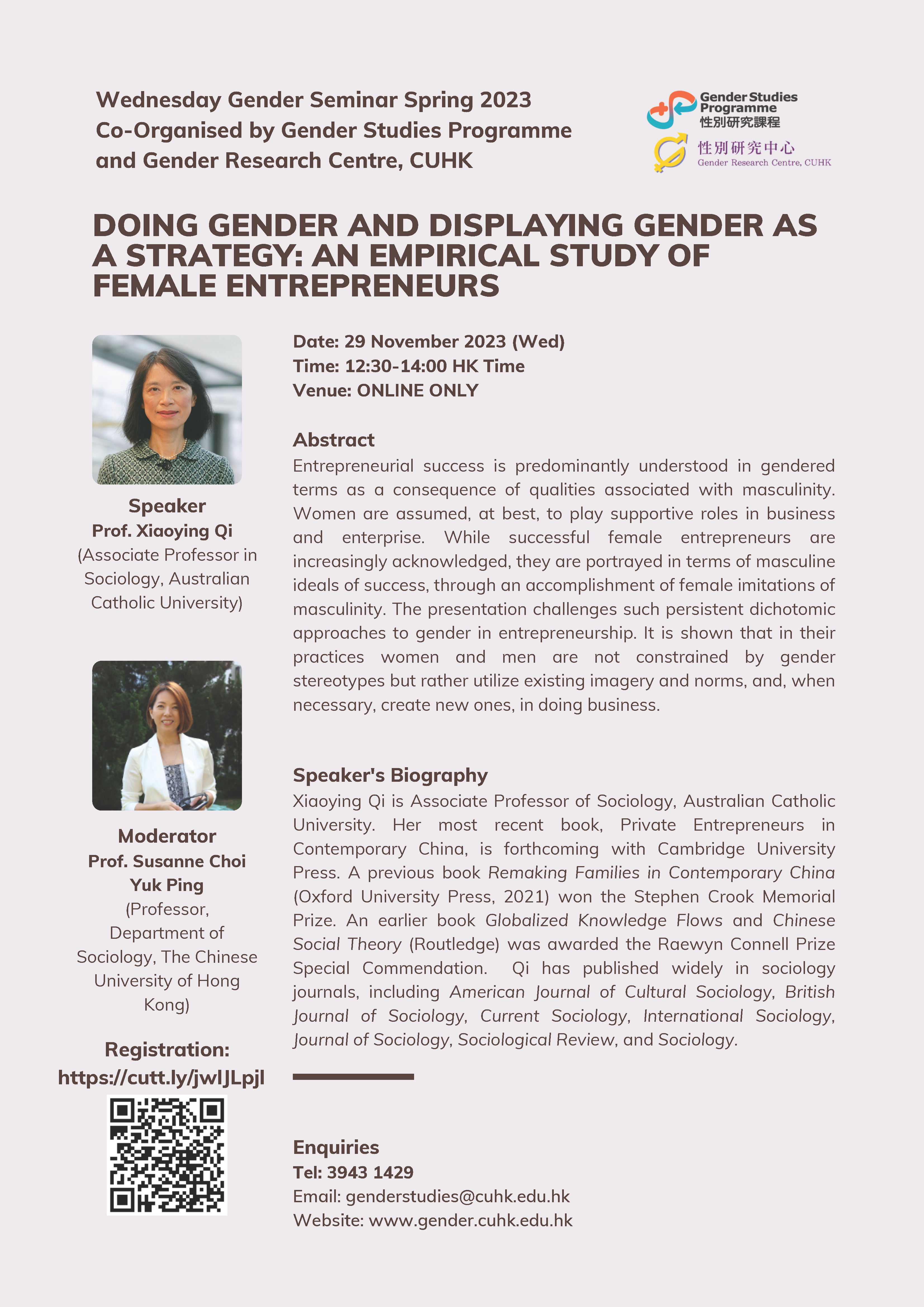 |
 |
In the Wednesday Gender Seminar, Prof. Qi shared her findings that women in business and entrepreneurial areas tend to have the flexibility to perform and display gender roles, which could be studied as an inspiration for the possibility of decoding gender dichotomies. Qi brought up many examples of female entrepreneurs who had to obtain masculine ideas and rebuild themselves into more manly figures to gain trust and support in the business world. In this way, female identity is not constrained by the original gender itself but is determined by how one displays gender to present her identity. That is, identity is not what an individual has but the way the individual acts based on her willingness to be accepted by society in what way and what role she wants to play in the league, and how she reacts to social regulations and external impacts on her determination on doing what gender. For me, although female entrepreneurs behave as masculine figures who need to be tough, decisive, and manly, they, to some extent, are still different from male entrepreneurs. It’s the stereotypical social norms that label females as being sensitive and caring, so female leaders always have extra responsibilities to care for male workers’ mental stability and judging voices from women's communities. On the one hand, the increasing number of female entrepreneurs provides cases for both males and females to break out from the dichotomy in gender and social roles and recognize individual ability in performing personal gender roles according to self-preference instead of being restricted by society. It can expand the persona potential in different fields and also energize organizations to have new blood.
On the other hand, I think the masculine display of female entrepreneurs somehow remains and solids the gender role binary. Suppose entrepreneurial success needs to be before masculinity. In that case, it reversely admits that only masculinity can make quick decisions, design business plans, deal with financial issues, obtain leadership, and be trusted by other supportive roles. While females have to pretend or turn themselves into masculine to shift their supporting roles into dominative positions, it somehow places femineity and masculinity on the two sides of a scale. It ignores any conversations about the third possibility in gender roles and has already accepted the unfair social status between males and females determined by the patriarchal society. I cannot see any progress in this way of doing gender. But there’s no doubt that the more female entrepreneurs we have, the more considerable decisions can be made. As mentioned before, females’ gender responsibility is seldom removed when they replace males in the business field. Families and caring are still attached to female identity.
In conclusion, Prof. Qi thoroughly introduced what female entrepreneurs are, how they do and display gender, and what it means in the long term. I think we can have further conversations on whether female entrepreneurs can get rid of females’ domestic gender roles by being masculine in the business area and how to define women as entrepreneurs while spending time caring for families.
Written by: ZHANG, Yingzi
In the general cultural sphere, entrepreneurship is widely characterized as a male rather than a female activity. A field such as entrepreneurship, which is charged with economic power, social authority, and organizational authority, is gender stereotyped as masculine. Masculine and feminine ideals of success produce a gendered dichotomy of perceptions of entrepreneurial success. In family businesses, it is commonly believed that women only have supporting and subservient positions while men take on leadership roles.
However, Prof. Qi's fieldwork shows that the real situation is much more complex than generally presented. The various practices engaged in by women entrepreneurs have been neglected in the literature. Her research demonstrates that women entrepreneurs do not necessarily follow traditionally prescribed gender roles but strategically navigate cultural norms. Thus finding what they believe to be the optimal outcome for their businesses and families.
On the other hand, while successful female entrepreneurs are increasingly recognized, their portrayal is often associated with a masculine ideal of success, thus postulating a female imitation of masculinity. However, Prof. Qi's presentation challenged the gender dichotomy in entrepreneurship. While it is true that businesspeople display gender, the reasons do not form the basis of the gender dichotomy as is often assumed. This display is subordinate to and serves the purpose of business success for women entrepreneurs. They tend to be strategic in demonstrating roles that correspond to the cultural meanings of gender. Aware of the implications of gender beliefs, their situational relevance and impact on customers. Entrepreneurs do not blindly follow expected roles but rather demonstrate gender roles that are appropriate and in the best interest of their business by sensing their clients' expectations. Entrepreneurs may actively demonstrate and implement gender in their practice to optimize the outcomes they seek. And they think in doing so, the construction of gender selves undergoes modification, elaboration, and instrumental mobilization.
After participating in this presentation, I also reflected a bit on the gender strategies of women entrepreneurs in doing business. For a long time, people have been obsessed with the gender dichotomy in entrepreneurship but neglected the subjective initiative of women entrepreneurs. This presentation allowed me to learn about their gender strategies and strategically navigate cultural norms.
Written by: ZHANG, Zheting
As Prof. Qi mentioned in her presentation “Female entrepreneurs do not necessarily follow conventionally prescribed gender roles but strategically navigate cultural norms finding what they regard as optimal outcomes for their business and also their family.” In traditional gender norms, society expects women's role to be that of a good wife and mother, responsible for taking good care of her husband, children, and family. Nowadays, more and more women are strengthening their social roles and values through successful entrepreneurship. In conventional wisdom, the opposite of women's career success is the dilution of women's family roles, which has led to the emergence of terms such as "superwomen" and "tiger girls". Prof. Qi has shown through her research that female entrepreneurs are not necessarily required to be 'tiger girls' to achieve business success. Business and family are not necessarily opposed to each other but rather can support and enriching each other. For female entrepreneurs, they have the right to choose whether to realize their self-worth in entrepreneurship or in taking care of their families and can balance the conflict between their families and their careers to achieve a win-win situation.
Prof. Qi also mentioned while successful female entrepreneurs are increasingly acknowledged, the portrayal of them is typically associated with masculine ideals of success, thus postulating a female imitation of masculinity. She challenged persistent dichotomic approaches to gender in entrepreneurship. Entrepreneurs may actively display and perform gender in their practices to optimize the outcomes they seek. Female entrepreneurs display their gender identity not to gain recognition by mimicking masculinity, but to gain business benefits by displaying gender roles that are appropriate and in the best interest of their business. This proved that female entrepreneurs behaved strategically in displaying roles that corresponded to gendered cultural meanings. We should not define leadership in terms of gender, there are far more differences between people than those brought about by gender. Female entrepreneurs also have strengths such as holistic, empathetic, and resilient. Female entrepreneurs engage in gender strategies in doing business that challenge gender stereotypes and the gender dichotomy in entrepreneurship.
Written by: ZHAO, Kaiyu
In the lecture Doing Gender and Displaying Gender as a Strategy: An Empirical Study of Female Entrepreneurs, Professor Xiaoying Qi discussed the gender strategies presented for female entrepreneurs in China.
Entrepreneurship is widely perceived as a male rather than a female field of activity. Influenced by the stereotype, people believed that entrepreneurship requires typical masculinity. Constrained by the gender division of labor and role expectations in society, women are assumed to play only supportive and subordinate roles in family businesses, creating dichotomic approaches to gender in entrepreneurship.
But the author’s empirical findings suggest that female entrepreneurs do not necessarily follow traditionally prescribed gender roles, but rather strategically follow cultural norms and seek the most beneficial outcomes. For example, Mrs Tang did not choose to inherit her parents' company, but rather established her own. This approach avoided a breach of family norms and challenging her father's leadership position. In this way, women entrepreneurs like Mrs. Tang are able to navigate cultural norms and thus escape role expectations that limit their ambitions.
Moreover, successful female entrepreneurs are not necessarily required to be “tiger girls” in order to achieve business success. The new generation of entrepreneurs isn't just concerned with competition, profits, etc. in the traditional entrepreneurial framework. Business is just a part of life but not everything. Accordingly, business and family are not necessarily opposed to each other, but rather are capable of supporting and in reaching each other.
Finally, entrepreneurs strategically behave in displaying roles that corresponded to gendered cultural meanings. They don’t necessarily behave in a gender-compatible way or follow expected roles blindly. They put on a display through the prism of perceived customer expectations and in the best interests of their business.
This study challenges the dichotomic approaches to gender in entrepreneurship. And it reveals that while business people do engage in displaying gender, such displays are subordinate to and in service of the purpose of the business success.
Written by: ZHU, Huiying
18 Oct 2023 (Wed) Online Sexual Harassment, Harm and Relationality
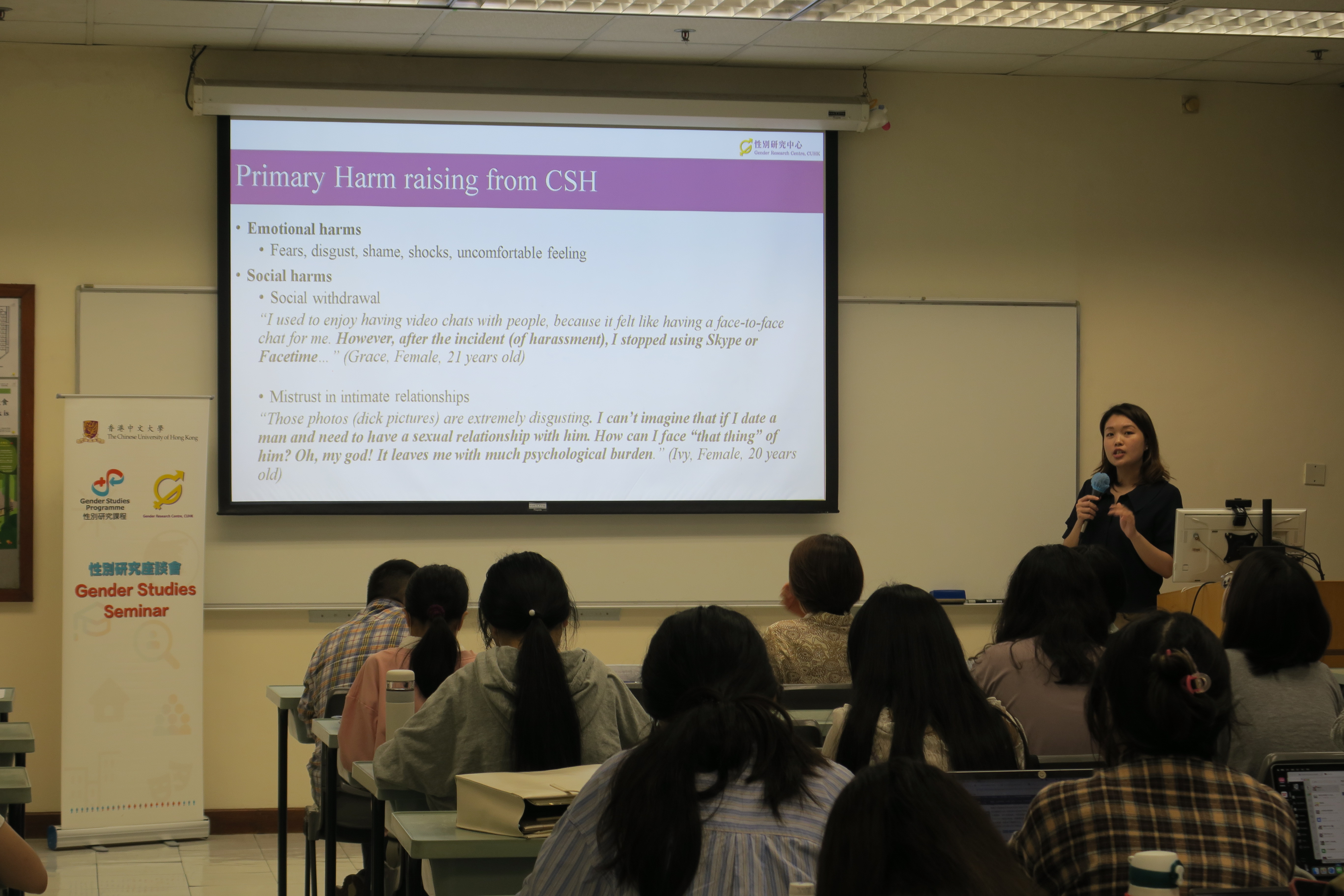 |
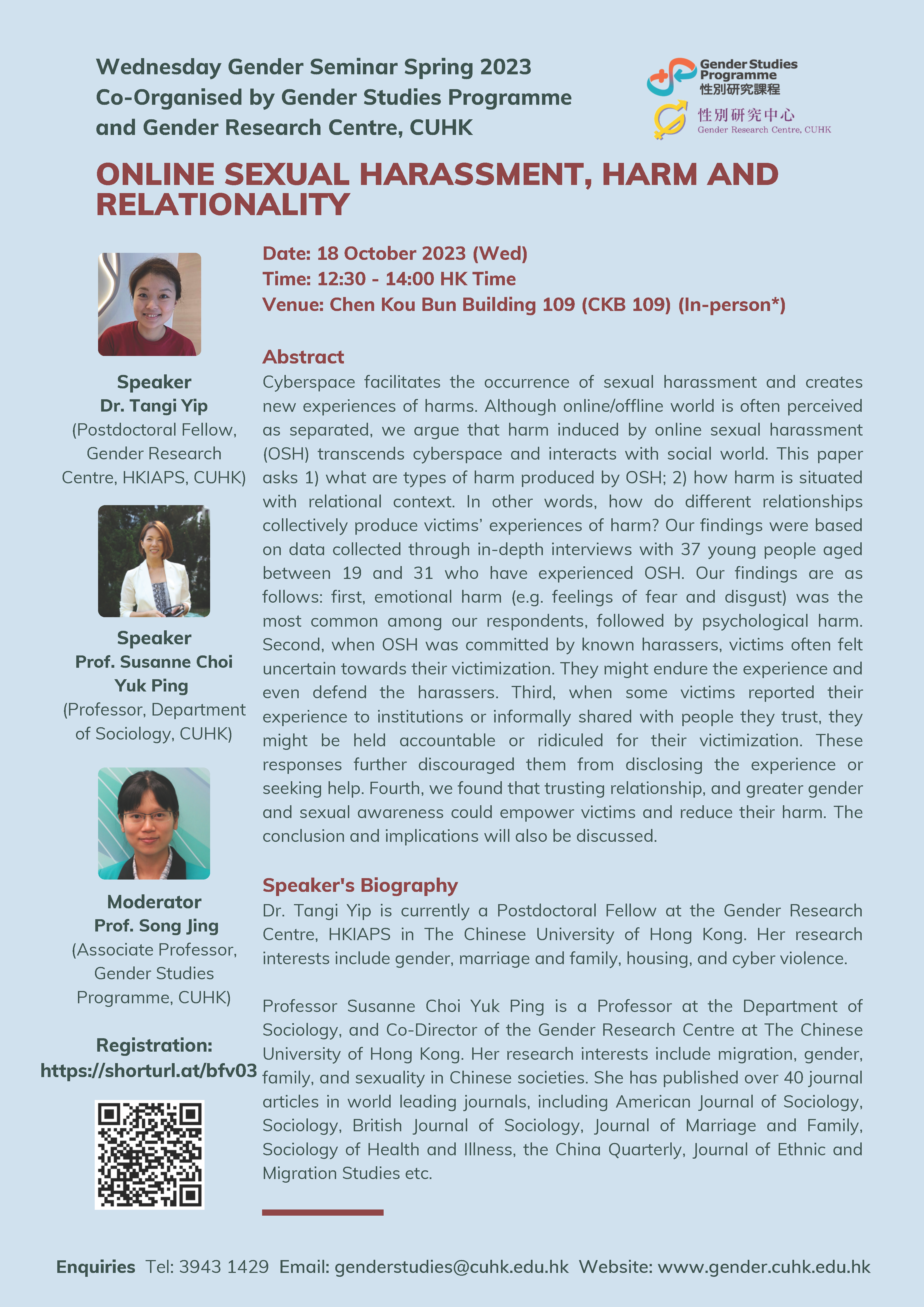 |
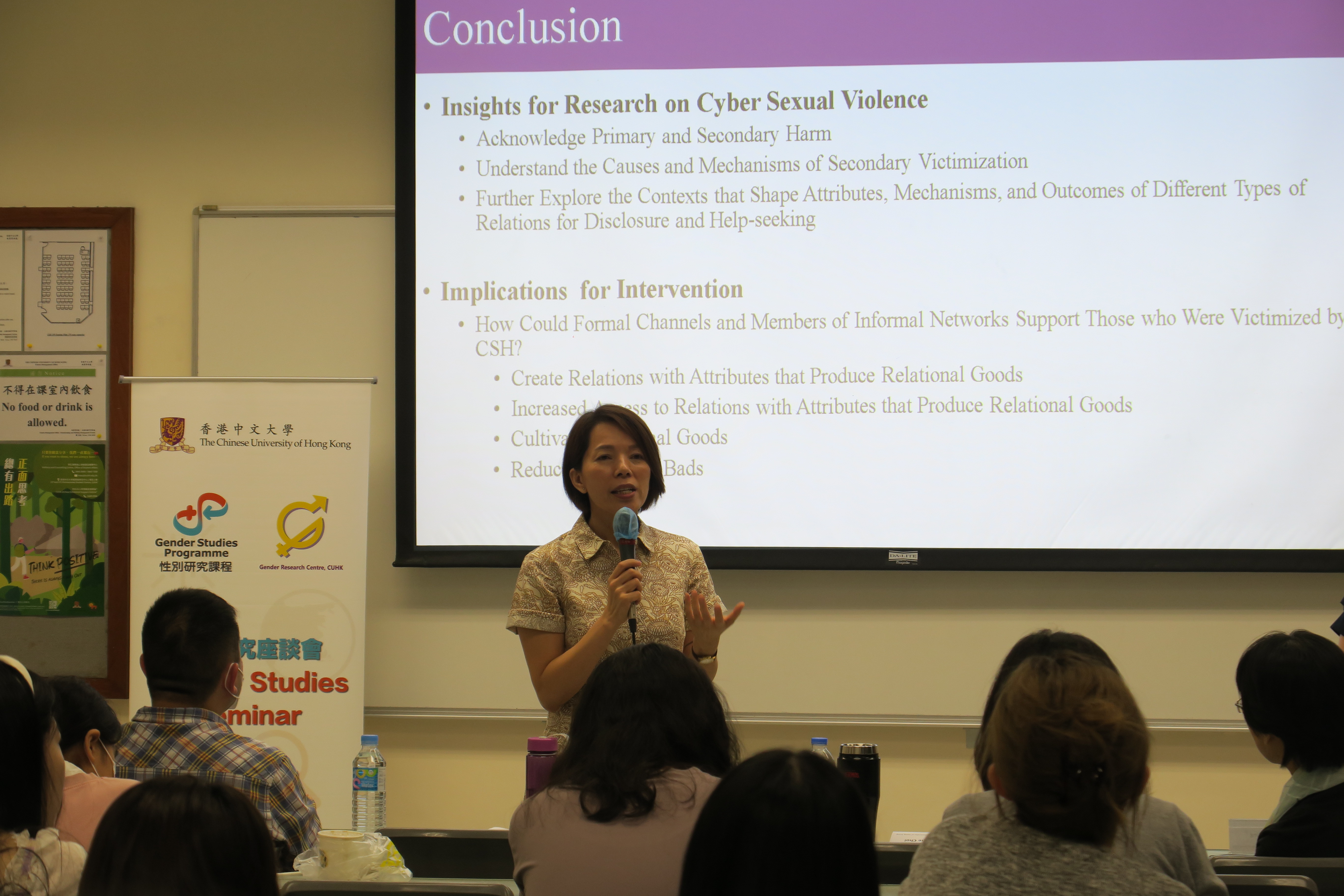 |
The article, Online Sexual Harassment, Harm and Relationality, shared by Dr.Tang Yip and Prof, Susanne Choi Yuk Ping mainly talked about whether different relations provide empowerment or secondary victimization for people who have got online sexual harassment.
Leading with the example of Emma, whose private sex Video was shared without her consent and who then sought for help in many ways and got different outcomes, this article explored why did some relationships produce different outcomes and how did they are produced after disclosure?
Authors recruited interviewees from universities mass mailing platform and a gender research centre’s social media, finally in-depth interviews with 37 young people having different genders, sexual orientations, working status and education levels.
Firstly, online sexual harassment is a pressing issue of sexual violence and globally. And such harassment would bring primary harm, including emotional harms and social harms and emotionally secondary harms.
Then, Disclosing and help-seeking is a complex decision that depends on many factors, such as the type and severity of the harassment, the identity of the harasser, the availability of resources and the relationship with the informal network member. Relationships in this article included that with online platforms, with online forums, with police, with peer, with close friends, with intimate partner and online support group, etc.
Many cases are involved and outcomes varied. In this article, they were divided into three parts, secondary victimization, empowered and ambivalence.
This article presented a culturally relevant framework for relationships that takes relational attributes as a starting point and then categorizes the outcomes they produce into goods and bads, with the former ultimately leading to empowerment and the latter leading to secondary victimization, and intersecting at ambivalence one.
Aside form the knowledge related, it also provided some suggestions about the implications for intervention according to the framework.
Written by: WANG, Junjie
The speakers first used a respondent's story to reveal Cyber Sexual Harassment as an emergent global problem, which is causing much harm to victims. After summarizing findings from existing studies, they found the gap of offering limited explanations about why some relationships empower and others result in secondary victimization during the process of help-seeking. Thus they wanted to figure out why did some relationships produce positive outcomes and empower victims after their disclosure whereas other relationships result in secondary victimization.
The researchers conducted in-depth interviews with 37 young people in Hong Kong between 2021-2023. The data shows primary harm and secondary harm raising from Cyber Sexual Harassment, which includes emotional harms and social harms, and different outcomes of victims seeking help from police, legal profession, online forums, peer, intimate partner and so on. The researchers built a culturally sensitive relational framework to explain how positive and negative outcomes were produced, that is, different relations with different attributes, for example intimate vs. distant, produce relational goods and relational bads, for example trust and mistrust, which then result in different outcomes, including empowerment and secondary victimization and ambivalence between them.
The research helps acknowledge primary and secondary harm and provides insights for understanding the causes and mechanisms of secondary victimization and further exploring the contexts that shape attributes, mechanisms, and outcomes of different types of relations for disclosure and help-seeking. The research also offers implication for intervention to support those who were victimized by Cyber Sexual Harassment, including creating or increasing access to relations with attributes that produce relational goods, cultivating relational goods and reducing relational bads.
Written by: WANG, Xiaoqing
With the development of technology, the broader concern is how technology will transform gender relationships, but then narrow concern is about the impacts of technology on new forms of sexual violence. Women, men, and the LGBT community are all at risk of being subjects or victims of sexual violence. This topic is about empowerment or secondary victimization, relationality and disclosure of cyber sexual harassment (CSH) . Sexual violence includes unwanted and offensive sexual messages, videos, text or or solicitation. For example, images, text and videos being shared without your consent. It is a problem that occurs frequently across the globe, and women are more likely to be victimized than men, but the percentage of men who are sexually harassed is not small, being 9.8%. However, these data are not representative of the total number of victims, as some victims do not report that they have been sexually harassed out of fear of secondary victimization on the Internet, such as stigmatization. Instead, they tend to seek informal channels to seek help and support from female friends, especially those who have not disclosed their sexual orientation to their families. Compared with sexual harassment committed offline, CSH has some distinctiveness, like the unbounded nature of the virtual world.
The reason why victims turn to a female friend is that families tend to produce
more negative outcomes than female friends. Primary harm raising from CSH includes emotional harms, social harms and emotional secondary harms. Social harms include social withdrawal and mistrust in intimate relationships. Secondary victimization can be caused by many relations, not only formal and informal. Online platforms lack sensitivity and awareness of online sexual harassment, normalize CSH and ignore complains from the victims. For the police, some victims say they don’t trust them because the police may undermine the nature or disability of online sexual harassment. The police also make victims felt disrespected and lack tangible outcomes. The expensive cost and economic barries in taking legal actions discourage victims from taking legal actions. Other reasons like online forums, peer presure and relationship between victim and neighbors can also cause victim’s fear of secondary victimization. When facing this, close friends and intimate partner should trust the victims and give them material and emotional support, also they can provide guiudance on handling online sexual harassment. And in other circumstances, online support group offer a safe and non-judgmental space for victims to speak up.
We should acknowledge primary and secondary harm and understand the causes and mechanisms of secondary victimization. For those who were victimized by CSH, we can create relations with attributes that produce relational goods. They need us to give them respect, trust and equality.
Written by: WANG, Zijie
Cyber Sexual Harassment (CSH) is an emergent global concern, encompassing various forms of online sexual violence such as unwanted sexual advances, unsolicited explicit content, and the non-consensual sharing of sexual messages/images on social media and other online platforms. CSH shares similarities with offline sexual harassment, but it also exhibits distinctiveness. For example, online anonymity enables perpetrators to commit violent acts without revealing their identities. Moreover, the connectivity and longevity of social networking sites (SNS) make CSH a collective and limitless form of victimization. Consequently, the embodied harms of CSH are real, serious, and even more depressing both psychologically and physically.
Many CSH victims opt not to report their experiences or are reluctant to seek help due to concerns about potential secondary victimization, such as blame, stigma, or community reprisal. However, disclosing CSH experiences can also yield positive effects, offering victims a sense of empowerment through mental support. Therefore, it is essential to explore the factors influencing the different outcomes of disclosure. Prof. Susanne Choi Yuk Ping, Dr. Tangi Yip, and their colleagues built a culturally sensitive relational framework from the field of sociology to investigate how relations influence the outcomes of disclosing CSH experiences.
Through in-depth interviews conducted with 37 young people in Hong Kong between 2021 and 2023, the study found that CSH’s primary harms include emotional harms (fear, disgust, shame, discomfort) and social harms (social withdrawal, mistrust
Written by: YU, Mengke
11 Oct 2023 (Wed) Marriage Unbound: State Law, Power, and Inequality in Contemporary China
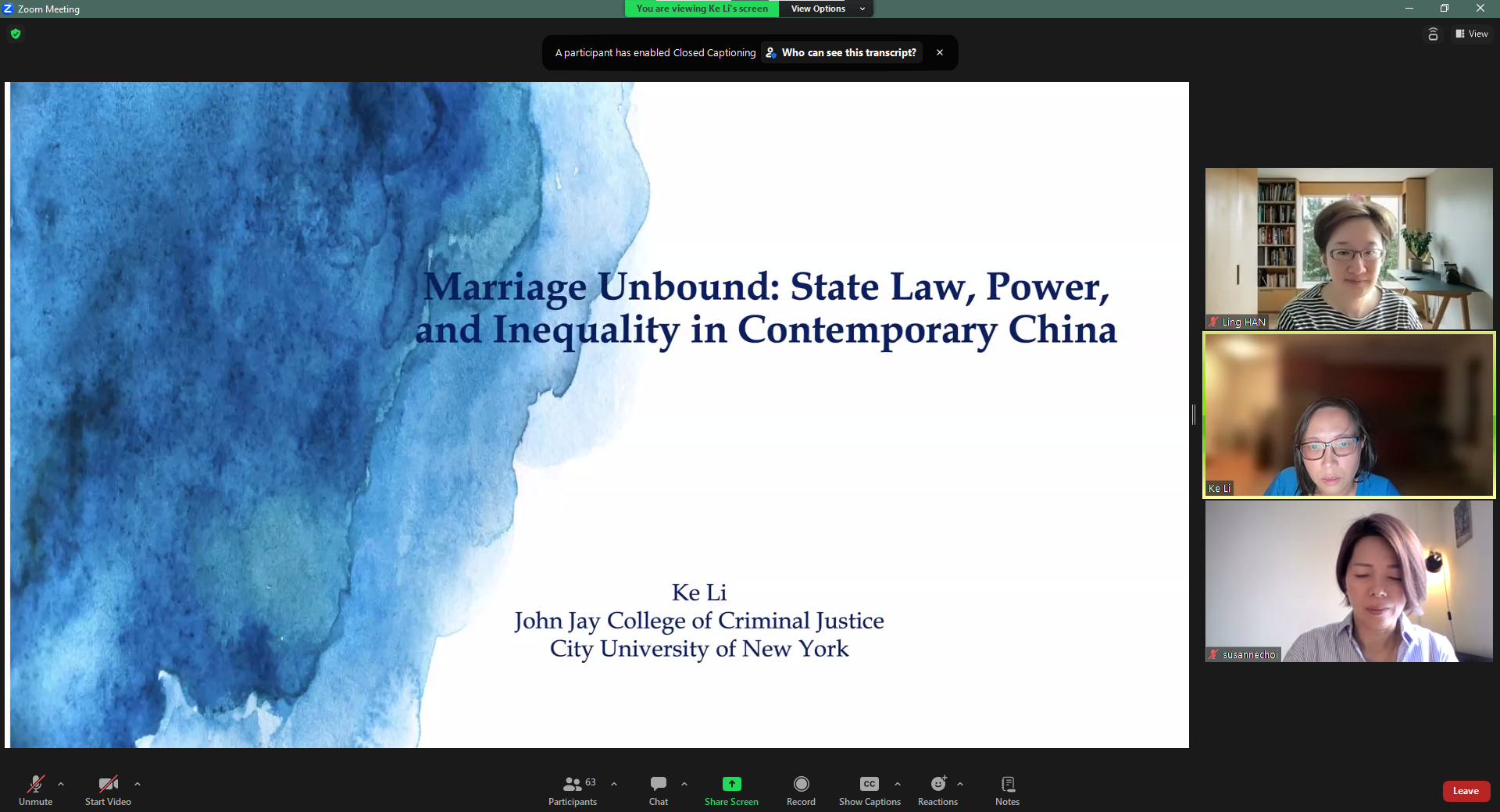 |
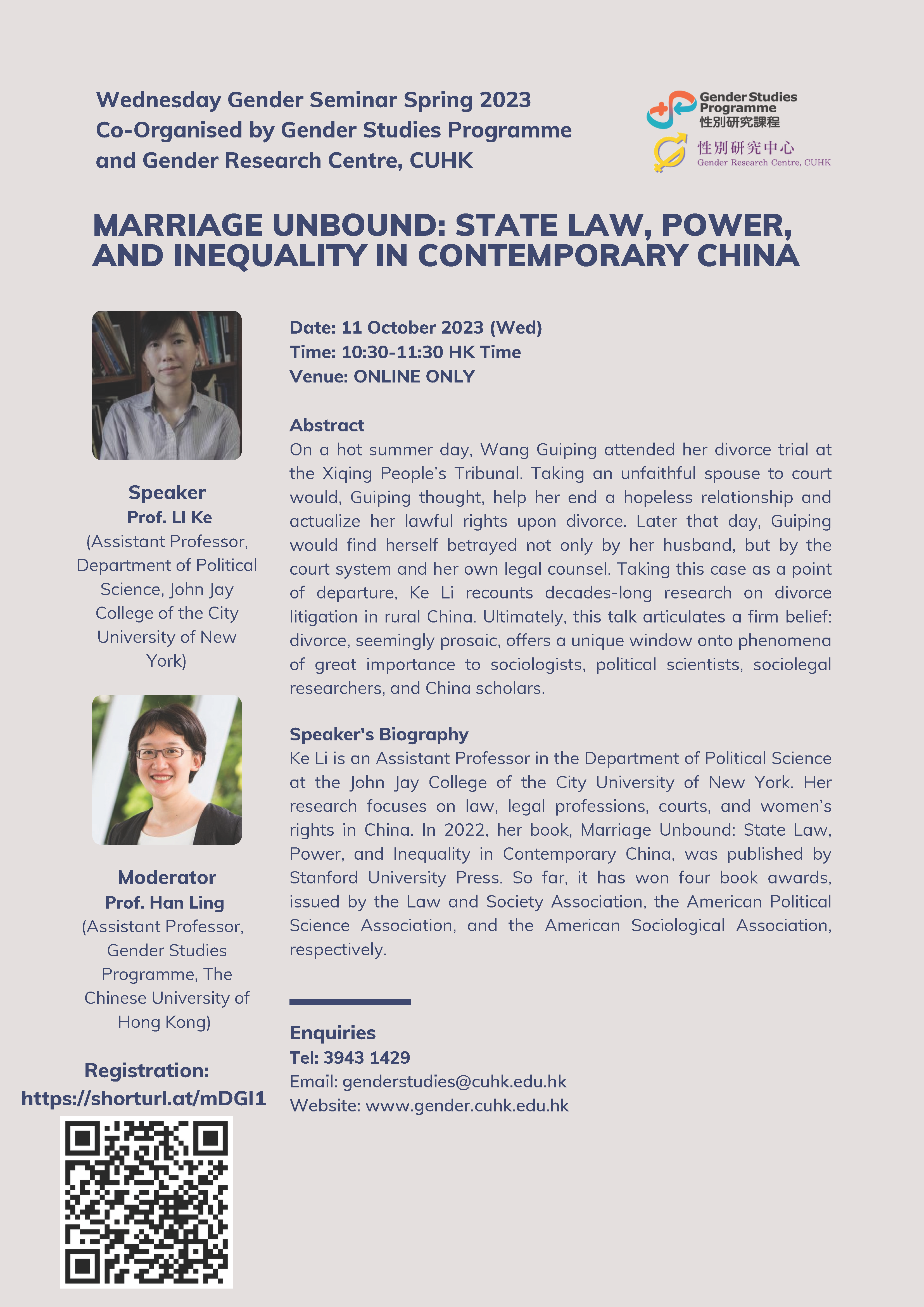 |
 |
The book Marriage Unbound: State Law, Power, and Inequality in Contemporary China by Li Ke documents rural women’s experience of pursuing divorce in the court. From the women who struggled in strained marriage, Li Ke reveals the gender unequal marriage in society, politics, and power perspectives.
In the society perspective, with the deepening of the urbanization process and the large urban-rural population movement, the marriages of farmers are deeply affected. Women they also need psychological value from partners rather than the property, which is the only criterion for men.
In the politics perspective, Li Ke discover how did the state withdraw from the private lives of citizens, intervene in citizens' intimate lives by shifting from political campaigns to judicial means. The governing methodologies changes has gone through three phases of change. In the Maoist era, the dominant mode of state intervention was mass campaigns. From 1977 to late 1990s, mass campaigns gave way to people's mediation. And nowadays, The courts have become the main forum for the resolution of litigation and the defense of the institution of marriage. Multipronged system, comprising litigation, people's mediation, letters and visit, and other official measures have also become more important. It makes the private marriage controlled by the government.
In the power perspective, dispute resolution can be interpreted in terms of interconnected power relations. It includes three ways. First, formal decision-making power means that judges have their power to determines who prevails over the conflicts. Secondly, agenda-setting power delimits the scope of entering formal judicial deliberations. In Li Ke’s research, she discovered that the divorce approval rate have been decreased yearly. Thirdly, consciousness-formation power is acted by ideological indoctrination, acculturation, and other cultural processes. The power subject instills consent and compliance in disempowered groups, leaving rights contention not only unactionable, but unthinkable. All of these aspects happen surrounding us in
China. And the function of power exacerbates gender inequality.
Li Ke's description of the unequal marriages of rural women has given me a deeper understanding of the current situation in the contemporary countryside, the political and legal constraints and inequalities of divorce. It taught me not only about the phenomenon itself, but also about the methodology from a sociological perspective. It makes me how to conduct interdisciplinary research and to think more comprehensively when considering issues from the gender perspective. Overall, I would like to pay more attention to the gender inequality of specific groups and take them in detail in the future studies
Written by: LIU, Moxuan
Today's topic focuses on sharing the content and structure of the book: Marriage Unbound: State Law, Power, and Inequality in Contemporary China. In the book, the author analyses state law, power, and inequality in contemporary China by focusing on women's divorce cases and several prominent scenarios therein. In the Presentation, the author first introduces the case of Wang Guiping's unsuccessful lawsuit against her cheating husband, and then explains the structure of the book,and the structure of the book is described and analysed by the author in the following three parts.
In the first part, the link between labour migration and marital instability, the book takes a very nuanced look at how the massive growth of the urban population over the decades has reshaped families and marriages in China. The author illustrates the dramatic rise in China's divorce rate in recent decades with a chart depicting the increase in both the number of marriages dissolved by the courts and the number of divorces granted by the local government. And then the author uses a couple's experience to reveal how labour migration complicates the intimate lives of ordinary women and men and often leads to marital dissatisfaction and even divorce. It is mentioned that in the second chapter of the book, the intricate links between labour, migration and marital instability are detailed.
In the second part of the interplay of law and politics in authoritarian state, the author explains, by taking into account the historical trajectory of the Chinese revolution, that the mass movement gave way to people's mediation, and the PRC increasingly relied on litigation to intervene in people's marital affairs, but this behaviour cannot be seen as a shift of the authoritarian regime towards the law, but rather the ruling class strategically tap into diverse cultural traditions, Such traditions include, but not limited to the country's real or imagined routes in Confucianism, the Maoist past, socialist legacies and foreign influences, including influences from liberal democracies, by weaving legality and extra legality into its ruling by mobilisation. Issues related to the development of Chinese law are further elaborated in Chapters 3 and 4 of the book.
In the third section on power, and inequality within and outside the courts in China, the authors raise the issue of inequality in family litigation and propose a power-centred framework that includes two types of power, the first being power relations, which the authors refer to as formal decision making power, and which refers to the type of power that determines who has the upper hand in resolving public conflicts and divorce proceedings. The second refers to agenda-setting power, which is the type of power relationship that limits the scope of official decision-making by excluding certain issues or certain participants from formal deliberations. The authors also illustrate the increasing rate of withdrawal of divorce proceedings through data and point out that it is explained in detail in chapter 5 of the book.
The author concludes by suggesting that by collaborating with colleagues from multiple disciplines, she hopes the book will allow readers to see the complex relationship between authority, internal rules, legal institutions, social inequality, and, of course, power relations.
In the Q&A part, the authors answer the question of whether female judges do not tend to provide more favourable outcomes for female litigants in litigation cases due to the same institutional environment, regardless of gender identity, from the point of view of social structure and social hierarchy. And from an ideological point of view, such as the political significance in the party space, ruling methodology and the idea that family explains why the state should intervene in the intimate relationships of citizens, such as the establishment of a cooling-off period from the legal point of view in order to reduce the rate of divorce from a macro point of view.
Written by: PENG, Xiaoya
Ke Li unfolded her talk along three lines. First, the linkage between labor migration and marital instability. Second, the interplay of law and politics in authoritarian state. Third power and inequality within and outside chinese courts.
First, Li discussed how rural women's participation in labor migration has reshaped chinese family and and marriage. In her perspectives, rural women's participation in the urban workforce extends their day to day interactions with men outside the home. In that sense, labor migration offers women not only the opportunity of financial independence, but fresh opportunity to reimagine and rearrange their intimate relationships. In addition, as women embark on labor migration, the traditional pattern of division of labor in the family is under attack. Many men show anxiety, jealousy, anger and even violence towards their wives, which hurts their relationship.
Then, Li discussed the evolving legal and dispute resolutionsystems in the PRC, emphasizing the regime's approach to governing and adapting. She pointed that the PRC has cultivated in multiple system for dispute management. Rather than hanging on one methodology: judicial or extrajudicial, the PRC has imbricated the two as part and parcel of its governing tool kit.This flexible approach helps them adapt to new challenges. However, it can sometimes lead to unexpected issues or consequences.
Third, Li discussed her research and findings related to power dynamics and gender inequality in the Chinese legal system, particularly in divorce cases. Li started by highlighting Wang Huiping ‘s case. Wang had to give up her property rights while her husband faced minimal legal consequences for his actions, including domestic violence and cohabiting with another woman. However, this is a very common situation. Li conducted research on 198 divorce lawsuits and found that, in the grassroots court system, women often fared worse than men.
To better understand these gender inequalities in the legal system, Li proposed a "power-centered framework". This framework includes three types of power relationships:
1. Formal decision-making power: Judges usually sided with husbands as opposed to wives in divorce cases, leading to women losing property and rights.
2. Agenda-setting power: This type of power determines which issues or topics can be discussed in the legal process. Li presented a figure which showed that Chinese judges have increasingly applied withdraw as a mode to dispose of divorce lawsuits at the beginning of this time period in 1974. In addition, lawyers often focus on property division and child custody while overlooking or ignoring complaints of domestic violence.
3. Conscious formation power: Power holders shape women's beliefs and expectations through ideological indoctrination and cultural processes. Therefore women often remain silent on their lawful entitlement to land holding.
Therefore, when these three power relationships work against women, gender inequality deepens during dispute resolution, despite decades of legal reforms in China.
In conclusion, the author suggests that looking at divorce through this conceptual lens can provide insights for sociologists, political scientists, social legal researchers, and China scholars. The book aims to allow readers to see the complex relations among authoritarian rule, legal institutions, social inequality, and power relationships.
Written by: QIN, Kaixin
In this week's seminar, Prof. Li provided us with a thorough overview of how widespread migration from rural to urban regions has changed families, marriages, and gender relations in China with the support of real-world examples.
Prof. Li begins by explaining the connection between labor mobility and unstable marriages. With the reform of agriculture, the influx of foreign investment, the development of the service economy, and the relaxation of national policies, more and more rural women have begun to migrate to the cities, mainly to work in labor-intensive industries. In addition to offering women the much-needed financial independence, labor migration poses an unprecedented threat to marriages shaped by traditional patriarchy. In the case of Yuan Yue, a migrant worker, her work outside the village triggered distrust and suspicion from her husband, and when suspicion and accusation evolved into ridicule, humiliation, and emotional and physical abuse, their marriage would come to an end.
Then, we look into the interaction of law and politics in Authoritarian States. From the mass movements of the Maoist era to the people's mediation of the socialist period to today's multipronged system, marital disputes rely more on the judiciary. However, such judicial solutions have serious limitations and pitfalls. Women from rural areas often end up losing most of their rights as wives, mothers, property owners and land users.
At last, Prof. Li uses divorce proceedings as a window, showing us how three different types of power operate - agenda-setting power, consciousness-formation power, and formal decision-making power - all of which entrench institutional practices within the courts and in the surrounding rural communities. When all three types of power work against women, gender inequality inevitably emerges and deepens in the dispute resolution process. Ultimately, rather than being a weapon for the weak, legal mobilization and litigation exacerbate and reproduce inequalities between ordinary men and women.
To conclude, this seminar provided me with an understanding of the processes, mechanisms and power dynamics that affect women's experience of disputes and litigation within and outside of the courts – women's rights are often not upheld by the regional government, the legal profession, or the justice system.
Written by: SHAO, Tianhua
On last Wednesday’s gender seminar, Li shared some intriguing cases and key findings from her book Marriage Unbound: State Law, Power, and Inequality in Contemporary China published by Stanford Press. In her talk, she started from introducing the divorcing case of Wang Guiping, a female migrant worker who came to urban area to make a living and thus lived away from her husband in their rural home. Li argued that urban lives often empower these migrant women with the opportunities to build new social connections and more space to explore different forms of intimate relationships that could hardly exist in rural China. Based on Wang Guiping’s and other rural women’s case, Li explained why increasingly more rural migrant women want to get out of unhappy marriages. She provided a detailed account of several rural women’s marital life and how their participation in labor migration causes marital tensions and extramarital affairs. Drawing on these women similar experience, Li was trying to unpack the complex relationship between labor migration and marital instability in China, particularly within rural communities. The employment of rural women in urban environments not only fosters economic self-reliance but also engenders aspirations for financial stability, personal liberty, emotional fulfillment, and a redefined intimate relationship that satisfies these aspirations.
After introducing the emerging pattern among rural women who seek for divorce, Li gave us a brief overview about how the state had used different methods to intervene in marital disputes according to its goals in different historical periods. She argued that people’s private lives in PRC were always highly intertwined with the state’s power, where the insiders of the judicial system including legislators, judges, and government officials impose their power on marital dispute resolution to achieve the state’s goal (building a harmonious socialist society). However, women’s right for child custody, property, and landholding were often sacrificed or ignored under judicial insiders’ manipulation of decision.
In conclusion, Li’s findings revealed that principle of gender equality, although enshrined in law, is seldom fully actualized or granted priority for realization. Similarly, the freedom pertaining to marriage and divorce, as guaranteed by law, are also susceptible to failure when confronted with power dynamics. It highlights the complex and nuanced interactions between legal provisions and their practical implementation, particularly in the context of gender relations and marital rights.
Written by: TU, Lingyan
4 Oct 2023 (Wed) Exploring the role of trauma in underpinning sexualised drug use (‘chemsex’) among gay, bisexual and other men who have sex with men in Singapore
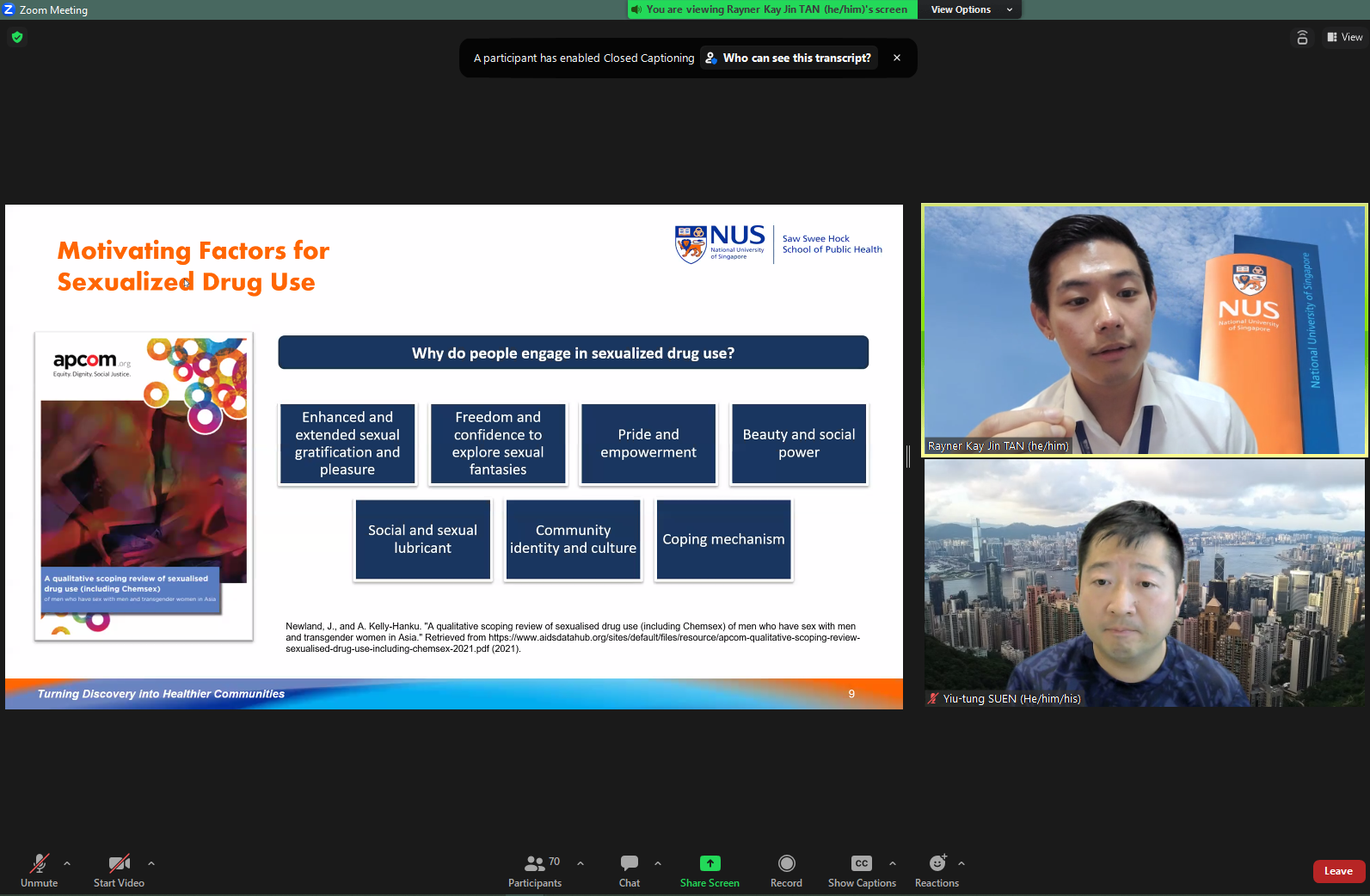 |
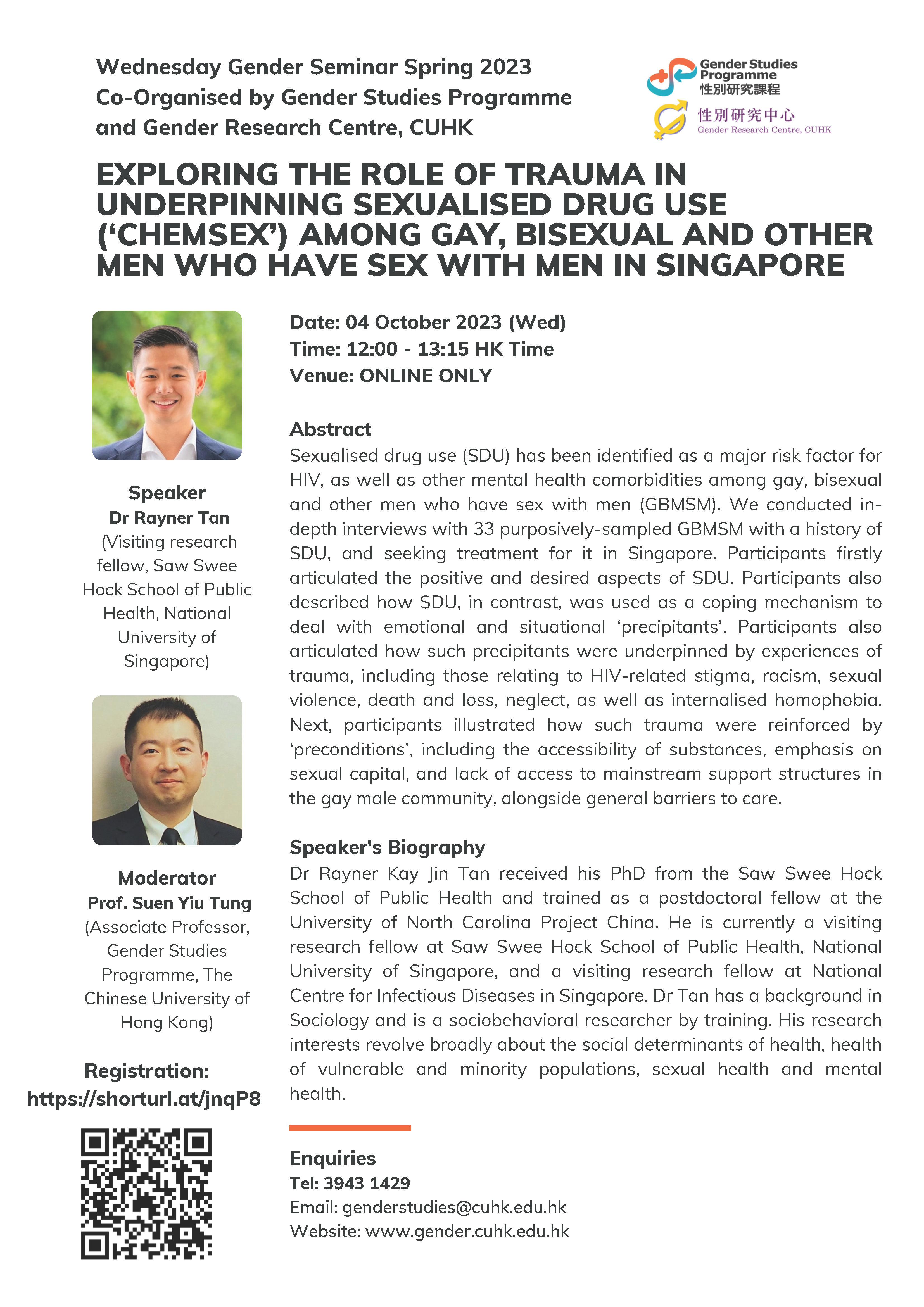 |
 |
“Chemsex”, related to but distinct from broader sexualized drug use, generally refers to use of psychoactive substances within sexual contexts. With growing research indicating its prevalence in gender and sexual minority populations and its associations with HIV, STIs and mental health comorbidities, it is considered to be an urgent public health and health equity issue. Primarily drawing from his recent qualitative study examining “chemsex” engagement amongst gay, bisexual and other men who have sex with men (GBMSM) in Singapore, Dr. Tan’s talk centered around the multidimensional antecedents underlying this phenomenon.
Under an interpretivist epistemological orientation, the qualitative study employed positionality/reflexivity-informed semi-structured interviews with a purposive sample of 33 self-identified GBMSM in Singapore followed by inductive thematic analysis. The interview process inquired into participants’ life histories and “chemsex”-related experiences, and participant welfare was ensured through methodological incorporation of anonymity protecting mechanisms coordinated by community-based organizations and the National University of Singapore. Interview results suggested several factors driving GBMSM’s chemsex engagement, including: 1) positive, desired aspects of “chemsex” (e.g., connectedness, sexual enhancement), 2) “chemsex” as a mechanism to cope with varied precipitants (e.g., sexual shame, low self-esteem), 3) traumatic underpinnings of such precipitants (e.g., intracommunity racism, societal-level homophobia), and 4) trauma-reinforcing preconditions of “chemsex” (e.g., sexual capital emphasis, lack of mainstream or institutional support structures). From such results, a trauma-informed, socio-ecological framework to conceptualize “chemsex” was proposed.
Dr. Tan’s talk ultimately provides novel, nuanced sociopolitical insights into “chemsex”, as well as challenges biomedical and pathologizing understandings of “chemsex” which characterize some extent of past literature and predominate popular discourse. Significant practical implications for community and healthcare settings may also be inferred, particularly the development of person-centered, multi-pronged harm prevention and reduction strategies to counter problematic forms of “chemsex”, especially in vulnerable minority populations.
Written by: LEUNG, Sinyu
Dr. Rayner TAN shared his recent work on what drives for underpinning sexualized drug use in the gay, bisexual and other men who have sex with men (GBMSM) community in Singapore, with a special focus on the role of trauma. Sexualized drug use, also termed as ‘chemsex’, generally refers to the use of psychoactive substances for sexual reasons. This study conducted semi-structured in-depth interviews with 33 GBMSM participants and used thematic analysis to analyze the interviews. The interview topics revolve on life history, trauma, HIV status, chemsex, barriers to accessing drug use recovery services, and incarceration.
As a result, a trauma-informed framework was conceptualized to describe the factors driven for sexualized drug use from psychological, societal, and structural levels. Firstly, for the positive and desired aspects of chemsex, participants stated that they experienced positive emotional states, sexual enhancement, love and intimacy. Secondly, participants explained their precipitants to chemsex. They regarded chemsex as a coping strategy to address individual and interpersonal stress (e.g., emotional wounds, loneliness, sexual shame, and social connections) and external stress related to work, finance, and family. Thirdly, participants pointed out the significant role of trauma in sexualized drug use, which came from HIV-related stigma, racism, homophobia, religious trauma, neglect, sexual violence, death and loss. Lastly, the societal and structural context resulted in preconditions that reinforced participants to engage in chemsex. The drug used for sex is easy to access, and the environment accepts chemsex as a norm. Besides, there is limited formal support for the GBMSM community such as LGBTQ friendly aftercare, family support, and legal support. On the other hand, participants also reported that the inadequate available help, stigma about drug use, and fear of being reported impeded their motivation seeking for caring support.
Overall, the research investigated sexualized drug use from the lens of coping strategies to trauma. It showed that the GBMSM community reinforced the experiences of sexualized drug use to cope with trauma and other societal factors but were also precluded from getting formal support due to those unfriendly preconditions. Even though chemsex may not cause problematic addiction and health issues to everyone, more inclusive interventions are needed for the GBMSM community to receive drug use treatment care and support.
Written by: LI, Ang
This lecture aims to explore the role of trauma in underpinning sexualised drug use ('Chemsex') among gay, bisexual and other men who have sex with men in Singapore. The speaker is divided into five parts to illustrate this topic: Introduction: Sexualized Substance Use or ‘Chemsex’, Preliminary Work on Sexualized Substance Use, ‘chasing utopias’: methods, Findings and Discussion.
First of all, in the introduction, the controversy caused by Chemsex as a public health issue was introduced. Then the speaker listed the related data of ‘Sexualized Drug Use in Key Populations’ and the motivation factors leading to this phenomenon. He then shifts his perspective to explore the underlying logic behind ‘The Rush To Risk’. What surprised me in this part is that the data and proportion of the use of sexualized drug exceeded my expectation, and the reasons behind it mentioned that the use of drugs does not necessarily have side effects, and drugs can also play a spiritual auxiliary effect in addition to physiological effects in sexual behavior.
Secondly, in the Preliminary Work, the speaker set Rationale and Objectives, and referred to previous works on Chemsex for research design and implementation. The survey covered Chemsex measures, Class differences, Social Capital and more.
Thirdly, the research method part states four aspects: Study Design & Participants, Date Generation, Topic Guide, Positionality & Reflexivity. The date generation mentioned the design principles and some details of the interview. First, in-depth interviews can be conducted on the basis of ensuring that the human rights of the interviewees are not infringed. Second, the interview can be conducted on the premise that the interviewer and interviewees do not know each other, so that the interview content can be as free from the influence of subjective consciousness as possible. In other words, if the two know each other, the interviewer will have preconceived ideas and affect the thinking and judgment of this research topic.
Next, the speaker summarized the key findings: First, positive and desired Chemsex can bring a sense of peace, sexual enhancement, love and intimacy. Second, precipitants, from the perspective of individual and interpersonal, have emotional wounds, loneliness, sexual shame and social connections; From the perspective of external factors, it is mainly caused by work-related stress, financial and family-related stress. Third, Different types of trauma caused by Intracommunity, general society and discrete incidents, namely HIV-related stigma and racism; homophobia, religious trauma, neglect; sexual violence, death and loss. Fourth, is four Preconditions: 1. Normative aspects: Ease of access, Chemsex as a norm; 2. Sexual capital: Sexual attractiveness as self-worth, Lack of safe spaces; 3. Lack of formal support: No LGBTQ-friendly aftercare, Lack of family support, Lack of legal support; 4. Barriers to care: Perceived lack of available help, Stigma around drug use, Fear of being reported.
Finally, there is the discussion section. the speaker believes that Data generated reflects just this slice of lived experiences and world views. At the same time, three aspects of Person-centred harm reduction interventions are proposed: 1. Sexualized drug use journey; 2. Engagement in sexualized drug use; 3. Personal Life Course.
Written by: LI, Yushan
The theme of the seminar this week is ‘exploring the role of trauma in underpinning sexualized drug use (‘chemsex’) among gay, bisexual and other men who have sex with men in Singapore’. First of all, Dr Tan shared the definition of sexualized drug use, which means the use of psychoactive substances for the purpose of having sex or in sexual contexts, and the key population of sexualized drug users are gay and transgender women. Then Dr Tan introduced the motivating factors of for sexualized drug use, including enhanced and extended sexual gratification and pleasure, freedom and confidence to explore sexual fantasies, pride and empowerment and so on. In order to best understand the risk of sexualized drug use, Dr Tan suggested us to acknowledge non-problematic use, simultaneously reframing the role of drugs in sexual behaviors and moving beyond biomedical forms of understanding, while he also introduced some research from different viewpoints and cite the relevant studies in Singapore, importantly including the modified socio-ecological framework of factors driving chemsex among GBMSM. Based on presentation upon, Dr Tan shared his study design and method, through purposive and theoretical saturation guided sampling 33 participants were recruited into the research and carried out on the basis of interpretivist epistemological orientation. The findings of this study mentioned four aspects: positive and desired chemsex (participants articulated desired and positive aspects of chemsex), precipitants (individual and interpersonal reasons including emotional wounds, loneliness, sexual shame etc.), trauma (in intracommunity, general society and discrete incidents), preconditions (normative aspects, sexual capital, lack of formal support, barrier to care etc.). After all, Dr Tan concluded the findings of the study, although the generated data only reflects slice of lived experiences and world views, the chemsex journey and its harm and reduction still make a sense to the various realms of homosexual research.
Written by: LI, Zhixin
On 4th Oct 2023, Wednesday Gender Seminar invited Dr Rayner Tan to share his research on the role of trauma in underpinning sexualised drug use (‘chemsex’) among gay, bisexual and other men who have sex with men (GBMSM) in Singapore.
Although “chemsex” as a public health issue has been widely studied in public health scholarship, there is a tendency to oversimply frame and label sexual drug use as pathological or risky, which conflates various problems and may further generate and reinforce stigmatization of sexual minorities. Dr Tan, thus, emphasized the need to acknowledge multiple motivations and move beyond biomedical forms of understanding. He shifted the research focus to the structural and social context of SDU to better understand causes and debunk problematic narratives. In his study, “trauma” was a strong and recurrent theme underpinning informants’ reports, which is understudied in the existing literature.
Dr Tan’s qualitative study adopted semi-structured in-depth interviews with 33 participants who were self-identified GNMSM and seeking treatment in Singapore. Interview topics included participants’ experiences and life histories of SDU, substance use, incarceration, trauma, and recovery stories. In reports, desired and positive aspects were articulated, such as peace, intimacy, and sexual enhancement. They took chemsex to cope with ‘precipitants’, a term referring to emotions and situations like negative individual and interpersonal issues and stressful external factors like family-related stress. Participants further pointed out how trauma experience provided context for ‘precipitants’ and underpinned them. Such trauma included three significant types: intracommunity, including HIV-related stigma and racism; general society, including internalization of homophobia and discrete incidents. Importantly, these traumas were related to 4 kinds of ‘preconditions’, including the accessibility of substances, sexual capital, lack of formal support and barriers to care, which also, in turn, motivate engagement in chemsex.
Grounded in sexualized drug users’ life stories, Dr Tan’s trauma framework offers a refreshing perspective to understand how social and structural factors produce and reinforce SDU and suggests the necessity to address individual trauma and structural problems when intervention.
Written by: LIU, Danchen
27 Sep 2023 (Wed) Gender Pattern in Livelihood Choices and Economic Consequences for Rural Households in China
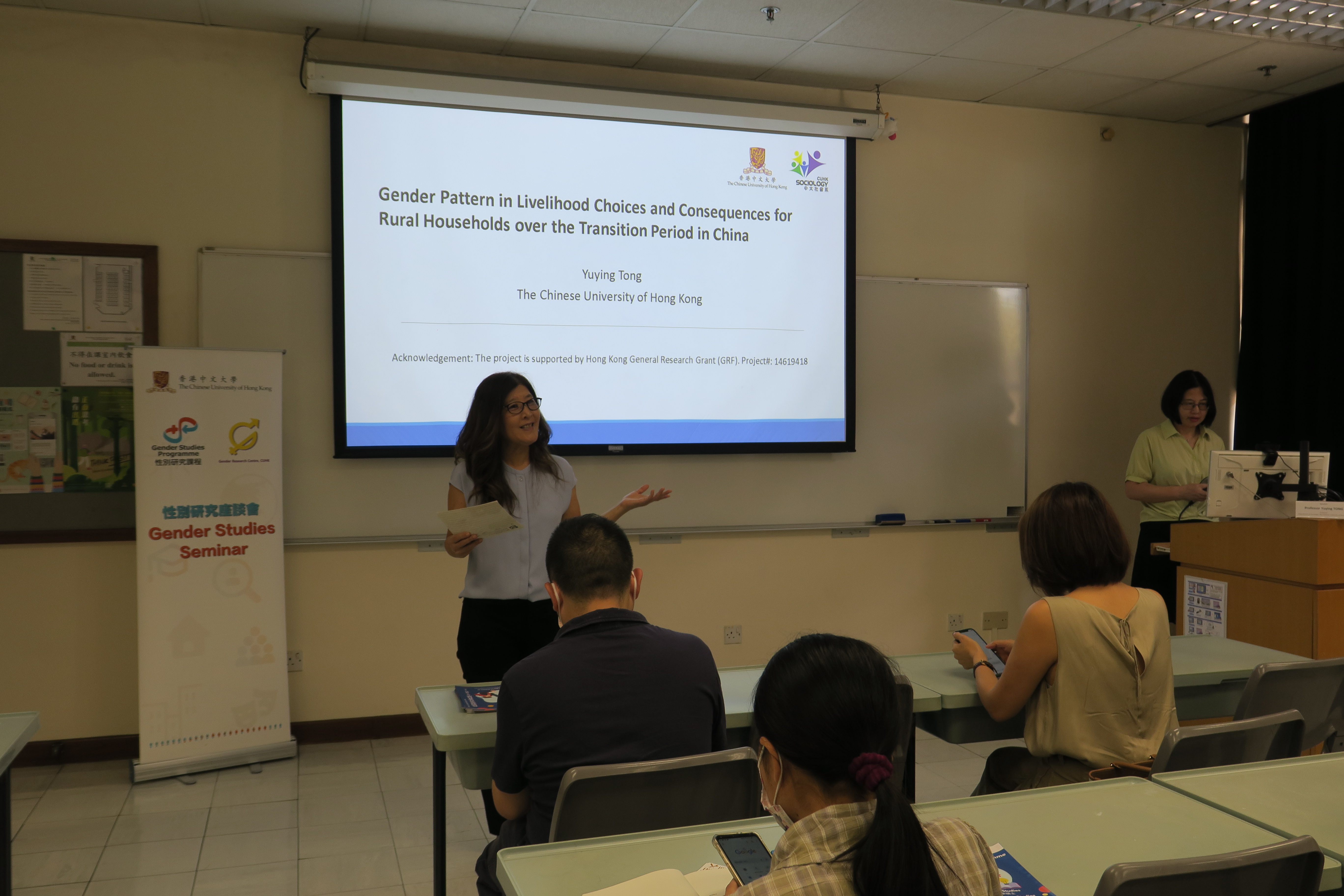 |
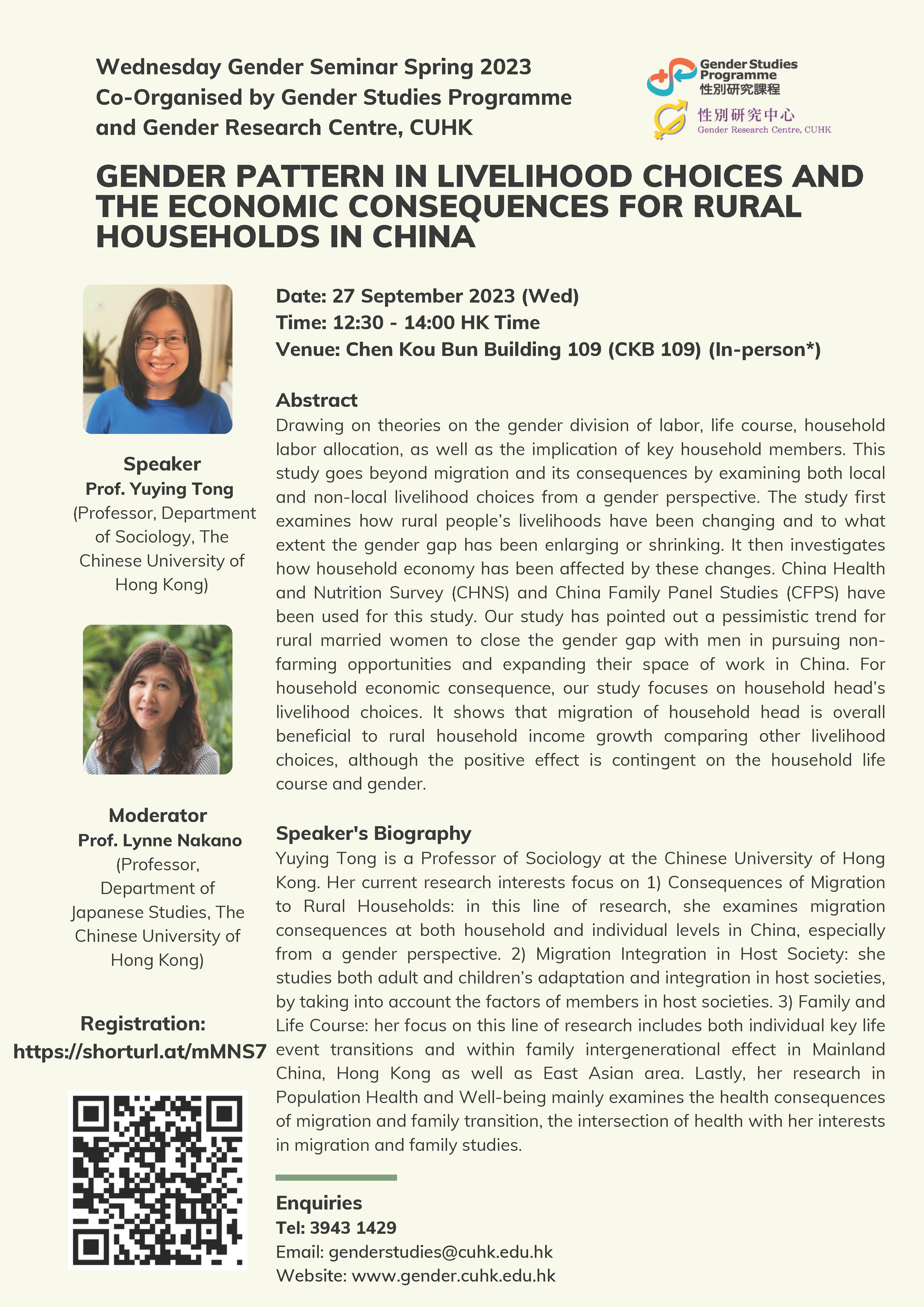 |
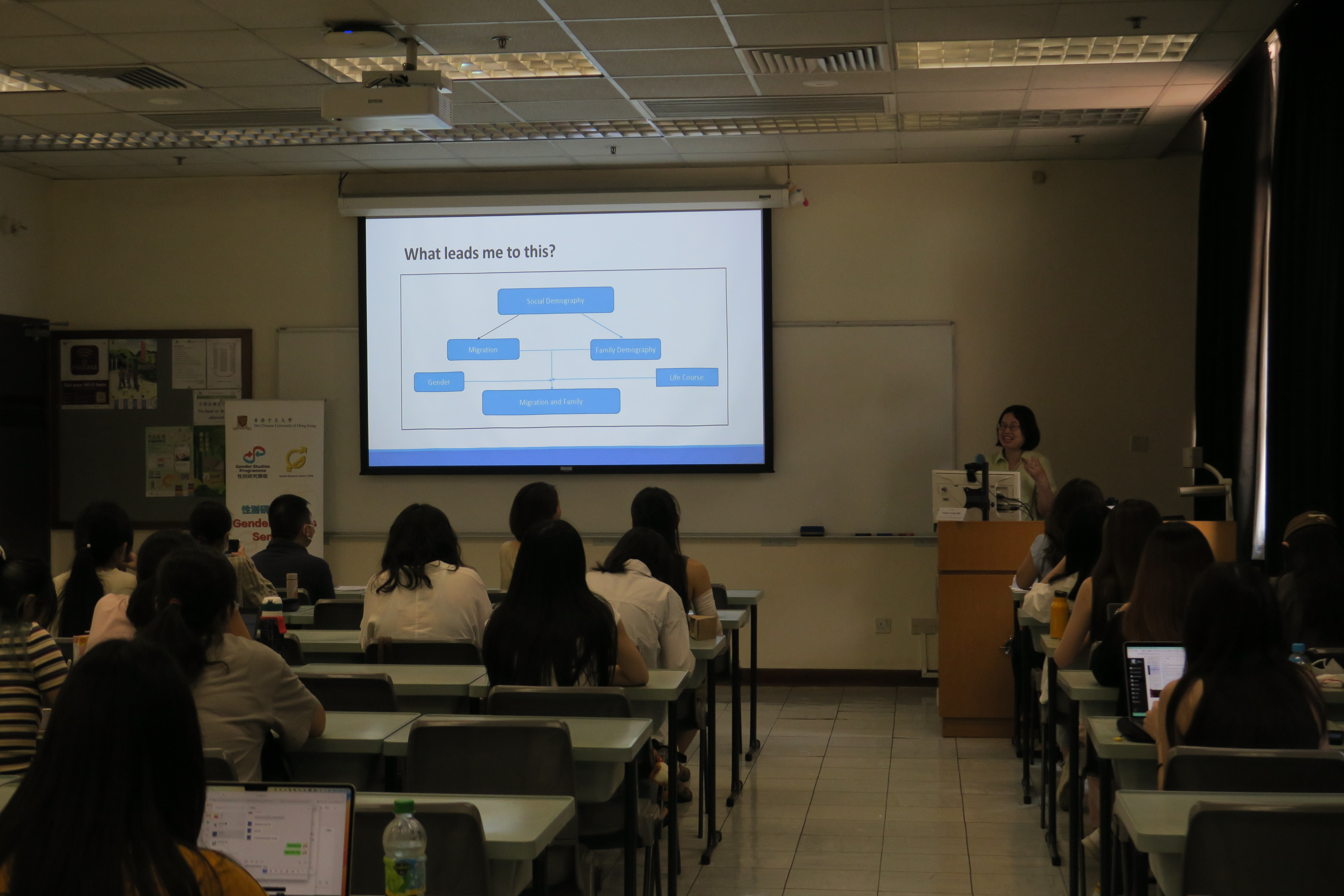 |
Under the liberation theory, women got out of house and work just like men and argued that “women substituted for men and freed men to undertake more new projects. Later, collectivization during the 1950s dismantled the house as a production unit but facilitated women’s participation in agricultural work. However, women still received lower work points although they did the same work as men. The economic reform launched in the late 1970s led to agricultural decollectivization and made the household once again the basic unit of production and in early reform era, the main strategy is to pursue local non-farm work for diversity such as township enterprises. So women take up more responsibilities in farming and also do some sideline work during off-farm seasons. After mid-1990s, migration to other places has become more dominant compared to local non-farm opportunities.
Under some theoretical background, we can hypothesize that:
· Compared to women, men are more likely to engage in non-farm work.
· By renegotiated gender role and with more opportunities, over time there will be a convergence of men and women in non-farm labor force participation.
· Marriage may set a constraint for rural woman and the extent of it has reduced over time.
· Women are more likely to pursue jobs in cities where there are more gender equal opportunities but the gap is reducing over the time.
The study find that although the gap between unmarried men and women has closed over time, there is no sign that the gap between married is closing. Women, in particular married women, are behind men in expanding both local and distant non-farm livelihood choices.
This reminds me of the topic of whether the active choice of a housewife is considered a woman's freedom, which was much debated in mainland China before. I think we can discuss that being a housewife is a choice, but should not forget that society still doesn't have a reasonably positive perception of the unpaid labor of housewives. We need to see the unresolved problems underneath this structural oppression and left behind by the patriarchal tradition. Women are facing many social problems.
Written by: GUO, Yijia
In the past few decades, with the rapid growth of rural areas and the increasing disassociation between livelihood and agriculture, rural people seemed to have more searches on their livelihood choices. During historical periods such as the “Great Leap Forward” and the Economic Reform periods, people began to focus on women’s agricultural work capability. Instead of aligning with the traditional communal gender role expectations, women were encouraged to leave their houses and work just like men. However, women were considered “substituting for men” or getting lower work points despite doing the same work as men.
Based on this background, the speaker introduced two studies to discuss the gender pattern in livelihood choices and consequences for rural households over the transition period in China. In the first study, researchers examined whether the gender gap and female disadvantages in livelihood choices have changed by analyzing data from the China Health Nutrition Survey. The sample were rural people aged between 18 to 54 years old. Results found that more rural people participated in non-farm work over time. Marital status constrained both men and women to take on non-farm jobs. Furthermore, though unmarried people did not show significant gender differences in their livelihood strategies, married women were less likely to choose non-farm jobs than married men, and this gap seemed not to be narrowed over time.
In the second study, researchers considered the key household members and compared female and male heads’ livelihood choices. They analyzed the data from The China Family Panel Studies and their sample was married rural people aged 20-65. According to their results, more people chose distant non-farm work over time. People were more likely to take on distant non-farm jobs when their household heads were young, especially when they were women. This livelihood choice from the household head was a strong predictor of household income growth. These results implicated that the livelihood choices of rural people are gendered and the family status may predict and affect rural people’s livelihood choices and consequences.
Written by: HE, Chuting
The theme of the second week's seminar was “Gender pattern in livelihood choices and consequences for rural households over the transition period in China", which was shared by Prof. Yuying Tong. She recounted two separate but connected studies under this project.
The first study focused on "the expanding search for work: gender gap in rural Chinese people's livelihood changes from 1989 to 2015". In the past few decades, rural areas around the world have experienced rapid growth in the diversification of rural household livelihood strategies. In China, the diversification process was accompanied by some important historical periods. Against this background, three research questions were posed to explore what are the gaps in livelihood choices between men and women. The hypotheses were analyzed by using data and samples from the China Health Nutrition Survey, identifying variables and incorporating APC models. Three conclusions were deduced as follows. First, men are more likely to work in non-farm positions and the gender gap shows little sign of convergence. Second, the gap between unmarried men and women is narrowing but for married women, the closing trend is somewhat handicapped. Third, women are behind men in expanding both local and distant non-farm livelihood choices.
The second study was a continuation of the first, which focused on key family members. The topic was “Female vs. men head's livelihood choices and household income growth in rural China from 2010 to 2018". The debate has been continuing for decades on whether migration as a livelihood choice is beneficial to rural household economic development. From the family life course perspective, the study used family as the unit of analysis and the household head’s age represented the household life course stage. The conclusions were drawn by utilizing data from the China Family Panel Studies (2010-2018) with Growth Curve models. The results showed that the livelihood choice of the household head is a strong indicator of household income growth in terms of both intercept and slope. At the same time, the migration of the household head generally favored the growth of rural household income.
Written by: HU, Bei
At the beginning, the author briefly introduced her social demography backgroud and the inflence of gendered life course, which finally led her to the subject of migration and family.
The first research is about the gender division of labor and industrial changes in rural areas of China. In the process of upgrading the industry, the separation of agricultural jobs and non-farm jobs, and the separation of places of residence and work are two major trends around the world. Gender role specialization and renegotiation have provided a theoretical basis for those phenomena. This study uses a sample of the labor force in rural areas in recent decades, using agricultural labor and non-agricultural labor as the benchmark, to examine women's disadvantaged status in job opportunities, the convergence of the gender gap, and the impact of marital status on it. Empirical results show that men are indeed more likely to obtain non-agricultural job opportunities, and the gender gap never decreases. Additionally, marriage is proved to be an obstacle for women to purse their own career freely, which forms a stark contrast to male partners both in local and distance non-agricultural jobs. Trends for gender equality at work in rural areas remain bleak, in consequence of which private and public support should be provided to rural women, especially those who are married and have children.
The second research focus on the migration of rural household heads. Although the dual impact of migration on household economic status has often been discussed, local non-farm labor force is largely neglected, as well as their livelihood chioces and outcomes. This research concentrates on non-migrants and adopts a ‘house life course’ perspective, in order to study livelihood chioces and income growth trajectory. It turns out that the household heads’ livelihood chioces can strongly predict household income, and the migration of them is economically beneficial; However, such effect is contingent on their life course--it becomes very different between farming group and non-farming group, which means that we are supposed to separate these two groups when studying left-behind villagers.
Written by: JIANG, Yufei
The topic of the lecture on September 27th is Gender Pattern in Livelihood Choices and Consequences for Rural Households over the Transition Period in China.
Two separate but connected studies under this research project
Study A:The Expanding Search for Work: Gender Gap in Rural Chinese People's Livelihood Changes from 1989 to 2015
Background:
Under the influence of China's special historical moments such as the "Great Leap Forward" and economic reform,Livelihood has become disassociated with agriculture overtime and Increased labor mobility has separated the locations of work and home places for rural people.
3 conclusions emerged from the study A:
1. In terms of gender labor division, men are more likely to do non-farm work, and gender differences still exist.
2. Married women have greater barriers to work than married men.
3. The immigration gap between the two groups - married men and married women working locally as non-farm laborers - has been widening.
4. Rural women need family and institutional support to continue their non-agricultural work after marriage and childbirth.
Study B:Considering the Key Household Members: Female vs. Men Head's Livelihood Choices and Household Income Growth in Rural China: 2010 to 2018
Background:
There has been a decades-long debate about whether migration as a livelihood option is beneficial to the economic development of rural families, with some arguing that it benefits the family and others arguing that it has a negative impact.
2 conclusions emerged from the study B:
1. When examining the left-behind villagers, it is necessary to choose to separate the two livelihoods.
2. The migration choice of household heads contributes to rural household income growth.
Through this class, I paid attention to the gender inequality in labor distribution in rural areas that I had never paid attention to before, and the fact that married men and women also face great differences in work after marriage. I will also have a deeper understanding of gender studies, in fact, not only limited to the broad level, in fact, those remote areas of gender issues are also worthy of attention
Written by: WANG, Ziqi
20 Sep 2023 (Wed) Emerging New Gendered Roles in Chinese Rural Families among Female Vocational College Students
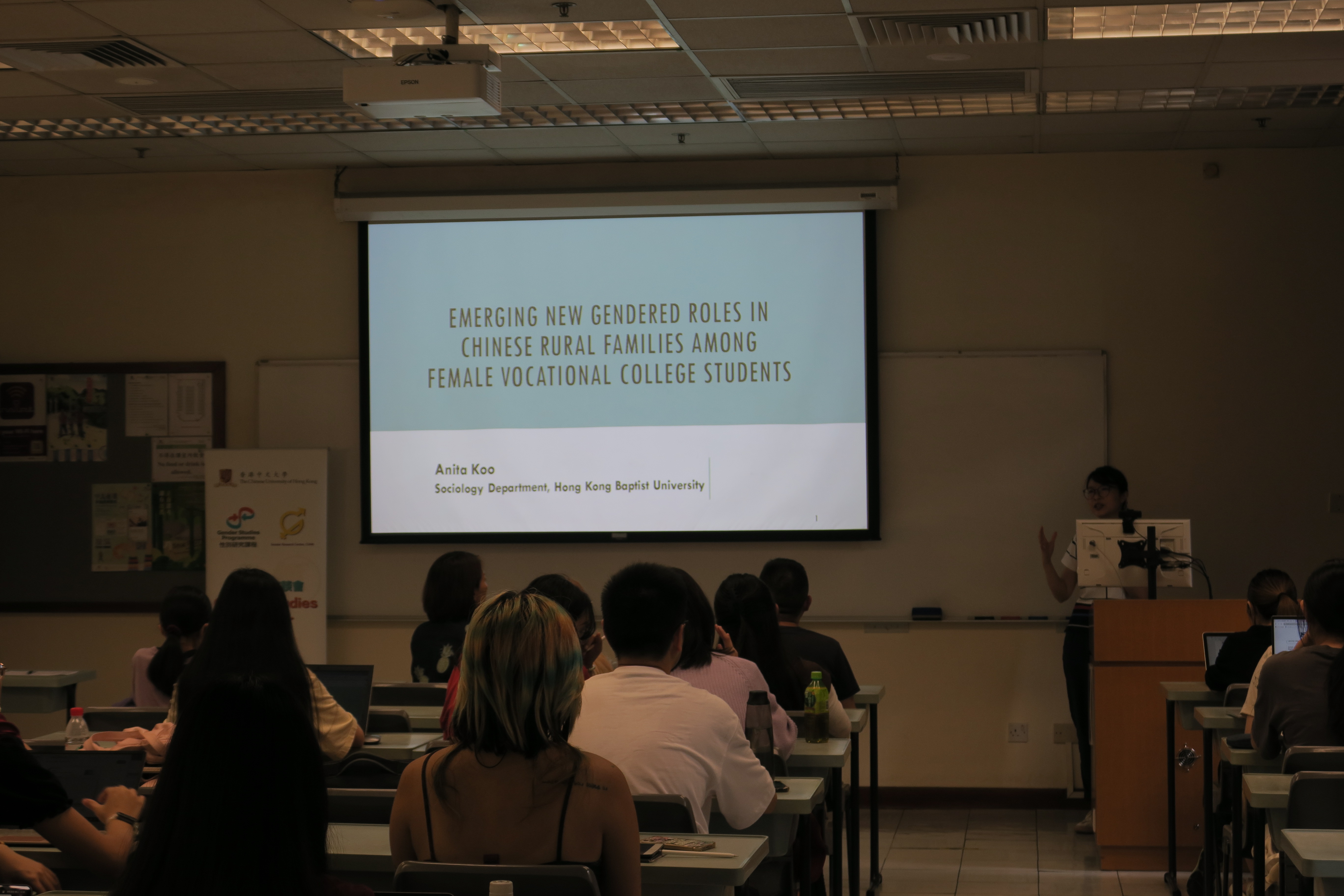 |
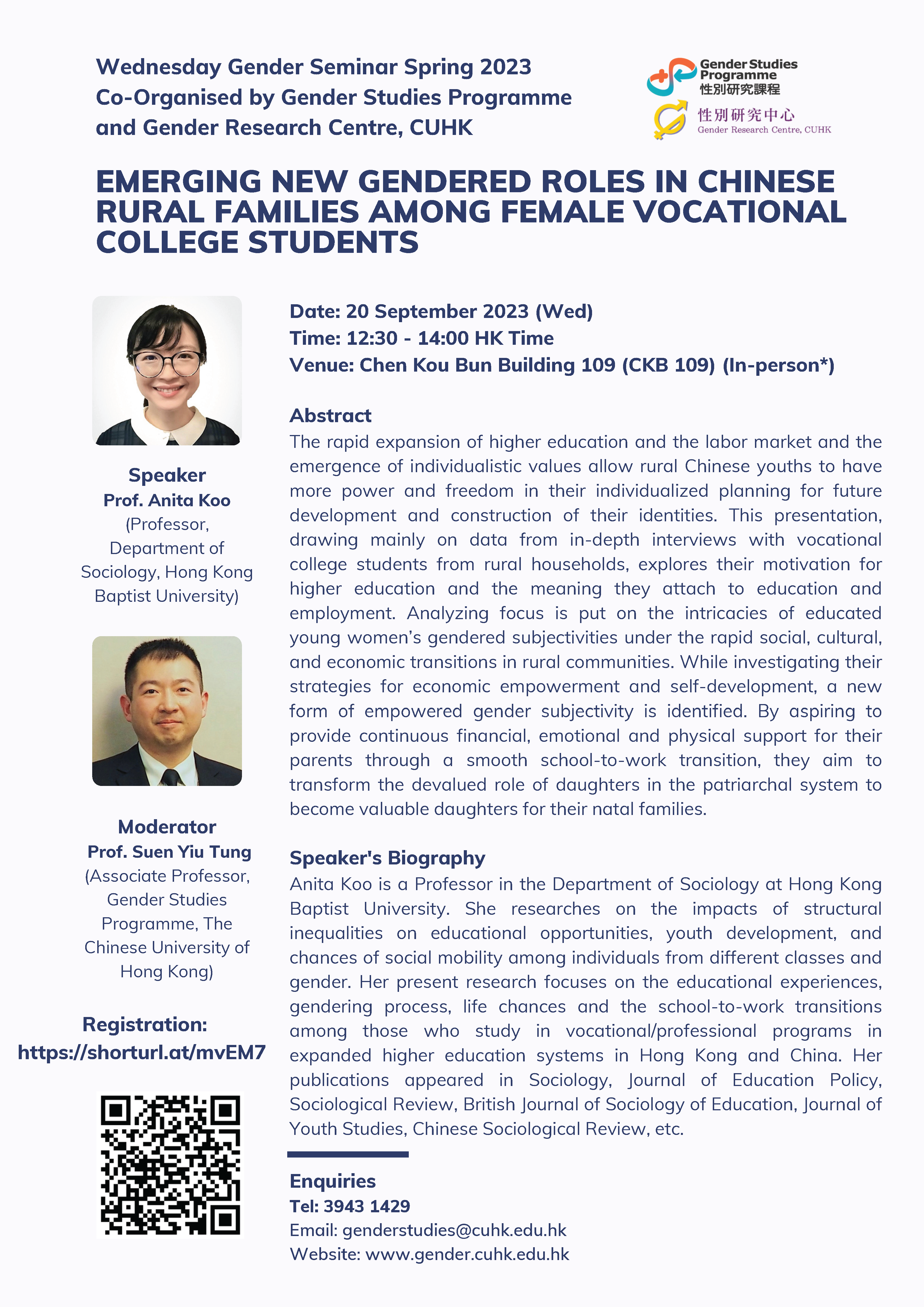 |
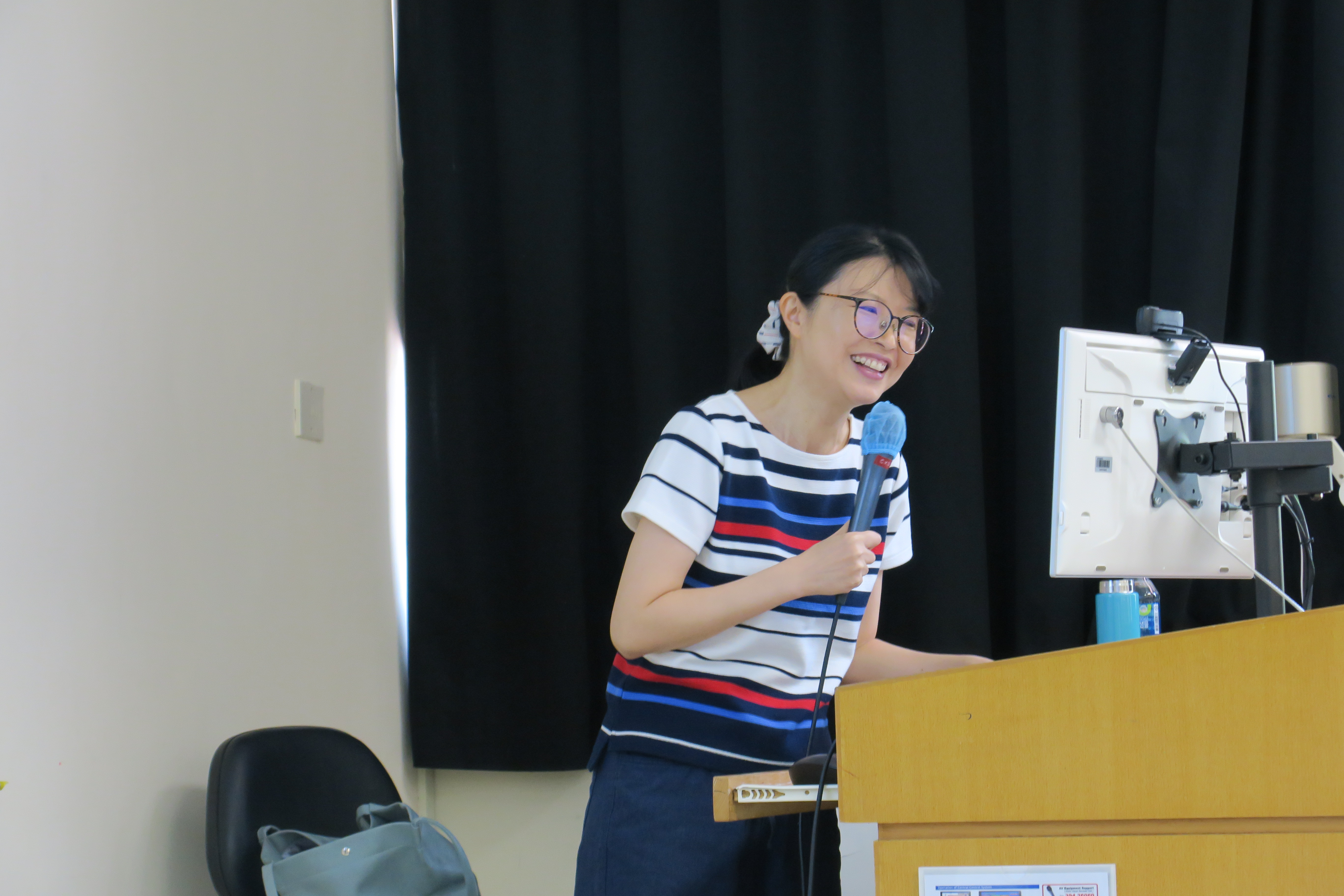 |
This presentation focuses on the neglected field of vocational education in rural China, concentrating on the progression of women's roles.
It begins with a background on vocational education in China. Vocational education is promoted in China to train skilled workers and foster development and high-paying jobs. Three main types of vocational school students were identified: children of rural migrant families, students with working-class backgrounds, and youth with other rural backgrounds.
The presentation featured two vocational colleges where most of the students come from rural areas and need loans to attend school. The marks scored by the students in the exams were too low, forcing them to choose vocational education. Professor Anita Koo found that there are inequalities in vocational education experiences. Men tended to study engineering, while most women studied programs such as nursing to enter the service industry. Both male and female students desired to gain better employment opportunities through education, whereas their educational choices were correlated with the needs of the gendered labor market.
Then Professor Anita koo interviewed the rural female students with questions about their educational decisions and life-planning. Rural women prioritize self-development and achievement through vocational education, and young women are beginning to aspire to financial independence and delay their marriage time. The female students believe that through this training they can counteract the traditional family system where rural women are seen as secondary and subordinate. They choose safe career paths as they consider practicality to be more valuable. Nevertheless, rural Chinese women's desire for a caregiving role persists. This is closely related to the cultural context of rural communities in China, where their desire is to be valuable daughters. In appreciation of the support from their parents, they prefer to stay in their hometowns and become caretakers of their families. Men, on the other hand, take risks and become themselves to fight for the future.
In summary, the presentation brought about directions I had never thought about and exposed some issues. The advancement of women in education is an important transformation that enables them to obtain stable jobs in society and become independent women. These successful female students have economic autonomy, bringing new hope and influencing more female students. However, in the context of China's rural culture, it is difficult for women to break out of the role of family contributors.
Written by: CAO, Jun
This lecture is titled as Emerging New Gendered Roles in Chinese Rural Families among Female Vocational College Students. Prof. Koo introduced the concept and influential factors of vocational education in China, pointing out analysis directions or questions with her research results after collecting lots of quantitative data.
First, Prof. Koo pointed out that vocational education is important but neglected. The rate of 40% students entering the vocational track represented the inequality of resources and opportunities, which was shown by the composition of students who were basically from rural or working-class backgrounds and got low grades in public examinations. With the development of industrialization and urbanization, expanding vocational education improved more opportunities to rural students, especially young women, but it seems that the regional and gender gap didn't narrow in higher educational attainment.
Second, information concerning vocational college students were shown to discuss the impact of increased educational attainment on social values. Prof. Koo demonstrated cases from two vocational colleges in Bijie and Lanzhou region. By attending vocational colleges, students who failed to enter universities claimed subjectivities to achieve self-development, as Chinese youth had created new explanation of subjectivites. For rural female students, attending vocational colleges is regarded as personal intention for both individual success and convenience of natal family, concequently they have a strong sense to pursue economic independence instead of romantic relationships, but their achievements from realistic choices targeting “good major/courses” only for female still reflects gender stereotypes and segregation.
At last, Prof. Koo discussed how the vocational education forced social change by transforming the gender norms and how this training empowers female students. The key finding is that the new roles of young rural women is “valuable daughters” which is not acknowledged by the old patriarchal system. Their motivation of taking vocational education is trying to actively take responsibilities to prove ability or subjectivity by providing financial, emotional and physical contributions to natal family, which greatly enhances their sense of self-worth. However, this empowered agency may not challenge but strengthened the gendered structure of the labor market and the primary caregiving role of women in the family.
Written by: FONG, Yuk Ping
Prof. Anita Koo presented her research on the emerging new gendered roles in Chinese rural families among female vocational college students.
The rapid expansion of China’s higher education and labor market has led to the expansion of the important but neglected vocational education system, which provides young people who have failed public examinations the opportunity to realize their neoliberal dream. However, improvements in educational opportunities have not narrowed regional and gender gaps in higher education attainment, especially for female and rural students, gender segregation is more pronounced in poorer areas. These factors prompted Prof. Koo to focus her research on female students in vocational colleges who grew up in poor rural areas.
Prof. Koo conducted fieldwork in two vocational colleges in Bijie, Guizhou, and Lanzhou, Gansu, the poor provinces in western China. More than 80% of the students were from surrounding rural areas. Prof. Koo used in-depth interviews to explore the complexity of gender subjectivity among the new generation of educated rural female students.
The interviews revealed that these girls all emphasized the importance of economic independence. They resisted traditional patriarchal arrangements through education and employment, and planned to develop their careers before considering marriage. However, unlike career women, “reality” rather than inner passion, personal interest, or self-realization is the common decision-making attitude of these girls when making education and career choices, and “life stability” is more important than future development opportunities. What they consider a good major is defined by a highly gendered labor market. This is influenced by the social and cultural background of Chinese rural communities. Underneath their strong desire for economic independence and pragmatic choices about education and career lies their strong desire to become “valuable daughters” of their natal families. They hope to provide continuous financial, emotional, and material support to their parents through the three new roles of economic role, care taker, and supporter, thereby changing the devalued status of daughters in the patriarchal system. Gaining a sense of self-worth and meaning by actively assuming the family responsibilities and contributions traditionally expected only from sons is central to their gendered subjectivity.
Overall, although these female rural students know the importance of work for economic independence, they do not regard being a career woman as a measure of self-worth. Instead, they use their relational nature to measure their contributions. By shaping themselves into “valuable daughters”, they complete self-realization in the process of providing support to their natal families. However, Prof. Koo also pointed out that such an empowered agency does not necessarily challenge the gender structure of the labor market and women’s primary caregiving role in the family but instead reinforces gender segregation. Nevertheless, they think it is a massive change because they gain a new identity.
Written by: CHEN, Peiwei
This seminar focuses on female vocational school students ’ educational decisions and the life-planning and explores the factors that shape the goals and future roles of this new generation by doing fieldwork in Bijie, Guizhou and Lanzhou, in order to give a better understanding of the subjectivities of female rural students and to think about how can they exercise their agency and construct their own identities.
According to the situation of traditional rural women who married early, female students in vocational colleges think they are different from them. They resist the traditional arrangement- be married in their late teens and stay at home to take care of kids- and refuse to be subordinated in the partrilineal family system.
The importance of economic independence is their main concern. Those female students believe that girls need to have their own careers and if they are financially independent, they are better able to help their parents and have more confidence if they get married someday.
To increase one’s likelihood of being employed in the highly gendered labour market, the female students choose to be more realistic and will go for the major that are suitable for girls and the job that can provide a stable life, which reinforces the occupational gender segregation. They intentionally retreat from the skilled manual jobs. The education doesn’t bring significant change to the gender structure in the labour market.
Behind their hope for economic independence and pragmatic choice in education and occupation, they actually aspire to be valuable daughters for their original family. They take the role of economic resources to contribute to their parents, the role of close-distance care takers and the role of supporter for their younger (male) siblings to go further and achieve bigger.
The gendered subjectivities of female vocational students in rural area come from taking up the responsibilities and contributions to their family that were previously expected only for sons. They seem to have more agency, but it doesn’t challenge the gender structure in labour market and the primary role of women in the family.
Written by: DU, Qiongxuan
Vocational education in China has been overlooked both academically and in policy discussions, and students engaged in vocational education have been stigmatized as "failures" and marginalized in society. However, after 2000, China's higher vocational education, in conjunction with national manufacturing policies, offered a new neoliberal dream for these marginalized students. How can we understand liberation and progress within this marginalized context? Professor Koo's remarkable qualitative research on rural vocational college students portrays the challenges and choices of rural young men and women entering higher vocational education. Particularly, when male students' employment aspirations are entangled with the national dream, female students' choices become active, long-term, and highly strategic decisions. By enhancing feminized skills in college, female students choose to conform to the highly gendered labor market, at the same time they position themselves back into family (as valuable daughters, caregivers, and supporters, rather than career women) to construct their identity. Vocational education, however, didn't change the gender structure in the labor market; it reinforced gender segregation.
Here, the based on assumption that higher education leads to liberation can be further discussed. It equates higher vocational education with higher education. However, vocational education in China, including higher vocational education and secondary vocational education, may not necessarily complement higher education; in fact, they can compete. The more university higher education develops, the fiercer the competition vocational college students face in the job market. Furthermore, as shown in the talk, higher education is expected to increase student mobility, whereas higher vocational education limits students to their hometown regions, turning them into local "technical workers." The content of higher vocational education is also embedded in the patriarchal discourse prevalent in rural areas, serving market values. Instead of being liberal, it has the potential to further reinforce class segregation between urban and rural areas.
There's also heterogeneity within vocational education. Secondary Vocational Education emerged simultaneously with compulsory education and has a history of over 70 years. It largely serves as a supplement to the nine-year compulsory education, often considered the "destiny" for rural and working-class families. On the other hand, Higher Vocational Education began to develop after 2000, with an emphasis on it post-2015. Students in Higher Vocational Education have already crossed the 50% high school dropout rate and possess higher levels of educational capital. They represent a privileged minority within vocational education, and this "privilege" is inseparable from their efforts and parental investments. Exploring the heterogeneity of vocational education can better help us understand the identity construction of rural vocational education students, especially their positioning within their family roles.
Written by: HUANG, Jiying
Spring 2023
Co-presented by: Gender Studies Programme, Gender Research Centre & Sexualities Research Programme, The Chinese University of Hong Kong
12 Apr 2023 (Wed) Mini-Conference of Thesis of BSSc & MA in Gender Studies 2023
 |
 |
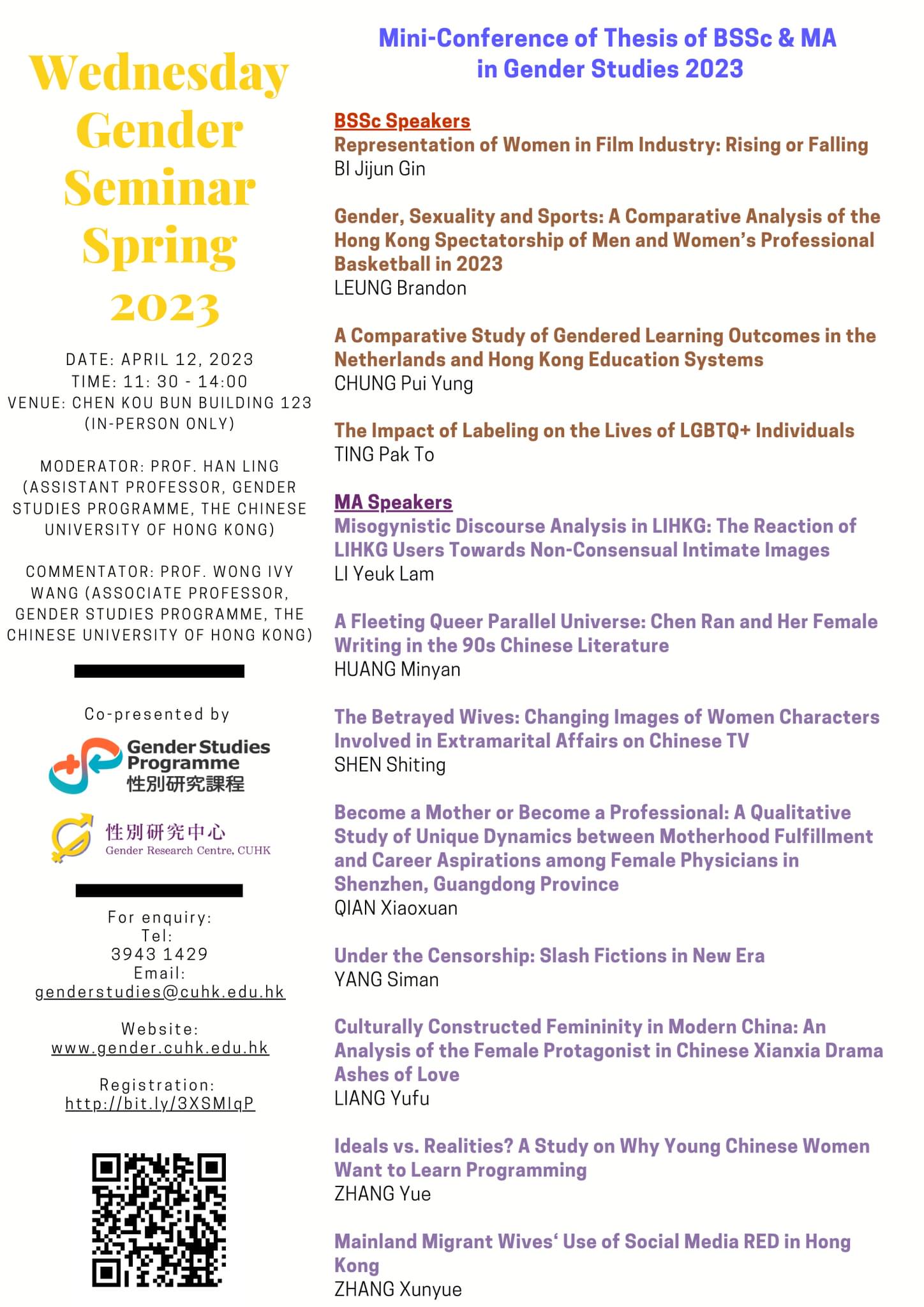 |
 |
 |
Representation of Women in Film Industry: Rising or Falling. By BI Jijun Gin
The research explored Chen Ran’s writing and aimed to re-allocate the 90s women writers' work and to reexamine the male-dominant, heteronormative, and Han-centric Chinese literary discourse through a queer reading strategy. The author seeks to capture the gender-transcend consciousness of women writers in the 90s and examine their works through various lenses, such as feminist attention to madwomen and psychoanalytic attention to the Electra Complex. The takeaway message is the importance of using a queer reading strategy to explore Chinese literature's complexities and give queerness names.
Prof. WONG Ivy Wang suggested that students should justify their methodology and explain their analysis in their thesis projects, especially when discussing their sample size and arriving at conclusions. Prof. Ivy also encouraged students to work closely with their supervisors, especially when dealing with sensitive topics or samples to ensure proper data handling and identity protection.
Written by: JIN, Shuyi
The Betrayed Wives: Changing Images of Women Characters Involved in Extramarital Affairs on Chinese TV. By SHEN Shiting
Written by: FONG, Yuk Ping
22 Mar 2023 (Wed) Empathic Accuracy, Mental Depletion, and Relationship Satisfaction among Heterosexual Romantic Couples
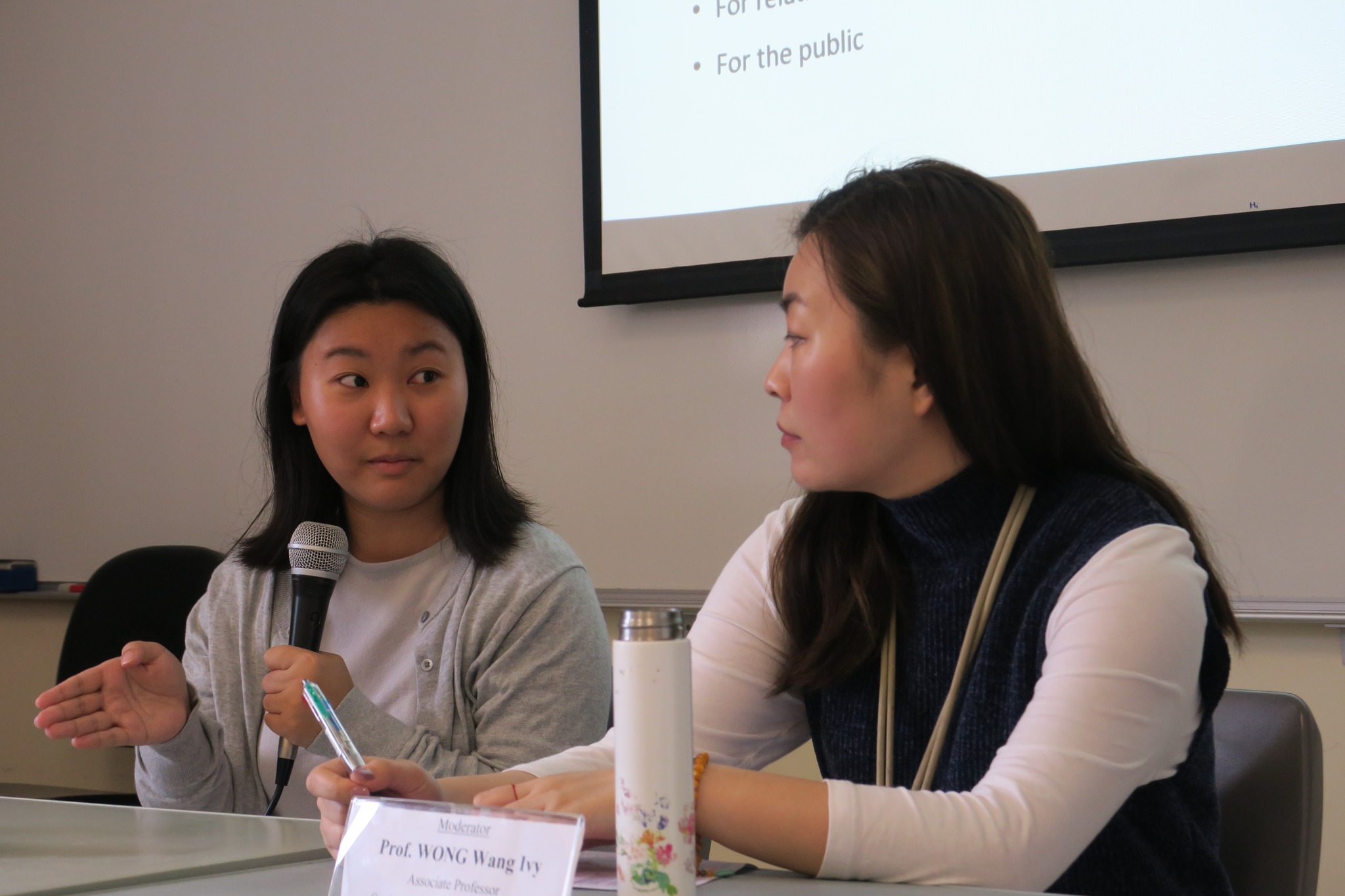 |
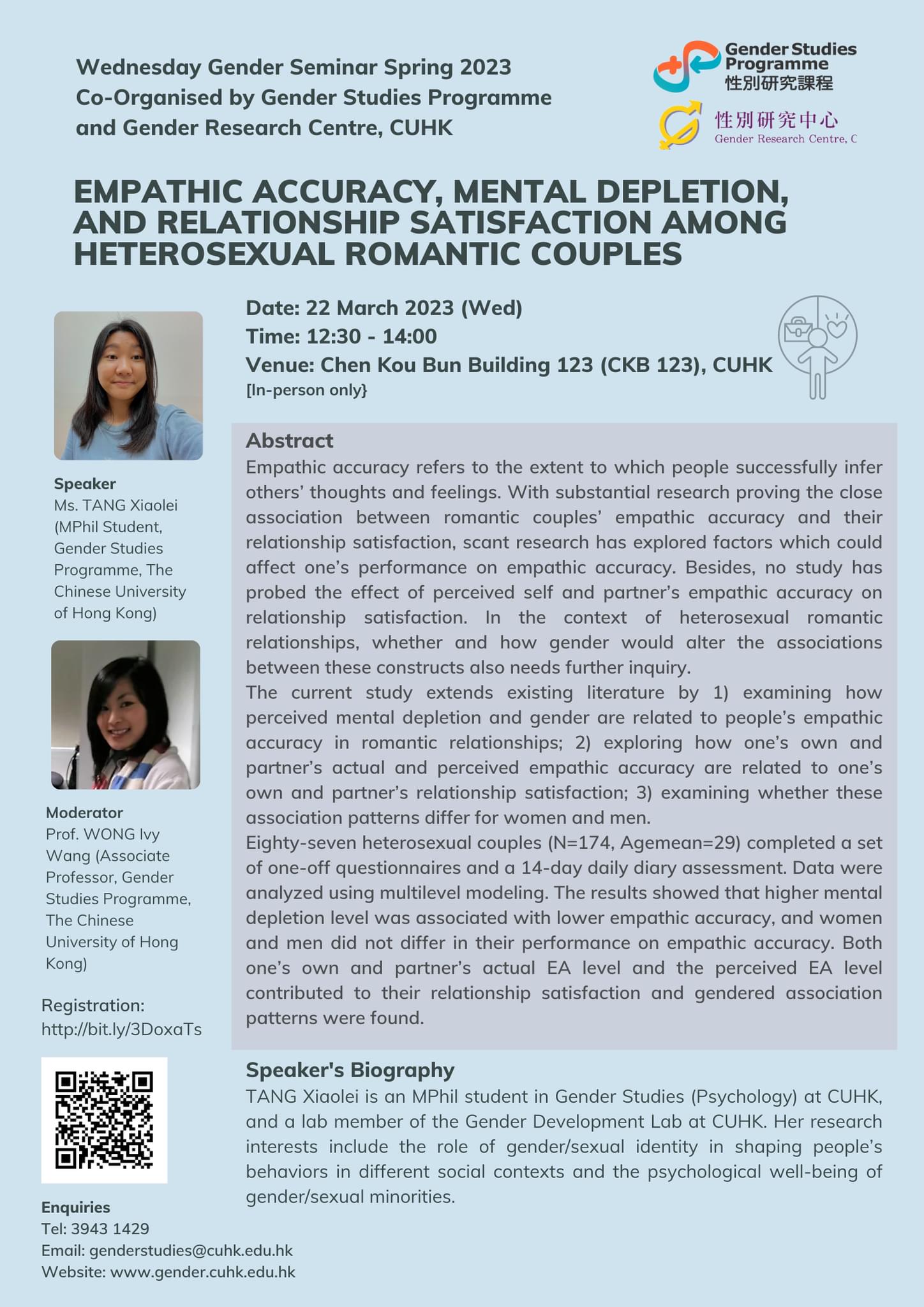 |
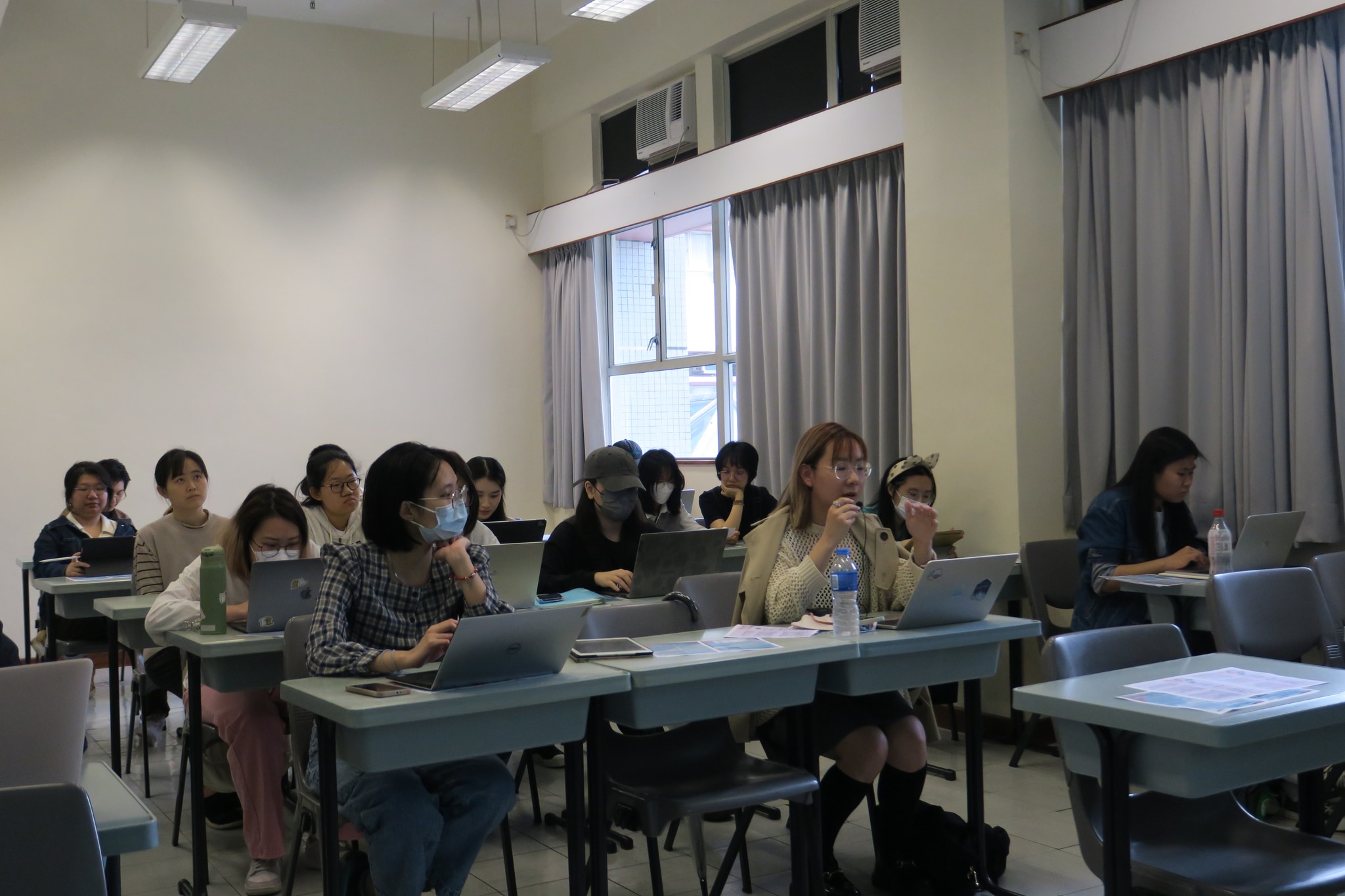 |
In the Wednesday Gender Seminar on March 22, Tang Xiaolei, an MPhil student from CUHK, shared her ongoing psychological research on empathic accuracy (EA), mental depletion, and relationship satisfaction among heterosexual romantic couples.
First, Tang structured her research meaningfully and innovatively by reviewing literature and defining key concepts. While EA is proven positively associated with relationship satisfaction, people neglect factors that could affect EA performance and the effect of perceived EA within romantic relationships. To fill the gap, Tang focused on how two possible factors, perceived mental depletion and gender, could affect one’s performance on EA and explored how actual and perceived EA would be associated with heterosexual relationship satisfaction.
Next, Tang elaborated on her research design and process thoroughly. Instead of using the classic standard stimuli paradigm of EA studies, she applied daily diary assessment to achieve a higher ecological validity and enable cross-lagged analysis in a short time. Eighty-seven heterosexual couples completed a baseline survey independently about empathy quotient and relationship satisfaction. Then, a two-week daily assessment was conducted on mental depletion level, self and partner’s relationship feelings and mood, and EA performance estimation. During data analysis, the hierarchical linear and actor-partner interdependence models were employed for different research questions. The findings revealed an inverse correlation between mental depletion and EA, and there was no significant difference in EA performance regarding gender. Actual and perceived EA levels both contributed to relationship satisfaction. Additionally, outcomes identified gendered association patterns.
Tang also mentioned several limitations and practical implications of her project. Since the study has a cross-sectional design and intensive daily assessment, the researcher could not infer the relationship between the variables. Future scholars should pay attention to longitudinal design to examine the relationships. Besides, the survey did not differentiate perceived EA in emotional valence to avoid participants guessing purposes behind, or investigate an inclusive age range for staying more homogenous for participants. As for practical benefits, the study may raise awareness among relationship health practitioners and the public of the importance of communication and care for mental depletion.
Written by: DU, Ruini
Empathic accuracy refers to the extent to which individuals’ ability to accurately infer others’ thoughts and feelings (Ickes, 2009). Previous findings have shown positive correlations between empathic accuracy and relationship satisfaction (Howland, 2016, Sened et al., 2017). However, individuals’ empathic accuracy may be influenced by various factors, such as their genders (Ickes et al., 2000; Klein & Hedges, 2001) and perceived mental depletion (i.e., subjective perception of mental resources availability; Hiraoka & Nomura, 2016; Meiring et al., 2014). Whether these factors can affect individuals’ empathic accuracy and thus further influence romantic relationship satisfaction remains unclear.
Therefore, the researcher, Xiaolei Tang, conducted a study investigating how perceived mental depletion and gender are related to people’s empathic accuracy in romantic relationships. Specifically, she measured both partners’ actual and perceived empathic accuracy and explored how these different kinds of empathic accuracy relate to their relationship satisfaction. In her study, different from some traditional lab-conducted paradigms, she assessed through daily diaries, which provided high ecological validity.
Eighty-seven heterosexual couples residing in Hong Kong participated in the research, aged 18 to 40 (MAge=29, SDAge=5.18). Among these 174 participants, 97.1% were Chinese, and 97.1% reported being in a committed relationship. Before the daily diary assessment, each participant completed baseline questionnaires assessing their baseline empathy quotient, relationship satisfaction, and demographics independently. Then each of them completed a 14-day daily diary assessment that measured their daily mental depletion, their own and partner’s relationship feelings, their own and partner’s moods, and their empathic accuracy estimations. The daily assessment ended when both partners completed the questionnaires in the same 11 days.
Data were analyzed through Hierarchical Linear Modeling and Actor-Partner Interdependence Model. The results showed that mental depletion level was negatively associated with empathic accuracy in romantic couples, people with a higher level of perceived mental depletion performed lower empathic accuracy. Generally speaking, there was no gender difference in males’ and females’ performance on empathic accuracy. Women’s relationship satisfaction was related to their own and partners’ EA in relationship feelings and their own EA in mood, and men’s relationship satisfaction was related to their partners’ EA in relationship feelings and their own EA in mood. The limitations and implications of the study were also discussed.
Written by: HE, Chuting
15 Mar 2023 (Wed) Sajiao Gong: Intimacy Fantasy and Resignification of Femininity in Danmei Fiction
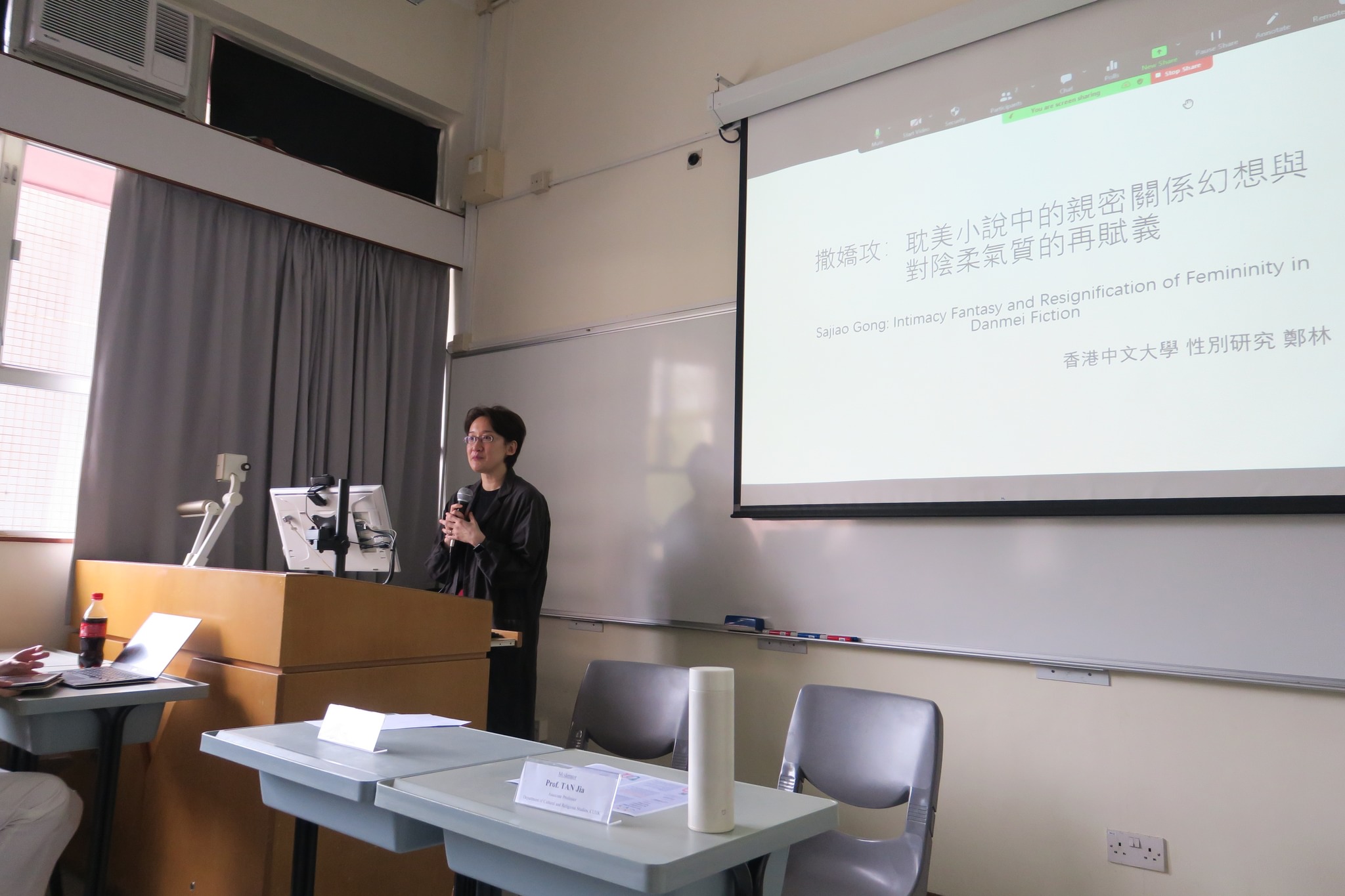 |
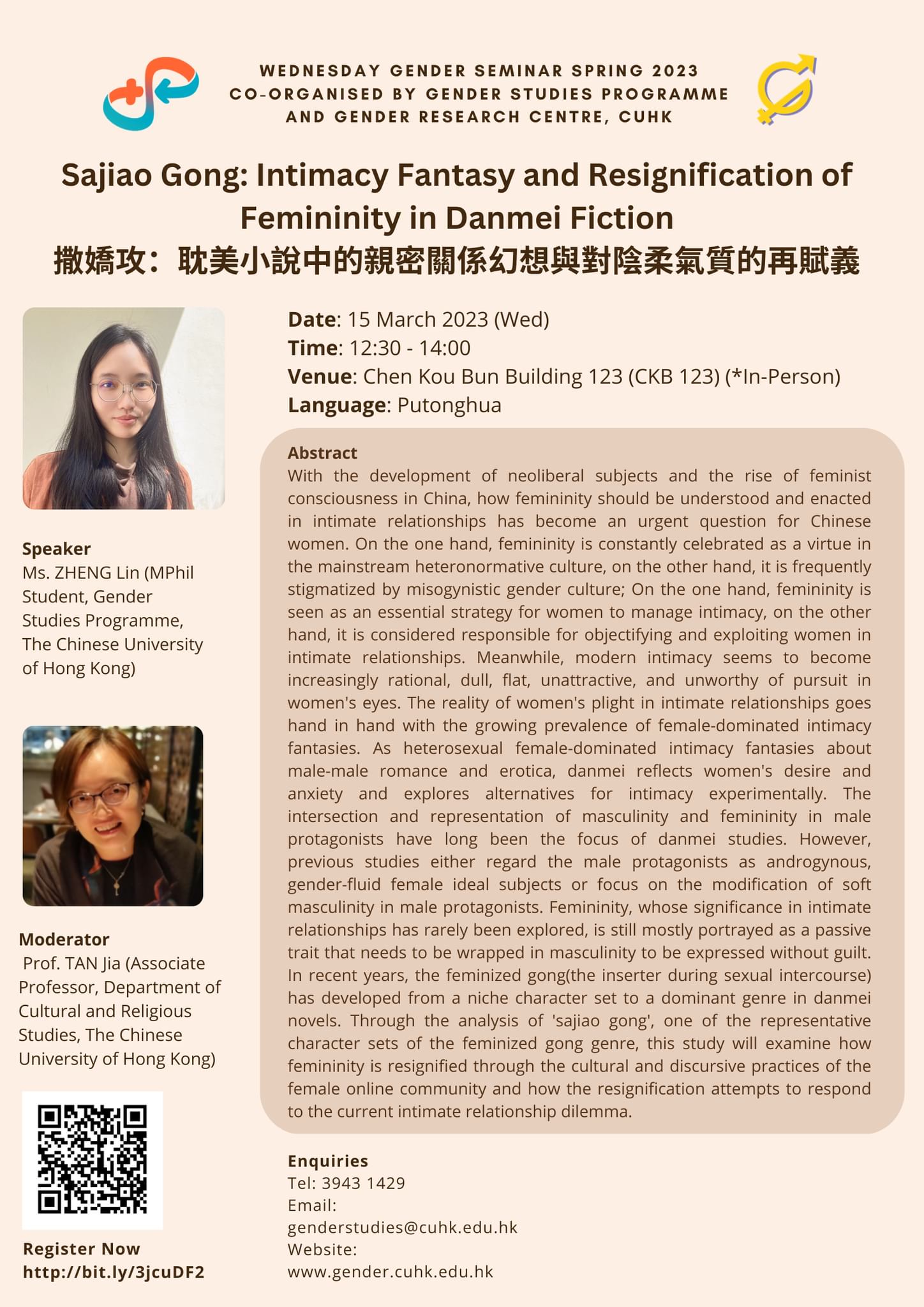 |
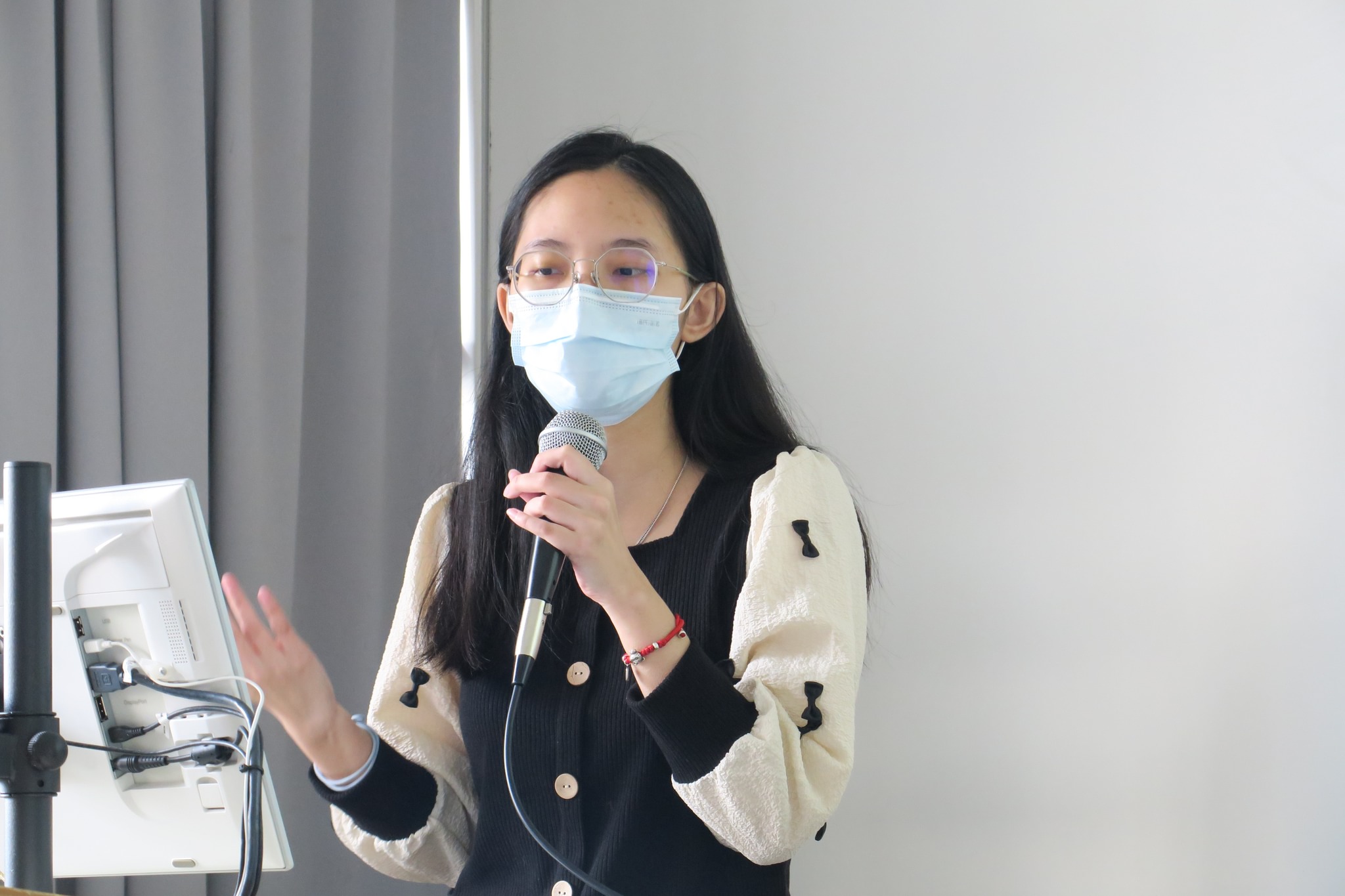 |
At the Wednesday Seminar on March 15, Ms. Zheng Lin, an M.Phil. student from the CUHK Gender Studies Programme, presented her research on the intimacy fantasy and resignification of femininity in Danmei Fiction by giving a genre study on a trendy persona type, "Sajiao Gong" in the Danmei's database writing within the Chinese context.
Ms. Zheng traced back the Western/Japanese origin of Slash/ Yaoi to the localization of Danmei/BL fiction and its current commercial transformation in China, highlighting its role in carrying heterosexual female prosumers' pursuit of idealized intimate relationships by applying queer and transgressive plots to male characters. By addressing the issue within a model of "personality (人設)" and "couples (CP)", she noticed the recent popularity of the dominant male characters' femininity, known as Sajiao Gong (撒嬌攻).
The word "Sajiao" (acting in a cutesy manner to gain affection) in the modern Chinese context carries the paradoxical and misogynic interplay of "virtue" and "stigma" all at once. However, by reading the Danmei fiction, Ms. Zheng indicated that a positive possibility provided by the dominant persona, "Gong (攻方)", might untie the passive implication of "Sajiao" as they proactively perform femininity and softness to intentionally promote the romantic same-sex relationship and dissolve the anxiety about the femininity of passive persona "Shou (受方)".
With the rise of neoliberal and feminist consciousness in modern intimacies, Ms. Zheng posed that Danmei fiction provides an experimental field for heterosexual women-dominant imaginaries and pursuits of intimacy, constantly responding to their realistic anxieties as known as what Dai Jinhua called "the dilemma of Mulan" of Chinese women maintaining subjectivity and independence only through performing the extreme masculinity.
Echoing former studies' interpretation of "soft masculinity", Ms. Zheng used "Sajiao Gong" to illustrate that women's preference for male femininity in the production and consumption of Danmei fiction could be related to their real-life reflection on female identity, and gender temperament. This study provides a feminist perspective different from a male-dominant one through the re-imagination of intimacy and the resignification of femininity.
Written by: HUANG, Minyan
15 Feb 2023 (Wed) Penalty, Bonus, or Needs: Family Care Responsibilities and Work in Three Labor Regimes of Chinese Societies
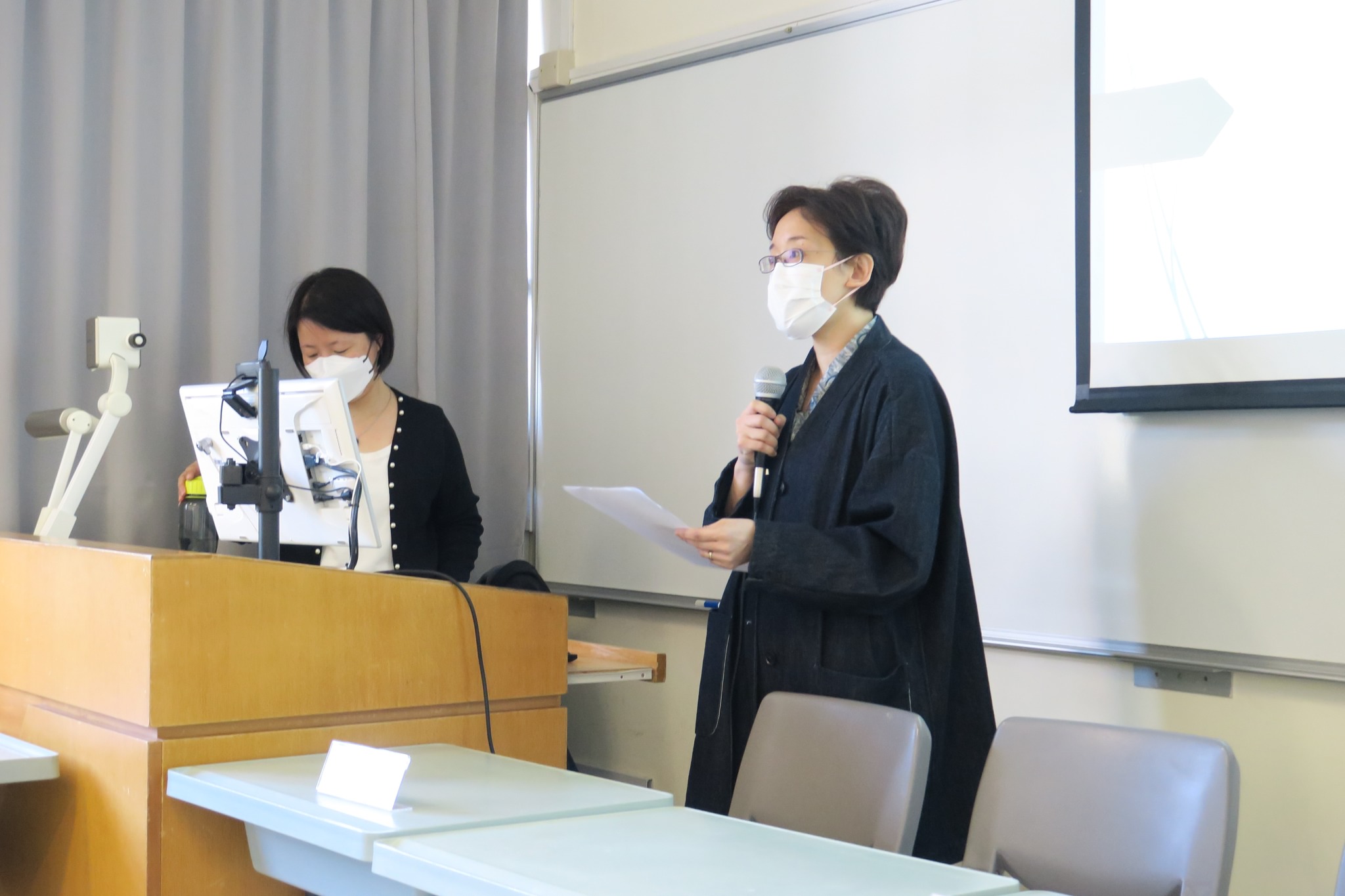 |
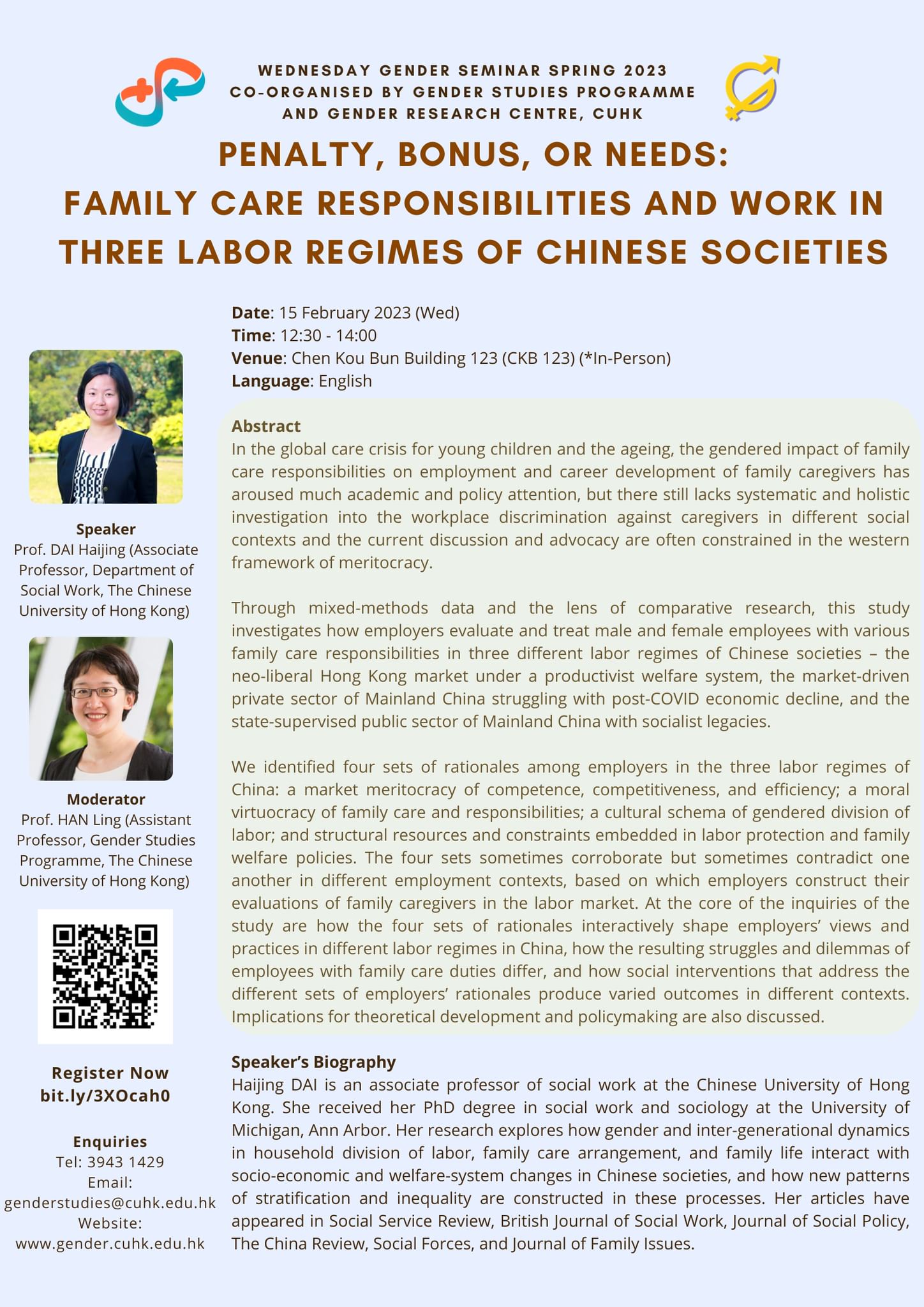 |
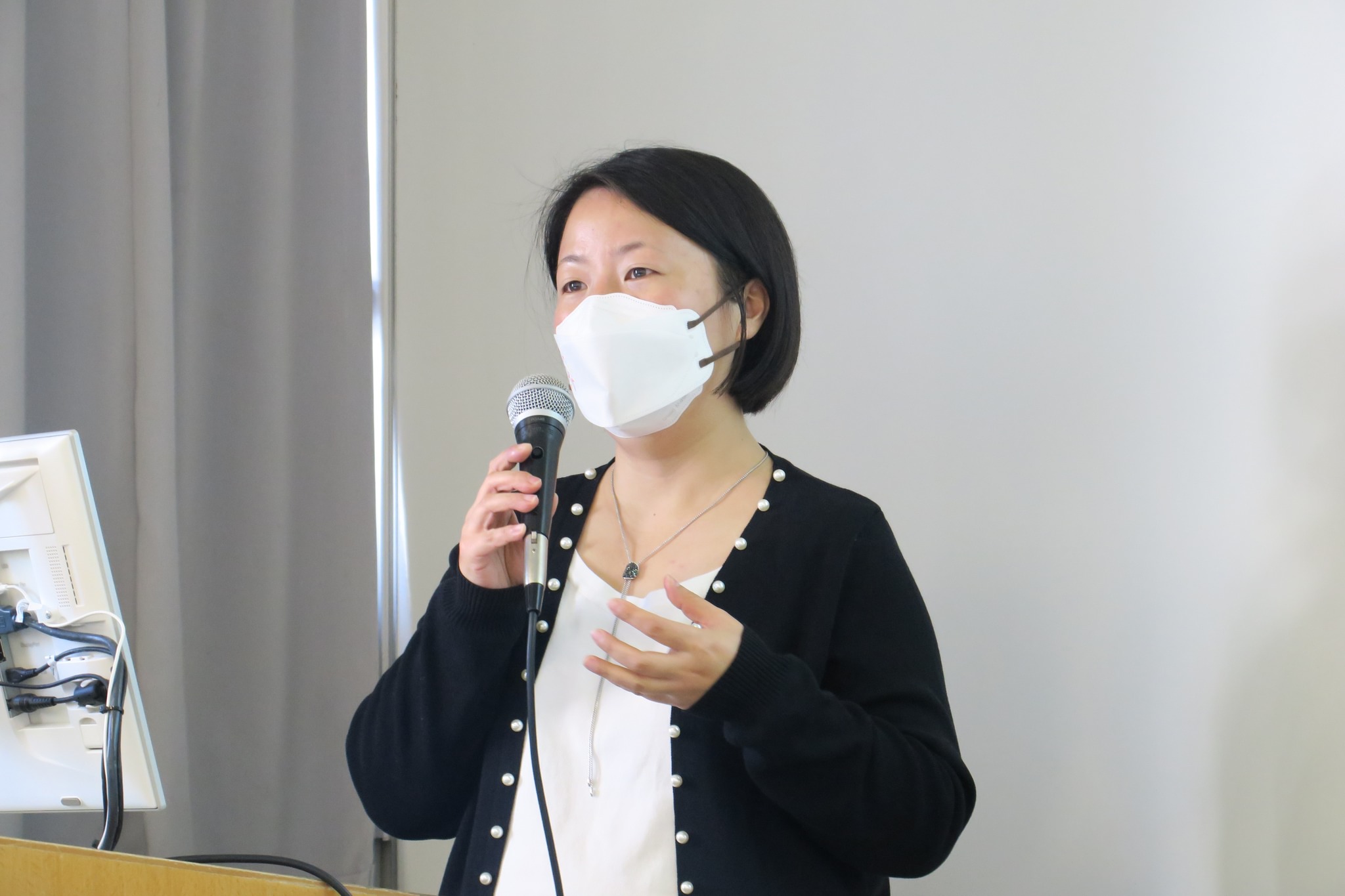 |
This mixed method research conducted by Prof Dai and her team investigates and compares the employers’ perspectives via female and male employees with various family responsibilities in three different labor market regimes (Hong Kong’s labor market, Shen Zhen’s private sector, and Shen Zhen’s public sector). While multiple researchers have argued that caregivers are uncompetitive in market meritocracy, this research has shed light on how the situation actually differs in three cultural environments and market regimes. In addition, this research has put on a gendered lens on caregivers’ struggles in the labor market, particularly female employees who suffered from the traditional norms.
Firstly, it is found that employers in Hong Kong hold quite a few particular cultural stereotypes when evaluating family caregivers. Family virtuocracy is considered a significant advantage for both males and females. Despite this caregiver bonus, mothers will suffer from motherhood penalty when it comes to childcare as opposed to elder care. It’s evident that the labor market structure is still in compliance with gender norms. Secondly, the data from Shenzhen’s private sector has proved the dominance of market meritocracy. Under this circumstance, the fatherhood penalty is also prevailing, and filial piety is not recognized as a bonus in the private sector. Employers consider work-family negotiation and balance an extremely private problem that employees have to address by themselves. Finally, Shenzhen’s public sector, where market meritocracy power has been lashed, shows respect for employees’ needs. This specific pattern with Chinese characteristics, however, creates a new dimension of inequality, such as outsourcing without guarantee, invisible discrimination against single women, and inward exploitation for the good of the community.
In conclusion, the three various patterns demonstrate that the factors and norms influencing employers to evaluate family caregivers are multifaceted in addition to meritocracy. It is also noticeable that gender norms existed in all three different labor market regimes. Although there are now only preliminary data analyses and conclusions at this stage, it is expected to see further research development as well as core findings in the final article.
Written by: ZHANG Xunyue
18 Jan 2023 (Wed) Tokophobia as Feminist Resistance? Female Netizens’ Reproductive Experiences and Discourses in China’s Cyberspace
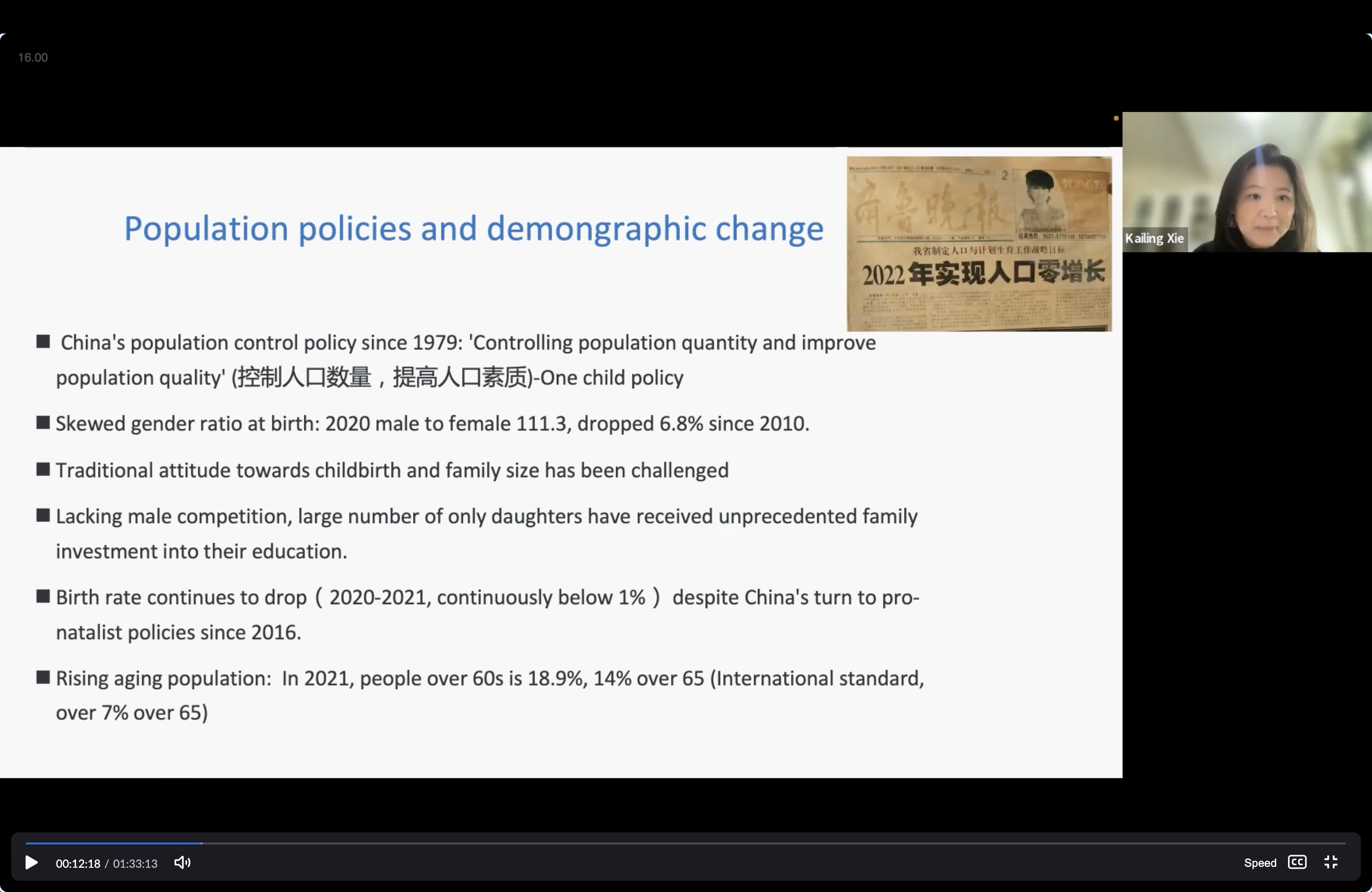 |
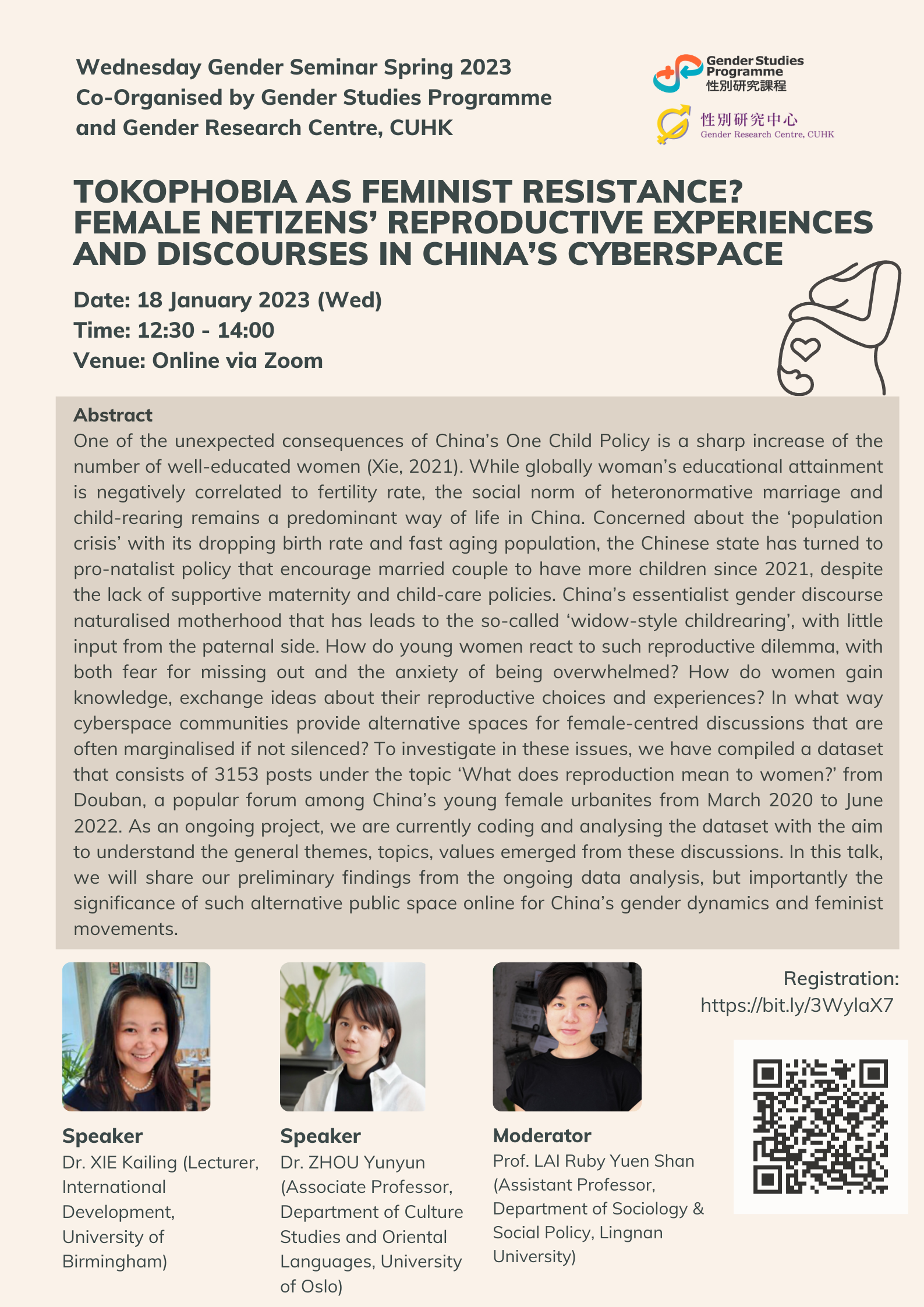 |
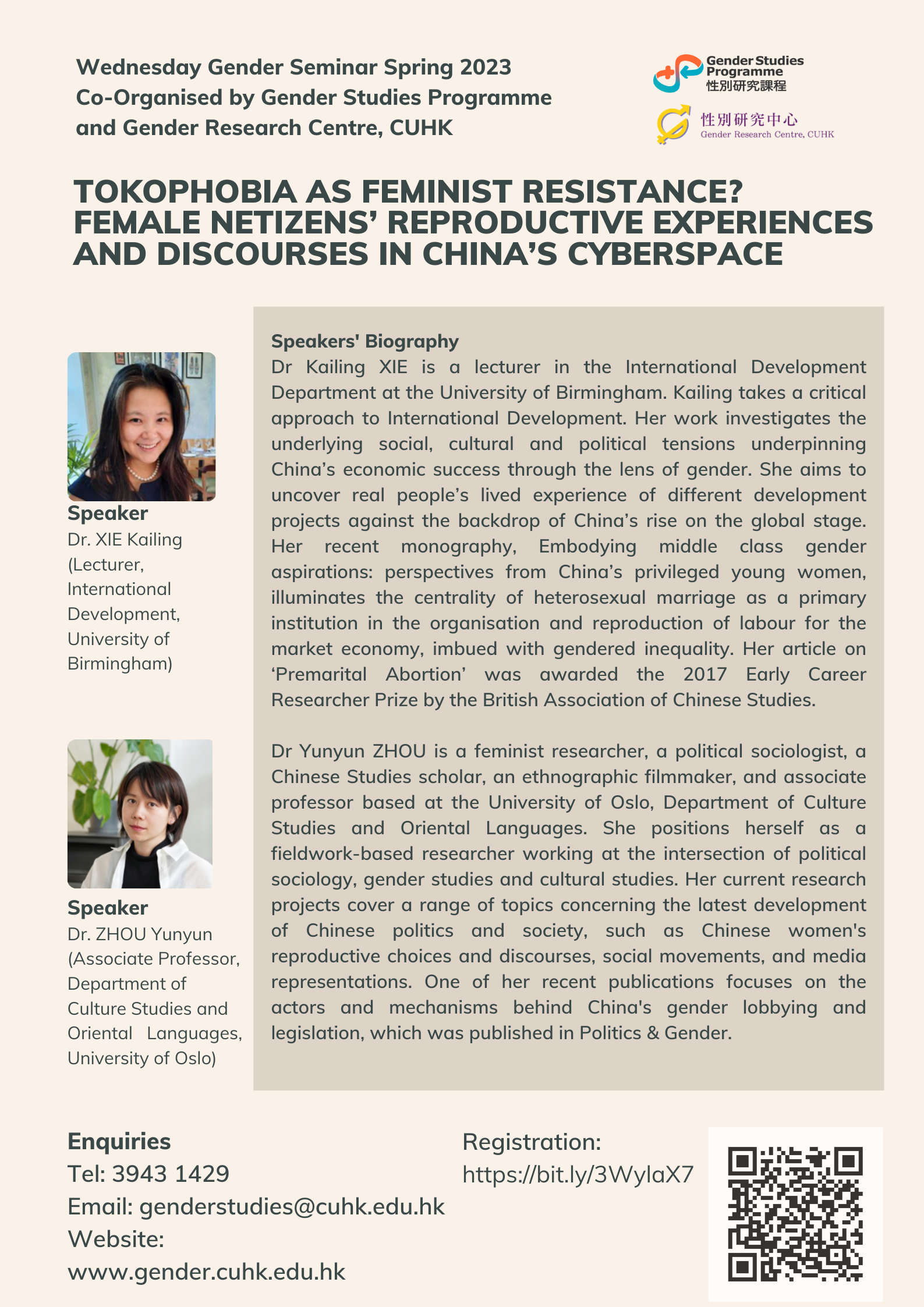 |
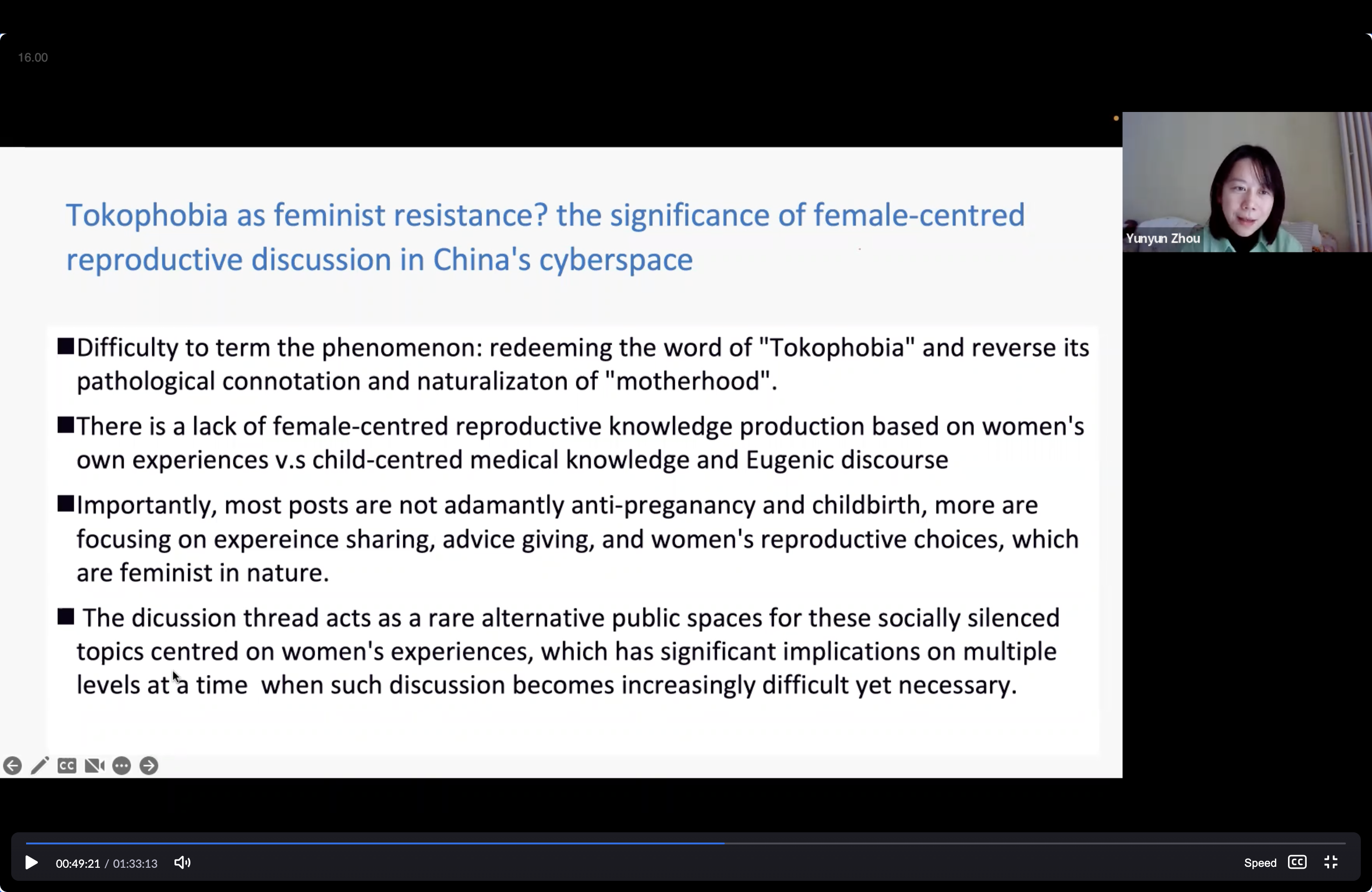 |
Gender inequality related to reproduction is a global issue, and the personal and family spheres, as objects of power control, make individual choices often the result of internalized power structures and gender norms. With the rising number of well-educated women with university degrees and high female labor participation, the fertility rate continues to drop in China. Concerned about the demographic change and the population crisis, the Chinese state turned to pro-natalist policy since 2021, despite the lack of supportive maternity and child-care policies.
This study focuses on young women’s reproductive dilemma posed by patchy patriarchy’s essentialist discourses and their individual desires. It further demonstrates the characteristics of the public cyberspace where women gain knowledge, exchange information and express their opinions about their reproductive experiences. This study also explores the role cyberspace play in shaping gender discourses in contemporary China. Conducted on Douban, a popular forum among Chinese urban young women, the study collected 3153 posts under the topic ‘What does reproduction mean to women?’ and analyzed the most “liked” 100 posts with thematic coding.
The findings suggest that discussions on Douban are predominantly focused on negative experiences of new motherhood. Women are physically and emotionally dehumanized in the process of pregnancy and childbirth. Due to the patriarchal family value and the essentialist gender discourse, motherhood is naturalized and romanticized, which has led to the ‘widow-style childrearing’ and the sacrifice of female individuality and professional career. As a result, in the absence of public support, women have to rely on private sources to address emotional issues and access female-centered reproductive knowledge. The phenomenon of tokophobia presented in online discussions is a resistance to naturalized motherhood. The discussion of childbirth in cyberspace has brought the invisible labor undertaken by women into the public sphere, which is feminist in nature.
Written by: ZHANG, Mengya
1月18日,Xie Kailing 博士和 Zhou Yunyun 博士在線上性別研討會上講演了兩人正在合作進行的研究——「恐育作為女權抵抗?中國網絡空間中女性網民的生殖經驗和話語」。兩位研究者首先勾勒了研究所處的中國語境,中國獨生子女政策使得女性獲得高等教育的機會大大上升,雖然在全球範圍內,婦女的教育程度與生育率呈負相關,但在中國,異性戀婚姻中女性養育子女仍舊是一種具有道德強制力的社會規範。兩位研究者借用 Evans 所提出的「支離破碎的父權」(patchy patriarchy)這一概念,認為將女性生育職責「自然化」、「本質化」的話語仍舊具有某種權威性,成為國家推行政策時的話術,並在公共文化生活中,例如在售賣母嬰用品的廣告中被不斷地生產和傳播。隨著出生率下降帶來的老齡化危機的初現,自2021年起中國政府轉而採取支持生育的政策,女性面臨著愈受嚴峻的生育壓力。而市場經濟驅動形成的以慾望為核心的現代式的對「自我」的追求,以及中國近年來在年輕女性群體中愈受浩大的女性主義聲浪則進一步成為引發女性在網絡空間中關於生育激烈探討的契機。為了探察受過良好教育的年輕女性對這一生育困境的回應,以及網絡空間在這種生育困境討論中的作用,兩位研究者對熱度極高的豆瓣主題帖「生育對一位女性意味著什麼」進行了的話語分析。在以主題式編碼為主的初步話語分析中,研究者們發現大多數的話語都圍繞著生育的消極體驗及其作為一種「被掩蓋的黑暗秘密」展開,並進一步展示了話語群中三個顯著的主題:生孩子作為一種肉體和情感上的雙重創傷;「喪偶式育兒」剝奪了女性的個體性;缺少女性中心的知識生產和對父權制結構的反思。在講演的最後,研究者們進一步指出了這一現象的複雜性:回帖中沒有出現明顯的反對生育的聲音,而是更多地集中在經驗分享,給予建議和女性的不同的生育選擇上,儘管帖子的發表者們並沒有明確自我表明女權主義立場的傾向,但她們關注和討論著與女權主義緊密相關的議題。研究者們認為,網絡空間提供了一種另類的公共空間,使得在社會空間中被迫靜默的女性經驗相互溝通,女性話語得以建構。
Written by: ZHENG, Lin
Fall 2022
Co-presented by: Gender Studies Programme, Gender Research Centre & Sexualities Research Programme, The Chinese University of Hong Kong
16 Nov 2022 (Wed) The interplay between intimacy and commodification: Exploring family and work lives of lesbians in China
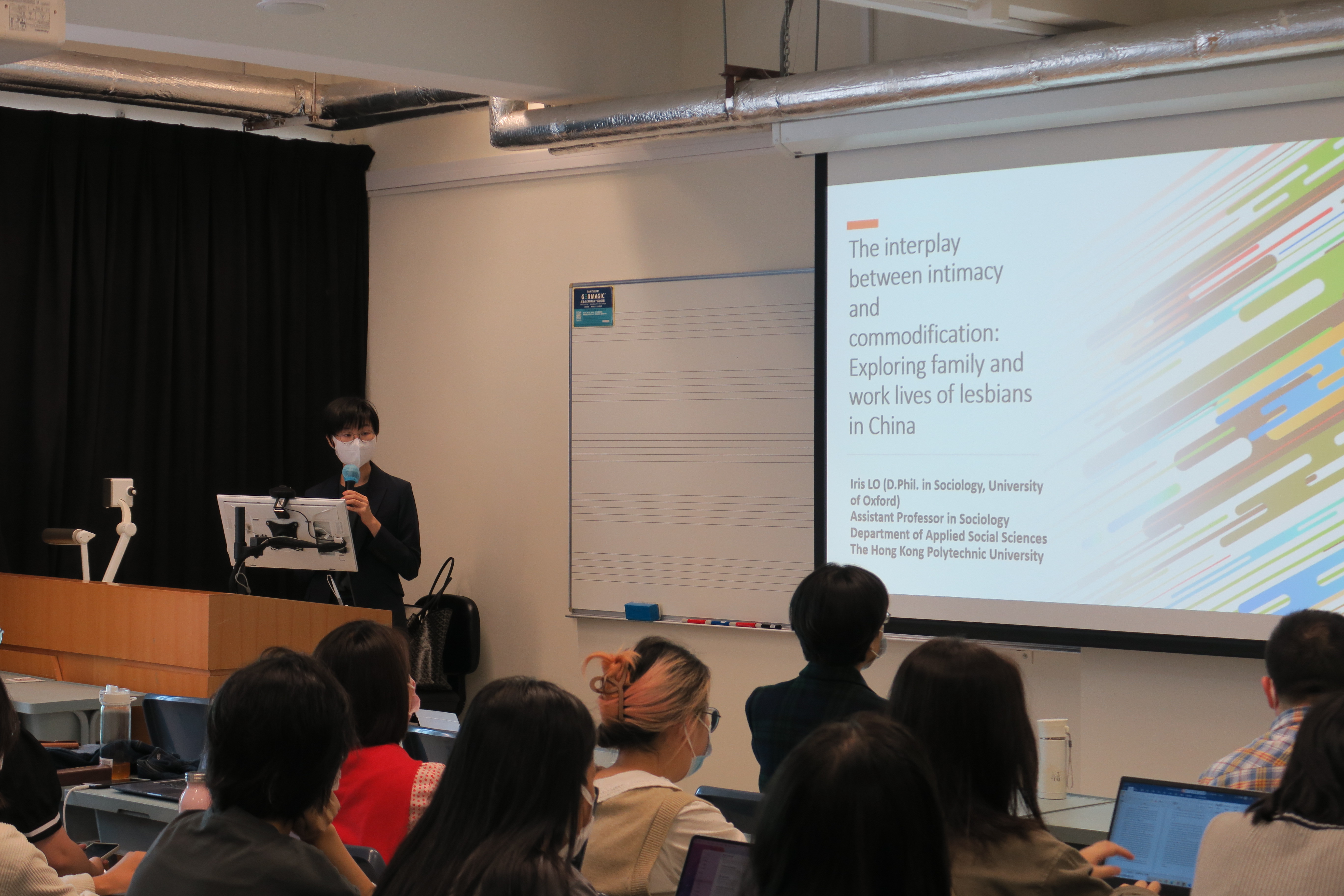 |
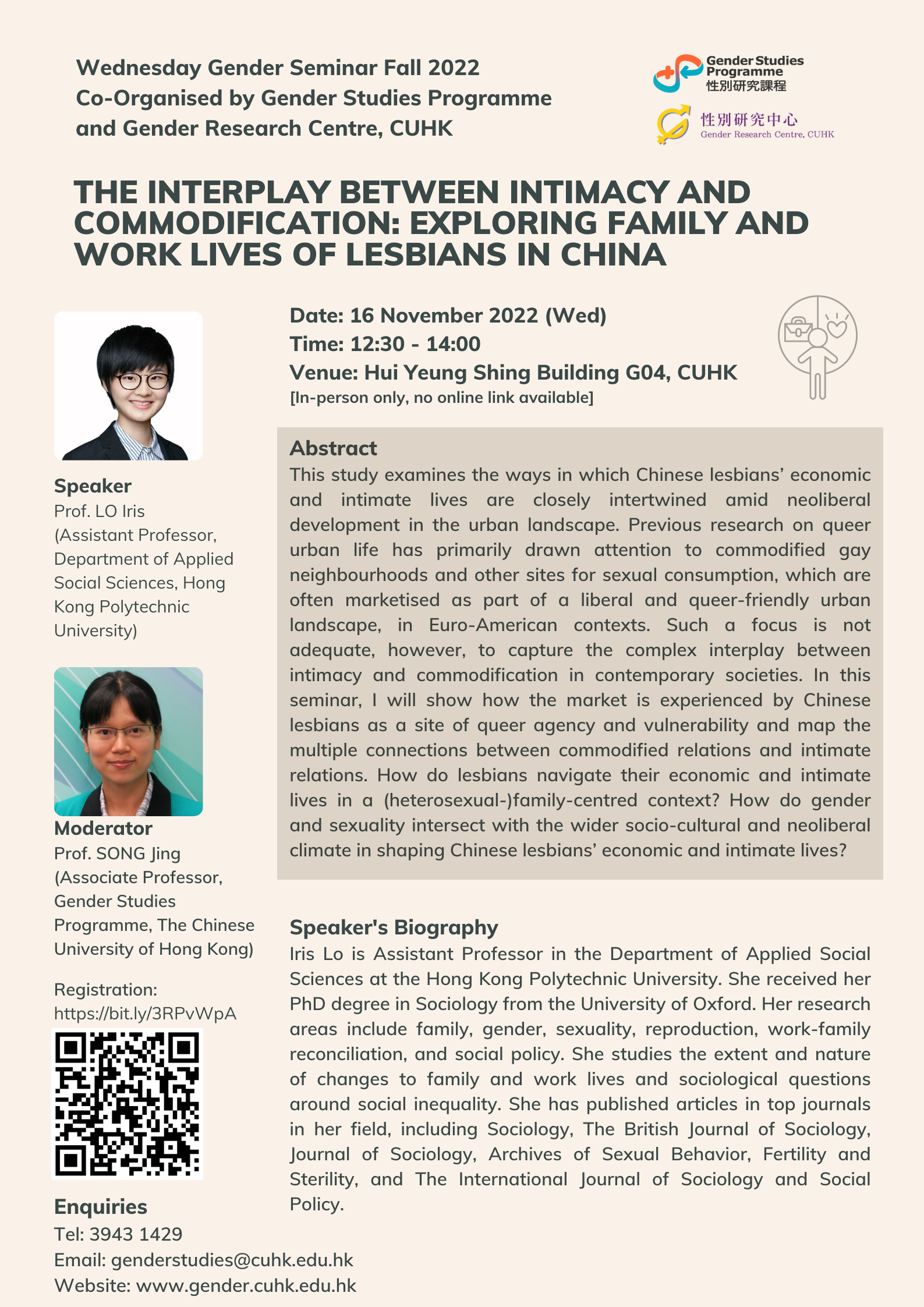 |
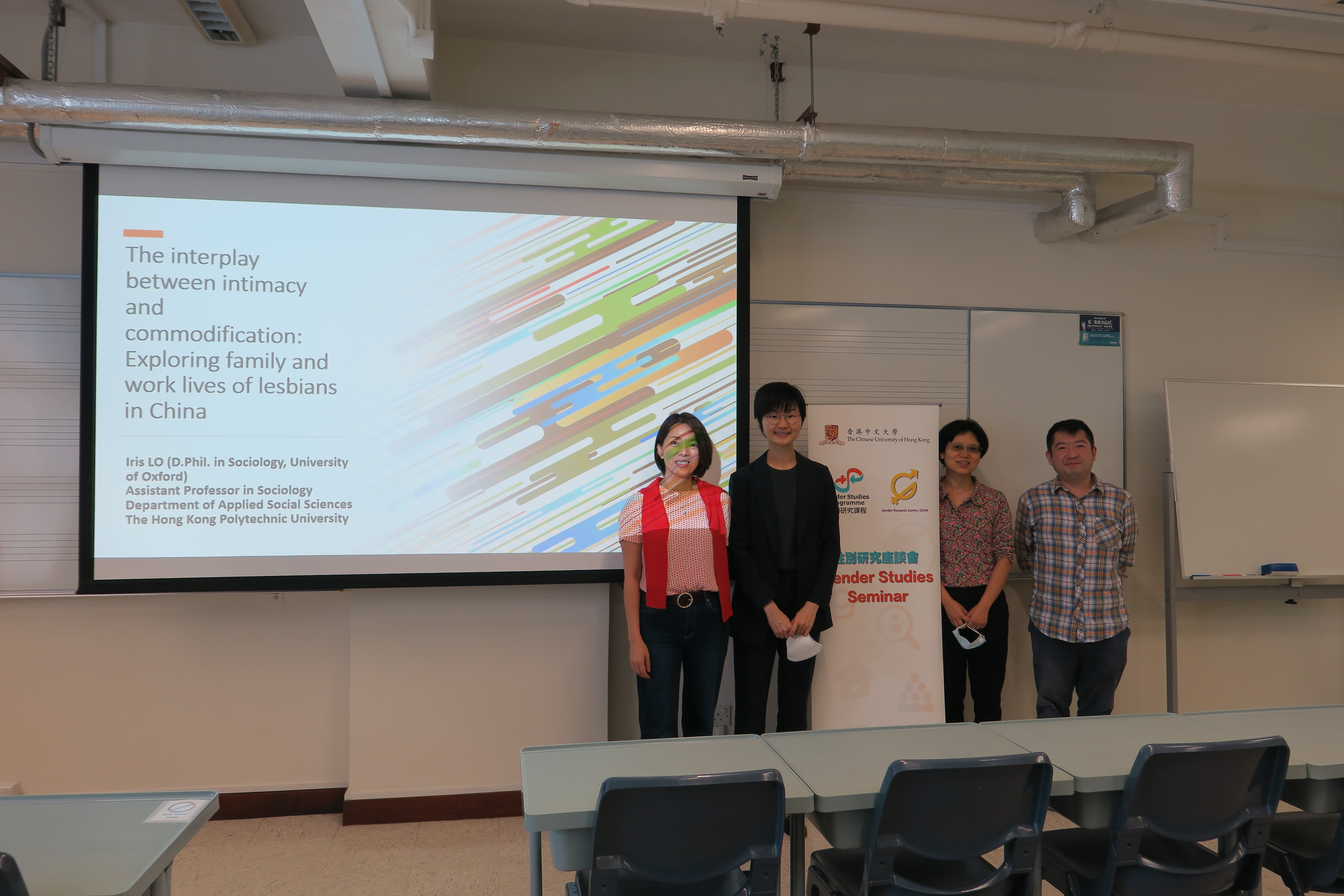 |
Prof Lo’s presentation examines the ways in which lesbians explore opportunities and navigate constraints in their family and work lives in urban China. Research reveals that the interconnection between the economic and intimate life of lesbians in modern cities is commodified. They not feel empowerment through navigate lives in work and pink market as resourceful consumers, but also intersecting with sociopolitical and neoliberal power with their everyday practices on a larger background.
Although the respectable queer citizens could make relatively free expression of their sexual identity through the consumption of commodities and capital, opportunities to subvert traditional gender expectations carry a high price tag, which could be unaffordable for many economically disadvantaged lesbians. The hidden danger here is that commercial logic may cover personal voice. That is it transforms feminism from a political movement to a non-politicized product and personal attitude. And the paper also point out that lesbians also face the hinders in the labour market. Except from fashion field, in which sexual minorities have their own traffic(自带流量). In most workplaces, lesbians are cautious about disclosing their sexual orientation because of the fear of discrimination and prejudice. It inspire us to think how gender norms, heteronormativity, and policy intersect in generating obstacles for Chinese lesbians to thrive as respectable adult workers. This has important implications for further attempts to help adult worker to fit better with people's diverse work /family needs.
Despite from everyday practices and interactions,there’s also need to observe the penetration of digital media into daily life. And it is easy to find that in many mon-homosexual-oriented social media software in China, lesbians have less visibility compared with gays, which is similar to the second point of the article's research gap.
Written by: XU Yinuo
On November 16, the topic of professor LO’s speech was the interplay between intimacy and commodification by exploring the family and work lives of lesbians in China.
She began her speech with the research objectives and the research question, which were how do Chinese lesbians navigate their economic and intimate lives in a context where same-sex relationships are yet to be socially or legally recognized, and how do gender and sexuality intersect with the wider socio-political and neoliberal climate in shaping Chinese lesbians’ economic and intimate lives. The main research gaps were underground queer scenes in more restrictive contexts, everyday practices in commodification and sexuality, and Chinese lesbians.
After introducing the challenges and opportunities of the queer community, the rise of queer desires, and the pink market, she told us her research method is an in-depth interview about well-educated lesbians in Beijing. There were three findings. Firstly, participants' intimate lives are 'commodified', because their choices about intimacy and same-sex marriage are related to the workplace and pink market. Secondly, the ways they use to avoid gendered and sexual obstacles in the labor market by hiding or fictitious their sexual orientation, gender expression, and marital status are 'commodified’. Thirdly, most participants’ strategies to accommodate and/or resist established norms are finding their own comfort zone.
In conclusion, this research showed how commodification and intimacy interact with each other, and the dilemma of Chinese lesbians that they must get a decent job to have the life they want, but due to the gendered and sexual obstacles, they cannot openly lead the life they want.
Written by: ZHANG Yue
At the talk on 16 November 2022, Prof. LO Iris shared her project, "the Interplay between Intimacy and Commodification: Exploring Family and Work Lives of Lesbians in China." Based on the in-depth interviews with lesbians living in Beijing, she delved into the economic and intimate lives of lesbians in the Chinese urban landscape and weaved it with the political and neoliberal atmosphere in China.
She proposed that 1978 is the watershed compared with previously stigmatized, although not illegal, queer living circumstances, allowing the new exploration of queer subjectivities. Queer people were shaped by middle-class cosmopolitan values that encouraged them to pursue their material and emotional desire without transgressing social norms or challenging the limitation that the government set. During the interview, Prof. LO found that urban lesbians were eager to enter the labour market to gain enough money to become respectful citizens, capable workers, and resourceful consumers. And they expected this would bring them more freedom and subjectivity to their sexual orientation.
However, Prof. LO also found that the queer agency that the market brought was always intertwined with vulnerability. The strategies that lesbians adopted to sustain decent jobs providing the economic foundation for the life they wanted may also reinforce the gender and sexual orientation hierarchy. For instance, lesbians must be cautious about disclosing their sexual orientation in the workplace. They would try to hide their sexual orientation and pretend to be heterosexual. They would constantly come across the question of why they still stay single and even need to lie to their colleagues that they have got married to a heterosexual man or try to perform a traditional social script of femininity. Also, although they were determined to commodify their labour power, there was no guarantee they could earn as much money as expected since the gender wage gap still exists.
In the open discussion, several valuable and debatable points were highlighted. For instance, does the commodification in the research refers to labour or intimacy? Is the theoretical framework expandable to other Chinese intimacy phenomena, like dating shows? Is the concept of intimacy proper to explain the performance of gender norms and the interest in personal life in the workplace? Is earning enough money truly free lesbians from parents' expectations of heteronormative life?
Written by: ZHENG Lin
9 Nov 2022 (Wed) Employing domestic workers and gender gap in domestic labor among working parents: An effective strategy?
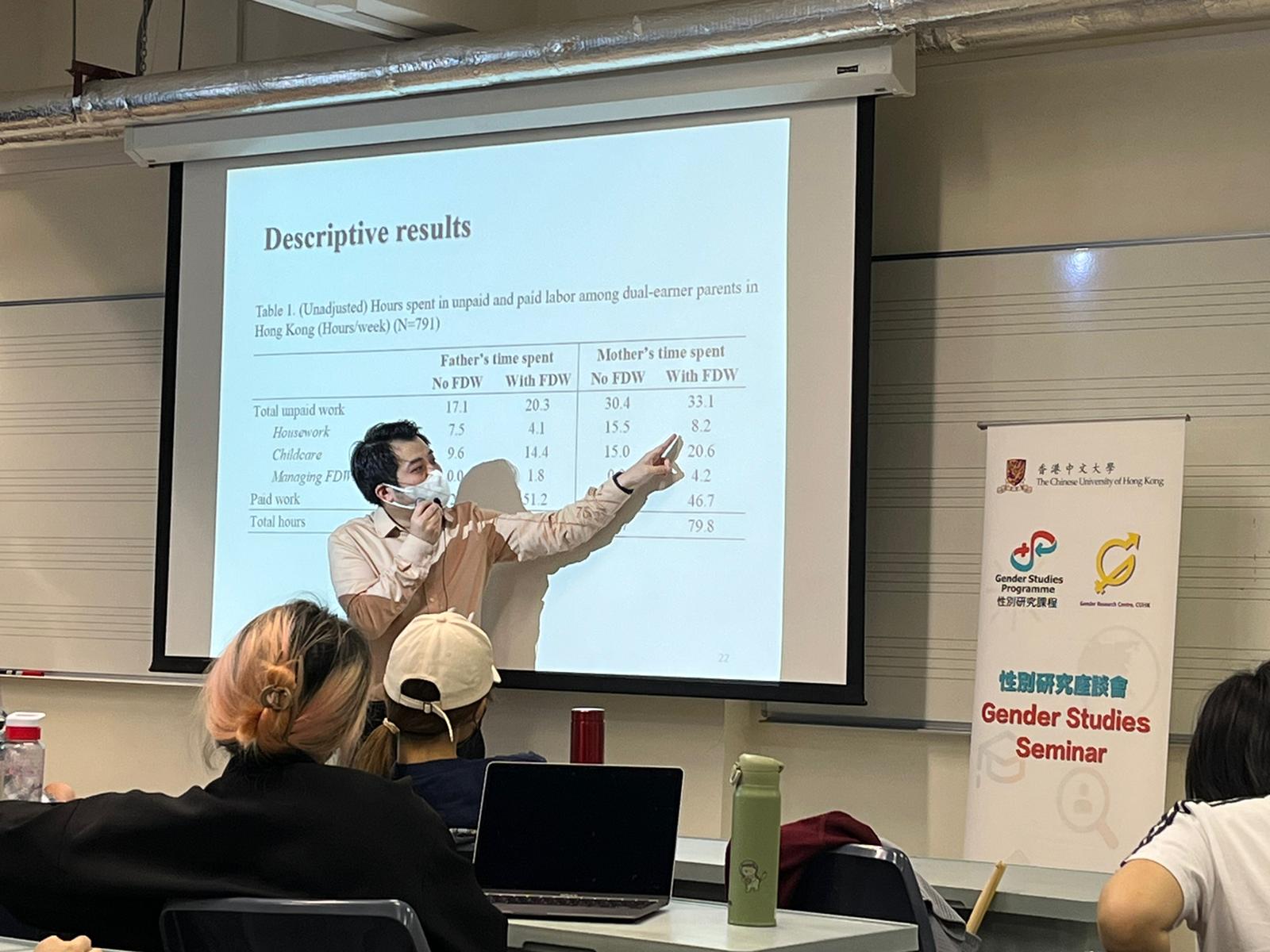 |
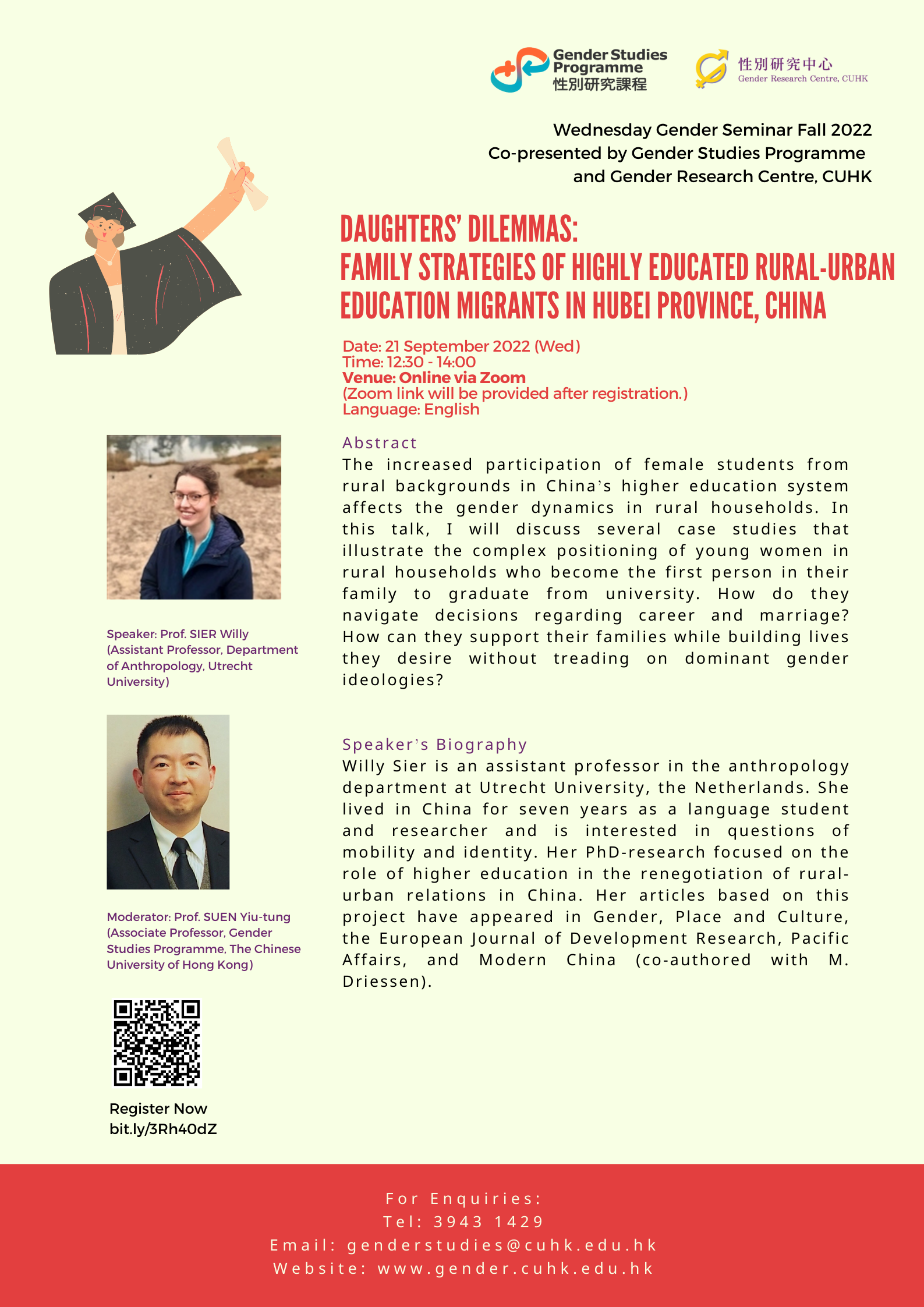 |
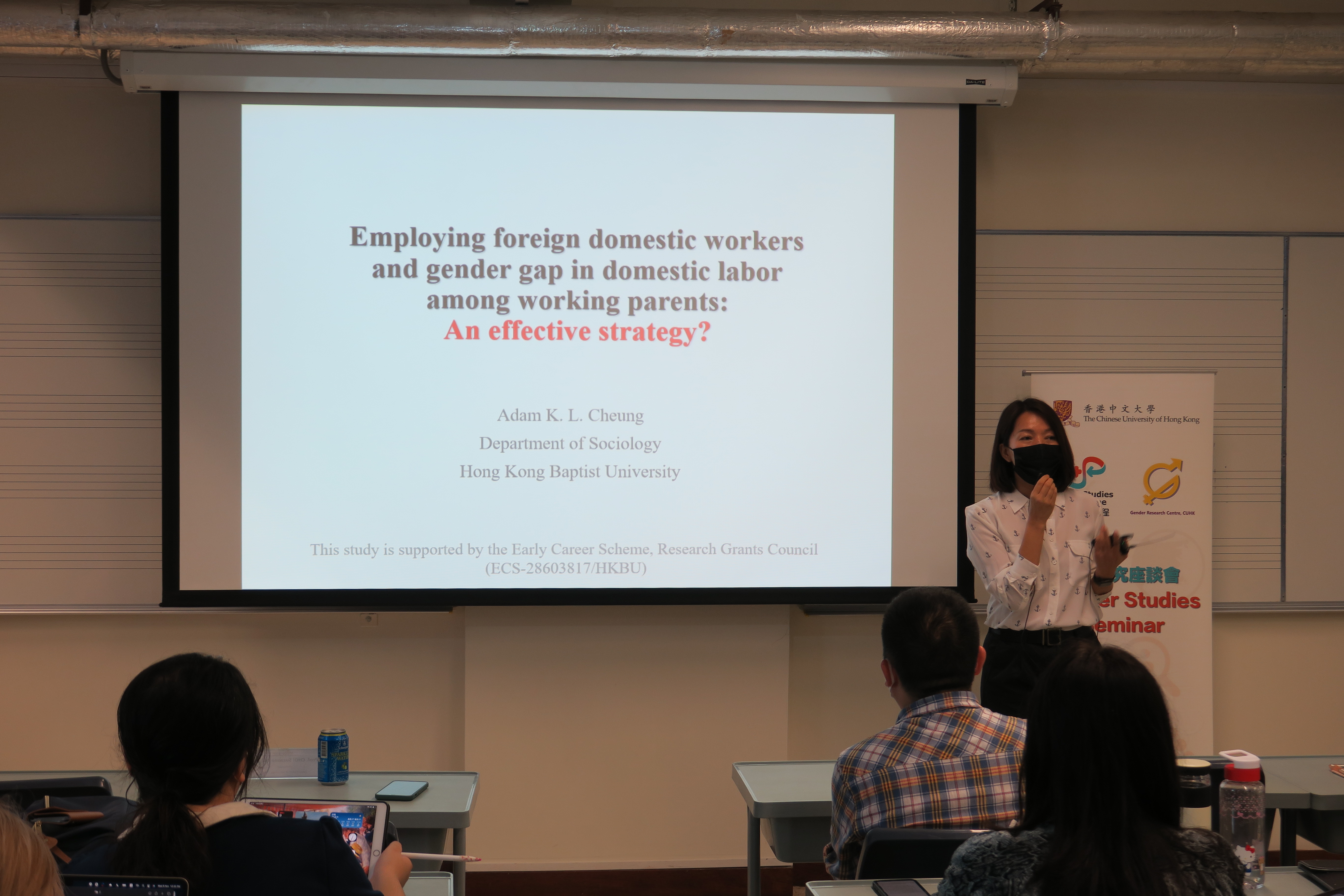 |
At last Wednesday seminar, Prof. Adam Cheung presented his research on how live-in foreign domestic workers (FDW) help reduce unpaid domestic labor for dual-earning parents in Hong Kong.
Consisting of 4-5% of HK population, FDWs play an unignorable role in HK society, and around 1/5 married population in HK live with a domestic worker. While research on FDWs’ living/working conditions flourished, limited studies have investigated the changes they brought to the employer families. Prof. Cheung therefore shifted the research focus to the hiring families. He also pointed out that, the well-established time-saving effect of the labor outsourcing nature of hiring domestic workers might not be applied to Hong Kong context for two reasons. Firstly, live-in domestic workers could generate more management tasks for the employers. Secondly, the prevailing intensive-parenting beliefs might hinder the delegation of all childcare tasks to the domestic workers, that is the delegation-involvement paradox. Instead, the time saved in housework might be taken up by the parents to do more childcare/management tasks, producing a time-displacement effect. As the emotional and communal nature of proposed new tasks, a gendered labor pattern might be expected.
Prof. Cheung’s study used a two-stage mixed-method design. The quantitative data of a representative sample of working parents (N=791, Nwith live-in help=265) suggested a time-displacement effect of live-in domestic help. Although paid help significantly reduced the time parents spent on housework, parents with live-in domestic workers spent around 3 hours more per week in unpaid labor than did those without paid help. The increased labor involved managing the domestic worker and childcare. The following in-depth interviews (N = 20) revealed parents’ subjective perception of the use of live-in domestic help as a strategy to achieve better parenting. In terms of gendered labor division, with a live-in helper, working mothers saved more time in housework but also had a larger burden of management and childcare than working fathers. No effect of hiring live-in help on diminishing gender inequality was founded, and working mothers had a higher total labor hours than fathers in both conditions.
Written by: TANG Xiaolei
Employing foreign domestic workers and gender gap in domestic labor among working parents: An Effective Strategy
The use of live-in domestic labor is popular among dual-earning parents. Around one-third of dual-earning parents in Hong Kong currently hire live-in domestic helpers. This study provides a critical examination of the time-saving hypothesis from the domestic outsourcing literature on the roles of hiring live-in help for household labor and situates the time-saving effect in the literature of intensive parenting. The research uses mixed method, analyzes quantitative data from a representative household survey to investigate the association between employing live-in domestic help and time spent by the working fathers and mothers on housework, childcare, and tasks related to managing domestic helpers, and also analyzes qualitative data from in-depth interviews of first-hand experiences about the role of hiring help in household labor to unpack the meaning of hiring help and its relationship with the notion and practices of parenting.
The findings suggest that the use of live-in domestic help is a specialization strategy to strive for perfection in parenting for parents. By outsourcing household chores and more routinized childcare tasks to the helpers, working parents, especially mothers, can focus on emotional bonding and tasks conducive to the development of their children. Working parents hiring live-in domestic work spent significantly fewer hours in housework, however, the reduced time in housework is totally replaced by the increased time on childcare and managing the helper. The time-saving effect of using domestic help is stronger for women than for men but it does not reduce gender inequality, mothers took up most of the new role of managing domestic helpers to deal with both household chores and routinized childcare work. Parenting strategies, though, are more intensified on the part of the mothers. The gender gap still exists.
Written by: ZHANG Mengya
Although there has been a lot of research on FDWs (Foreign Domestic Workers) in Hong Kong recently, Professor Cheung's research is very refreshing. Unlike other places of the world, Hong Kong has a tradition of employing live-in FDWs rather than flexible helpers for domestic outsourcing, which means that the former has a higher threshold, is more inflexible, and requires the employer's family to spend more time negotiating with and managing. Also, Hong Kong is a well-known city for its culture of intensive parenting. Many Hong Kong parents will consider hiring FDWs as a strategy to practice their intensive parenting.
Based on domestic outsourcing and intensive parenting, Professor Cheung has studied the time-use patterns between Hong Kong families with and without FDWS through a mixed-method of quantitative and qualitative research and has come up with conclusions that are different from previous research. He found that the time-saving effects of domestic outsourcing are overestimated, and the time-displacement fits Hong Kong’s condition more. In Hong Kong, hiring FDWS does save parents (mainly mothers) some time in housework, but the time of child-care and managing helper increase. Due to the expectation of intensive mothering, these two tasks are still gendered and mothers always do more, which indicates hiring help cannot enhance gender equality.
In my opinion, Professor Cheung's research perspective and findings are very inspiring. As someone interested in domestic outsourcing in mainland China, I have only focused on work-family time conflicts in the family, but not aware of the chores-childcare conflicts (especially for mothers). In addition, Professor Cheung also emphasizes the importance of the ideology of intensive parenting. In mainland China, the role of FDWs is usually taken by grandparents. However, after the abolition of extra-curricular classes, will parents' anxiety turn into a form of intensive parenting and prompt them to hire young educated helpers to do the child-care work? This is still underexplored and deserves our attention.
All in all, I really enjoyed this seminar and it gave me a lot of inspiration for my research.
Written by: ZHANG Xunyue
5 Oct 2022 (Wed) Gender Research Centre Orientation Talk: Honour Based Violence: Minority Women As Agents of Change
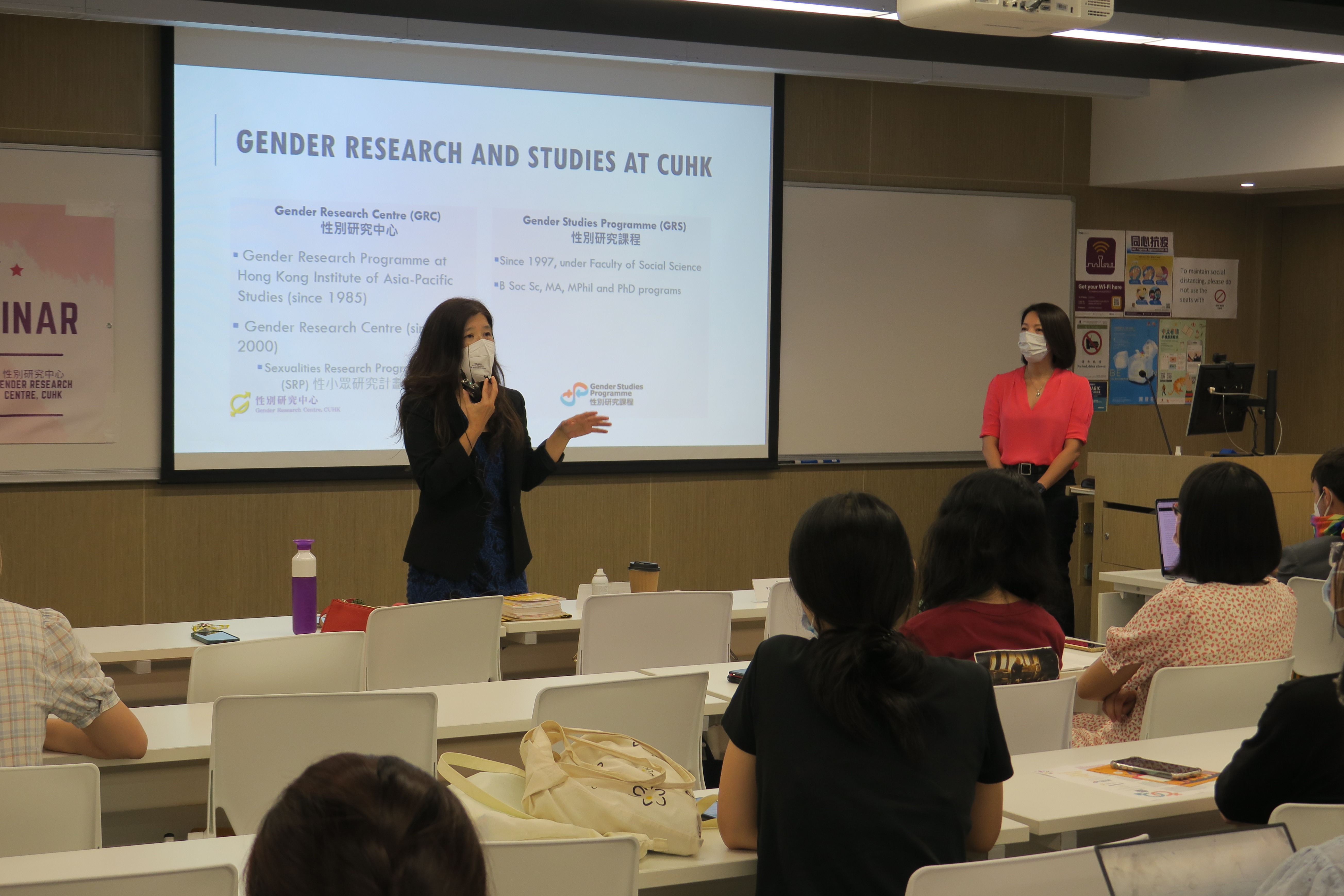 |
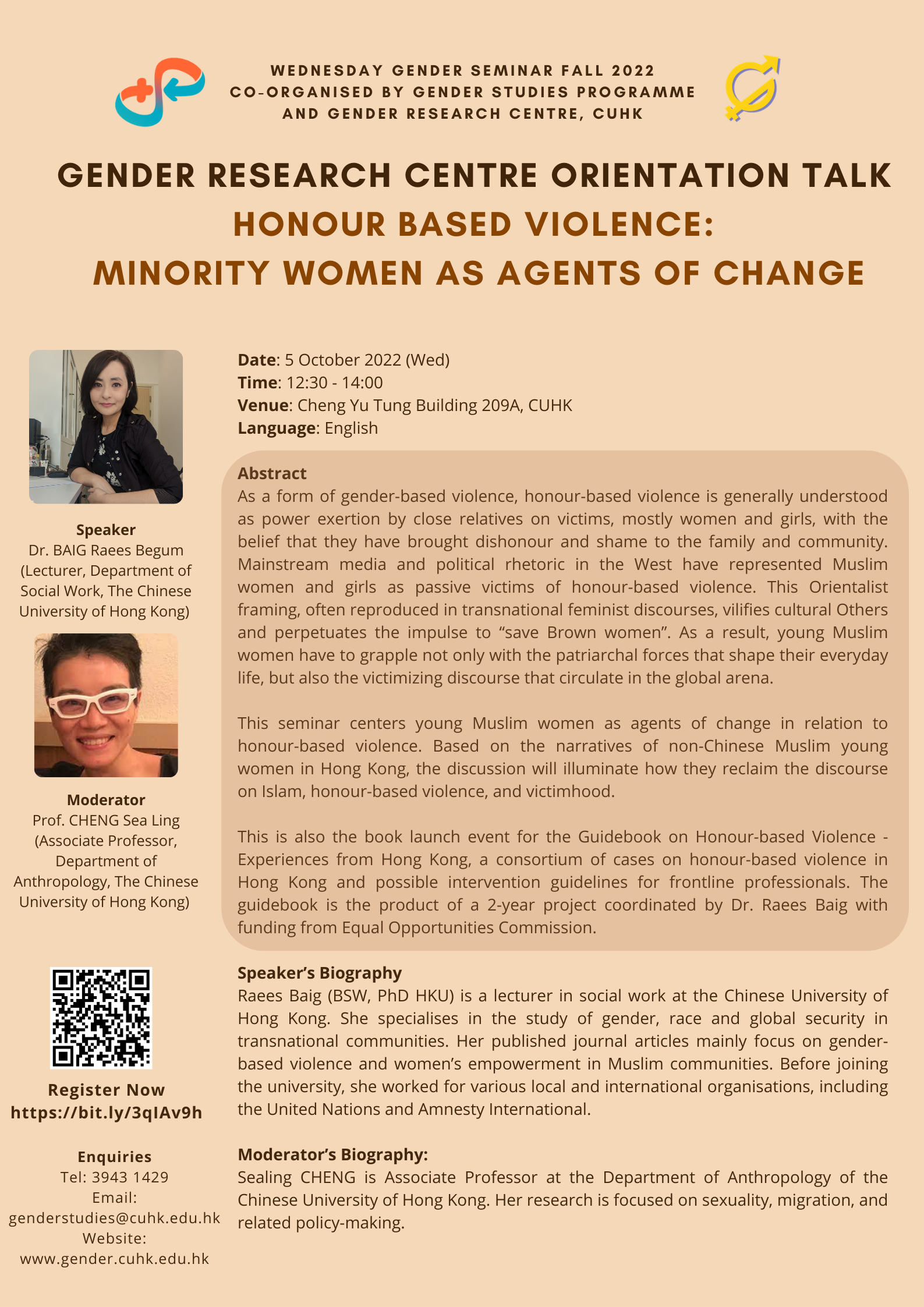 |
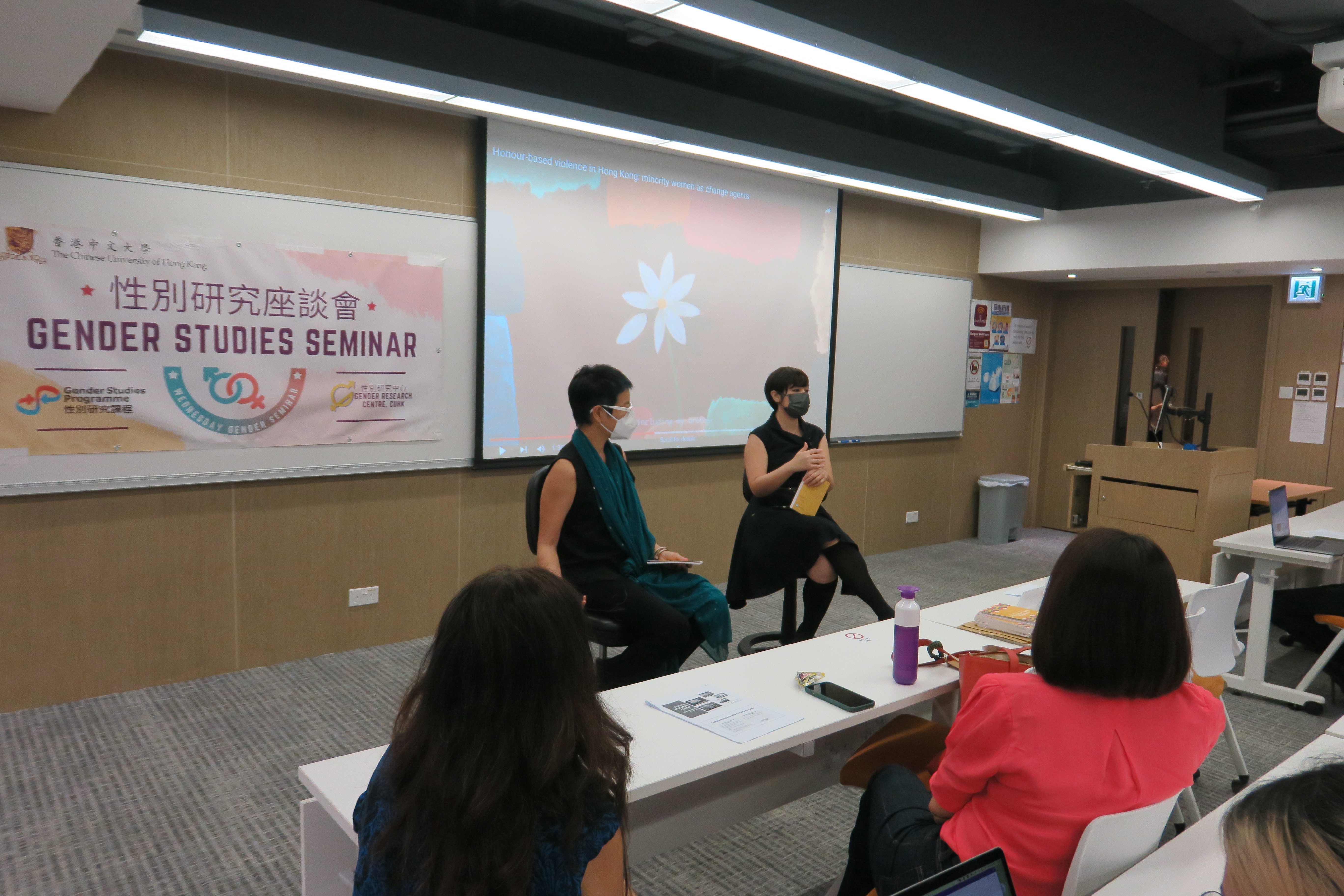 |
At Gender Research Center Orientation Talk on 5 October 2022, Dr. Raees Baig shared the research project Honour Based Violence: Minority Women as Agents of Change and presented a guidebook which is the product of this project.
During her involvement in local NGO’s investigation and assistance on domestic violence, she noticed that some Muslim women in Hong Kong were suffering from domestic violence because they were thought to brought shame to the family and community . She began to focus on their situation and try to connect with them. At the beginning she realized that Muslim women who had experienced honour-based violence, although they may not understand “honour-based violence” as an umbrella term, were able to share awareness of certain violence and poor power positions, while they also had a lot of confusion about marriage, sex and romantic relationships. Dr. Raees Baig then set up a workshop to give these women a platform to share their experiences and gender equality ideas, allowing them to connect the concepts and terms to their own experiences and identities.
However, the younger generation who have been subjected to honour-based violence are no longer passive victims, they have escaped from the official ideology through the internet and self-study of the Qur’an, and have learned about the political and religious contexts of their experience and many notions of gender equality. They try to escape their families or teach their families the new ideas they have embraced, in order to change the awful father-child relationship.
When asked if the project had helped to heal and empower the women victims, Dr. Raees Baig thought that it was important to give people who had experienced honour based violence or domestic violence more space to share their experiences, which helped them to realize and understand their situation. She also felt that their project has gone some way to challenging the global victimizing discourse of Islamic women by giving these women themselves the opportunity to speak about their effort to change the situation.
Written by: LI Xiangyi
A guidebook focusing on Honour-Based Violence (HBV) was shared in the seminar in order to address the issue of HBV of young Muslim women in Hong Kong. Their HBV experiences were revealed in the booklet, aiming to explore the way they interpreted their experiences in religious and cultural perspectives, and promisingly, initiating discussions and concerns on HBV cases in Hong Kong.
The seminar is facilitated by Dr. BAIG Raees Begum and moderated by Prof. CHENG Sea Ling in a Questions & Answers approach. Dr. BAIG first shared about the motivation behind the project, their interests in investigating how the young Muslim women perceive phenomenons such as domestic violence, HBV, forced marriage in their own words. Surprisingly, the younger generation has more thoughts on differentiating their culture and religion; they also have stronger mobility on their Muslim identities and their personal autonomy when comparing to the older generation who refused to relate themselves to sexual topics.
Dr. BAIG further explained the use of the word ‘honour’ and the underlying reason for young women being the agent of change but not victim-survivors of HBV. The ground of honour is strongly correlated with pride and reputation, in social contexts, on the other hand, honour also refers to standards and behavioural guidelines encouraged by the community. In fact, Dr. BAIG revealed that young women exposed to HBV are not only perpetrated by their father or other male relatives, female members sometimes play an assisting role in the process of HBV. HBV is therefore notably family-based in Islam culture.
Nonetheless the traumatic stress experienced by the young women, Dr. BAIG mentioned they expressed a longing for rebuilding their family’s relationship, breaking through these down the ages, agony family dynamics. With an eye to leap forward the family hierarchy, those brave women tried to regain their dignity in becoming a change agent instead of labelled as victim-survivors in their situations. They further share their self exploration process through this project to break the original Muslim teaching myth, meanwhile fighting for their identity of being a Muslim.
Written by: LI Yeuklam
The seminar on Oct 5th has been successfully held. Compared with the previous seminars, this one has some special components. First is the orientation of Gender Research Center. The GRC is an organization specializing in gender issues at the Chinese University of Hong Kong, and Prof. Lynn demonstrated the academic and practical achievements of the GRC by presenting the center's past research projects, book publications, workshops, and other activities and it was committed to recruiting members for this seminar. The second part is Dr. BAIG Raees Begum’s sharing of her 2-year project of the honour-based violence (HBV) focus on the non-Chinese Muslim young women in Hong Kong, also the publication of the guidebook based on the real experience and cases of the HBV investigated in this project.
What motivated Dr. Baig to conduct this project must be recalled from a social work experience that took place several years ago. At the time, Dr. BAIG was cooperated with one local NGO to work on domestic violence. During the work, they discovered that the situation could be religious and cultural ways. Although the previous generation of non-Chinese Muslims living locally in Hong Kong may not understand the ture meaning of the academic terms like “domestic violence” or “forced marriage”, they can express this sentiment in their own language. However, the young female generation, with the fully understanding of these term, strong self-identity, and highly opening thoughts of ideal relationship, tend to use their own voices to challenge the rigid culture. These young females started to subvert abuse and the inequalities they feel within their families. Hence the initial phase of this product: to create a platform for them to talk more about these concepts on gender issues.
Moving to the topic of “women as agents of change”in this scenario, Dr. Baig explained that from the interacting with these girls they really see how the girls grew up, how they changed their self-perceptions and how they changed their families, even if they were experiencing abuse and violence. Women in the domestic violence isn’t victims anymore, we can see how they breakthrough these situations and some of the cases the girls even developed the capacity to educating they parents and rebuild family bonds.
In summary, HBV is a form of family-based violence, and in Hong Kong society today, neither social work nor the legal system has a good solution to HBV and a host of other problems such as physical control and forced marriage. On the one hand, society should build on this, but on the other hand, we should also see how women in such domestic violence gradually developed to find their own way to defend themselves.
Written by: QIAN Xiaoxuan
21 Sep 2022 (Wed) Daughters’ Dilemmas: Family Strategies of Highly Educated Rural-Urban Education Migrants in Hubei Province, China
 |
 |
 |
Prof. SIER Willy, in her talk, revealed how female university graduates, as the first and only bachelor’s degree holder in her rural family, experienced various intersecting social processes that were shaped by both the structural condition of China’s social transformation and their dual roles, i.e., the role of daughters in the rural household, and the role of migrant female university graduates working in the city. The author conducted ethnographic research in Hubei province, one of China’s ‘big education provinces’ with rich educational resources and a huge number of university students. With the rapidly changing conditions in rural China and the expansion of China’s higher education system, university enrolment by young women of rural origin has increased exponentially. However, these young female ‘education migrants’ continue to struggle with the exclusion of rural citizens in cities and the entrenched patriarchal family culture in rural China. They are expected to use their gender and educational achievements to provide support to their families through their urban earnings and marriage. For instance, in one of the two cases that the speaker showed, the respondent’s mother required her to get married soon to somebody with a high bride price in order to finance her brother’s marriage. This case also revealed that those highly-educated female migrants’ contributions to their rural households resulted from elaborate negotiation processes with their family members. Additionally, the study emphasized that those highly-educated female education migrants from rural China are not a homogeneous group: one respondent was keen to pursue a career and maintain her independence, while another expressed her desire to help strengthen both her own and her family’s social and economic standings through marriage. Overall, gender, rurality, and migration are indicated to put multi-pressure on female university graduates from rural backgrounds, and their ‘education migration’ brought their intense negotiations with rural households, which reconfigure the gendered household dynamic in rural China.
Written by: GU Yuxuan
On September 21st, the Wednesday Seminar was successfully held, presented by Prof. Willy Sier, the assistant professor of the anthropology department of Utrecht University who has lived in mainland China for seven years.
Prof. Sier's pointed out that expanding urbanization and higher education opportunities have made education increasingly crucial for rural families. Hubei, a wealthy province with a well-established higher education system, was attracting an increasing influx of education migrants. During Prof. Sier's fieldwork in Wuhan between 2015-2017, she spoke to several young, first-in-the-family, highly educated women who face the dual pressures of their families and city lives. Prof. Sier deemed that their contribution to families goes beyond the existing literature, including the sacrifice of economy, emotion, and even personal desire.
Prof Sier discussed two case studies. One was Julia, who came from a single-parent family and took on much of the responsibility of supporting her mother's retirement and her brother's marriage after graduation. Faced with her mother's urging for marriage, Julia doubted the necessity of getting married as a city woman and believed that marriage might deprive her of the legitimacy of raising her family of origin as a rural daughter. Professor Sier argued that this case showed how the identity and mobility brought by educational migration give rise to complexity in gender roles, marital relations, property distribution, and kinship in rural Chinese households.
The other was Misty, an interlocutor who graduated from a junior college. Misty returned to her hometown and entered an unromantic marital relationship after the challenging career choice and financial crisis after graduation. This case prompted Prof. Sier to reflect on how inflation in higher education has caused a gap between employment choices and career dreams, especially for women with rural backgrounds.
Prof. Sier observes that almost every interlocutor shows ambitions in the future while diligently navigating a social landscape in which their positions are shaped by gender, educational achievements, and rural status, as well as societal structures, including marriage and labor markets. From the Pandemic to today, Prof Sier remains in contact with interlocutors remotely. Although these cases may not be representative, Prof Sier believes these anthropological studies provide academic value in understanding how intersecting social structures have shaped the lives of the increasing number of young women with higher education backgrounds and shifted dynamics in their rural families.
Written by: HUANG Minyan
The research is based on the background of rural labour migrants. Young people from rural backgrounds increasingly moved to cities by enrolling in universities due to land consolidation, low pay for working in leading local enterprises, and the explosive growth of the Chinese higher education system. Professor Willy Sier examined how higher education affected university-educated daughters in rural households of their employment prospects, but also how this made sense within broader gender ideologies and labour market contexts.
She argued that highly educated young women contribute to the family in a way that goes beyond what we know from the literature as they contribute financially and emotionally and sometimes even sacrifice their ambitions to contribute to the family projects, such as helping their brother marry. She showed two cases.
First is Julia's story; being the only person in a family with a degree, she feels responsible for ensuring her brother's and mother's life. She cannot consider getting married because she thinks it's unfair for her husband and child to continue supporting her original family. Julia's case connects two sets of questions, those about the emancipating potential of higher education for young women and questions about daughters' role in rural Chinese households. It is often suggested that education is an important tool for promoting gender equality. But we see that Julia's achievements and energy are directed towards securing property for her brother and that she continuously needs to prioritize her family's needs over her desires.
The second case is Misty. Misty puts family needs ahead of her own emotional attachments when choosing a mate. Working in a factory had been an essential part of the marriage negotiation because being an accountant made her also an attractive person to marry into this family that had a factory. But her dream is to be a teacher, and don't want to work in a factory.
Their educational trajectories have always been important to them. However, they also navigate a social landscape in which their positions are shaped by their gender, educational achievements, rural status, and societal structures, including marriage labour markets.
Written by: JIN Shuyi
14 Sep 2022 (Wed) The Cultural Politics of Intimacy: A Methodological Experiment
 |
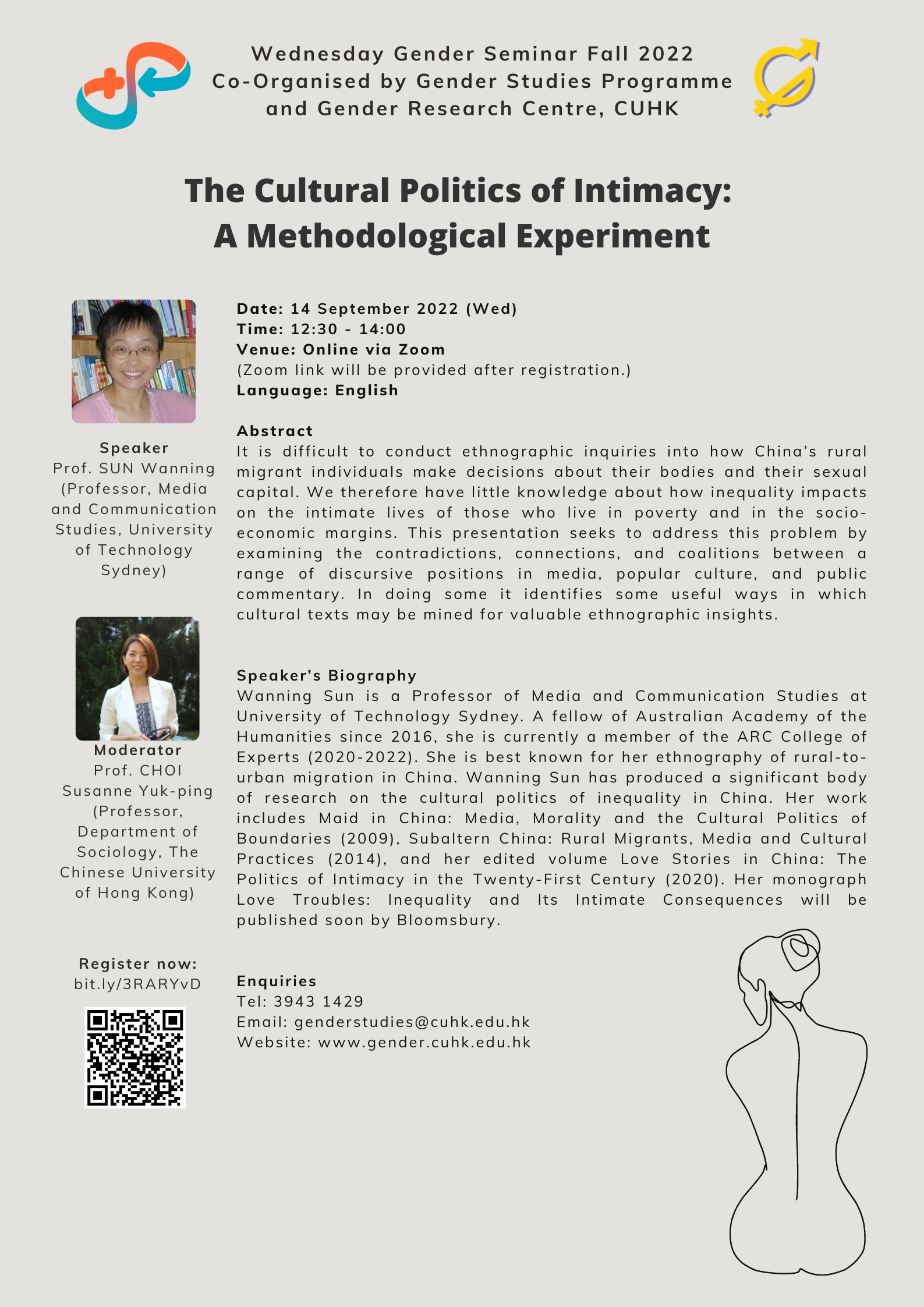 |
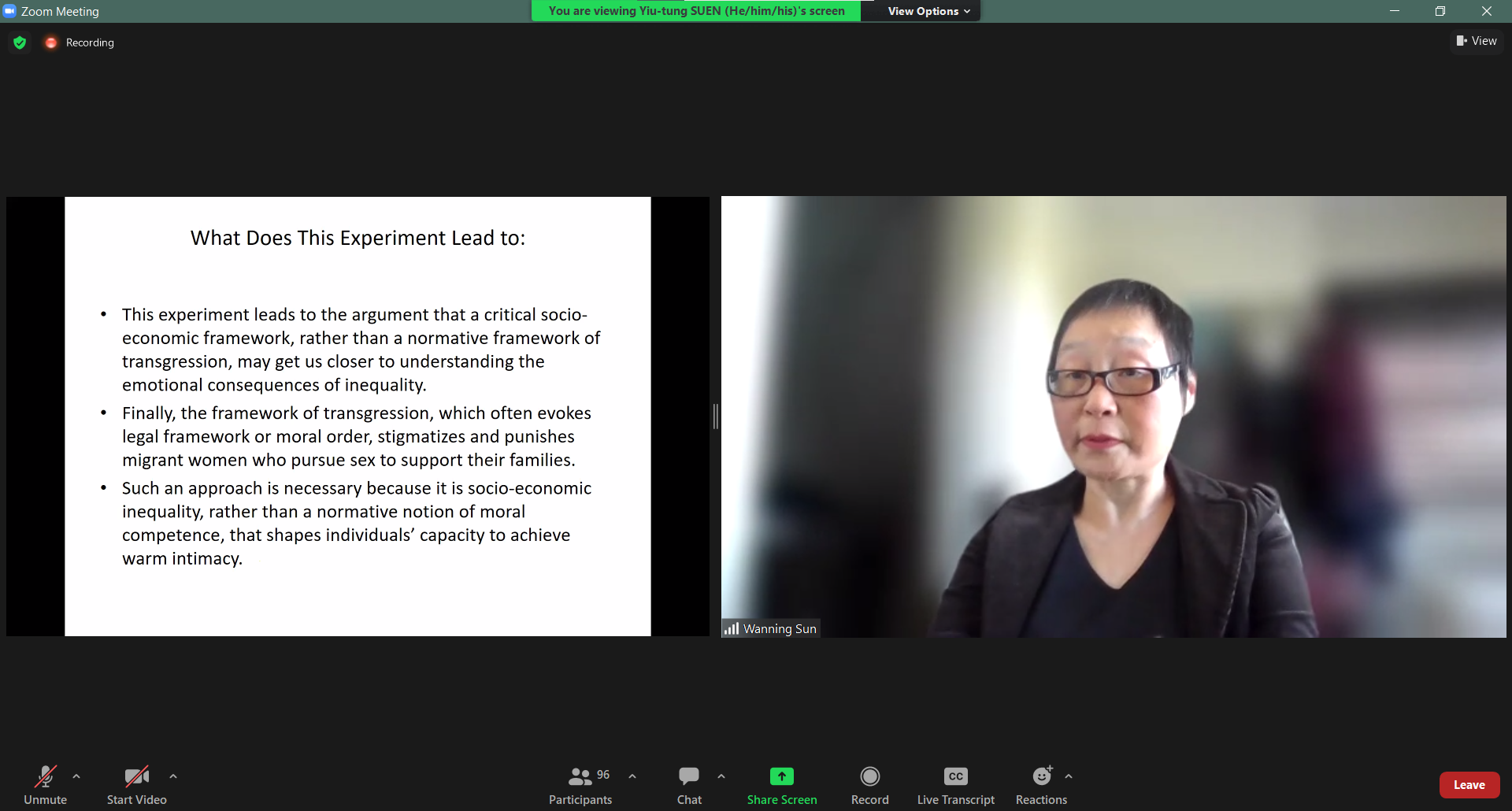 |
Researchers tend to encounter difficulties when it comes to knowledge of how inequality affects the intimacy of the socio-economically marginal people. This presentation tries to figure out this problem by introducing a methodological experiment. The speaker, Prof. SUN Wanning from the University of Technology Sydney, addressed how she conducted this experiment by analyzing the contrasts, coalition, convergence and collaboration of the discursive relationships in social media, popular culture, and public criticism.
Generally, it is challenging to carry out conventional ethnographic researches when ethnographers seek to know how China’s rural migrants experience their intimate and sexual lives. Because there are methodological difficulties in investigating one’s negative love life and documenting their “dark intimacy.” Prof. SUN attempts to offer a new solution to this obstacle with a methodological experiment: to study a wide range of textual materials, by contrast, coalition, convergence, and collaboration. Her material sources include state media, labour literature, sweat-shop management’s statements, statements in an NGO’s newsletter, etc. This kind of experimental methodology dialogues with the absence of first-hand ethnography. Making good use of the narrative nature of ethnography, it regards the creators or gatherers of the textual materials as surrogate ethnographers. It thus puts forward a new concept, “‘second-hand’ ethnography” or “surrogate ethnography”.Instead of setting up a hierarchy of truthfulness, this new concept intends to ferret out the cultural politics through their discursive relationships. This experiment makes for a critical socio-economic framework in place of a normative framework of transgression. Whilst the latter one usually draws out legal or moral issues and leads to stigmatization and punishment, neglecting the emotional consequences. Prof. SUN also argues that it is socio-economic inequality but not a normative idea of moral capacity builds peoples’ abilities to reach out warm intimacy. Hence, it is of necessity to come up with such an approach.
Written by: DENG Zhuoyun
In the Wednesday Gender Seminar, held on September 14, 2022, Prof. SUN Wanning, from Media and Communication Studies at the University of Technology Sydney, shared difficulties she encountered in the process of ethnographic research and presented a special case which involved various discursive positions in series of textual materials, as a powerful solution to overcome the methodological troubles. By outlining her research trajectory, Prof. Sun mentioned that the socio-economic marginalised experienced intimacy as a new notion of ‘dark intimacy’ that is purchased, violent, or injurious. Since intimacies nowadays are public social goods that not everybody has equal access to and needs to invest bodily and emotional capital, it is crucial to consider how inequality marginal groups suffer impacts their love lives. Also, first-hand ethnology may confuse the researchers due to the private essence or absence of intimacy. This led to questions about how scholars should integrate and make sense of collected data in the cultural context. Inspired by Huang Yingying, Eva Illouz, and Judith Farquhar, Prof. Sun addressed that second-hand ethnology, or surrogate ethnology, can be helpful when treated as particular narratives rather than neutral documents. To be specific, Prof. Sun introduced a project about how Foxconn sex workers were represented in textual materials with varied positions, including commercial and state press, Foxconn management’s statement, their self-statement from NGOs, lowbrow magazines, and Dagong literature. Their attitude toward sex workers varied, and female workers’ motivations to become sex workers were depicted differently, mainly in two ways: a normative framework of transgression(legal and moral order) and a socio-economic framework(supplying the family's finical needs). Between texts, four relationships: collaboration, coalition, contrast, and convergence, emerged and mutually contributed to understanding which and how the latter framework, rather than the former, gets us closer to the consequences of inequality. Thus, Prof. Sun concluded that the experiment analysing clusters of texts and their conceded perspectives is necessary since it is inequality that shapes female workers’ capacity to achieve a warm intimacy, not the normative notion of moral competence. In summary, Prof. Sun highlighted the importance of understanding and being attentive to power relations in diverse texts. To Introduce and examine a series of cultural texts does not mean doubting whether the ethnology is authentic and establishing the hierarchy of truthfulness, but revealing the cultural politics through their relationships.
Writtern by: DU Ruini
The nature of intimacy, being private and obscured, often leads to the absence of first-hand ethnography. Dark intimacy that is purchased, violent, or injurious, poses a further methodological difficulty in the investigation. In this circumstance, a range of cultural texts contribute important ethnographic insights to Prof. Sun Wanning’s studies of the intimate lives of the marginalized. Considered as second-hand ethnography, the textual material is produced and mediated by a diversity of “surrogate ethnographers”, requiring a critical analysis in and among the texts, for instance, the discursive privilege they each possess, different agendas and readers, as well as the tension arising among them.
Prof. Sun examines various aspects of the texts and suggests four main discursive relationships: contrast, collaboration, coalition, and convergence. For example, contrast is reflected in the disparity between the narratives by different media. State media and commercial media adopt a normative framework in their commentaries on migrant women workers as part-time sex workers. The documented intimacy is simplified as a transgression, with what has truly constituted the women’s plights and decisions left undiscussed. Contrasting such an approach is a sex worker’s storytelling in an NGO’s newsletter, which offers a glimpse of a woman’s emotions, struggles, and the certain familial, political, and economic circumstances she faces to decide on her body and sexual capital. While in some literary works included in Prof. Sun’s studies, a different relationship defined as collaboration can be discovered. From novels depicting migrant workers’ dark intimacy to poems based on the real lives of sex workers, these texts approach the intimate lives of the marginalized from their own perspective instead of moral judgements, with the sensibility of the political and economic influences. These texts support and enhance the legitimacy of one another.
The normative framework of transgression neglects individuals’ dilemmas and the socio-economic contexts, typecasting and stigmatizing the marginalized. Prof. Sun thus argues for a critical socio-economic approach to intimacy that explains how socio-economic inequality pervasively affects individuals’ intimate lives, as well as the studies of the discursive relationships that contribute to a more comprehensive understanding of cultural politics.
Written by: FONG Yuk Ping
13 Apr 2022 (Wed) Mini-Conference of Thesis of MA in Gender Studies 2022
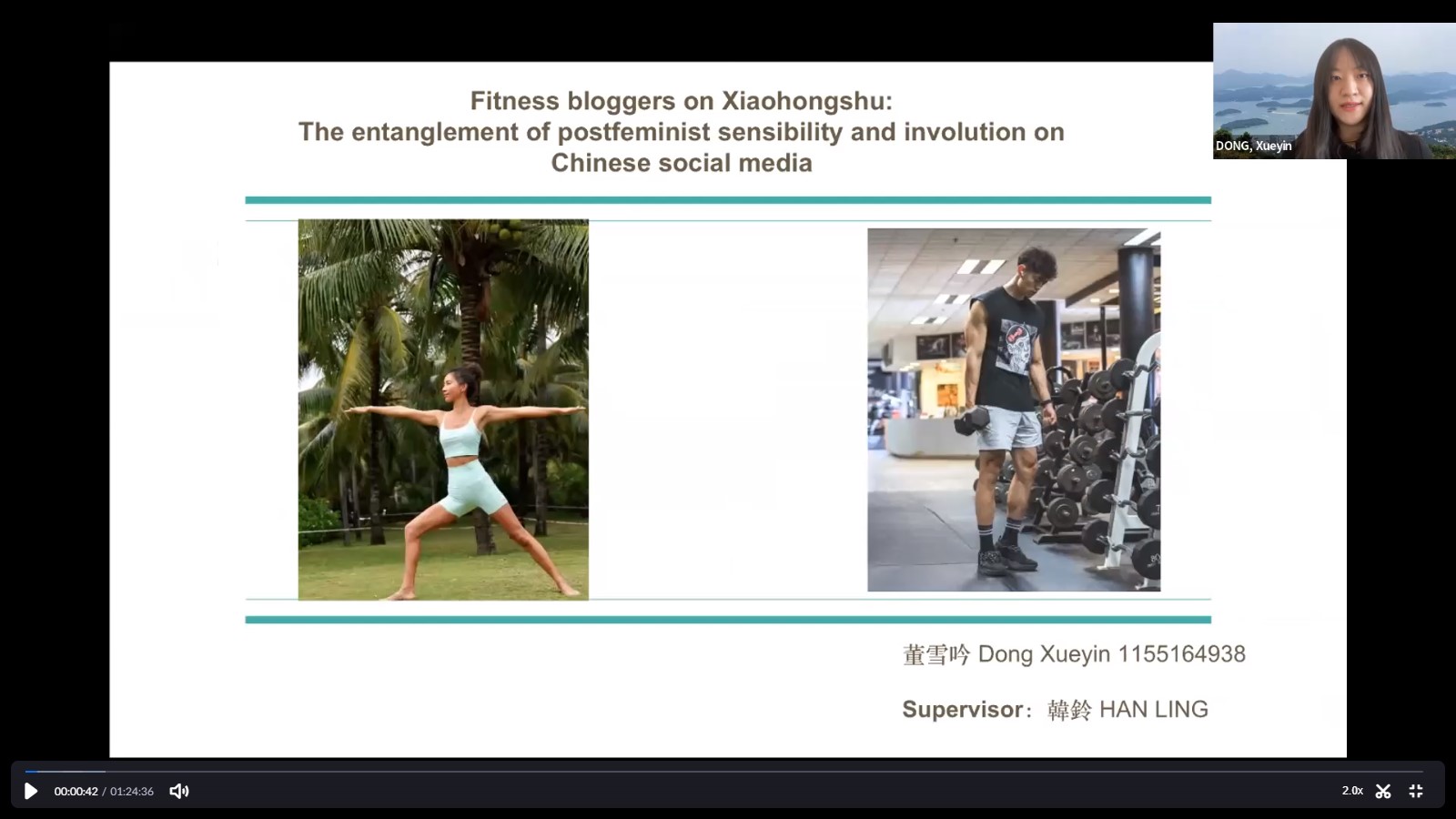 |
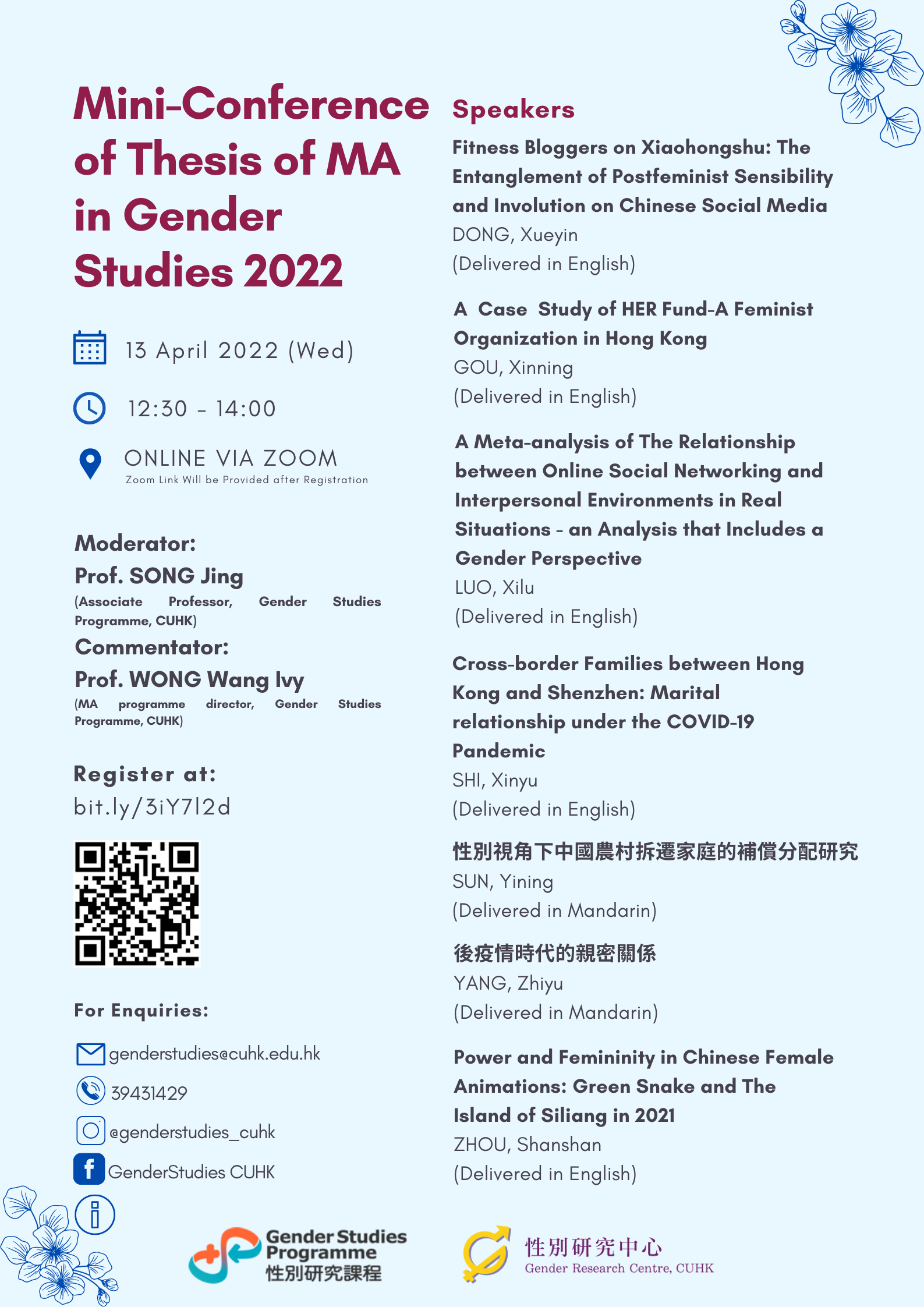 |
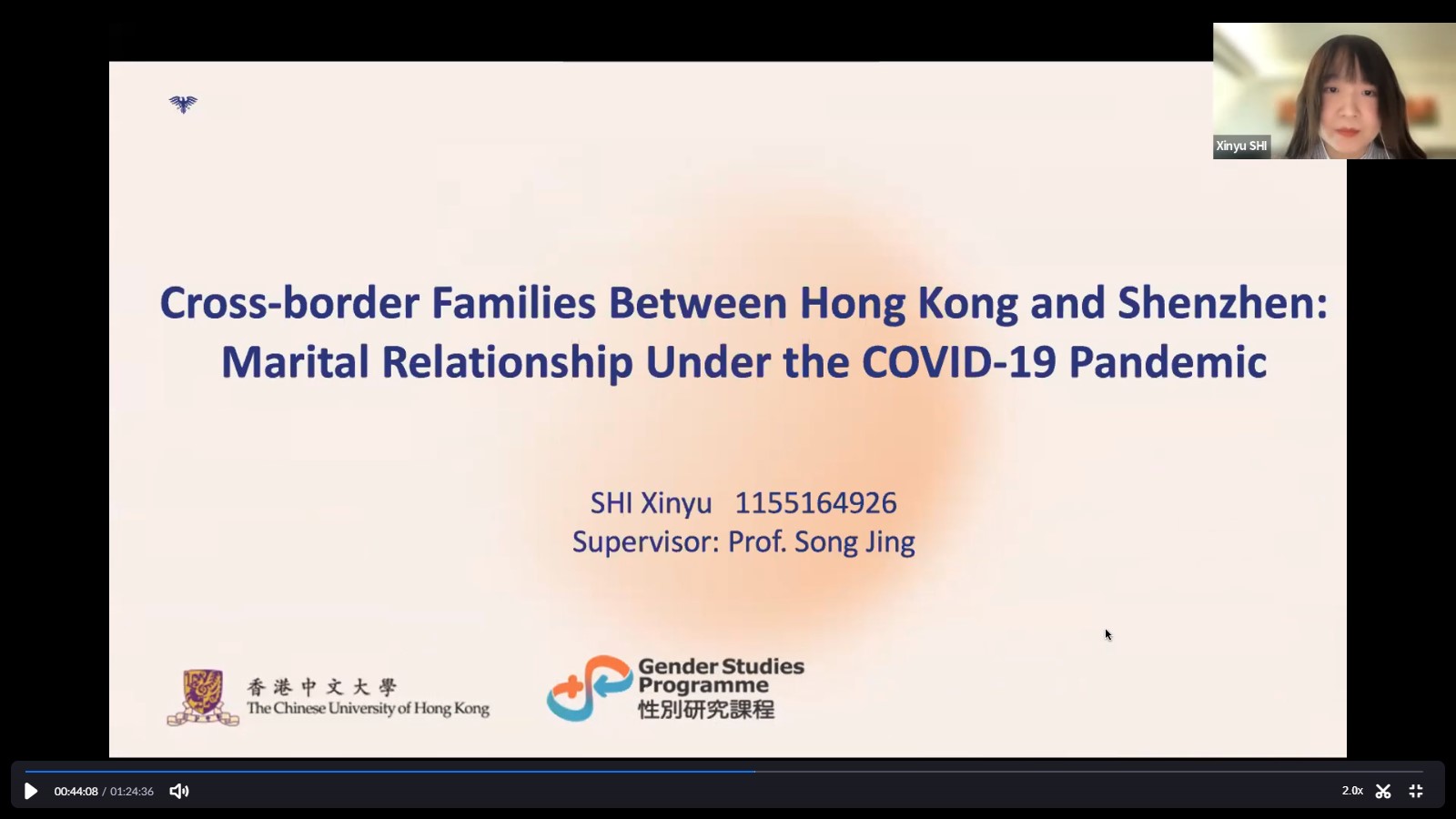 |
In the Mini-Conference on Apr 13, seven MA students from the Gender Studies Programme presented their thesis research projects.
Ms. DONG Xueyin analysed 392 blog posts from six Xiaohongshu fitness bloggers in terms of their adherence to postfeminist sensibility and involution. It was found that female bloggers talked more about gender inequality and expressed more anxiety under involution, while male bloggers used less postfeminist emotional labor and acted more in line with the requirements of involution.
Ms. GOU Xinning conducted a case study of HER fund, the only non-governmental women’s foundation in Hong Kong. From her participatory observations of HER fund’s workspace and activities, she found a flattened hierarchy among the staffs in HER fund and the visitors who joined their workshop. Besides, HER fund also created a warm, personal, and hospitable emotion culture and paid attention to intersectionality, by taking care of women from different backgrounds and inviting them to share their experiences.
Ms. LUO Xilu is conducting a meta-analysis to explore the relationship between online socialization and depression in youth from a gender perspective. By extracting the effect values from relevant empirical studies, she aims to understand to what extent and how online socialization may affect youth depression. She is currently working on the data cleaning procedure, and she hypothesizes that the effect would be moderated by the type of online social media and the background of youth subjects.
Ms. SUN Yining studied how families undergone demolition and relocation in rural China distribute their compensation properties to sons and daughters. Interviewing 18 families from the Li village of Shandong province, she found most parents still hold strong patriarchal beliefs and tend to distribute their houses to sons but not daughters. Her analysis provides theoretical and practical implications for discussing the impact of urbanization on patriarchy.
Ms. SHI Xinyu obtained secondary data and conducted in-depth interviews to study how Hong Kong-Shenzhen cross-border married couples undergoing prolonged separation, especially the wives, were affected by the social restriction policy during COVID-19. She categorized these couples into four types based on husband’s and wife’s career- vs. family-orientation. It was concluded that these women are facing increased domestic burdens in this period and the differences among the four types of couples reflect different levels of influence of individualism and familism.
Ms. YANG Zhiyu analysed secondary survey data and conducted in-depth interviews with women currently in a cross-border relationship, to examine their coping strategies and decision-making process for migration under the COVID-19 pandemic. Applying the tied migration theory and relational turbulence theory as her analytical framework, she suggested that the policy-enforced separation closely related to challenges and conflicts in intimate relationships, and the different coping strategies reflected not only economic considerations but also the couple’s gendered beliefs and their relationship status.
Ms. ZHOU Shanshan analysed and compared the gender-related contents in two recent Chinese female animations, Green Snake and The Island of Siliang, to demonstrate how power and femininity perform and develop in Chinese animated films. She found that the female protagonists in both films showed a mix of traditional feminine and masculine characteristics but were interpreted differently by male and female directors. The female-directed animation The Island of Siliang depicted its female protagonist in an imperfect but more realistic way, while the one in the male-directed animation Green Snake appeared to be scantily clad with an exaggerated feminine body shape, reflecting the male gaze.
Finally, Prof. Ivy Wong, the MA programme director, commented that all the presented topics were very clear and interesting, and had covered a wide range of research areas with impressively diverse methodologies from case study to meta-analysis. She also encouraged the thesis students to aim high and consider getting their research published. Congratulations to the presenters and wish you all the best with your research projects!
Written by: Shi Yun
6 Apr 2022 (Wed) The affective practice of love: the imagined subjective protest body on LIHKG in Anti-ELAB Movement
 |
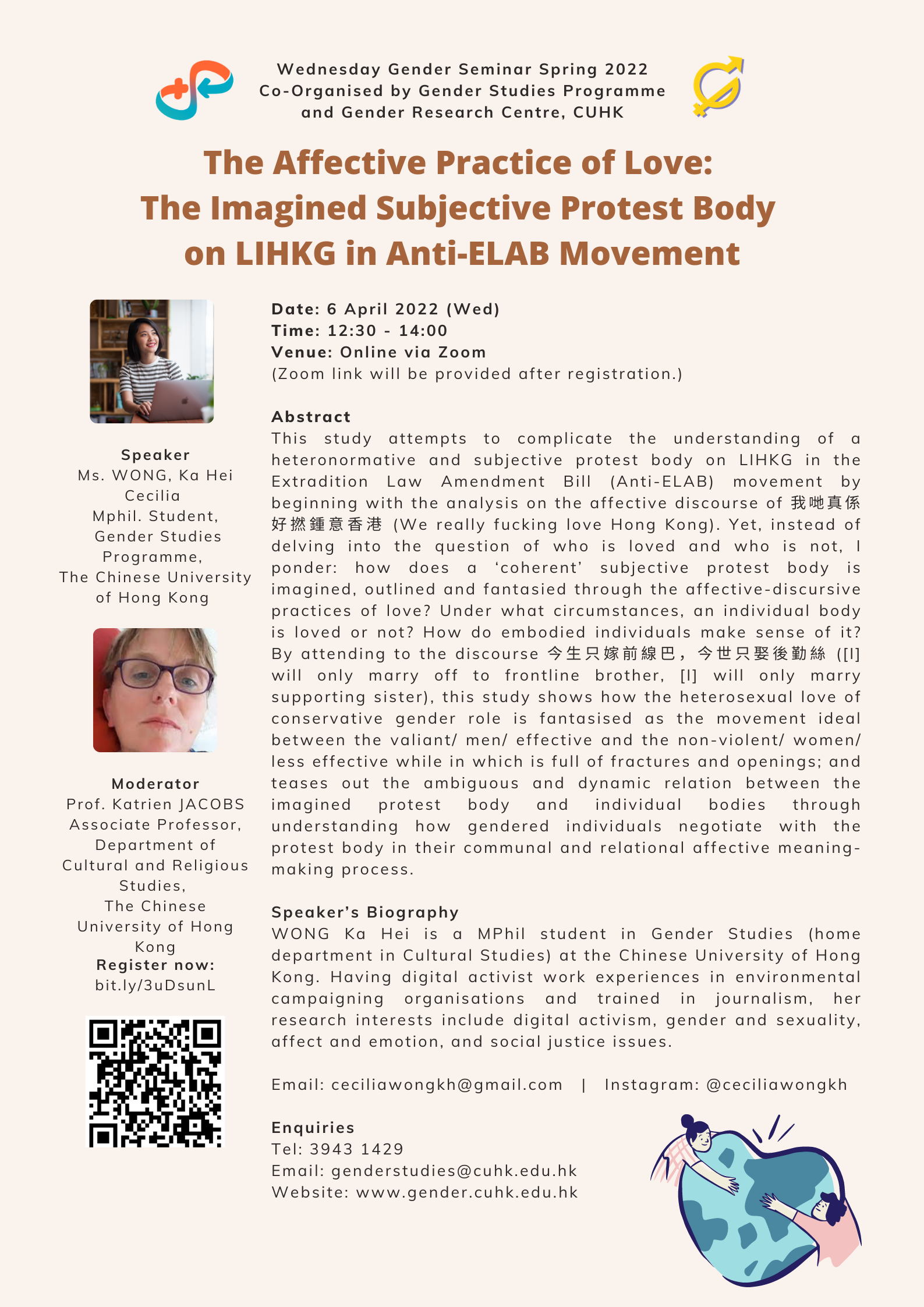 |
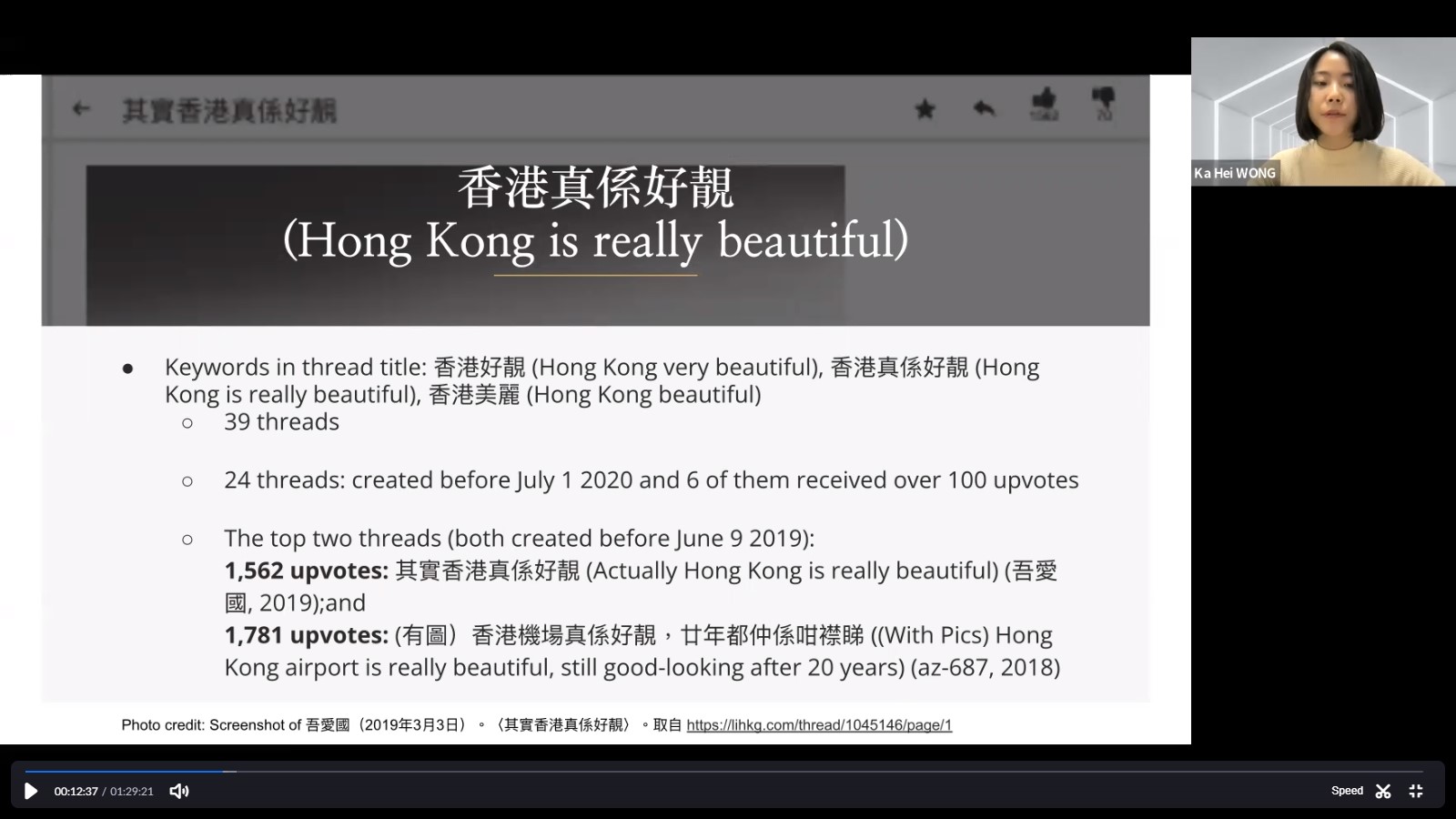 |
Gender inequality related to reproduction is a global issue, and the personal and family spheres, as objects of power control, make individual choices often the result of internalized power structures and gender norms. With the rising number of well-educated women with university degrees and high female labor participation, the fertility rate continues to drop in China. Concerned about the demographic change and the population crisis, the Chinese state turned to pro-natalist policy since 2021, despite the lack of supportive maternity and child-care policies.
This study focuses on young women’s reproductive dilemma posed by patchy patriarchy’s essentialist discourses and their individual desires. It further demonstrates the characteristics of the public cyberspace where women gain knowledge, exchange information and express their opinions about their reproductive experiences. This study also explores the role cyberspace play in shaping gender discourses in contemporary China. Conducted on Douban, a popular forum among Chinese urban young women, the study collected 3153 posts under the topic ‘What does reproduction mean to women?’ and analyzed the most “liked” 100 posts with thematic coding.
The findings suggest that discussions on Douban are predominantly focused on negative experiences of new motherhood. Women are physically and emotionally dehumanized in the process of pregnancy and childbirth. Due to the patriarchal family value and the essentialist gender discourse, motherhood is naturalized and romanticized, which has led to the ‘widow-style childrearing’ and the sacrifice of female individuality and professional career. As a result, in the absence of public support, women have to rely on private sources to address emotional issues and access female-centered reproductive knowledge. The phenomenon of tokophobia presented in online discussions is a resistance to naturalized motherhood. The discussion of childbirth in cyberspace has brought the invisible labor undertaken by women into the public sphere, which is feminist in nature.
Written by: ZHANG, Mengya
1月18日,Xie Kailing博士和Zhou Yunyun博士在线上性别研讨会上讲演了两人正在合作进行的研究——“恐育作为女权抵抗?中国网络空间中女性网民的生殖经验和话语”。两位研究者首先勾勒了研究所处的中国语境,中国独生子女政策使得女性获得高等教育的机会大大上升,虽然在全球范围内,妇女的教育程度与生育率呈负相关,但在中国,异性恋婚姻中女性养育子女仍旧是一种具有道德强制力的社会规范。两位研究者借用Evans所提出的“支离破碎的父权”(patchy patriarchy)这一概念,认为将女性生育职责“自然化”、“本质化”的话语仍旧具有某种权威性,成为国家推行政策时的话术,并在公共文化生活中,例如在售卖母婴用品的广告中被不断地生产和传播。随着出生率下降带来的老龄化危机的初现,自2021年起中国政府转而采取支持生育的政策,女性面临着愈发严峻的生育压力。而市场经济驱动形成的以欲望为核心的现代式的对“自我”的追求,以及中国近年来在年轻女性群体中愈发浩大的女性主义声浪则进一步成为引发女性在网络空间中关于生育激烈探讨的契机。为了探寻受过良好教育的年轻女性对这一生育困境的回应,以及网络空间在这种生育困境讨论中的作用,两位研究者对热度极高的豆瓣主题帖“生育对一位女性意味着什么”进行了的话语分析。在以主题式编码为主的初步话语分析中,研究者们发现大多数的话语都围绕着生育的消极体验及其作为一种“被掩盖的黑暗秘密”展开,并进一步展示了话语群中三个显著的主题:生孩子作为一种肉体和情感上的双重创伤;“丧偶式育儿”剥夺了女性的个体性;缺少女性中心的知识生产和对父权制结构的反思。在讲演的最后,研究者们进一步指出了这一现象的复杂性:回帖中没有出现明显的反对生育的声音,而是更多地集中在经验分享,给予建议和女性的不同的生育选择上,尽管帖子的发表者们并没有明缺自我表明女权主义立场的倾向,但她们关注和讨论着与女权主义紧密相关的议题。研究者们认为,网络空间提供了一种另类的公共空间,使得在社会空间中被迫静默的女性经验相互沟通,女性话语得以建构。
Written by: ZHENG, Lin
Spring 2022
Co-presented by: Gender Studies Programme, Gender Research Centre & Sexualities Research Programme, The Chinese University of Hong Kong
16 Nov 2022 (Wed) The interplay between intimacy and commodification: Exploring family and work lives of lesbians in China
 |
 |
 |
Prof Lo’s presentation examines the ways in which lesbians explore opportunities and navigate constraints in their family and work lives in urban China. Research reveals that the interconnection between the economic and intimate life of lesbians in modern cities is commodified. They not feel empowerment through navigate lives in work and pink market as resourceful consumers, but also intersecting with sociopolitical and neoliberal power with their everyday practices on a larger background.
Although the respectable queer citizens could make relatively free expression of their sexual identity through the consumption of commodities and capital, opportunities to subvert traditional gender expectations carry a high price tag, which could be unaffordable for many economically disadvantaged lesbians. The hidden danger here is that commercial logic may cover personal voice. That is it transforms feminism from a political movement to a non-politicized product and personal attitude. And the paper also point out that lesbians also face the hinders in the labour market. Except from fashion field, in which sexual minorities have their own traffic(自带流量). In most workplaces, lesbians are cautious about disclosing their sexual orientation because of the fear of discrimination and prejudice. It inspire us to think how gender norms, heteronormativity, and policy intersect in generating obstacles for Chinese lesbians to thrive as respectable adult workers. This has important implications for further attempts to help adult worker to fit better with people's diverse work /family needs.
Despite from everyday practices and interactions,there’s also need to observe the penetration of digital media into daily life. And it is easy to find that in many mon-homosexual-oriented social media software in China, lesbians have less visibility compared with gays, which is similar to the second point of the article's research gap.
Written by: XU Yinuo
On November 16, the topic of professor LO’s speech was the interplay between intimacy and commodification by exploring the family and work lives of lesbians in China.
She began her speech with the research objectives and the research question, which were how do Chinese lesbians navigate their economic and intimate lives in a context where same-sex relationships are yet to be socially or legally recognized, and how do gender and sexuality intersect with the wider socio-political and neoliberal climate in shaping Chinese lesbians’ economic and intimate lives. The main research gaps were underground queer scenes in more restrictive contexts, everyday practices in commodification and sexuality, and Chinese lesbians.
After introducing the challenges and opportunities of the queer community, the rise of queer desires, and the pink market, she told us her research method is an in-depth interview about well-educated lesbians in Beijing. There were three findings. Firstly, participants' intimate lives are 'commodified', because their choices about intimacy and same-sex marriage are related to the workplace and pink market. Secondly, the ways they use to avoid gendered and sexual obstacles in the labor market by hiding or fictitious their sexual orientation, gender expression, and marital status are 'commodified’. Thirdly, most participants’ strategies to accommodate and/or resist established norms are finding their own comfort zone.
In conclusion, this research showed how commodification and intimacy interact with each other, and the dilemma of Chinese lesbians that they must get a decent job to have the life they want, but due to the gendered and sexual obstacles, they cannot openly lead the life they want.
Written by: ZHANG Yue
At the talk on 16 November 2022, Prof. LO Iris shared her project, "the Interplay between Intimacy and Commodification: Exploring Family and Work Lives of Lesbians in China." Based on the in-depth interviews with lesbians living in Beijing, she delved into the economic and intimate lives of lesbians in the Chinese urban landscape and weaved it with the political and neoliberal atmosphere in China.
She proposed that 1978 is the watershed compared with previously stigmatized, although not illegal, queer living circumstances, allowing the new exploration of queer subjectivities. Queer people were shaped by middle-class cosmopolitan values that encouraged them to pursue their material and emotional desire without transgressing social norms or challenging the limitation that the government set. During the interview, Prof. LO found that urban lesbians were eager to enter the labour market to gain enough money to become respectful citizens, capable workers, and resourceful consumers. And they expected this would bring them more freedom and subjectivity to their sexual orientation.
However, Prof. LO also found that the queer agency that the market brought was always intertwined with vulnerability. The strategies that lesbians adopted to sustain decent jobs providing the economic foundation for the life they wanted may also reinforce the gender and sexual orientation hierarchy. For instance, lesbians must be cautious about disclosing their sexual orientation in the workplace. They would try to hide their sexual orientation and pretend to be heterosexual. They would constantly come across the question of why they still stay single and even need to lie to their colleagues that they have got married to a heterosexual man or try to perform a traditional social script of femininity. Also, although they were determined to commodify their labour power, there was no guarantee they could earn as much money as expected since the gender wage gap still exists.
In the open discussion, several valuable and debatable points were highlighted. For instance, does the commodification in the research refers to labour or intimacy? Is the theoretical framework expandable to other Chinese intimacy phenomena, like dating shows? Is the concept of intimacy proper to explain the performance of gender norms and the interest in personal life in the workplace? Is earning enough money truly free lesbians from parents' expectations of heteronormative life?
Written by: ZHENG Lin
9 Nov 2022 (Wed) Employing domestic workers and gender gap in domestic labor among working parents: An effective strategy?
 |
 |
 |
At last Wednesday seminar, Prof. Adam Cheung presented his research on how live-in foreign domestic workers (FDW) help reduce unpaid domestic labor for dual-earning parents in Hong Kong.
Consisting of 4-5% of HK population, FDWs play an unignorable role in HK society, and around 1/5 married population in HK live with a domestic worker. While research on FDWs’ living/working conditions flourished, limited studies have investigated the changes they brought to the employer families. Prof. Cheung therefore shifted the research focus to the hiring families. He also pointed out that, the well-established time-saving effect of the labor outsourcing nature of hiring domestic workers might not be applied to Hong Kong context for two reasons. Firstly, live-in domestic workers could generate more management tasks for the employers. Secondly, the prevailing intensive-parenting beliefs might hinder the delegation of all childcare tasks to the domestic workers, that is the delegation-involvement paradox. Instead, the time saved in housework might be taken up by the parents to do more childcare/management tasks, producing a time-displacement effect. As the emotional and communal nature of proposed new tasks, a gendered labor pattern might be expected.
Prof. Cheung’s study used a two-stage mixed-method design. The quantitative data of a representative sample of working parents (N=791, Nwith live-in help=265) suggested a time-displacement effect of live-in domestic help. Although paid help significantly reduced the time parents spent on housework, parents with live-in domestic workers spent around 3 hours more per week in unpaid labor than did those without paid help. The increased labor involved managing the domestic worker and childcare. The following in-depth interviews (N = 20) revealed parents’ subjective perception of the use of live-in domestic help as a strategy to achieve better parenting. In terms of gendered labor division, with a live-in helper, working mothers saved more time in housework but also had a larger burden of management and childcare than working fathers. No effect of hiring live-in help on diminishing gender inequality was founded, and working mothers had a higher total labor hours than fathers in both conditions.
Written by: TANG Xiaolei
Employing foreign domestic workers and gender gap in domestic labor among working parents: An Effective Strategy
The use of live-in domestic labor is popular among dual-earning parents. Around one-third of dual-earning parents in Hong Kong currently hire live-in domestic helpers. This study provides a critical examination of the time-saving hypothesis from the domestic outsourcing literature on the roles of hiring live-in help for household labor and situates the time-saving effect in the literature of intensive parenting. The research uses mixed method, analyzes quantitative data from a representative household survey to investigate the association between employing live-in domestic help and time spent by the working fathers and mothers on housework, childcare, and tasks related to managing domestic helpers, and also analyzes qualitative data from in-depth interviews of first-hand experiences about the role of hiring help in household labor to unpack the meaning of hiring help and its relationship with the notion and practices of parenting.
The findings suggest that the use of live-in domestic help is a specialization strategy to strive for perfection in parenting for parents. By outsourcing household chores and more routinized childcare tasks to the helpers, working parents, especially mothers, can focus on emotional bonding and tasks conducive to the development of their children. Working parents hiring live-in domestic work spent significantly fewer hours in housework, however, the reduced time in housework is totally replaced by the increased time on childcare and managing the helper. The time-saving effect of using domestic help is stronger for women than for men but it does not reduce gender inequality, mothers took up most of the new role of managing domestic helpers to deal with both household chores and routinized childcare work. Parenting strategies, though, are more intensified on the part of the mothers. The gender gap still exists.
Written by: ZHANG Mengya
Although there has been a lot of research on FDWs (Foreign Domestic Workers) in Hong Kong recently, Professor Cheung's research is very refreshing. Unlike other places of the world, Hong Kong has a tradition of employing live-in FDWs rather than flexible helpers for domestic outsourcing, which means that the former has a higher threshold, is more inflexible, and requires the employer's family to spend more time negotiating with and managing. Also, Hong Kong is a well-known city for its culture of intensive parenting. Many Hong Kong parents will consider hiring FDWs as a strategy to practice their intensive parenting.
Based on domestic outsourcing and intensive parenting, Professor Cheung has studied the time-use patterns between Hong Kong families with and without FDWS through a mixed-method of quantitative and qualitative research and has come up with conclusions that are different from previous research. He found that the time-saving effects of domestic outsourcing are overestimated, and the time-displacement fits Hong Kong’s condition more. In Hong Kong, hiring FDWS does save parents (mainly mothers) some time in housework, but the time of child-care and managing helper increase. Due to the expectation of intensive mothering, these two tasks are still gendered and mothers always do more, which indicates hiring help cannot enhance gender equality.
In my opinion, Professor Cheung's research perspective and findings are very inspiring. As someone interested in domestic outsourcing in mainland China, I have only focused on work-family time conflicts in the family, but not aware of the chores-childcare conflicts (especially for mothers). In addition, Professor Cheung also emphasizes the importance of the ideology of intensive parenting. In mainland China, the role of FDWs is usually taken by grandparents. However, after the abolition of extra-curricular classes, will parents' anxiety turn into a form of intensive parenting and prompt them to hire young educated helpers to do the child-care work? This is still underexplored and deserves our attention.
All in all, I really enjoyed this seminar and it gave me a lot of inspiration for my research.
Written by: ZHANG Xunyue
5 Oct 2022 (Wed) Gender Research Centre Orientation Talk: Honour Based Violence: Minority Women As Agents of Change
 |
 |
 |
At Gender Research Center Orientation Talk on 5 October 2022, Dr. Raees Baig shared the research project Honour Based Violence: Minority Women as Agents of Change and presented a guidebook which is the product of this project.
During her involvement in local NGO’s investigation and assistance on domestic violence, she noticed that some Muslim women in Hong Kong were suffering from domestic violence because they were thought to brought shame to the family and community . She began to focus on their situation and try to connect with them. At the beginning she realized that Muslim women who had experienced honour-based violence, although they may not understand “honour-based violence” as an umbrella term, were able to share awareness of certain violence and poor power positions, while they also had a lot of confusion about marriage, sex and romantic relationships. Dr. Raees Baig then set up a workshop to give these women a platform to share their experiences and gender equality ideas, allowing them to connect the concepts and terms to their own experiences and identities.
However, the younger generation who have been subjected to honour-based violence are no longer passive victims, they have escaped from the official ideology through the internet and self-study of the Qur’an, and have learned about the political and religious contexts of their experience and many notions of gender equality. They try to escape their families or teach their families the new ideas they have embraced, in order to change the awful father-child relationship.
When asked if the project had helped to heal and empower the women victims, Dr. Raees Baig thought that it was important to give people who had experienced honour based violence or domestic violence more space to share their experiences, which helped them to realize and understand their situation. She also felt that their project has gone some way to challenging the global victimizing discourse of Islamic women by giving these women themselves the opportunity to speak about their effort to change the situation.
Written by: LI Xiangyi
A guidebook focusing on Honour-Based Violence (HBV) was shared in the seminar in order to address the issue of HBV of young Muslim women in Hong Kong. Their HBV experiences were revealed in the booklet, aiming to explore the way they interpreted their experiences in religious and cultural perspectives, and promisingly, initiating discussions and concerns on HBV cases in Hong Kong.
The seminar is facilitated by Dr. BAIG Raees Begum and moderated by Prof. CHENG Sea Ling in a Questions & Answers approach. Dr. BAIG first shared about the motivation behind the project, their interests in investigating how the young Muslim women perceive phenomenons such as domestic violence, HBV, forced marriage in their own words. Surprisingly, the younger generation has more thoughts on differentiating their culture and religion; they also have stronger mobility on their Muslim identities and their personal autonomy when comparing to the older generation who refused to relate themselves to sexual topics.
Dr. BAIG further explained the use of the word ‘honour’ and the underlying reason for young women being the agent of change but not victim-survivors of HBV. The ground of honour is strongly correlated with pride and reputation, in social contexts, on the other hand, honour also refers to standards and behavioural guidelines encouraged by the community. In fact, Dr. BAIG revealed that young women exposed to HBV are not only perpetrated by their father or other male relatives, female members sometimes play an assisting role in the process of HBV. HBV is therefore notably family-based in Islam culture.
Nonetheless the traumatic stress experienced by the young women, Dr. BAIG mentioned they expressed a longing for rebuilding their family’s relationship, breaking through these down the ages, agony family dynamics. With an eye to leap forward the family hierarchy, those brave women tried to regain their dignity in becoming a change agent instead of labelled as victim-survivors in their situations. They further share their self exploration process through this project to break the original Muslim teaching myth, meanwhile fighting for their identity of being a Muslim.
Written by: LI Yeuklam
The seminar on Oct 5th has been successfully held. Compared with the previous seminars, this one has some special components. First is the orientation of Gender Research Center. The GRC is an organization specializing in gender issues at the Chinese University of Hong Kong, and Prof. Lynn demonstrated the academic and practical achievements of the GRC by presenting the center's past research projects, book publications, workshops, and other activities and it was committed to recruiting members for this seminar. The second part is Dr. BAIG Raees Begum’s sharing of her 2-year project of the honour-based violence (HBV) focus on the non-Chinese Muslim young women in Hong Kong, also the publication of the guidebook based on the real experience and cases of the HBV investigated in this project.
What motivated Dr. Baig to conduct this project must be recalled from a social work experience that took place several years ago. At the time, Dr. BAIG was cooperated with one local NGO to work on domestic violence. During the work, they discovered that the situation could be religious and cultural ways. Although the previous generation of non-Chinese Muslims living locally in Hong Kong may not understand the ture meaning of the academic terms like “domestic violence” or “forced marriage”, they can express this sentiment in their own language. However, the young female generation, with the fully understanding of these term, strong self-identity, and highly opening thoughts of ideal relationship, tend to use their own voices to challenge the rigid culture. These young females started to subvert abuse and the inequalities they feel within their families. Hence the initial phase of this product: to create a platform for them to talk more about these concepts on gender issues.
Moving to the topic of “women as agents of change”in this scenario, Dr. Baig explained that from the interacting with these girls they really see how the girls grew up, how they changed their self-perceptions and how they changed their families, even if they were experiencing abuse and violence. Women in the domestic violence isn’t victims anymore, we can see how they breakthrough these situations and some of the cases the girls even developed the capacity to educating they parents and rebuild family bonds.
In summary, HBV is a form of family-based violence, and in Hong Kong society today, neither social work nor the legal system has a good solution to HBV and a host of other problems such as physical control and forced marriage. On the one hand, society should build on this, but on the other hand, we should also see how women in such domestic violence gradually developed to find their own way to defend themselves.
Written by: QIAN Xiaoxuan
21 Sep 2022 (Wed) Daughters’ Dilemmas: Family Strategies of Highly Educated Rural-Urban Education Migrants in Hubei Province, China
 |
 |
 |
Prof. SIER Willy, in her talk, revealed how female university graduates, as the first and only bachelor’s degree holder in her rural family, experienced various intersecting social processes that were shaped by both the structural condition of China’s social transformation and their dual roles, i.e., the role of daughters in the rural household, and the role of migrant female university graduates working in the city. The author conducted ethnographic research in Hubei province, one of China’s ‘big education provinces’ with rich educational resources and a huge number of university students. With the rapidly changing conditions in rural China and the expansion of China’s higher education system, university enrolment by young women of rural origin has increased exponentially. However, these young female ‘education migrants’ continue to struggle with the exclusion of rural citizens in cities and the entrenched patriarchal family culture in rural China. They are expected to use their gender and educational achievements to provide support to their families through their urban earnings and marriage. For instance, in one of the two cases that the speaker showed, the respondent’s mother required her to get married soon to somebody with a high bride price in order to finance her brother’s marriage. This case also revealed that those highly-educated female migrants’ contributions to their rural households resulted from elaborate negotiation processes with their family members. Additionally, the study emphasized that those highly-educated female education migrants from rural China are not a homogeneous group: one respondent was keen to pursue a career and maintain her independence, while another expressed her desire to help strengthen both her own and her family’s social and economic standings through marriage. Overall, gender, rurality, and migration are indicated to put multi-pressure on female university graduates from rural backgrounds, and their ‘education migration’ brought their intense negotiations with rural households, which reconfigure the gendered household dynamic in rural China.
Written by: GU Yuxuan
On September 21st, the Wednesday Seminar was successfully held, presented by Prof. Willy Sier, the assistant professor of the anthropology department of Utrecht University who has lived in mainland China for seven years.
Prof. Sier's pointed out that expanding urbanization and higher education opportunities have made education increasingly crucial for rural families. Hubei, a wealthy province with a well-established higher education system, was attracting an increasing influx of education migrants. During Prof. Sier's fieldwork in Wuhan between 2015-2017, she spoke to several young, first-in-the-family, highly educated women who face the dual pressures of their families and city lives. Prof. Sier deemed that their contribution to families goes beyond the existing literature, including the sacrifice of economy, emotion, and even personal desire.
Prof Sier discussed two case studies. One was Julia, who came from a single-parent family and took on much of the responsibility of supporting her mother's retirement and her brother's marriage after graduation. Faced with her mother's urging for marriage, Julia doubted the necessity of getting married as a city woman and believed that marriage might deprive her of the legitimacy of raising her family of origin as a rural daughter. Professor Sier argued that this case showed how the identity and mobility brought by educational migration give rise to complexity in gender roles, marital relations, property distribution, and kinship in rural Chinese households.
The other was Misty, an interlocutor who graduated from a junior college. Misty returned to her hometown and entered an unromantic marital relationship after the challenging career choice and financial crisis after graduation. This case prompted Prof. Sier to reflect on how inflation in higher education has caused a gap between employment choices and career dreams, especially for women with rural backgrounds.
Prof. Sier observes that almost every interlocutor shows ambitions in the future while diligently navigating a social landscape in which their positions are shaped by gender, educational achievements, and rural status, as well as societal structures, including marriage and labor markets. From the Pandemic to today, Prof Sier remains in contact with interlocutors remotely. Although these cases may not be representative, Prof Sier believes these anthropological studies provide academic value in understanding how intersecting social structures have shaped the lives of the increasing number of young women with higher education backgrounds and shifted dynamics in their rural families.
Written by: HUANG Minyan
The research is based on the background of rural labour migrants. Young people from rural backgrounds increasingly moved to cities by enrolling in universities due to land consolidation, low pay for working in leading local enterprises, and the explosive growth of the Chinese higher education system. Professor Willy Sier examined how higher education affected university-educated daughters in rural households of their employment prospects, but also how this made sense within broader gender ideologies and labour market contexts.
She argued that highly educated young women contribute to the family in a way that goes beyond what we know from the literature as they contribute financially and emotionally and sometimes even sacrifice their ambitions to contribute to the family projects, such as helping their brother marry. She showed two cases.
First is Julia's story; being the only person in a family with a degree, she feels responsible for ensuring her brother's and mother's life. She cannot consider getting married because she thinks it's unfair for her husband and child to continue supporting her original family. Julia's case connects two sets of questions, those about the emancipating potential of higher education for young women and questions about daughters' role in rural Chinese households. It is often suggested that education is an important tool for promoting gender equality. But we see that Julia's achievements and energy are directed towards securing property for her brother and that she continuously needs to prioritize her family's needs over her desires.
The second case is Misty. Misty puts family needs ahead of her own emotional attachments when choosing a mate. Working in a factory had been an essential part of the marriage negotiation because being an accountant made her also an attractive person to marry into this family that had a factory. But her dream is to be a teacher, and don't want to work in a factory.
Their educational trajectories have always been important to them. However, they also navigate a social landscape in which their positions are shaped by their gender, educational achievements, rural status, and societal structures, including marriage labour markets.
Written by: JIN Shuyi
14 Sep 2022 (Wed) The Cultural Politics of Intimacy: A Methodological Experiment
 |
 |
 |
Researchers tend to encounter difficulties when it comes to knowledge of how inequality affects the intimacy of the socio-economically marginal people. This presentation tries to figure out this problem by introducing a methodological experiment. The speaker, Prof. SUN Wanning from the University of Technology Sydney, addressed how she conducted this experiment by analyzing the contrasts, coalition, convergence and collaboration of the discursive relationships in social media, popular culture, and public criticism.
Generally, it is challenging to carry out conventional ethnographic researches when ethnographers seek to know how China’s rural migrants experience their intimate and sexual lives. Because there are methodological difficulties in investigating one’s negative love life and documenting their “dark intimacy.” Prof. SUN attempts to offer a new solution to this obstacle with a methodological experiment: to study a wide range of textual materials, by contrast, coalition, convergence, and collaboration. Her material sources include state media, labour literature, sweat-shop management’s statements, statements in an NGO’s newsletter, etc. This kind of experimental methodology dialogues with the absence of first-hand ethnography. Making good use of the narrative nature of ethnography, it regards the creators or gatherers of the textual materials as surrogate ethnographers. It thus puts forward a new concept, “‘second-hand’ ethnography” or “surrogate ethnography”.Instead of setting up a hierarchy of truthfulness, this new concept intends to ferret out the cultural politics through their discursive relationships. This experiment makes for a critical socio-economic framework in place of a normative framework of transgression. Whilst the latter one usually draws out legal or moral issues and leads to stigmatization and punishment, neglecting the emotional consequences. Prof. SUN also argues that it is socio-economic inequality but not a normative idea of moral capacity builds peoples’ abilities to reach out warm intimacy. Hence, it is of necessity to come up with such an approach.
Written by: DENG Zhuoyun
In the Wednesday Gender Seminar, held on September 14, 2022, Prof. SUN Wanning, from Media and Communication Studies at the University of Technology Sydney, shared difficulties she encountered in the process of ethnographic research and presented a special case which involved various discursive positions in series of textual materials, as a powerful solution to overcome the methodological troubles. By outlining her research trajectory, Prof. Sun mentioned that the socio-economic marginalised experienced intimacy as a new notion of ‘dark intimacy’ that is purchased, violent, or injurious. Since intimacies nowadays are public social goods that not everybody has equal access to and needs to invest bodily and emotional capital, it is crucial to consider how inequality marginal groups suffer impacts their love lives. Also, first-hand ethnology may confuse the researchers due to the private essence or absence of intimacy. This led to questions about how scholars should integrate and make sense of collected data in the cultural context. Inspired by Huang Yingying, Eva Illouz, and Judith Farquhar, Prof. Sun addressed that second-hand ethnology, or surrogate ethnology, can be helpful when treated as particular narratives rather than neutral documents. To be specific, Prof. Sun introduced a project about how Foxconn sex workers were represented in textual materials with varied positions, including commercial and state press, Foxconn management’s statement, their self-statement from NGOs, lowbrow magazines, and Dagong literature. Their attitude toward sex workers varied, and female workers’ motivations to become sex workers were depicted differently, mainly in two ways: a normative framework of transgression(legal and moral order) and a socio-economic framework(supplying the family's finical needs). Between texts, four relationships: collaboration, coalition, contrast, and convergence, emerged and mutually contributed to understanding which and how the latter framework, rather than the former, gets us closer to the consequences of inequality. Thus, Prof. Sun concluded that the experiment analysing clusters of texts and their conceded perspectives is necessary since it is inequality that shapes female workers’ capacity to achieve a warm intimacy, not the normative notion of moral competence. In summary, Prof. Sun highlighted the importance of understanding and being attentive to power relations in diverse texts. To Introduce and examine a series of cultural texts does not mean doubting whether the ethnology is authentic and establishing the hierarchy of truthfulness, but revealing the cultural politics through their relationships.
Writtern by: DU Ruini
The nature of intimacy, being private and obscured, often leads to the absence of first-hand ethnography. Dark intimacy that is purchased, violent, or injurious, poses a further methodological difficulty in the investigation. In this circumstance, a range of cultural texts contribute important ethnographic insights to Prof. Sun Wanning’s studies of the intimate lives of the marginalized. Considered as second-hand ethnography, the textual material is produced and mediated by a diversity of “surrogate ethnographers”, requiring a critical analysis in and among the texts, for instance, the discursive privilege they each possess, different agendas and readers, as well as the tension arising among them.
Prof. Sun examines various aspects of the texts and suggests four main discursive relationships: contrast, collaboration, coalition, and convergence. For example, contrast is reflected in the disparity between the narratives by different media. State media and commercial media adopt a normative framework in their commentaries on migrant women workers as part-time sex workers. The documented intimacy is simplified as a transgression, with what has truly constituted the women’s plights and decisions left undiscussed. Contrasting such an approach is a sex worker’s storytelling in an NGO’s newsletter, which offers a glimpse of a woman’s emotions, struggles, and the certain familial, political, and economic circumstances she faces to decide on her body and sexual capital. While in some literary works included in Prof. Sun’s studies, a different relationship defined as collaboration can be discovered. From novels depicting migrant workers’ dark intimacy to poems based on the real lives of sex workers, these texts approach the intimate lives of the marginalized from their own perspective instead of moral judgements, with the sensibility of the political and economic influences. These texts support and enhance the legitimacy of one another.
The normative framework of transgression neglects individuals’ dilemmas and the socio-economic contexts, typecasting and stigmatizing the marginalized. Prof. Sun thus argues for a critical socio-economic approach to intimacy that explains how socio-economic inequality pervasively affects individuals’ intimate lives, as well as the studies of the discursive relationships that contribute to a more comprehensive understanding of cultural politics.
Written by: FONG Yuk Ping
13 Apr 2022 (Wed) Mini-Conference of Thesis of MA in Gender Studies 2022
 |
 |
 |
In the Mini-Conference on Apr 13, seven MA students from the Gender Studies Programme presented their thesis research projects.
Ms. DONG Xueyin analysed 392 blog posts from six Xiaohongshu fitness bloggers in terms of their adherence to postfeminist sensibility and involution. It was found that female bloggers talked more about gender inequality and expressed more anxiety under involution, while male bloggers used less postfeminist emotional labor and acted more in line with the requirements of involution.
Ms. GOU Xinning conducted a case study of HER fund, the only non-governmental women’s foundation in Hong Kong. From her participatory observations of HER fund’s workspace and activities, she found a flattened hierarchy among the staffs in HER fund and the visitors who joined their workshop. Besides, HER fund also created a warm, personal, and hospitable emotion culture and paid attention to intersectionality, by taking care of women from different backgrounds and inviting them to share their experiences.
Ms. LUO Xilu is conducting a meta-analysis to explore the relationship between online socialization and depression in youth from a gender perspective. By extracting the effect values from relevant empirical studies, she aims to understand to what extent and how online socialization may affect youth depression. She is currently working on the data cleaning procedure, and she hypothesizes that the effect would be moderated by the type of online social media and the background of youth subjects.
Ms. SUN Yining studied how families undergone demolition and relocation in rural China distribute their compensation properties to sons and daughters. Interviewing 18 families from the Li village of Shandong province, she found most parents still hold strong patriarchal beliefs and tend to distribute their houses to sons but not daughters. Her analysis provides theoretical and practical implications for discussing the impact of urbanization on patriarchy.
Ms. SHI Xinyu obtained secondary data and conducted in-depth interviews to study how Hong Kong-Shenzhen cross-border married couples undergoing prolonged separation, especially the wives, were affected by the social restriction policy during COVID-19. She categorized these couples into four types based on husband’s and wife’s career- vs. family-orientation. It was concluded that these women are facing increased domestic burdens in this period and the differences among the four types of couples reflect different levels of influence of individualism and familism.
Ms. YANG Zhiyu analysed secondary survey data and conducted in-depth interviews with women currently in a cross-border relationship, to examine their coping strategies and decision-making process for migration under the COVID-19 pandemic. Applying the tied migration theory and relational turbulence theory as her analytical framework, she suggested that the policy-enforced separation closely related to challenges and conflicts in intimate relationships, and the different coping strategies reflected not only economic considerations but also the couple’s gendered beliefs and their relationship status.
Ms. ZHOU Shanshan analysed and compared the gender-related contents in two recent Chinese female animations, Green Snake and The Island of Siliang, to demonstrate how power and femininity perform and develop in Chinese animated films. She found that the female protagonists in both films showed a mix of traditional feminine and masculine characteristics but were interpreted differently by male and female directors. The female-directed animation The Island of Siliang depicted its female protagonist in an imperfect but more realistic way, while the one in the male-directed animation Green Snake appeared to be scantily clad with an exaggerated feminine body shape, reflecting the male gaze.
Finally, Prof. Ivy Wong, the MA programme director, commented that all the presented topics were very clear and interesting, and had covered a wide range of research areas with impressively diverse methodologies from case study to meta-analysis. She also encouraged the thesis students to aim high and consider getting their research published. Congratulations to the presenters and wish you all the best with your research projects!
Written by: Shi Yun
6 Apr 2022 (Wed) The affective practice of love: the imagined subjective protest body on LIHKG in Anti-ELAB Movement
 |
 |
 |
During the Wednesday Gender Seminar held on April 6, 2022, Ms. WONG Ka Hei Cecilia, MPhil student of Gender Studies Programme, the Chinese University of Hong Kong, shares her research project on the discursive practice and gendered negotiation on LIHKG forum in Anti-ELAB Movement.
Drawing on various disciplinary approaches and methodological tools, Ms. WONG adopts a research assemblage strategy including media and digital ethnography, thematic discourse analysis, 4 rounds of semi-structured interviews, and 3 follow-up individual interviews. Since the situated experiences of LIHKG user’s gendered affective practices are multilayered and multifarious, this seminar challenges the monolithic and overarching conception of a coherent heterosexual protest body and provides an alternative interpretation of how individual bodies negotiate with the collective in-process during everyday resistance.
While the fantasized couple and heteronormative division of labor donate a sense of affective coherence to the contradictory nature of protest subjects (Berlent, 2012), the research found that each individual body is a dynamic nexus full of heterogenous gendered experience. To view the gendered subjective protest body as a site of fractures and openings that are full of possibilities, as Ms. WONG concludes, is the core of understanding the dynamic process of negotiation, and thus the affective practice of love.
Written by: Zhang Yuqi
30 Mar 2022 (Wed) Analyzing Female-Victim Intimate Partner Homicide in China via Hierarchical Models and Data Mining Methods
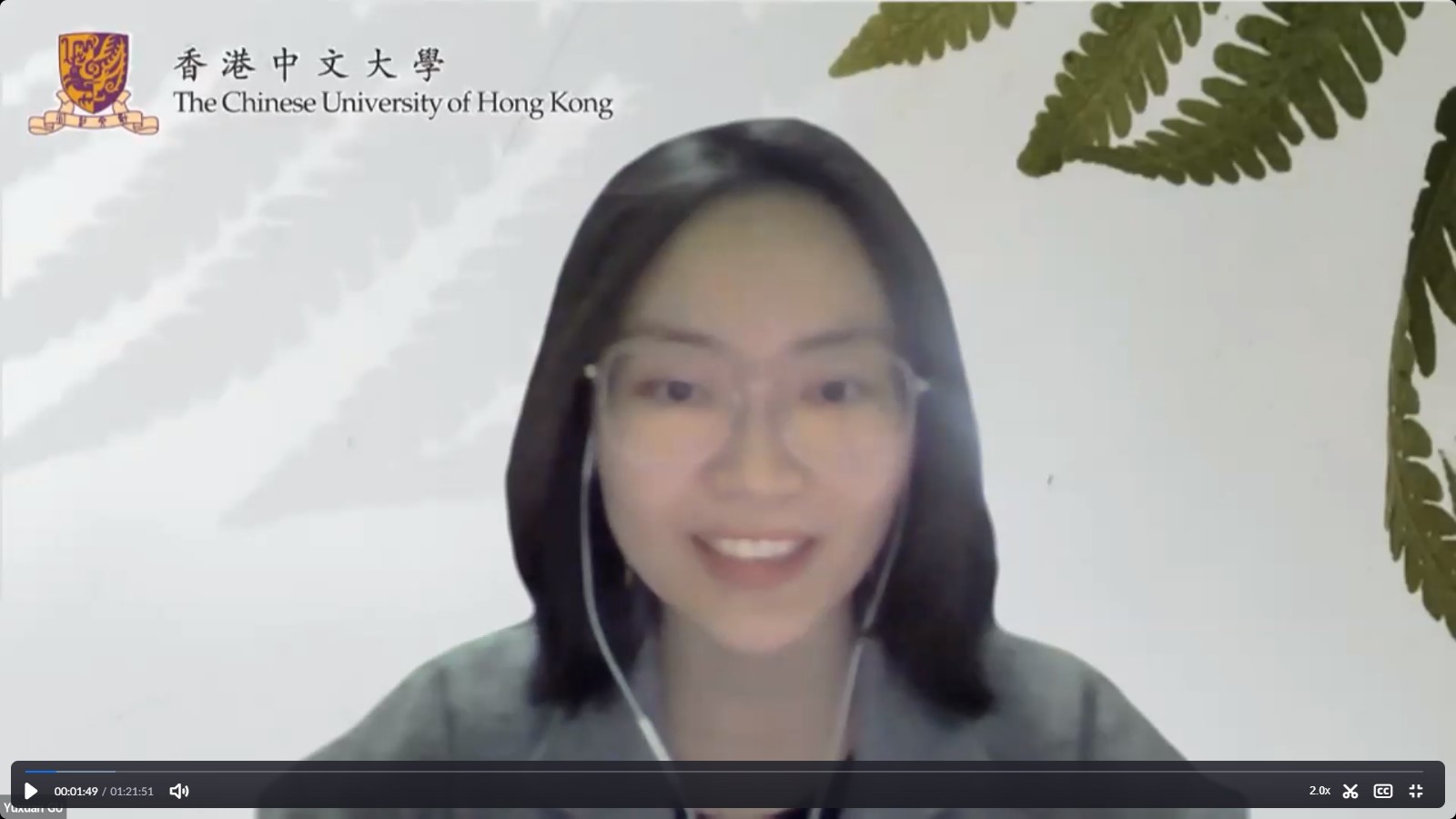 |
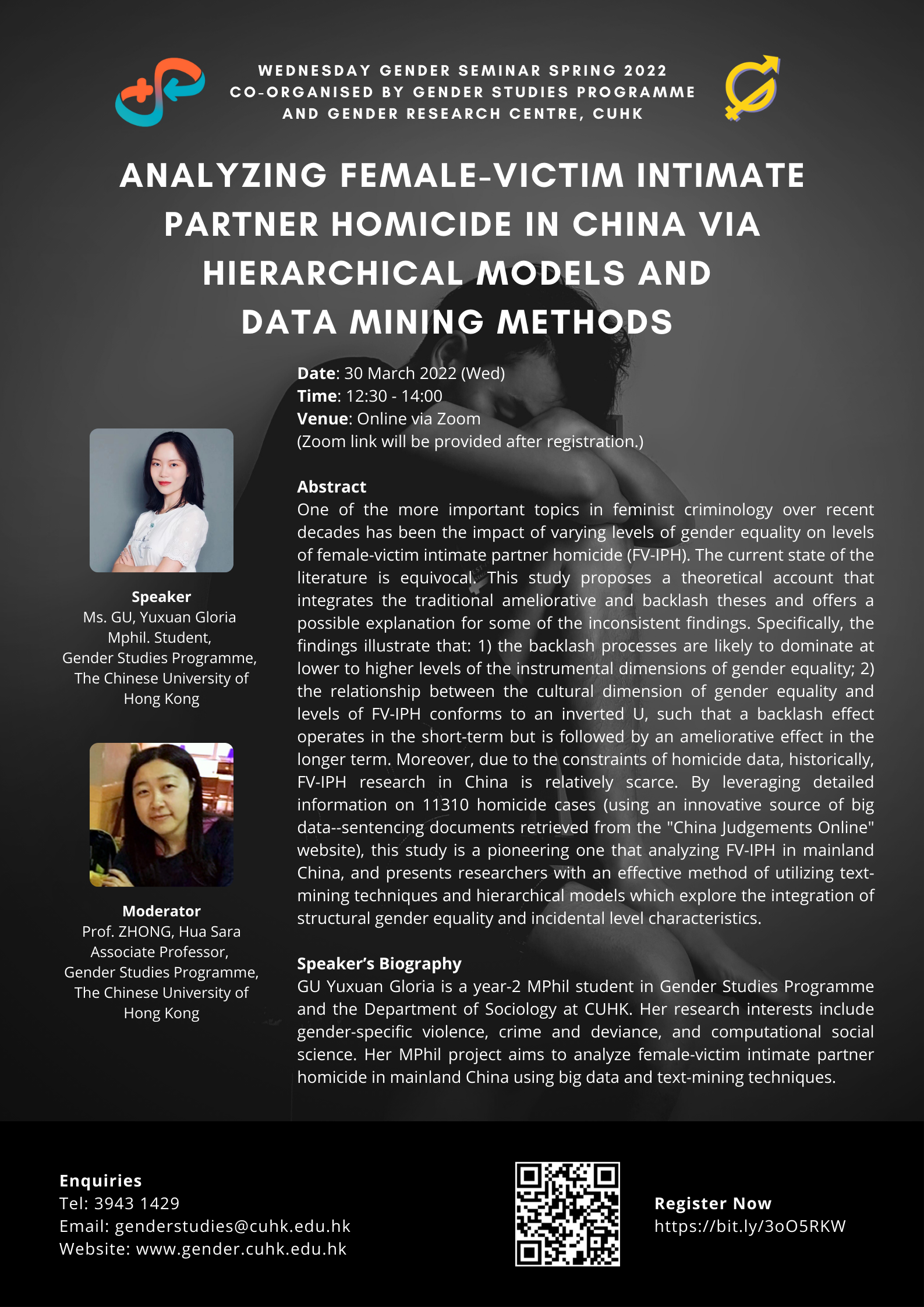 |
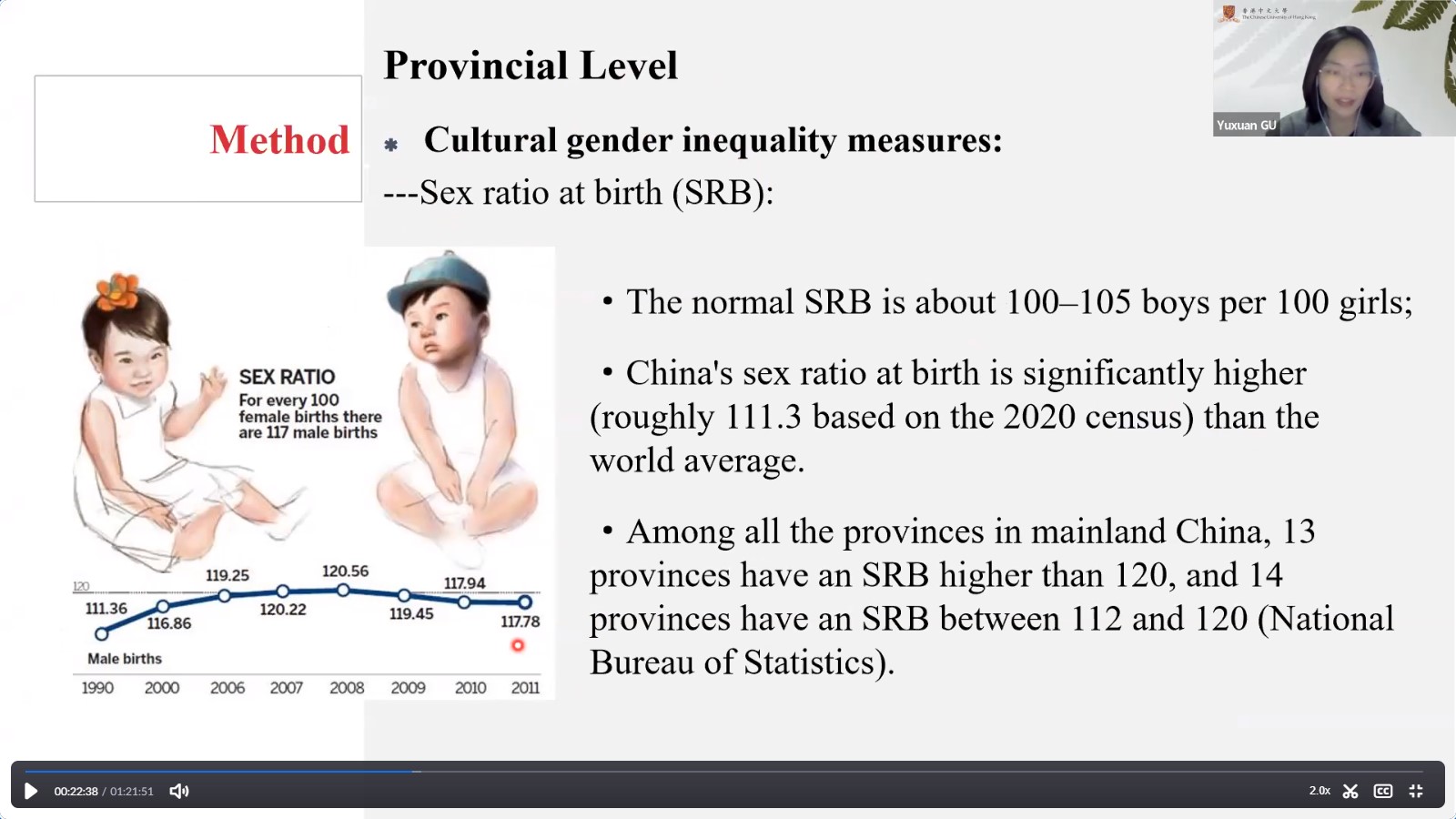 |
In the Wednesday Seminar on 30 March, Ms. Yuxuan Gu, an MPhil student from Gender Studies Programme and the Department of Sociology at the Chinese University of Hong Kong, shared her research on “Analyzing Female-Victim Intimate Partner Homicide in China via Hierarchical Models and Data Mining Methods”.
Although the overall trend of the homicide rate in the world seems a declining one, intimate partner homicide (IPH), especially female-victim intimate partner homicide (FV-IPH), shows its stability. In China, among the couples who filed for divorce cases because of domestic violence, up to 91.41% of the perpetrator were male. Built upon this contextual background, Ms. Gu’s study proposes a theoretical account integrating the traditional ameliorative and backlash theses, offers a possible explanation for some of the inconsistent findings, and provides empirical examination in mainland China.
Ms. GU selected 11,310 intentional homicide cases from the China Judgments Online website and used hierarchical models and data mining methods to conduct the analysis. The findings illustrate that: 1) in terms of the instrumental dimensions of gender equality, the backlash processes are likely to dominate at lower to higher levels of women empowerment; 2) the relationship between the cultural dimension of gender equality and levels of FV-IPH conforms to an inverted U, such that a backlash effect operates in the short-term but is followed by an ameliorative effect in the longer term. By leveraging detailed information on 11310 homicide cases, this study pioneers the analysis of FV-IPH in mainland China. It presents researchers with an effective method of utilizing text-mining techniques and hierarchical models which explore the integration of structural gender equality and incidental level characteristics.
Written by: SUN Yining, SHI Xinyu
23 Mar 2022 (Wed) Gendered Market Activities among Female Entrepreneurs in China: Case Study from Two Inland Provinces
 |
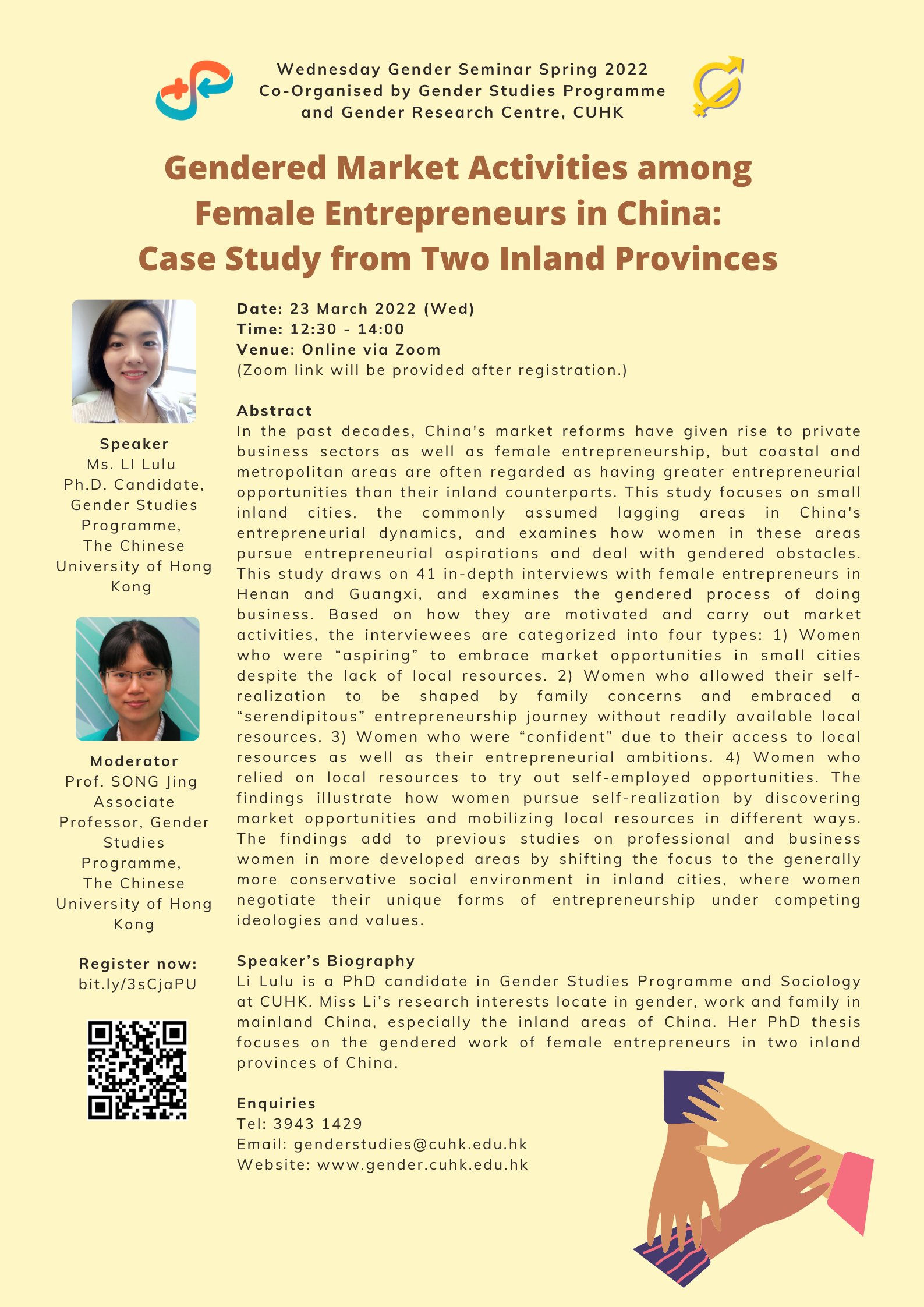 |
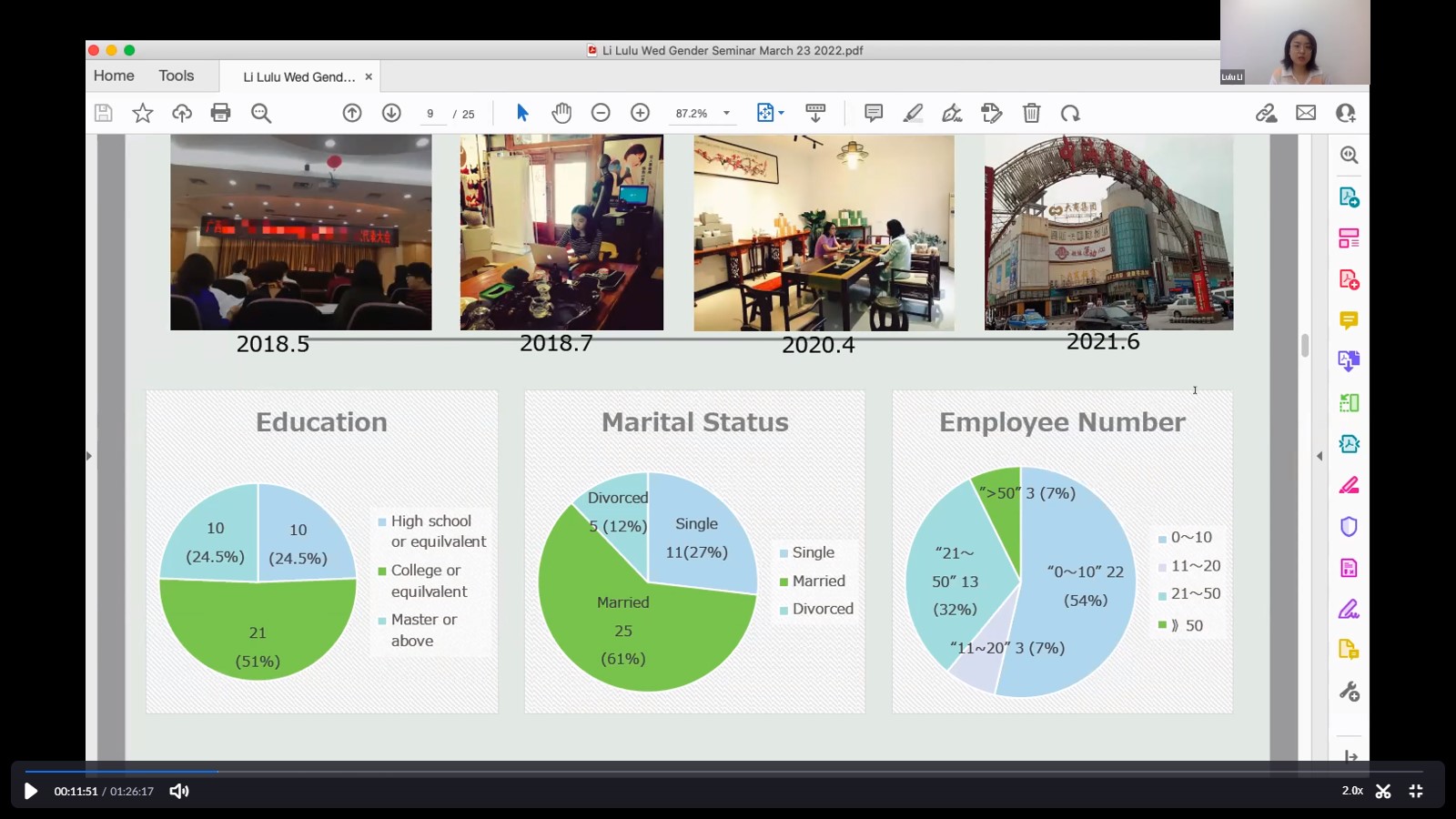 |
In the Wednesday Seminar on March 23, Ms. Lulu Li, Ph.D. candidate from Gender Studies Programme and the Department of Sociology at the Chinese University of Hong Kong, shared her research on “Gendered Market Activities among Female Entrepreneurs in China: Case Study from Two Inland Provinces.”
Driven by the “Mass Entrepreneurship and Innovation” campaign in China since 2016, the development and prosperity of private businesses and start-ups in China has brought unprecedented opportunities for female entrepreneurship. However, entrepreneurship has traditionally been androcentric, and the opportunities for entrepreneurship are unevenly distributed between inland and coastal regions. Against this backdrop, Ms. Li proposes the research question of “what are the motivations for female entrepreneurs to enter private business, and what kind of gendered opportunities and difficulties do they encounter when doing business in the local market”.
Drawing on 41 in-depth interviews with female entrepreneurs in small and medium cities, the research shows that for female entrepreneurs motivated by economic aspirations, some are “confident” to start the business with access to local resources and family support in a rising local market, while others are “aspiring” but lacking local networks and facing marriage stress. For females who become entrepreneurs due to family considerations, some of them try out new business opportunities “comfortably” with sufficient emotional and financial support, while others enter their business “serendipitously” in a familiar place because they want to realize their self-value and be filial at the same time. These findings imply that personal career aspirations and family concerns are key factors influencing the entrepreneurial motivations of women in inland cities. These women are adept at exploring different market opportunities and mobilizing multiple local resources to achieve business advancement and self-realization. Compared with women in developed regions, these inland women entrepreneurs who run businesses in a relatively conservative social environment have constructed their unique forms of entrepreneurship in which gender, class, and locality are intertwined.
Written by: ZHOU Siyuan, GU Yuxuan
16 Mar 2022 (Wed) Becoming Insurance Agents in Hong Kong Career Choice and Social Mobility among Highly Educated Women from Mainland China
 |
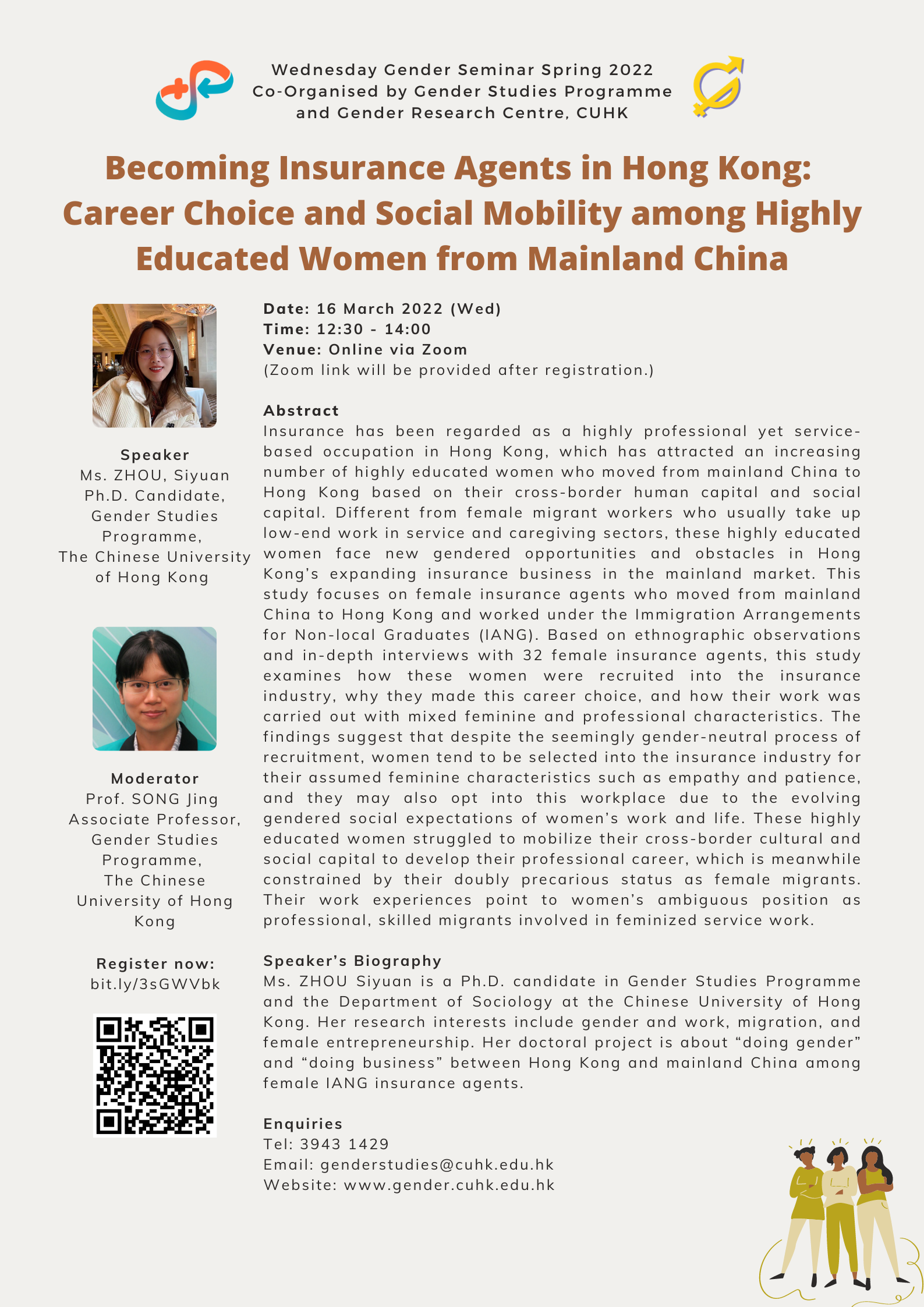 |
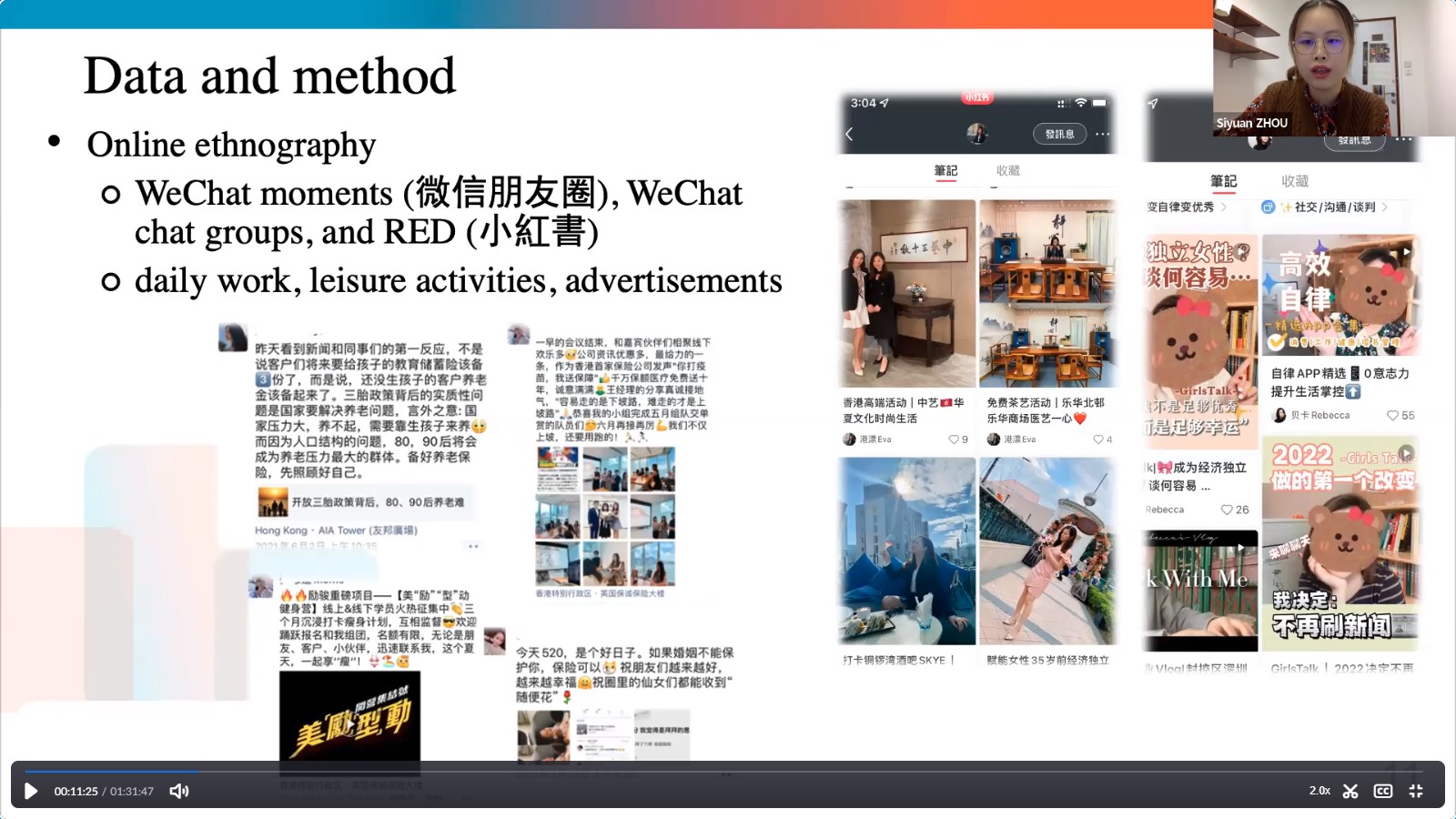 |
At the Wednesday Gender Seminar on March 16, Ph.D. candidate Ms. ZHOU Siyuan from the Gender Studies Programme and Department of Sociology at the Chinese University of Hong Kong brought her sharing. Her dissertation title is "Becoming Insurance Agents in Hong Kong: Career Choice and Social Mobility among Highly Educated Women from Mainland China." The insurance industry is very mature in Hong Kong, which has attracted many highly educated women to migrate to Hong Kong from mainland China, engaging in this industry. To explore the gendered opportunities and challenges they encountered, the researcher conducted in-depth interviews with 32 women working in the industry at various career stages and ethnographic observations at insurance agents’ offices, and during their daily and recruitment activities to explore their motivations to enter the insurance industry and how they were recruited. At the same time, the researcher is also studying how the insurance industry combines femininity and professionalism.
The recruitment process includes two dimensions, institutionally and individually. New IANG graduates who enter the internships and trainee programs build up connection with professional financial advisors and access to diversified training contents at the institutional level.
The recruitment at individual level is conducted through social networking like “港漂圈”, hometown associations, and alumni organizations. WeChat and Red are the common platforms to build women’s professional image as insurance agents.
In fact, women are more than welcome for they are considered to be more independent, patient, and thoughtful. Women utilize cross-border information and resources due to their Mainland identity. They are motivated by personal career aspirations and family support. However, they face double marginalization. First, gender discrimination harms women’s career mobility. The second is geographical as they are female immigrants, which is an excuse for different treatment between the locals in the workplace and them. In short, women still face structural inequalities in the workplace due to the patriarchal gender division of labour.
Written by: DONG Xueyin, YANG Ming
9 Mar 2022 (Wed) Single-Sex Schooling and Students’ Interpersonal Development
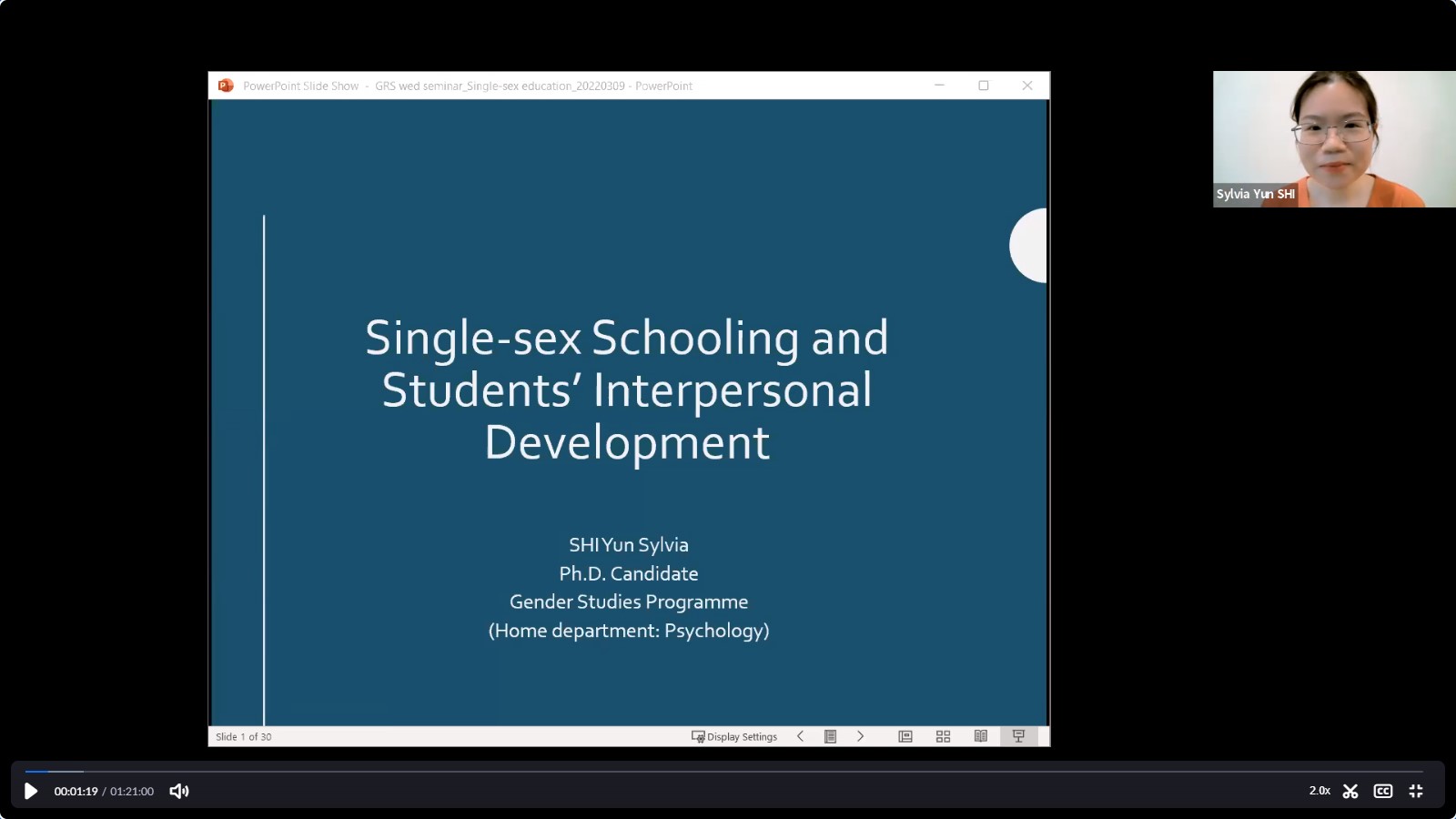 |
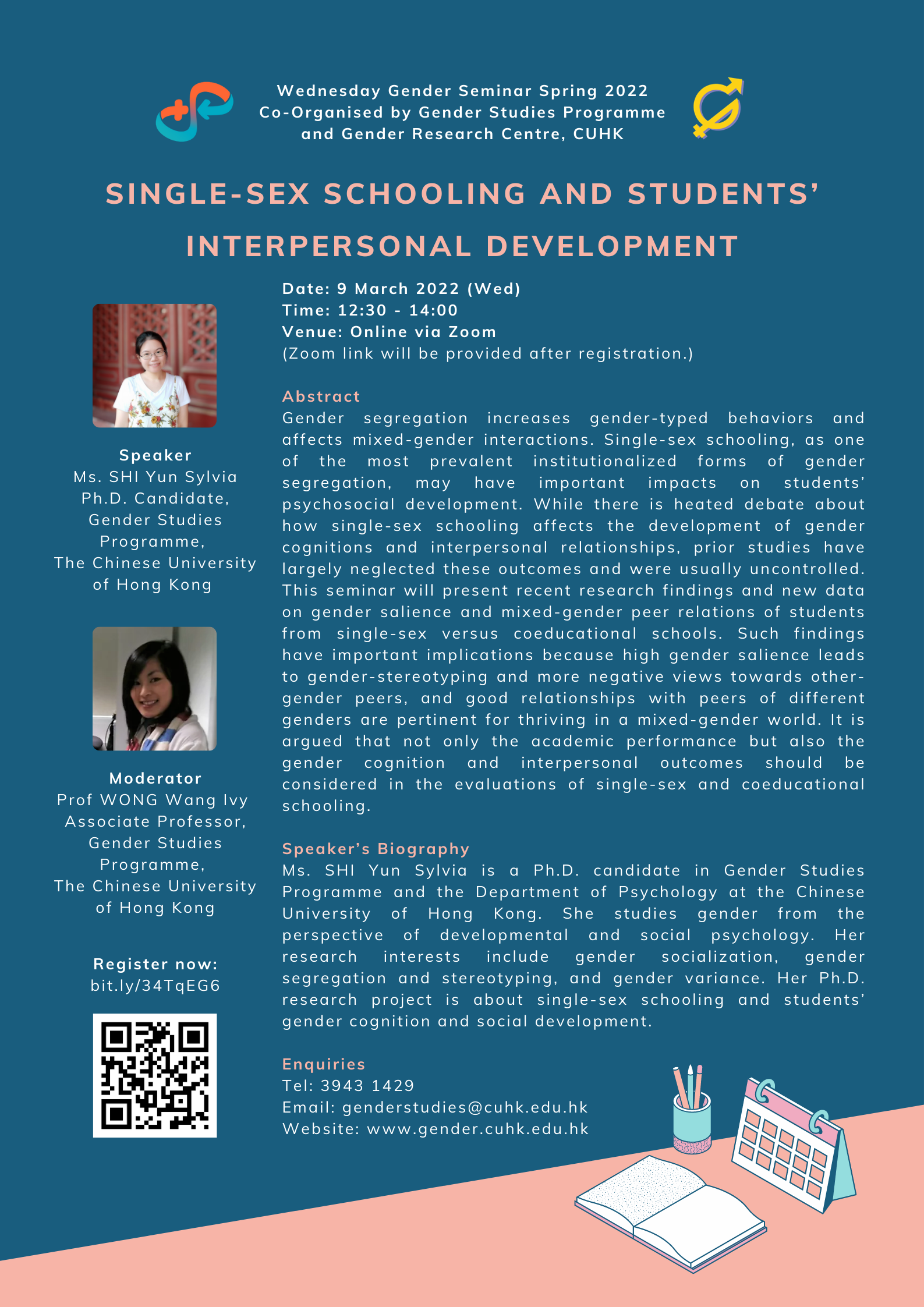 |
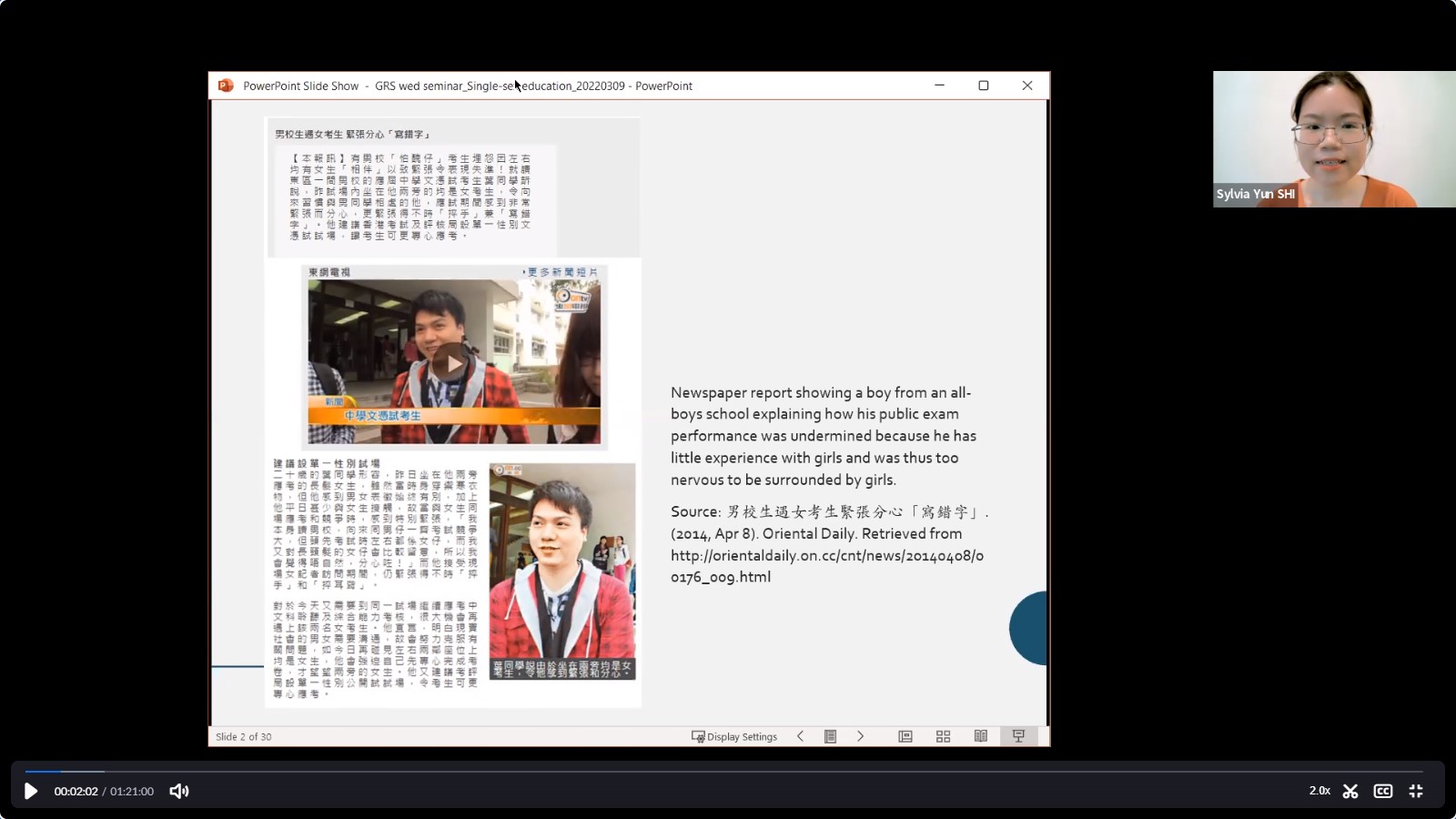 |
Ms. SHI Yun Sylvia, Ph.D. Candidate in Gender Studies Programme presented her research on “Single-Sex Schooling and Students’ Interpersonal Development” at the Gender Seminar on Wednesday, March 9th.
As a form of institutionalized gender segregation, single-sex schooling was initially set up to make up for girls' lack of education or secular reasons. Nowadays, this form of schooling remains common and resurges in recent years.
However, single-sex schooling is a controversial education form. Some people argue that it benefits both boys and girls from different perspectives. Others disagree with the supportive claims.
By reviewing developmental intergroup theory and peer socialization theory, Ms. Shi’s research aims to answer the following research questions: do single-sex and co-ed students differ in gender-related cognitive outcomes? Do single-sex and co-ed students differ in same gender and other gender relationship outcomes? Would such differences (if any) change after graduation when students enter a mixed-gender world?
Regarding the cross-sectional study, there are two participant samples, including boys and girls from local single-sex and coeducational schools. The first group involves 2059 students recruited from HK high schools, and the second includes 456 students from local universities. The former finishes questionnaires in class, whereas the latter in the laboratory. About the measures, the higher level of gender salience is reported in the single-sex high school sample. In addition, the single-sex school sample reports having lower percentages of other-gender friends and close friends as compared to the coeducational school sample. What’s more, single-sex high school and college students feel more mixed-gender anxious, except for that the difference between college samples is not statistically significant.
In the longitudinal study, two time lines were set, namely the final year of high school and after graduation. The time interval between the two time lines was 16.62 months. The sample was drawn from more than 100 local high schools in Hong Kong, and the measures includes demographics, gender salience, and gender stereotyping. This study shows that gender segregation in single-sex schools affects students' gender cognition and entails social outcomes, including stereotyping, friendship, and sexual orientation. Although these effects diminish over time, students in single-sex schools have fewer social skills in mixed-sex life after graduation. Many questions remain to be answered about the impact of single-sex education, especially on students' non-academic outcomes.
Written by: GAO Xinning, ZHOU Shanshan, ZHANG Kunyu
16 Feb 2022 (Wed) Politics of Dating Apps
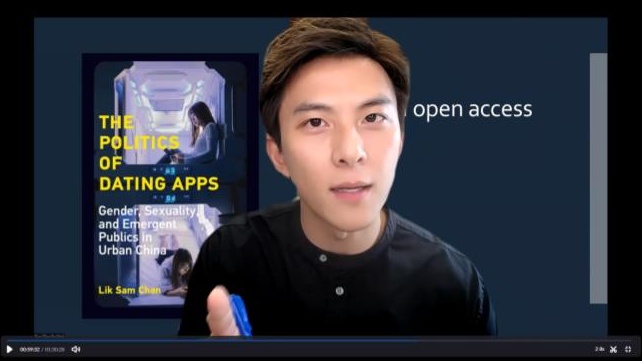 |
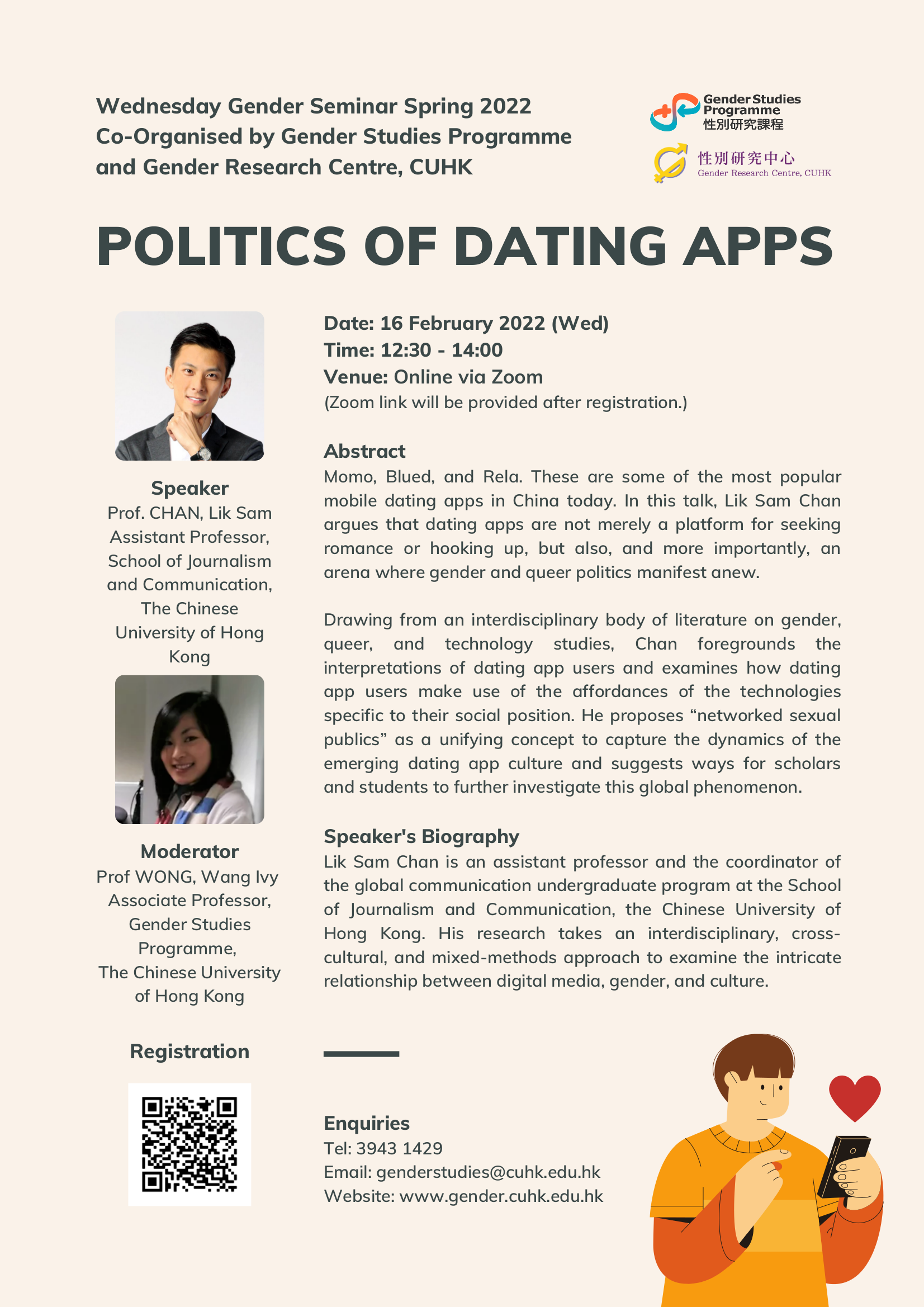 |
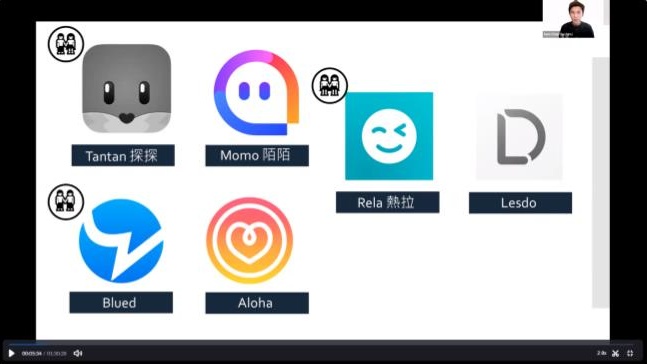 |
CHAN Lik Sam, assistant professor at the School of Journalism and Communication of the Chinese University of Hong Kong, presented his research on "Politics of Dating Apps" via Zoom online lecture at the Gender Seminar on Wednesday, February 16th.
Using in-depth interviews and critical methods, Prof. CHAN Lik Sam had deep-going conversations with friends around him who use dating apps, understood their motivations for using these apps, analyzed their experiences and feelings in using the apps, and focused on the explanations from users of dating apps. Finally, Prof. CHAN established the connection between dating apps and individual politics. He sees dating apps not just as a platform for romance or hooking up, but more importantly, as an arena to reembody gender and queer politics.
At the same time, Prof. CHAN draws on interdisciplinary literature on gender, homosexuality, and technology research to examine how dating app users take advantage of the technological capabilities unique to their social status. He proposed the "Networked Sexual Publics" as a unifying concept to capture the dynamics of emerging dating app culture, and suggested that scholars and students use thinking of intersectionality to further study this global phenomenon in the future.
He pointed out that we need to call for a fight for social rights. Spaces outside of the heterosexual community have already received a lot of attention through dating apps, and if online sex topics are latent, then building our identities through dating apps could lead to a more gender-equal and homosexuality-friendly world. Using apps to find "sex" for women, for example, is actually a way to help them learn about themselves.
Looking ahead to future research, Prof. CHAN believes that if we want to pay attention to people's different interpretations of dating apps or behaviors, we need to take an intersectional approach. In fact, every sexual public on the Internet has at least two identities -- male and female. We also need to consider factors such as age, urban and rural areas. These undiscussed intersections may affect users' use of the application, which requires further research and discussion.
Written by: LUO Xilu, GAO Yuting, XIA Mohan
19 Jan 2022 (Wed) Queering Chinese Kindship – Queer Public Culture in Globalizing China
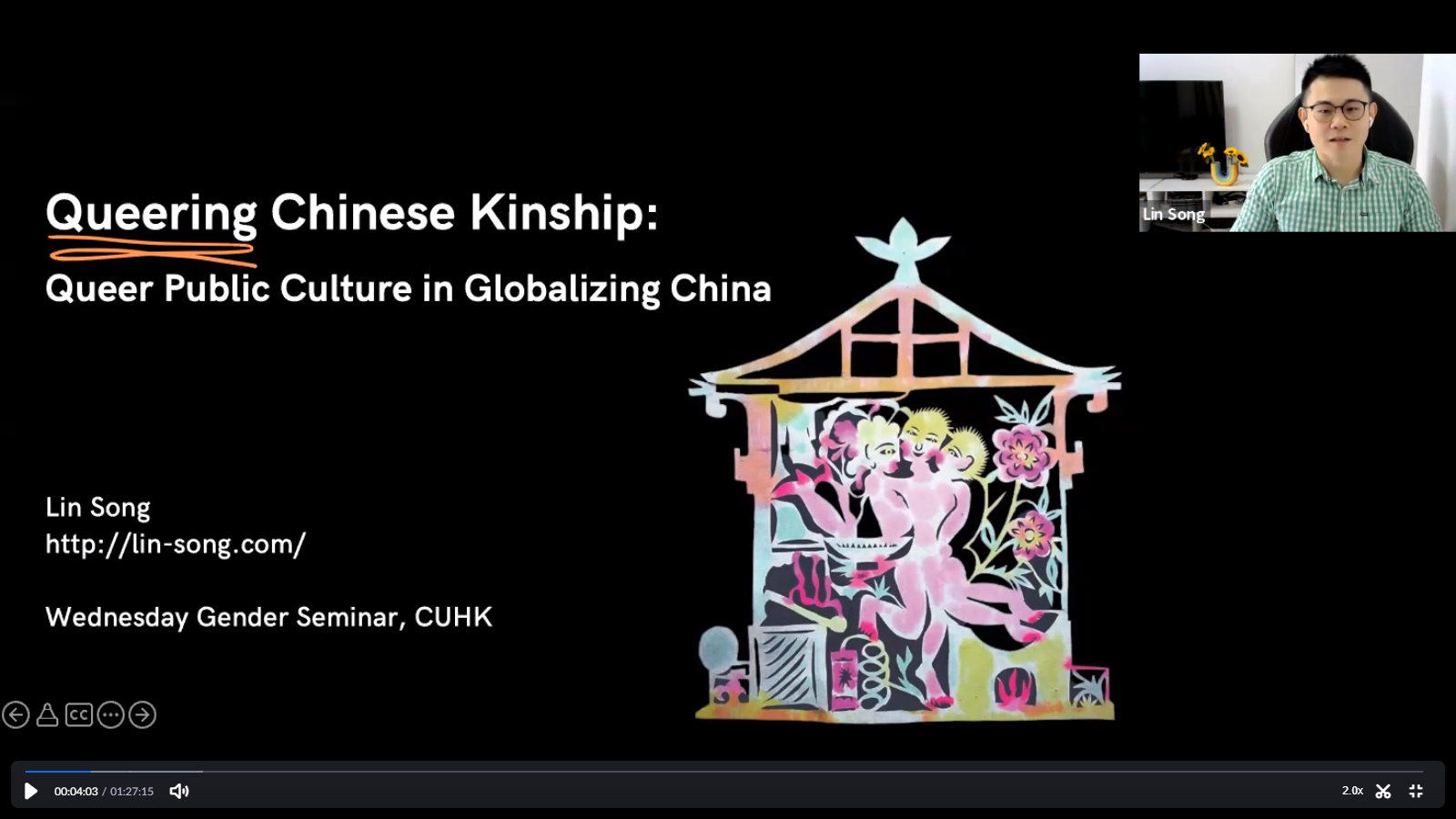 |
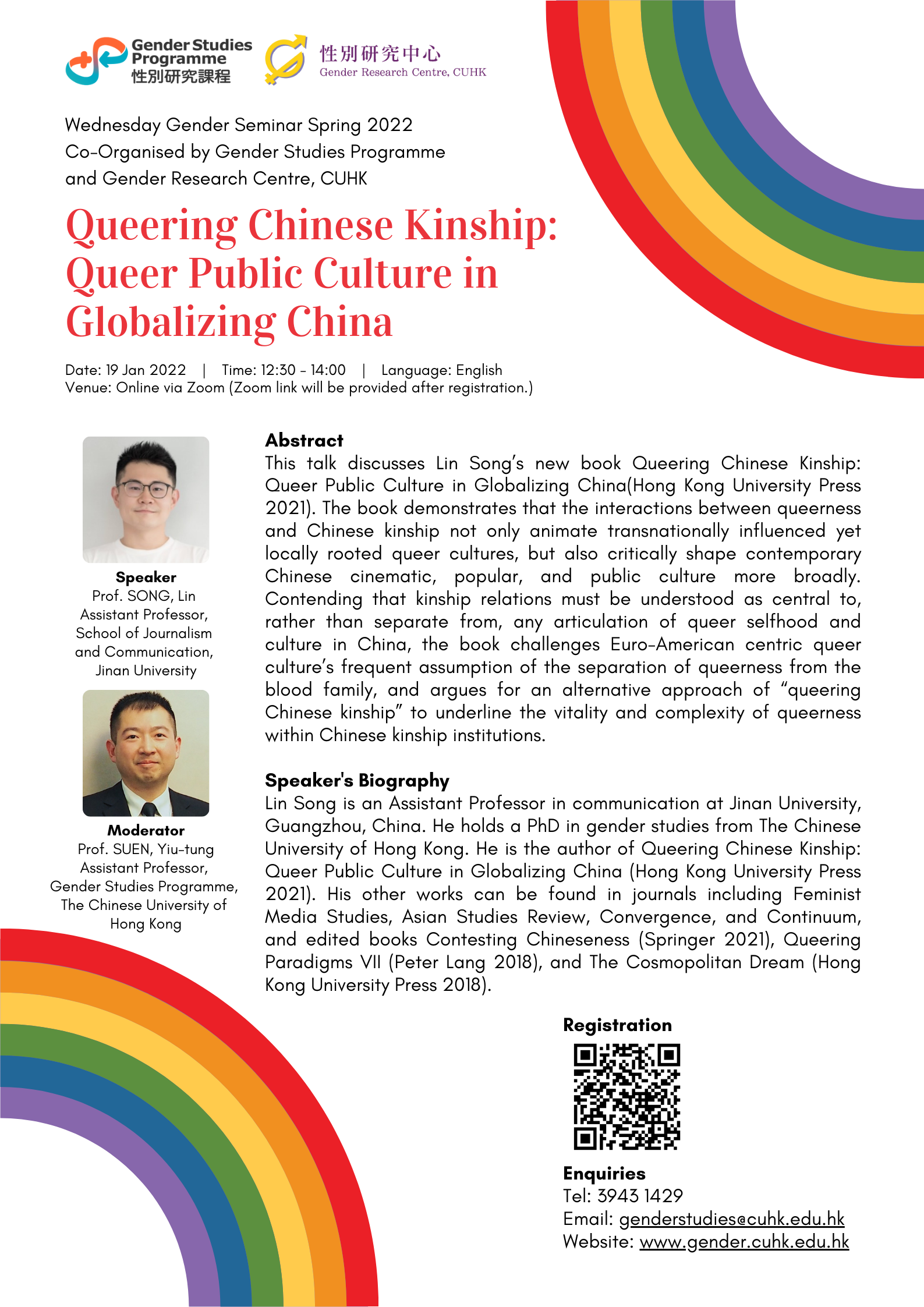 |
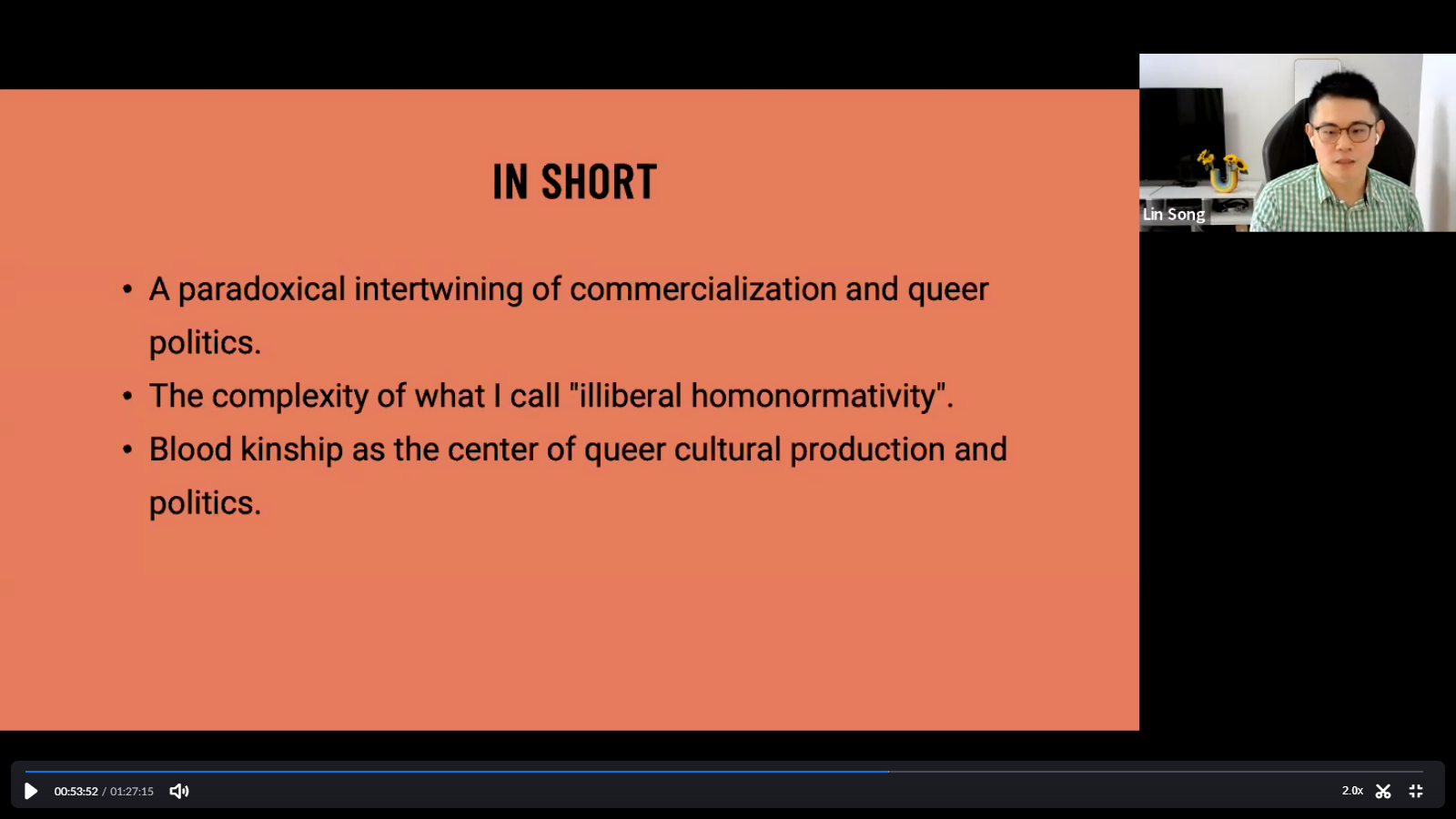 |
The seminar is an eye-opening one and Professor Song Lin from the school of Journalism and Communication of Jinan University shared his study regarding Queering Chinese Kinship.
Queer is a terminology originated from the Western world and it is worth exploring whether the said terminology and definitions of queer are applicable in China who shares a quite different culture and history comparing with those western countries.
Professor Song’s study revealed that the queer definitions from the west may not fully applicable and adaptable for China while Professor Song has pointed out that Queerness is highly correlated with Kinship whereas these two components are shaping each other and formulating a dynamic process of Queering Kinship from a Chinese cultural context.
Professor Song’s has investigated the said topic in his recent publication of “Queering Chinese Kinship: Queer Public Culture in Globalizing China” through various case studies. In the captioned seminar, Professor Song has shared the case study of BiliBili to illustrate the characteristics of Queering Chinese Kinship.
BiliBili is a popular video sharing platform focusing on the youth market in China and there are quite a number of Chinese queers leverage BiliBili as the platform to come out and share their sexuality with the others. The study found out that the content and the approach of such videos are rather different from the westerners; the Chinese queer videos usually involve the queers’ partners as well as their families; such approach echoes the significance of the relationship between queers and kinship. The video contents, moreover, are packaged in a rather romantic and commercialized way to cultivate the interest followed by the acceptance from the public.
Professor Song also evaluated the comments from those anonymous audiences in a bullet curtain; it is found that the comments are all very encouraging and positive which helps reshaping the blood kinship relationships which used to be the first step to boost the acceptance level of queers in China.
It is a live example to manifest the inter-disciplinary nature of gender studies which we should stay cautious about the “one size fits all” approach without considering the local context especially gender is institutionalized through various historical, cultural, economic, and political factors.
It is no arguing that Professor Song brought us an insightful study, but some may challenge the representativeness of those case studies. Perhaps the hackathon approach advocated by Hope, D'Ignazio et al. (2019) can be applied for a deep dive analysis of the said topic and have the most oppressed marginalized group identified with their issues uncovered.
Written by:Hui Wai Hung, Ross
Spring 2021
Co-presented by: Gender Studies Programme, Gender Research Centre & Sexualities Research Programme, The Chinese University of Hong Kong
17 Mar 2021 (Wed) Family Matters: Gender and Motivations in Women’s Online Entrepreneurship
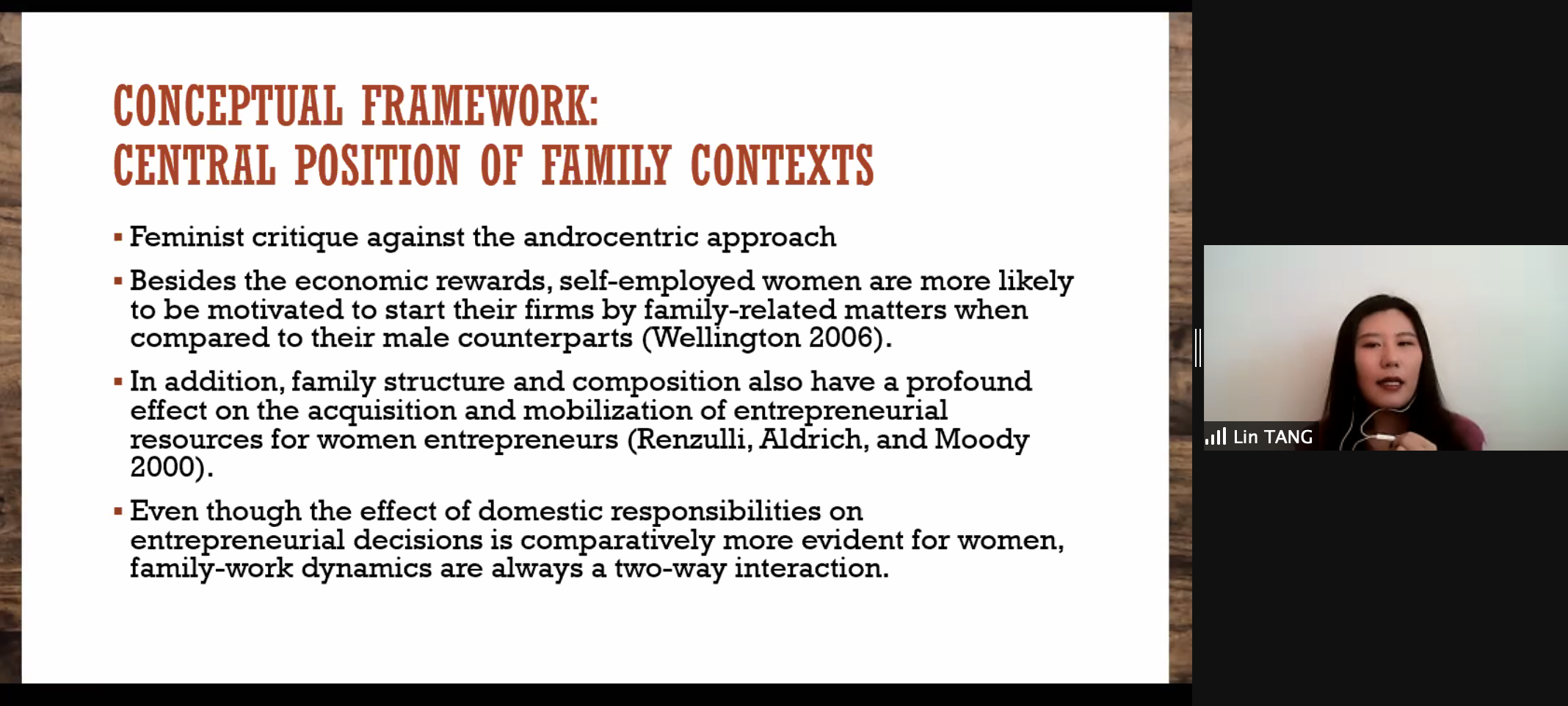 |
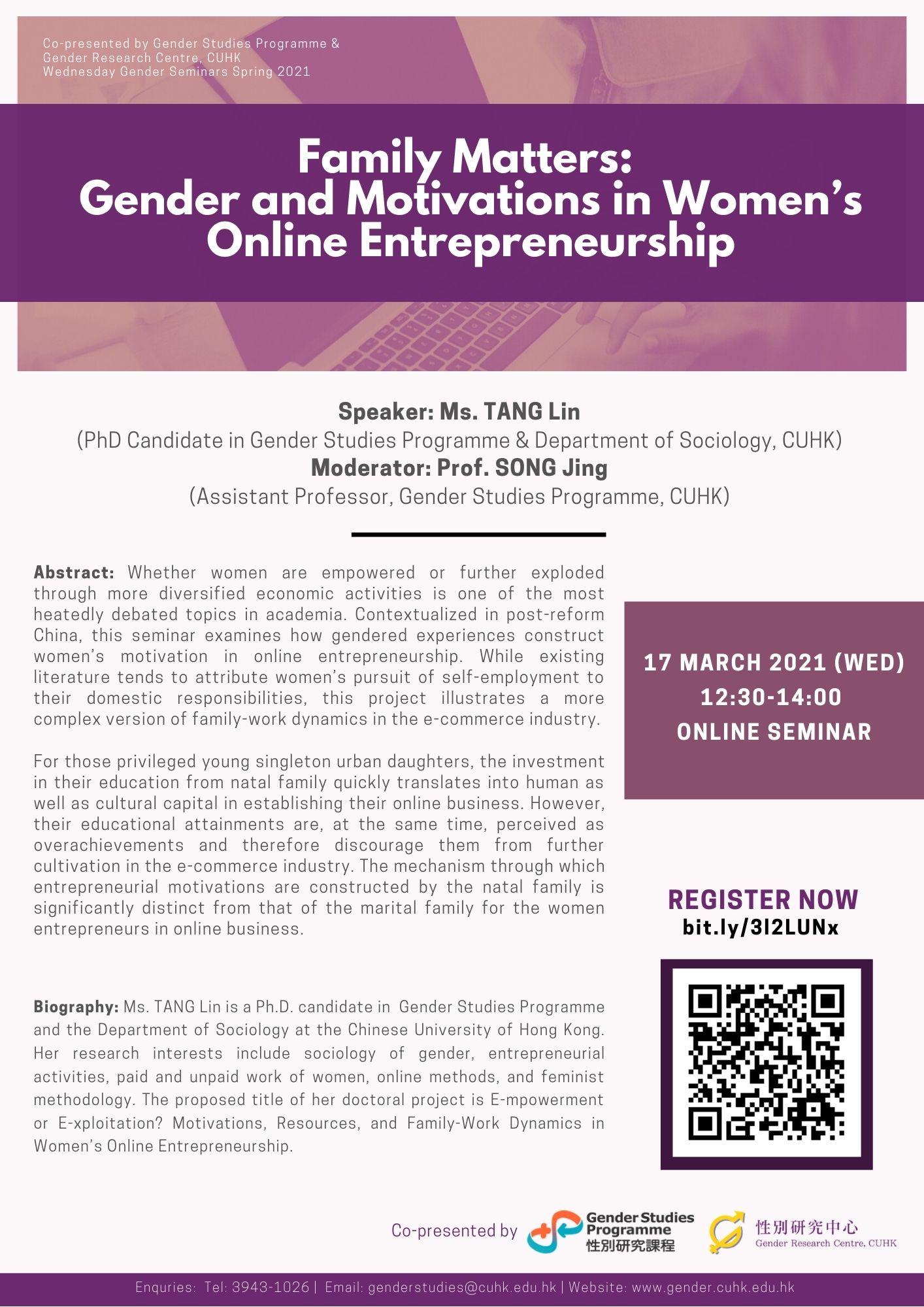 |
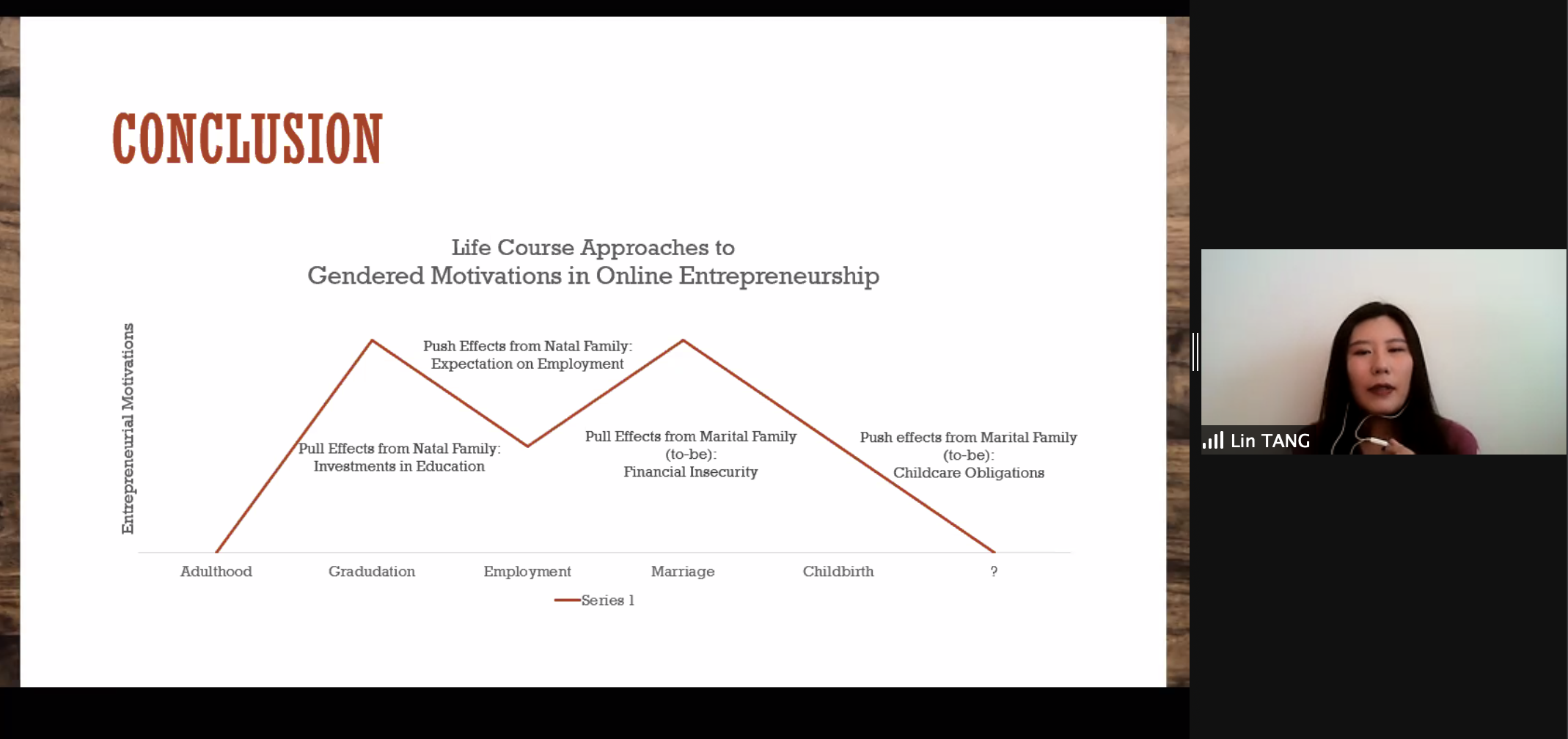 |
In the Wednesday Seminar of March 17, 2021, Ms. TANG Lin, a Ph.D. candidate in Gender Studies Programme and the Department of Sociology at the Chinese University of Hong Kong, shared her ongoing Ph.D. research on how gendered experiences in relation to the family institution construct women’s motivations in online entrepreneurship in China.
The fast development of the Internet in the past decade has witnessed Chinese women’s greater participation in E-commerce compared to men. More than 50% of the business owners on Taobao are female (AliResearch 2015), and more than 70 % of the individual WeChat sellers are female (Xinmin Evening News 2017). In regard to entrepreneurial motivations, previous studies suggest while men are more economic oriented, women are more achievement-oriented and family-oriented. Women are more likely to venture into family-related businesses. Moreover, family-work dynamics are always important factors impacting women’s entrepreneurship. Family structure and composition also have a profound effect on the acquisition and mobilization of entrepreneurial resources for women entrepreneurs.
By in-depth interview and online ethnography, Ms. Tang Lin examined in her research women’s entrepreneurial experiences in relation to both their natal family and marital family The research subjects are mostly from a more privileged group: those well-educated young women who are the only child in their natal family and live in the more affluent eastern and southern coastal areas. A life-course perspective honoring four significant life events, namely university graduation, formal employment, cohabitation or marriage, and childbirth was adopted to offer a more dynamics-sensitive and multi-dimensional analysis on the comparatively high percentage of women’s participation in online entrepreneurship.
By using “pull” and “push” to structure her analysis, Ms. Tang Lin pointed out two pairs of effects to pull those privileged young women into online entrepreneurship or push them out from it, during the transition of their status. As urban singleton daughters, they were initially pulled into online entrepreneurship when they were graduating from their postgraduate programs. Becoming a dài-goù, namely doing surrogate shopping for others, was regarded as a spontaneous move to make up for their parents’ investments in their overseas tertiary education. However, after they graduated and came back to their hometown, the social expectation of stable and ideal jobs — such as public servants, teachers, administrative staff — for women started to push them out from online entrepreneurship. As they and their parents perceived, online entrepreneurship could only be a temporal and transitional option.
If the first pair of pull-push effects happened in their natal families, the second pair of effects emerged in their marital family or marital family-to-be. When they started cohabitating with their marital partners, they could be pulled into online entrepreneurship to make extra money, especially when their partners were financially insecure. However, the motivation of online entrepreneurship had nothing to do with women’s empowerment. Although some of their marital partners would do pep talks or offer physical supports to help them run their online business, the aim was pretty much materialistic. Once they got pregnant and had their own children, childcare obligations would push them out from online entrepreneurship. As Ms. Tang Lin observed, their motivation for online entrepreneurship decreased dramatically in this life event. For those who still insisted on, they had to juggle between paid work in the household and their online economic activities.
Written by:
Peng Yiyi & Wu Yuehan, PhD candidates of Gender Studies, CUHK
Marco Teng Wang, student of PhD in Linguistics, Hong Kong Baptist University
03 Mar 2021 (Wed) The Profile of Risk in Cervical Cancer Prevention in Southwest China
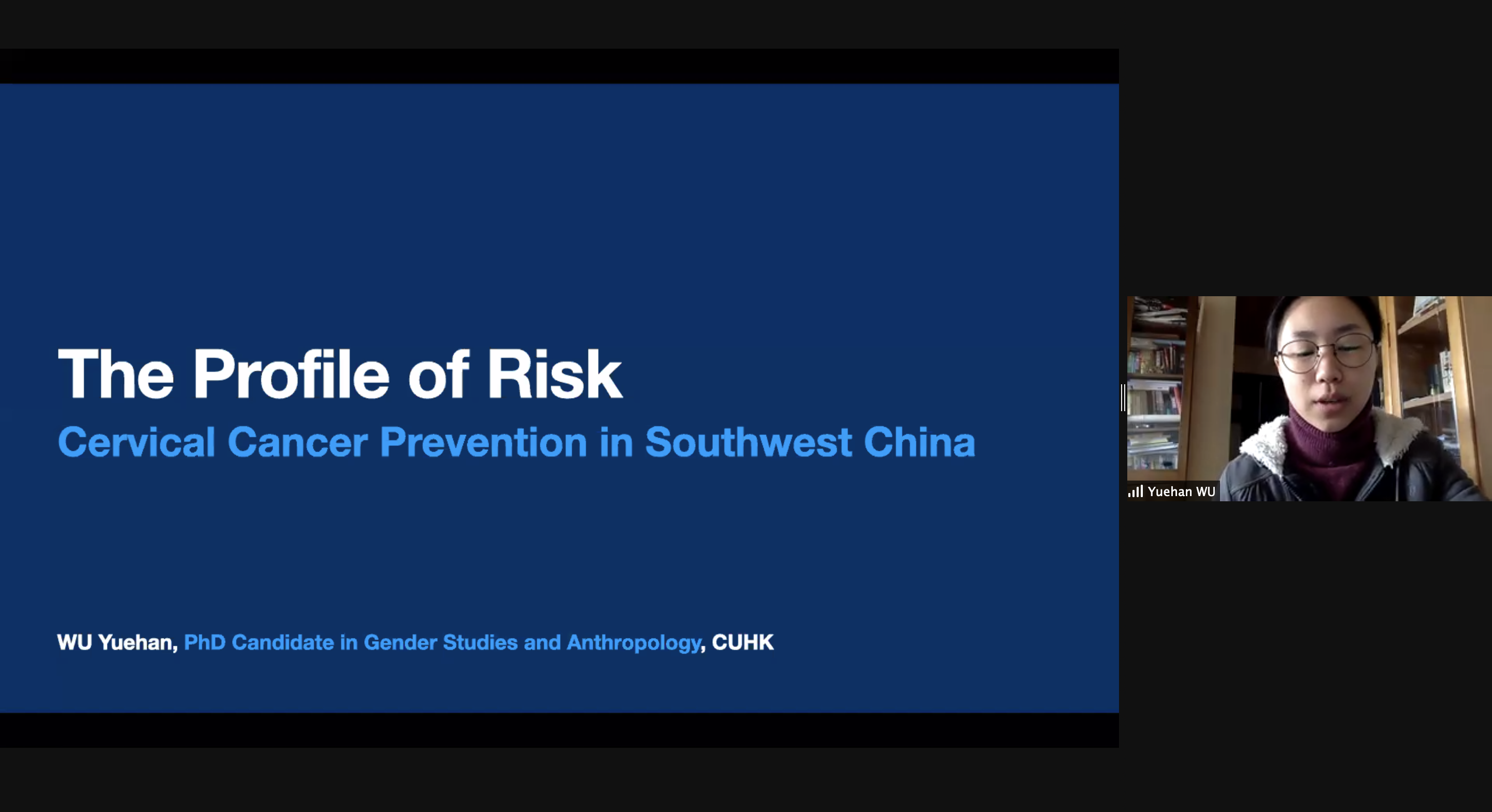 |
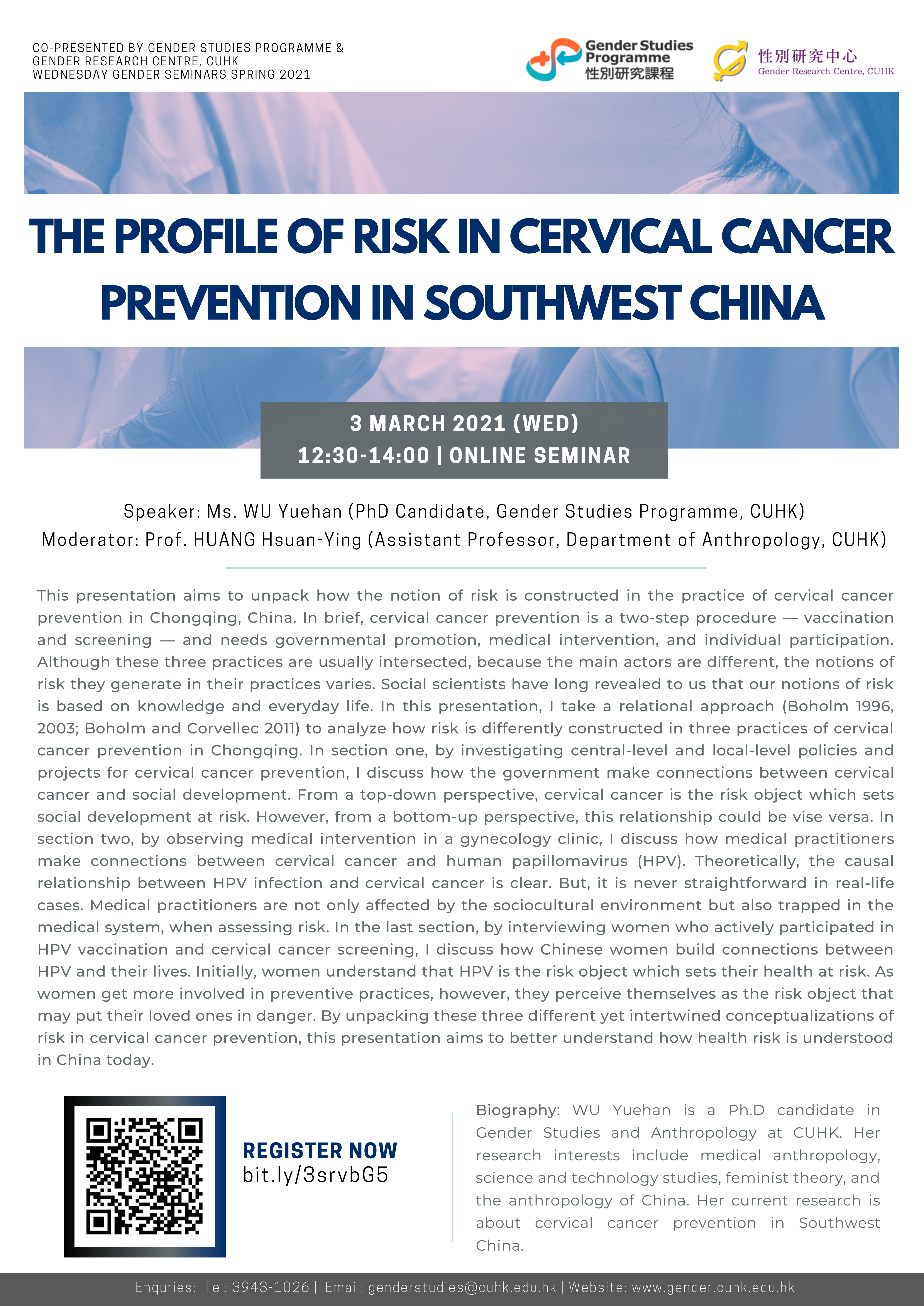 |
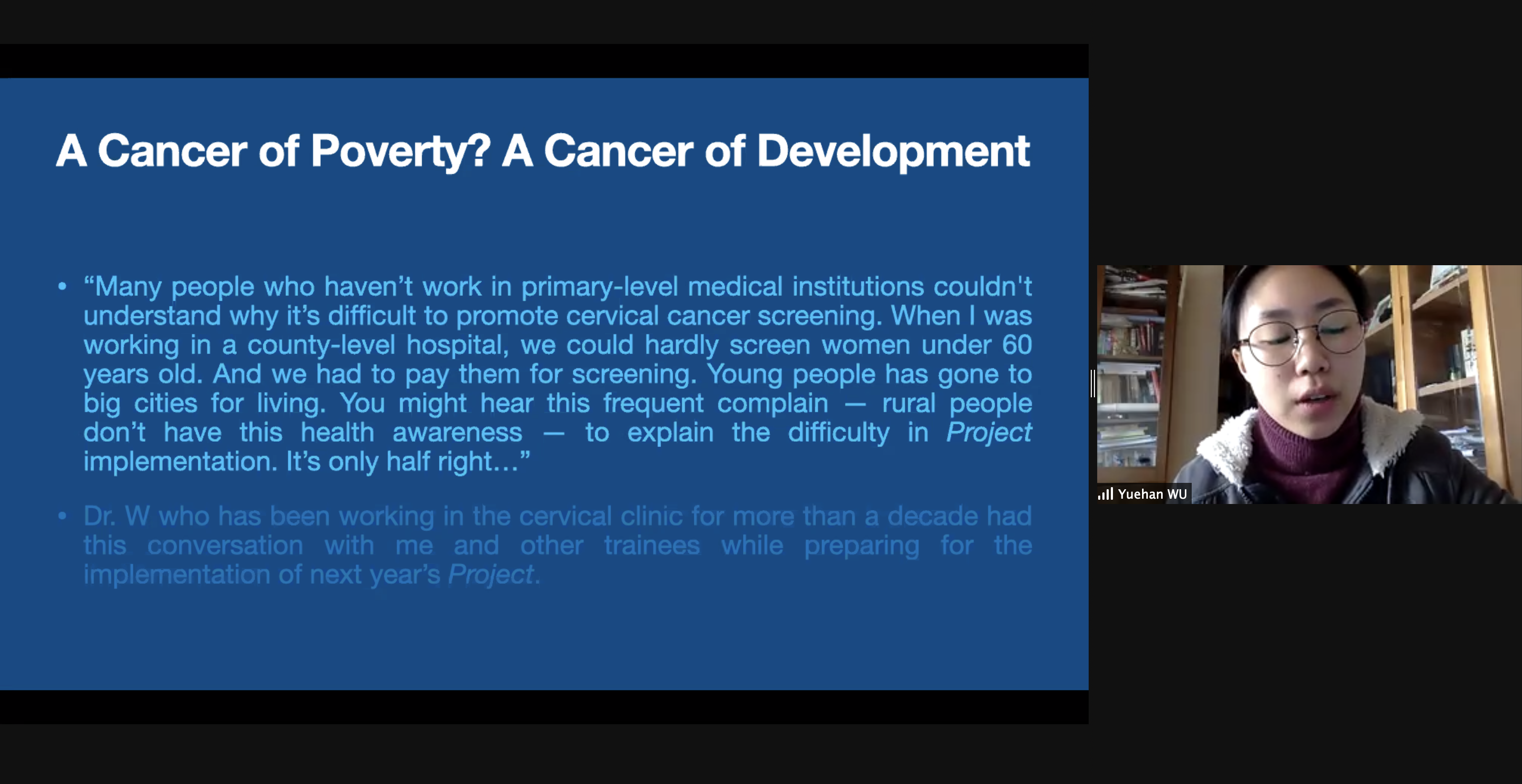 |
During the Wednesday Gender Seminar held on March 3, 2021, Ms. WU Yuehan, Ph.D. candidate in the Gender Studies Programme and the department of Anthology at the Chinese University of Hong Kong, shares her doctoral project on cervical cancer prevention in Chongqing, southwest China.
Ms. WU Yuehan characterize the case of China on cervical cancer prevention as “a mixed phenomenon of the Global North and the Global South”. Along with the rise of pharmaceuticalization of public health, HPV tourism from the mainland to Hong Kong emerges as a unique social phenomenon among women-patients-consumers. However, underdeveloped medical infrastructure, insufficient healthcare investment, and the collusion between Big Pharma and local government in China result in 1/5 of the total death from cervical cancer in developing countries. Ms. WU Yuehan identifies three prevention strategies to cope with the burden of cervical cancers with different agents at all levels, namely, government promotion, medical intervention, and individual participation.
As an anthropologist by training, Ms. WU Yuehan utilizes ethnographic methods by interviewing patients as well as professionals and observing their interactions at a local clinic in Chongqing, southwest China. Since government-subsidized screening tests for cervical cancer are only available for rural women with local residency during a specific period of each year, migrant workers are therefore left out of the precautions. Guided by a relational framework, Ms. WU Yuehan argues that, from an authoritative perspective, cervical cancer is the risk object which sets social development at risk. In this sense, cervical cancer is more of a cancer associated with social developments for female migrant workers from rural areas than economic property. Women patients who live with human papillomavirus (HPV) always experience HPV-attached stigma such as debauchery and promiscuity, concerns and suspicions from their sexual partners, and biomedical uncertainty of whether they are infected or if they can recover. Ms. WU Yuehan ends her talk by pointing out that it is women who are at risk from a bottom-up perspective since they are the host of HPV.
20 Jan 2021 (Wed) A “Phoenix” Rising from the Ashes: China’s Tongqi, Marriage Fraud, and Resistance
 |
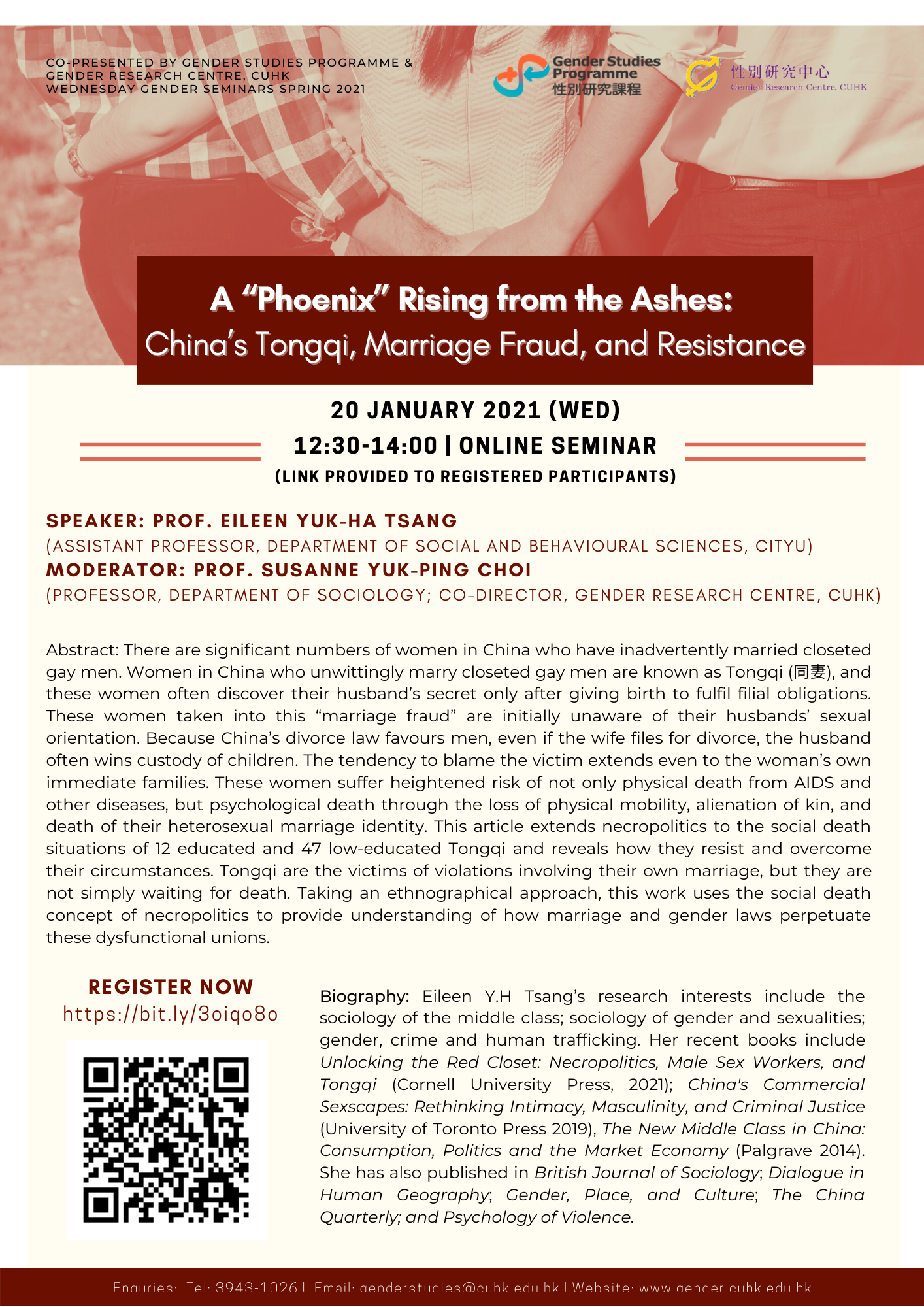 |
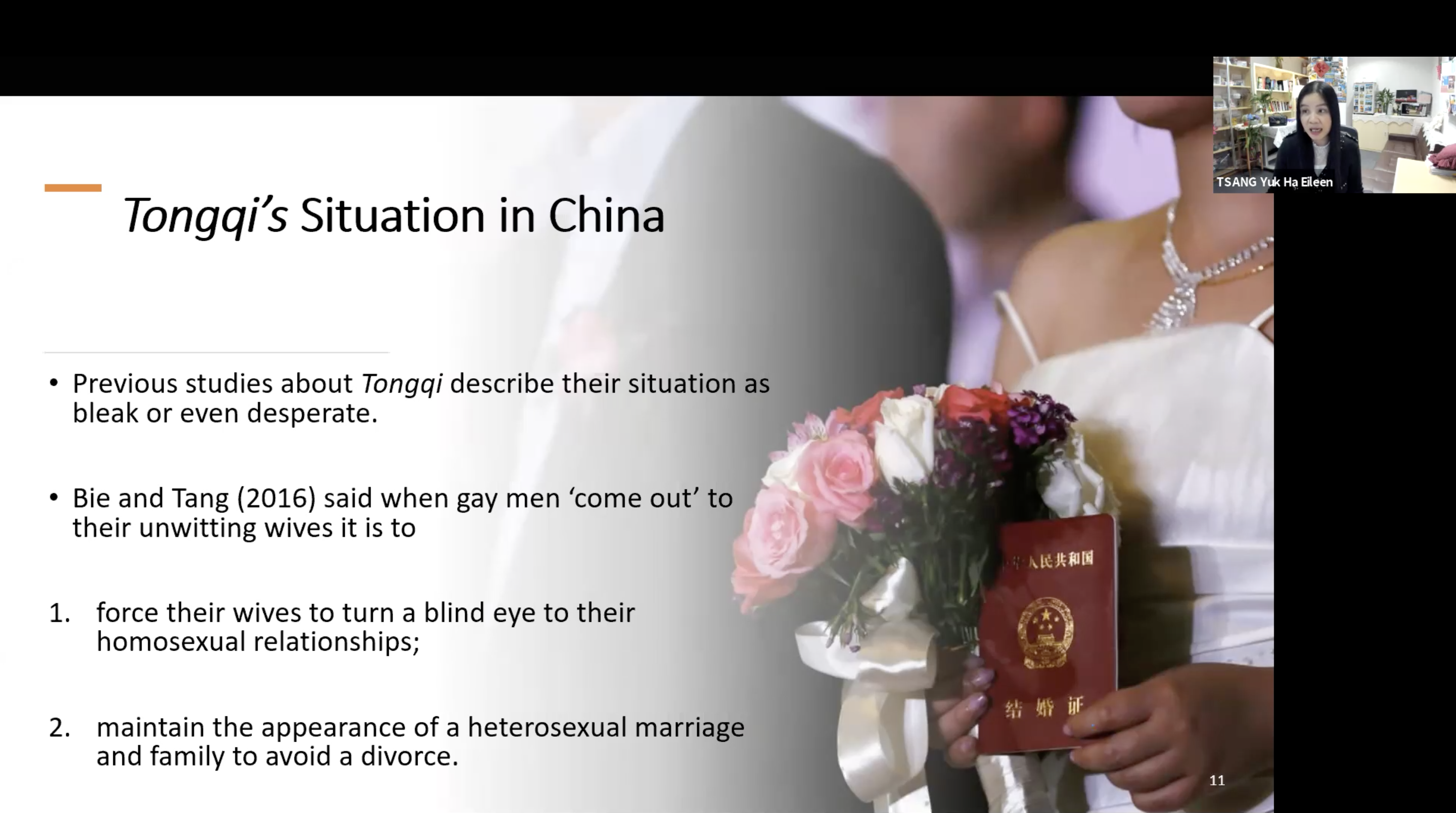 |
At the Wednesday Gender Seminar held on January 20, Dr. Eileen Yuk-ha Tsang, Assistant Professor from the Department of Social and Behavioural Sciences at the City University of Hong Kong, shared her research on Tongqi in China conducted between 2015 and 2019. Tongqi refers to women who have unknowingly married closeted gay men and often discovered their husband’s secret after giving birth to fulfil filial piety. Dr. Tsang extended the concept of necropolitics and used ethnographic methods to uncover the social death situation of 59 Tongqi in Tianjin and Northeast China, and how they resist the circumstances with an agency.
Fall 2020
Co-presented by: Gender Studies Programme & Gender Research Centre, The Chinese University of Hong Kong
18 Nov 2020 (Wed) “Little Bees Just Have to Keep Moving”: Temporary Work, Gendered Skills, and Excessive Mobility in Real Estate Sales Promotion in Urban China
 |
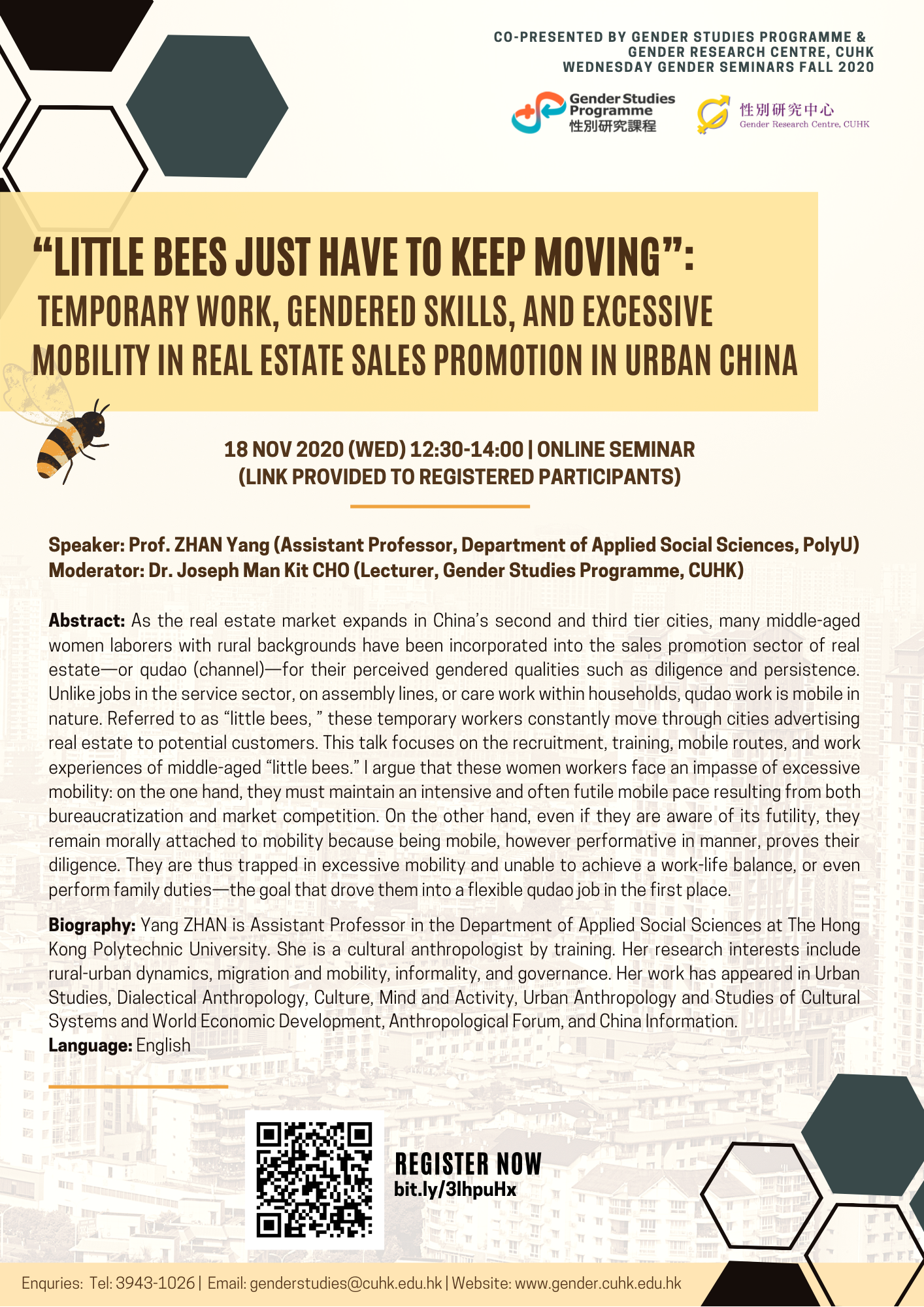 |
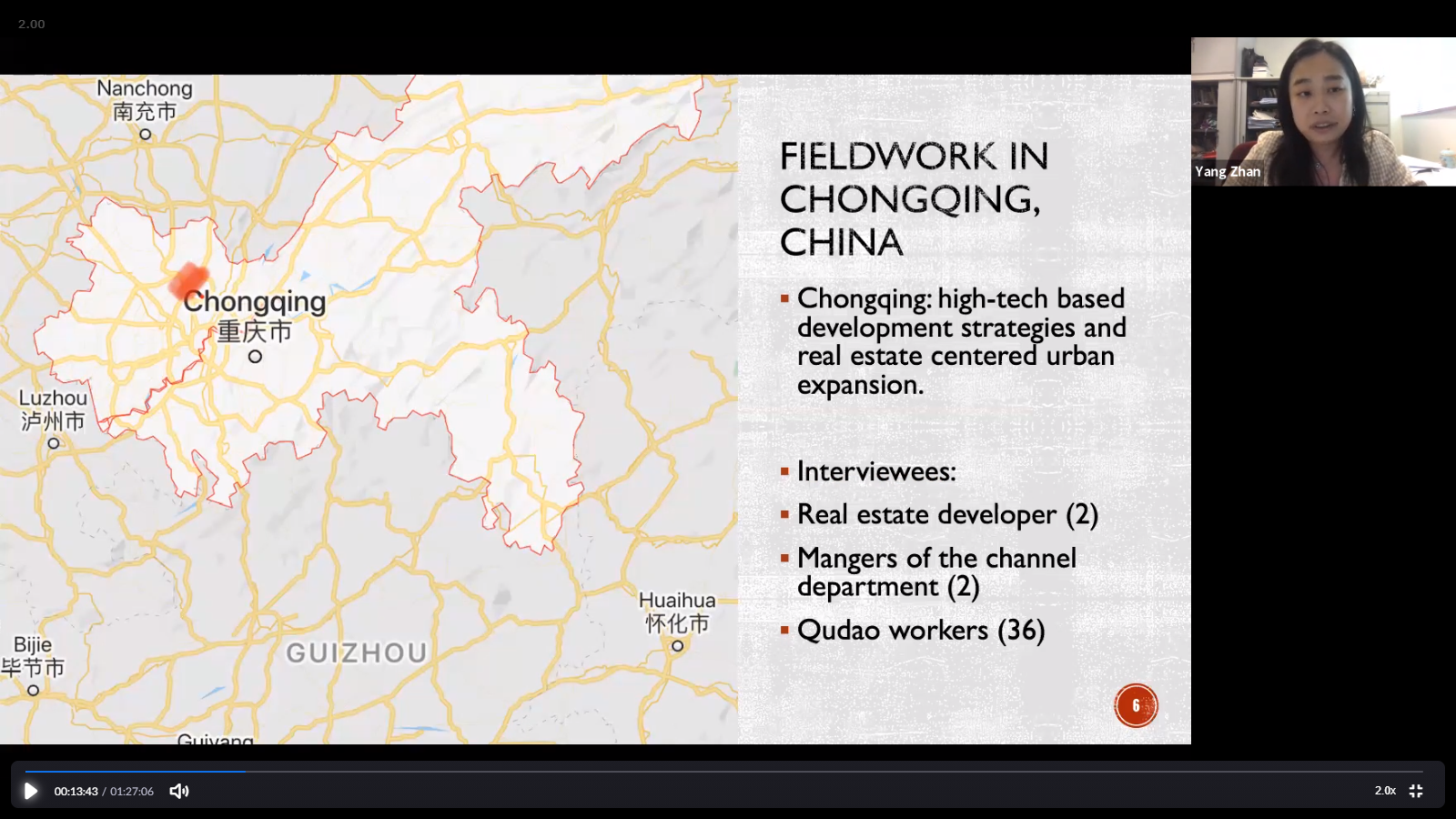 |
At the seminar held on 18 Nov. 2020, Prof. ZHAN Yang from the Department of Applied Social Sciences of The Hong Kong Polytechnic University introduced some interesting aspects of the middle-aged women channel workers in Chongqing from her recent studies.
Channel worker as a job to promote real estate to potential customers has emerged with the real estate market expansion in China's second and third tier cities. Channel work appeared in Chongqing after 2012. Its emergence was mostly due to market competition: Once one real estate developer decided to use channel work to do sales promotion, then others had to follow suit. Prof. ZHAN Yang did her research mainly in the Liangjiang New Area of Chongqing, where she observed how those channel workers worked and conducted interview with them and also with a few of managers of the channel department and real estate developers. She found that most of the channel workers were middle-aged women from rural areas. To promote real estate sales through telemarketing, ground promotion, interception and group-buying, middle-aged women were recruited nominally for their gendered qualities such as "persistent", "hard-working", and "with thick skin". However, Prof. ZHAN Yang argued that the real central skills for this job were sales talk and movement, and the latter was what she stressed on.
The channel workers moved according to specific maps. The channel manager would determine the "stratified circles" of target customers and marked out the locations they could gather as the effective spots for channel workers to go. There was also a map of deals for the channel manager to detect changes in customers' demand in the market. The channel workers must constantly move as the maps were constantly changing.
In effect, the constant movement caused excessive mobility with a high rate of layoff and resignation. What those channel workers were doing was indeed redundant and futile work. Work had always been prioritized over other things. To shake up this fundamental assumption of work, the question drew the attention of Prof. ZHAN Yang was: Why work that does not really serve others' need exist? Though the answer remains to be revealed, for channel work, Prof. ZHAN Yang argued that while being redundant, it bore some functions of social protection. That might be the meaning for "little bees" to keep moving all the time.
Written by : Zhang Yu, MA student of Gender Studies, The Chinese University of Hong Kong
11 Nov 2020 (Wed) Marriage as Filial Duty, Personal Choice or Social Expectation?: Exploring Differences in the Experiences of Single Women in Shanghai, Hong Kong, and Tokyo
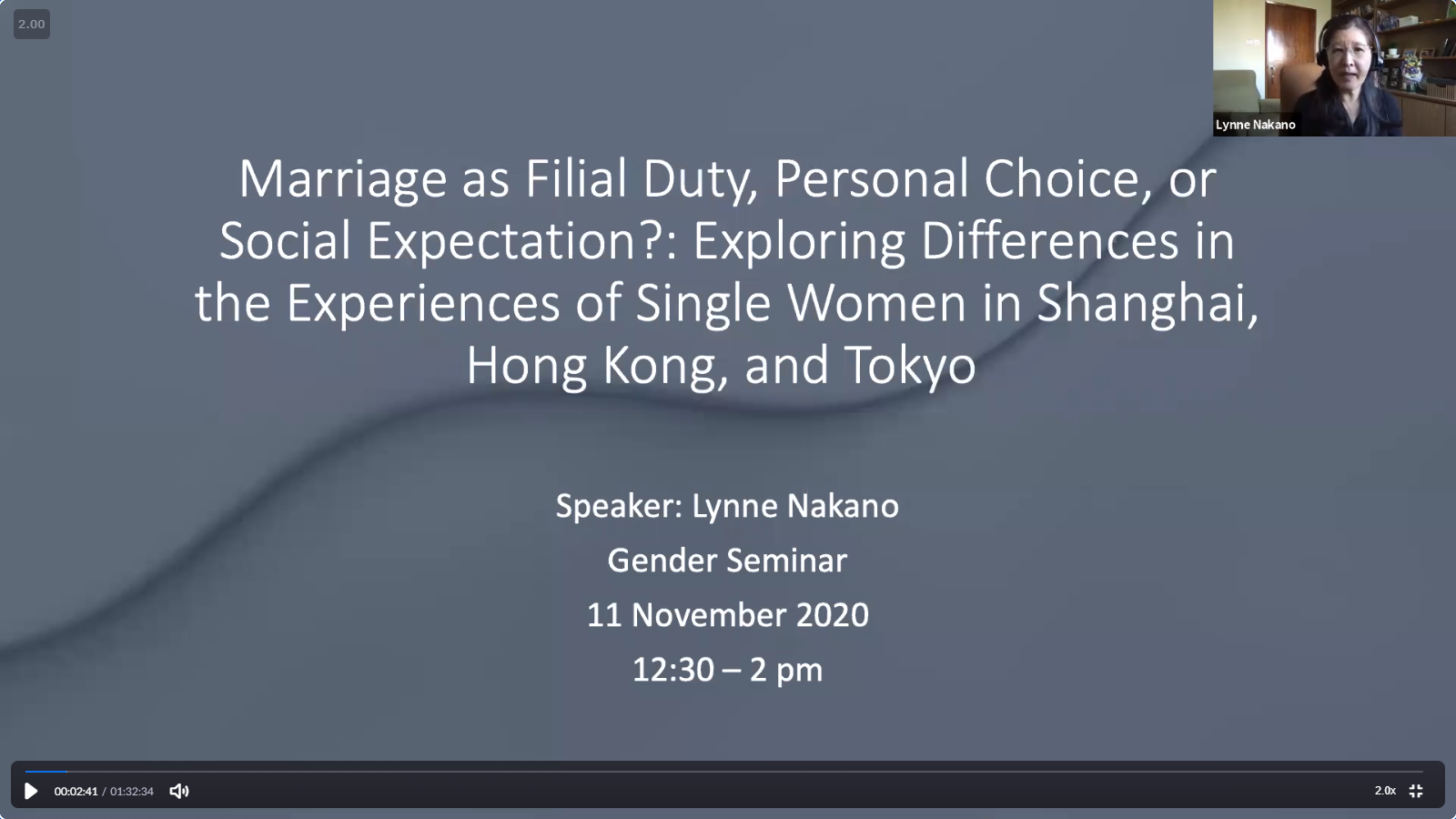 |
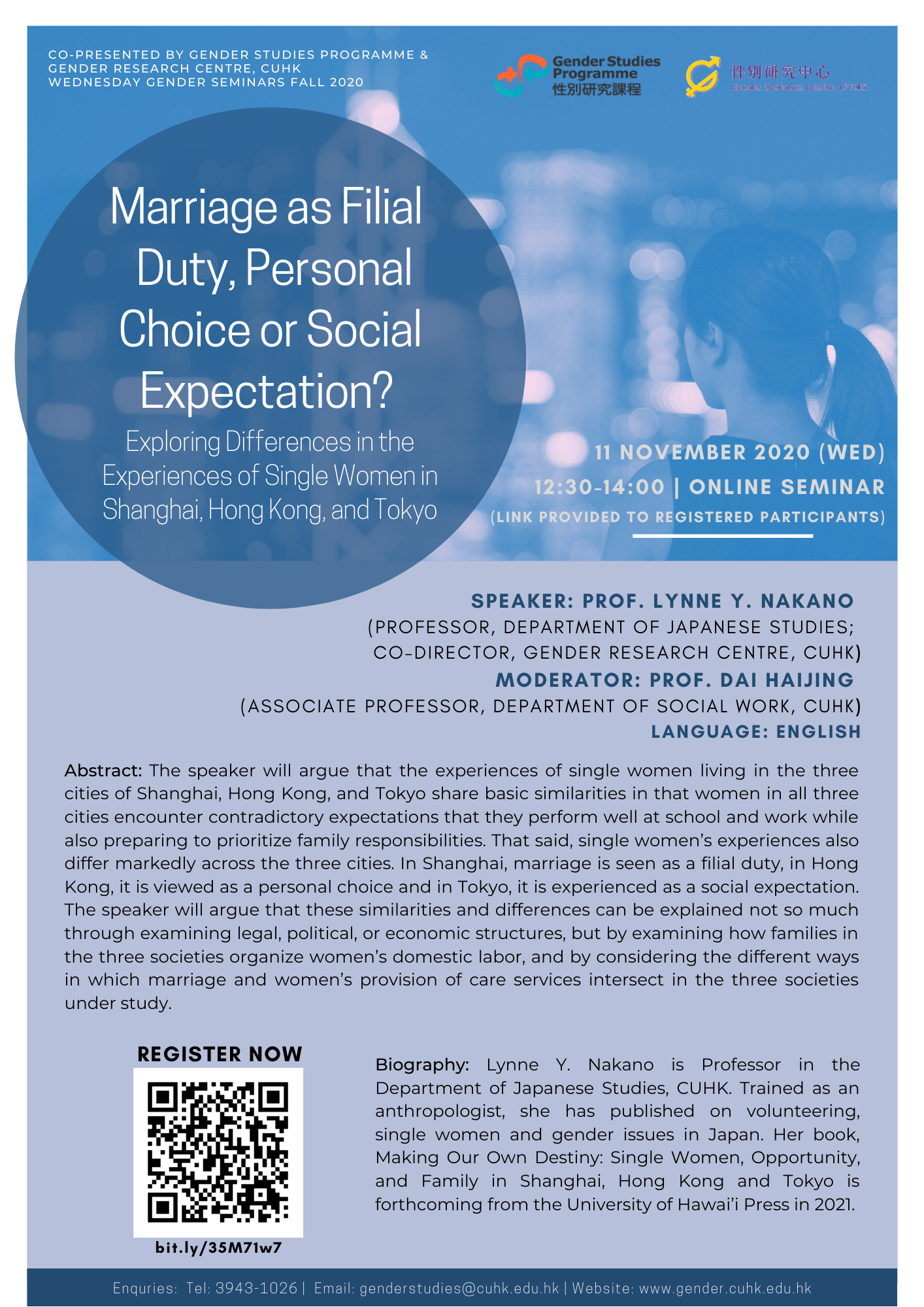 |
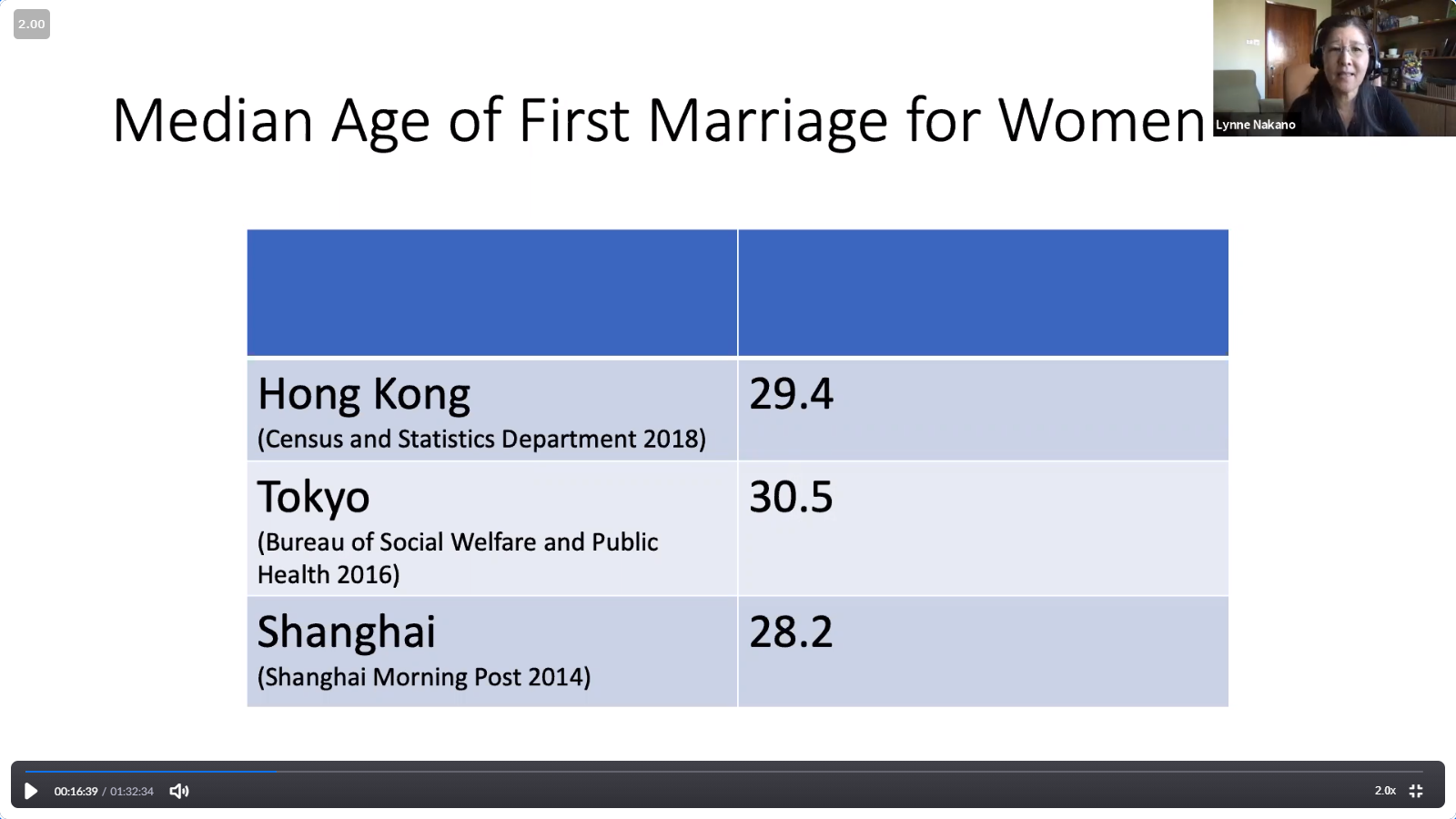 |
At the Wednesday Gender Seminar held on November 11, Professor Lynne Y. Nakano from the Department of Japanese Studies at the Chinese University of Hong Kong shared her research on single women in Shanghai, Hong Kong, and Tokyo. Professor Nakano used anthropological research methods to interview single women in three cities. She analyzed and integrated the similarities of these experiences: on the one hand, they were expected to perform well in school and social work. On the other hand, they were expected to put family first. However, single women in the three cities face different situations under different social backgrounds.
Professor Nakano first introduced the essential characteristics of being single in East Asian cities and the general increase in the age of marriage for women. There are still low rates of premarital cohabitation, dating, premarital sexual relationship, and extramarital birth in the three cities of Shanghai, Hong Kong, and Tokyo. Same-sex relationships are generally highly stigmatized. At the same time, with the expansion of job opportunities in the market, women tend to develop their careers. Marriage often makes women face discrimination and pressure in the workplace, so the fertility rate also decreases.
Professor Nakano then showed two social models of marriage, the Duty Model, and the Companionate Model. Her research found that Chinese society favours the duty model, Hong Kong society is a companionate model, and Japan is a hybrid model of the two. Therefore, getting married at the "right age" is a common choice for Shanghai women. Marriage is seen to be filial piety and the entry point for intergenerational care. Under the companion model in Hong Kong, marriage represents a personal choice, and the family environment allows them to remain single. Tokyo women usually choose to complete their marriage at the proper age expected by society, and they believe that marriage represents a social responsibility.
In East Asian societies, women still take the primary role of family caregivers. Single women also participate in family affairs and perform more family care responsibilities. Shanghai women will actively emphasize their contributions to the family and the nation to rationalise their singleness. Singleness in Hong Kong society does not cause moral condemnation, but women look after their families when they start to earn income. Tokyo women are proud of their economic independence, but they also see taking care of elderly parents as their moral obligation while childbearing is not necessary.
Professor Nakano also pointed out some existing problems for single women in the seminar. Firstly, since single women are expected to stay single temporarily, they often do not enjoy too much family resources support. Secondly, East Asian women staying single is not an expression of individualism, but a way to strengthen the entire family's economy and fulfil the social expectations of the family. They have undertaken most of the housework but have not received the financial support they deserve, which has exacerbated the uneven distribution of wealth. Finally, society still maintains a negative stereotype towards single women. They have to strengthen their contributions and invent new ways to fulfil their responsibilities for the family.
-Written by Lulu LI (PhD student), CHENG Siying (MA student) of Gender Studies Programme
28 Oct 2020 (Wed) Envisioning the City: Arts-based Research with Domestic Workers, Asylum-Seekers and Ethnic Minorities
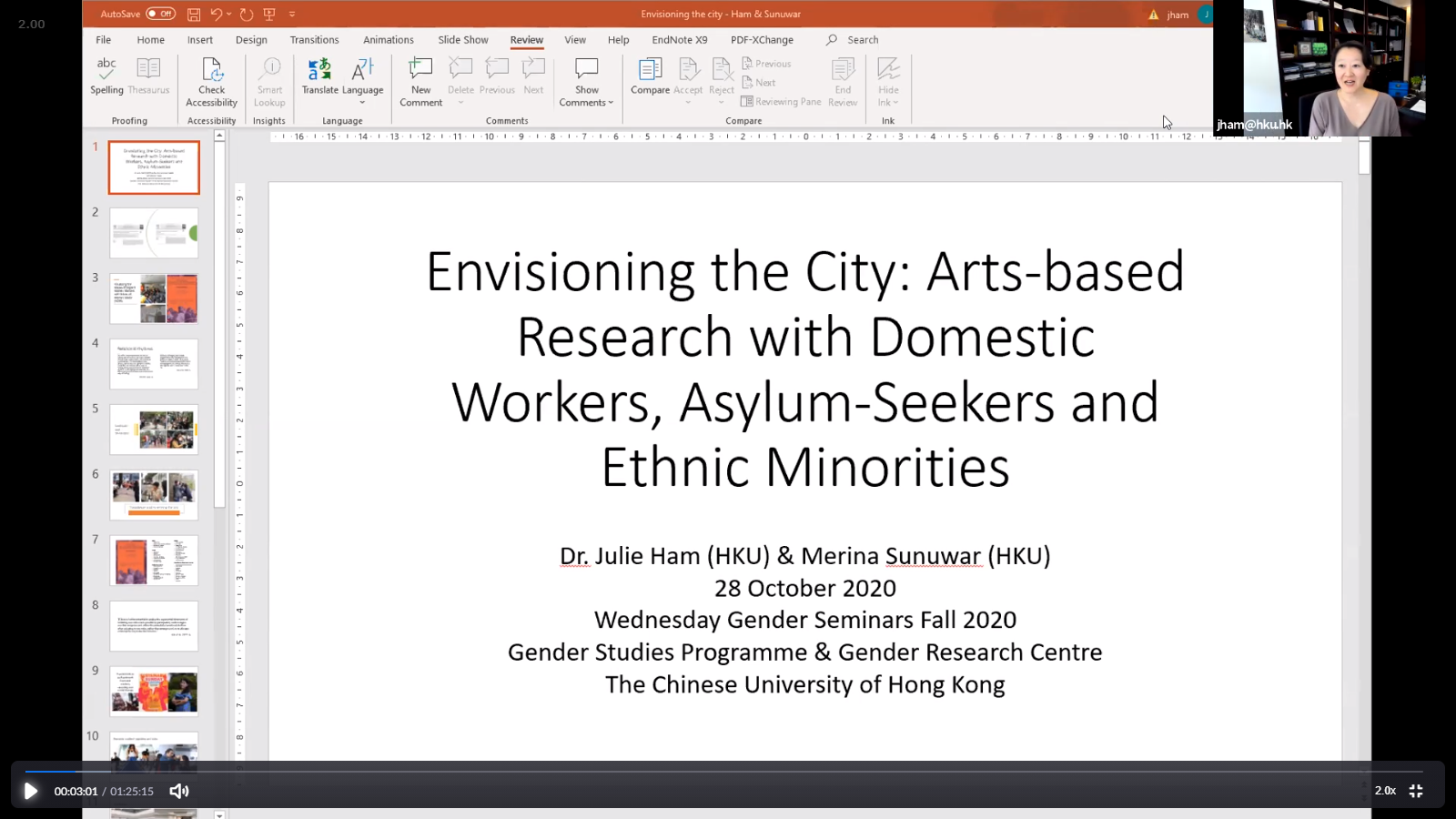 |
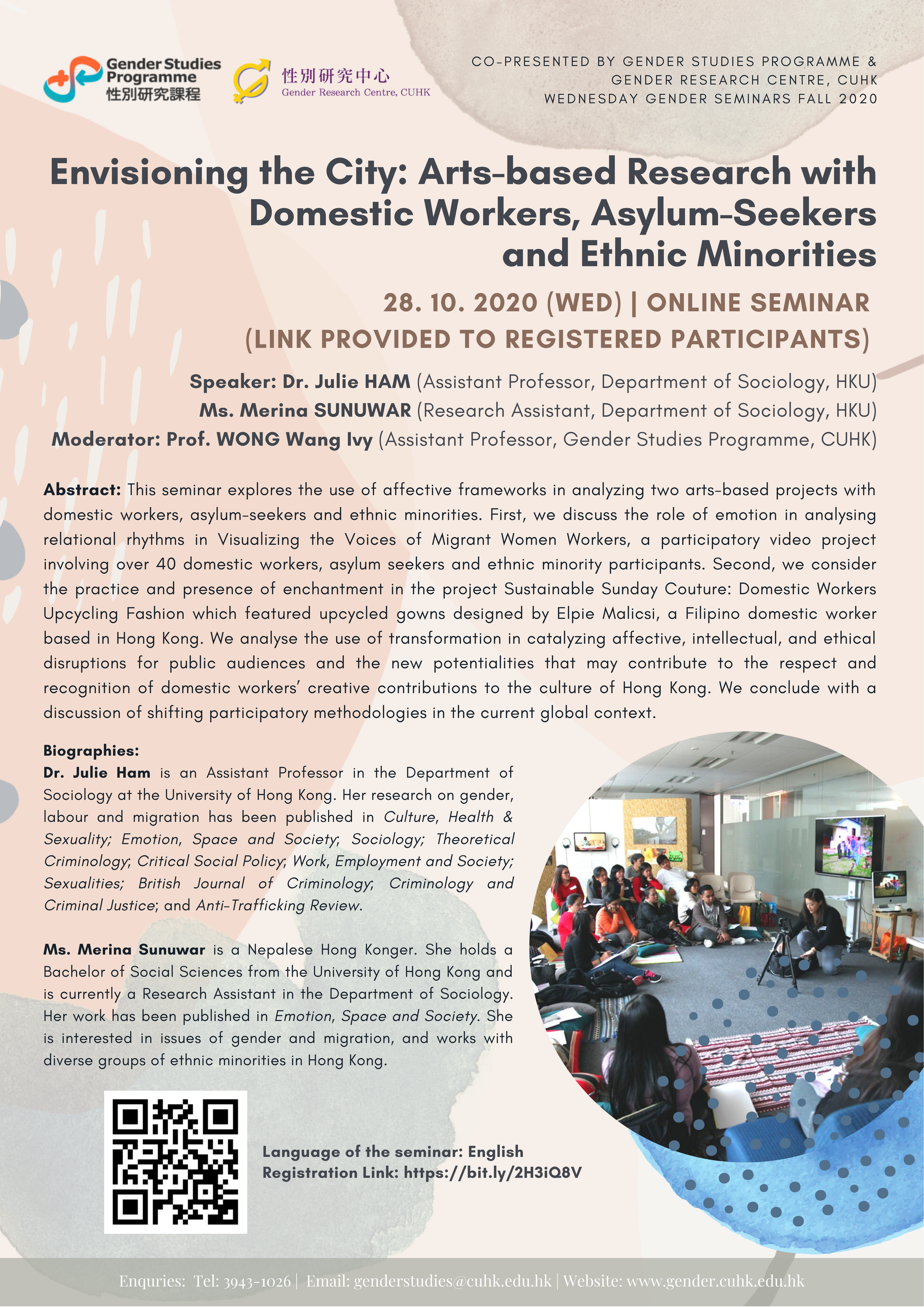 |
 |
In the Wednesday Seminar on Oct 28, Prof. Julie HAM, Assistant Professor of Department of Sociology, Hong Kong University, and Ms. Merina SUNUWAR, Research Assistant of Department of Sociology, Hong Kong University, presented via Zoom online lecture on “Envisioning the City: Arts-based Research with Domestic Workers, Asylum-Seekers and Ethnic Minorities.”
Through the analysis of participatory videos, two speakers worked on two art projects with domestic workers, asylum seekers and ethnic minorities: "Visualizing the Voices of Migrant Women Workers" and “Sustainable Sunday Couture: Domestic Workers Upcycling Fashion,” exploring the role of emotion in these two participatory projects.
Participatory video by communities rather than professional producers breaks down the power relations between participants and researchers and replaces them with “relational rhythms.” Prof. Julie HAM focused on two of the three dimensions in the project "Visualizing the Voices of Female Migrants": gratitude and trepidation, which were linked to the "chemistry between the participants and the organizers" and to the "re-writing the city", respectively. Ms. Merina SUNUWAR introduced domestic work, minorities in detail to us home participatory experiments detailly, analyzed effect of the role and the scene change, confirmed that the participatory test method can be further analysis of the urban residents new character dimensions (experiential dimensions), its purpose is not to reduce or alleviate useful tension, but to help urban residents to recognize and use this kind of relationship (emotional rhythms) when adapting to new roles. Prof. Julie HAM concludes that shifting power relations in participatory video can lead to new voices and stories coming to the fore, and these may continue to be transformed into knowledge being produced.
written by Wang Yming & Zhong Weiyan (students of MPhil & MA in Gender studies)
21 Oct 2020 (Wed) Premarital Abortion: Reproductive Politics in Post-Socialist China
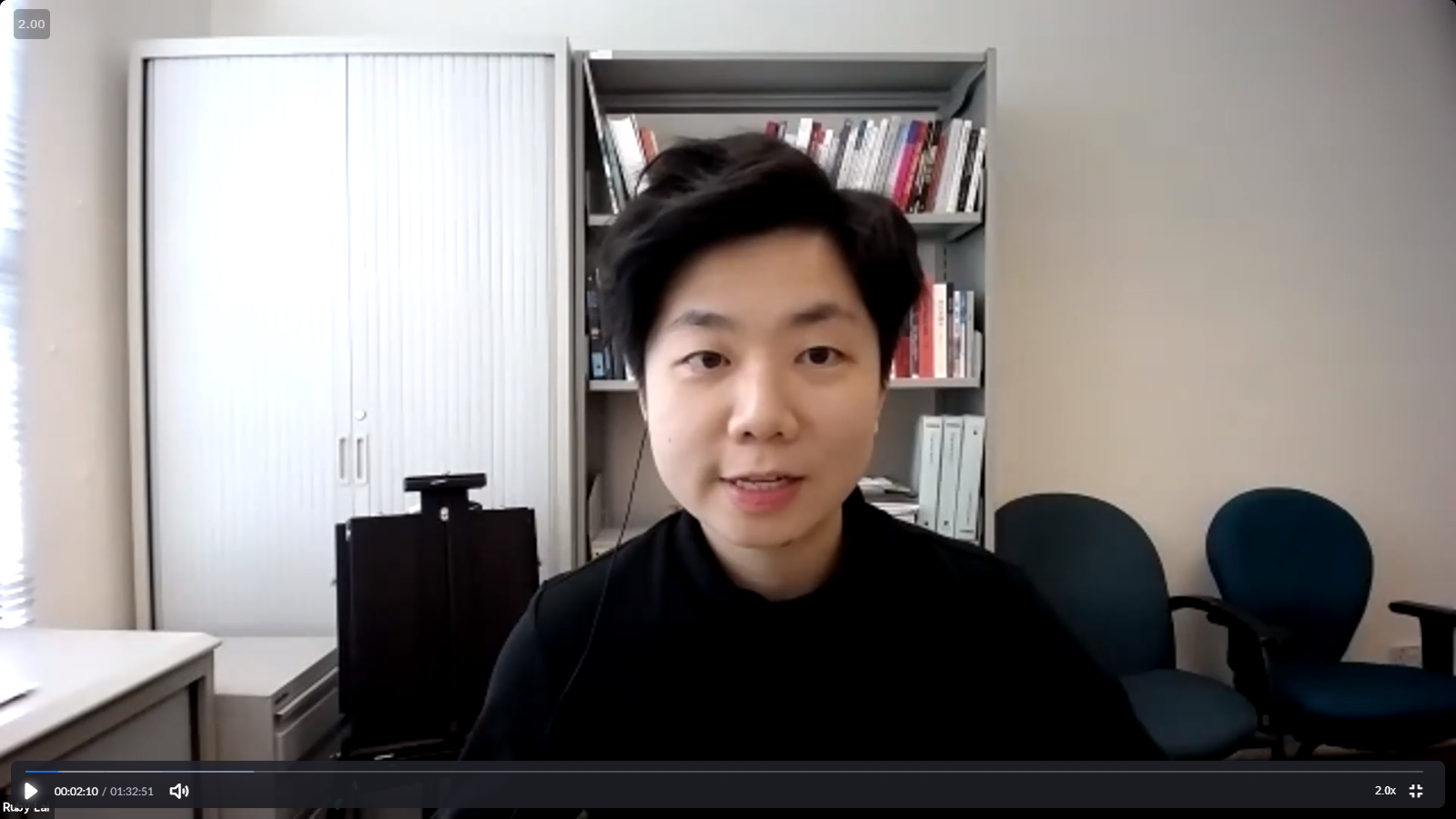 |
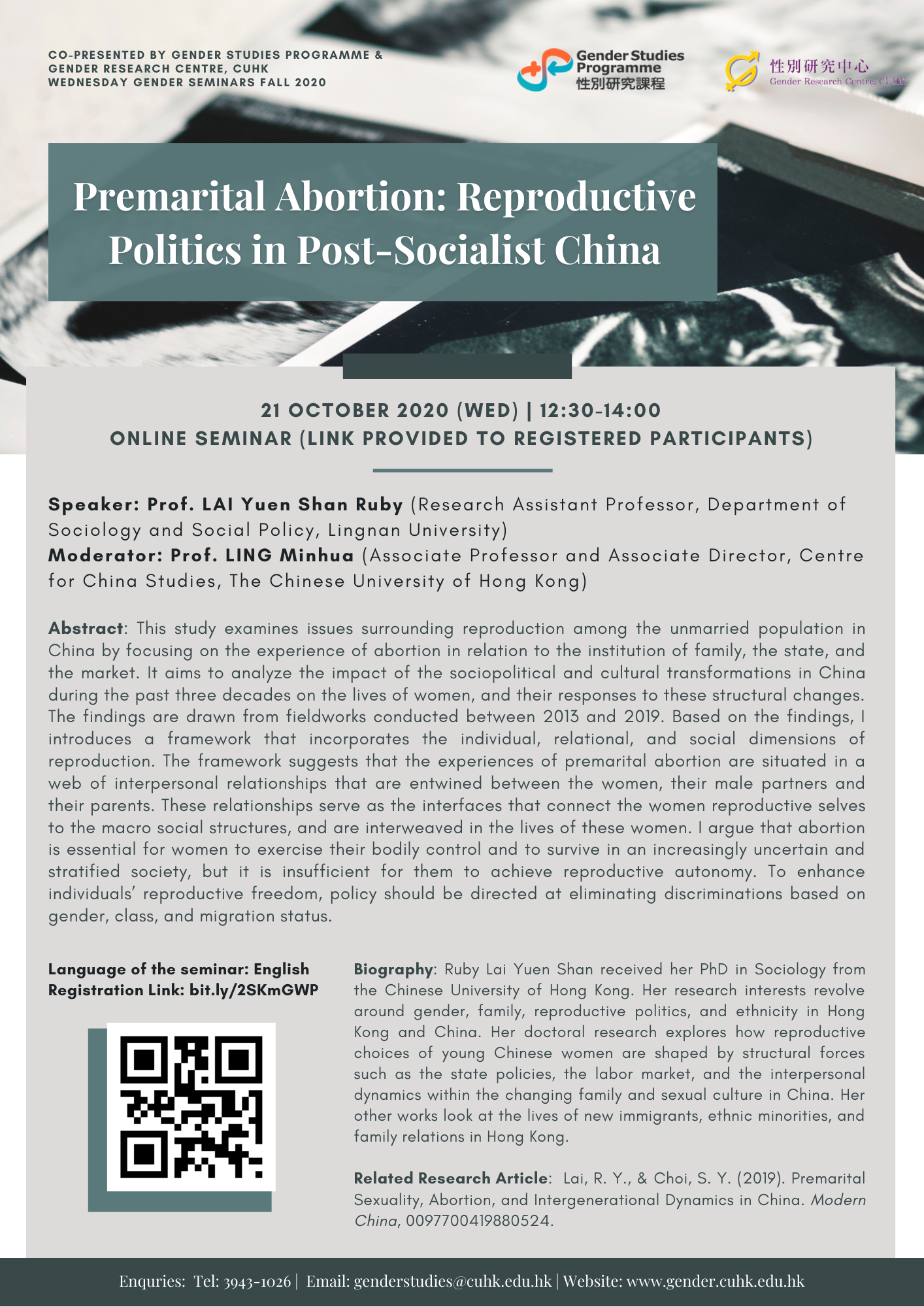 |
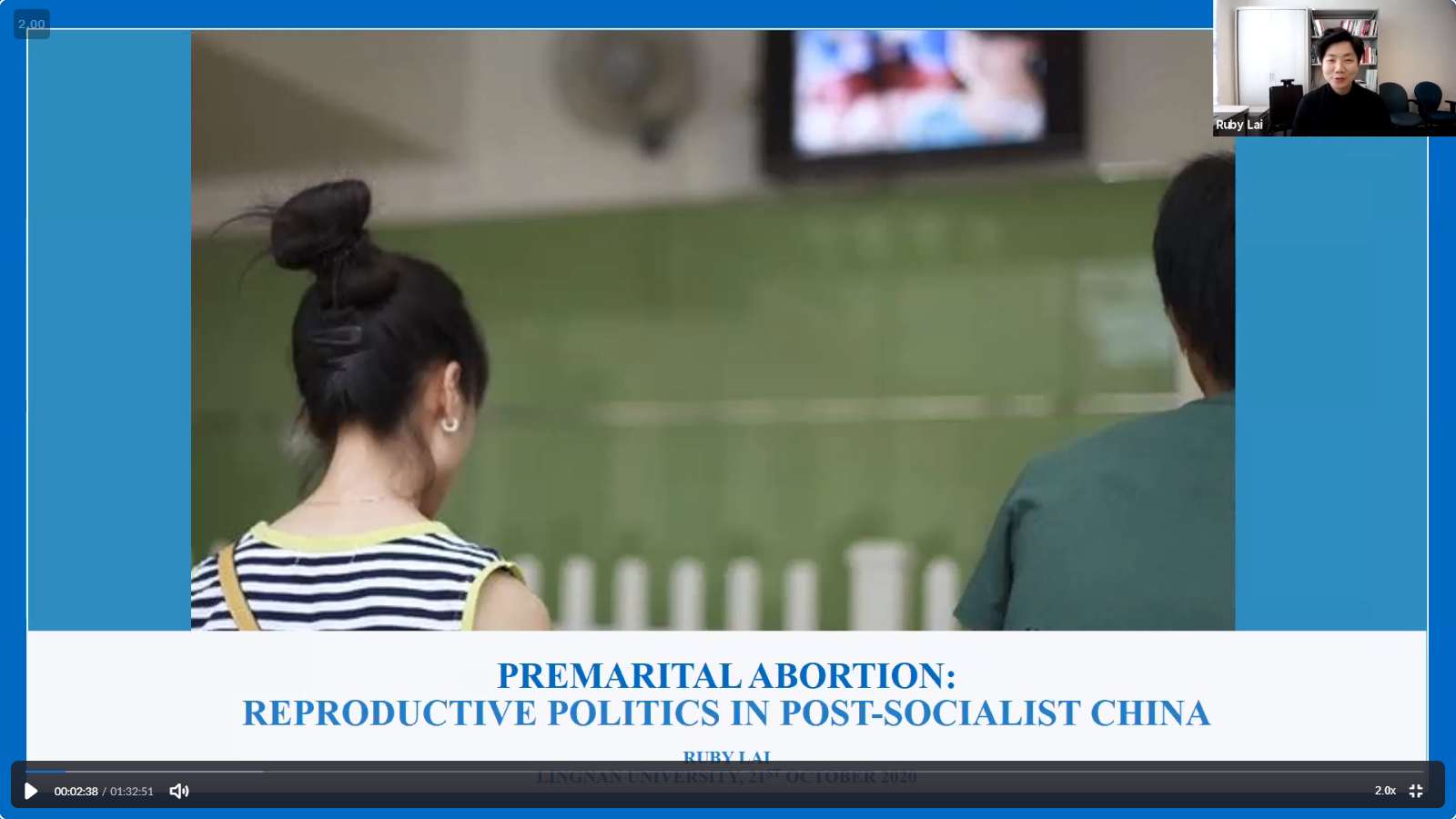 |
In the online gender seminar on 21st Oct., Dr. LAI Yuen Shan Ruby, a Research Assistant Professor from Department of Sociology and Social Policy of Lingnan University shared her research on adult premarital abortion in China conducted between 2013 and 2019. In her research, Dr. LAI Yuen Shan Ruby used ethnographic observation and in-depth interviews to unravel the under-documented non-marital reproductive experiences of Chinese women, mostly migrants from less developed areas to an industrialized costal city, and also content analysis to examine the abortion cultural discourses in China.
According to Dr. Lai, adult premarital abortion is a window to investigate the interpersonal relationships that are entwined with the unmarried women, their intimate partners and parents in post-socialist China. These relationships serve as interfaces that connect the women’s reproductive selves to the macro social structures, and are interweaved in the lives of these women.
Under the universal project of living a “complete life”, factors leading to abortion vary from struggling between the girl and woman dichotomy, rejecting a hasty marriage, fear of single motherhood, pursuing a “nested birth” to expecting a quality child. The political propaganda of "You Sheng You Yu", the society's double expectations on women to be both an ideal female citizen and a virtuous mother, plus the celebration of the middle-class version of a harmonious family, overlap in the process of abortion decision-making.
For many women in Dr. Lai’s studies, they consciously define the premarital pregnancy as “the intimate trial” to evaluate their partners’ attitude towards the relationship, the maturity, reliability, and capability of serving as a future husband and a father. Even though men’s approval was crucial for continuing the pregnancy, their preference was not influential if the women did not want to carry on the pregnancy. The interactions of intimate couples during the pregnancy also reveal transgression of gender boundaries, for example, some men shouldered on the responsibility of domestic jobs and were also fragile during the abortion decision-making process.
Intergenerational interaction presents more dynamics in those women’s abortion decision-making process. Dr. Lai identified four patterns of parent–adult daughter interactions during the decision-making process of premarital abortion: excluding parents, referencing perceived parental views, consulting parents, and conforming to parents’ interferences. Her findings also suggest that some women have prioritized the preferences of their parents over those of their intimate partners because they consider intergenerational ties more enduring and reliable than ties between intimate partners.
Dr. Lai pointed out that within the context of a mature dating culture in urban China and the prevalence of premarital sex, women have achieved considerable control over decisions about sex and intimacy. But the unrestrained access to abortion is more an unintended benefit of the state’s modernization than a protection of women’s rights. While abortion is essential for women to exercise their bodily control and to survive in an increasingly uncertain and stratified society, it is insufficient for them to achieve reproductive autonomy.
The online seminar is part of the Wednesday Gender Seminar series co-presented by Gender Studies Program and Gender Research Centre, the Chinese University of Hong Kong.
(Written by Wang Teng and MA student Yi Xueman of Gender Studies)
14 Oct 2020 (Wed) Email Order brides under China’s Global Rise
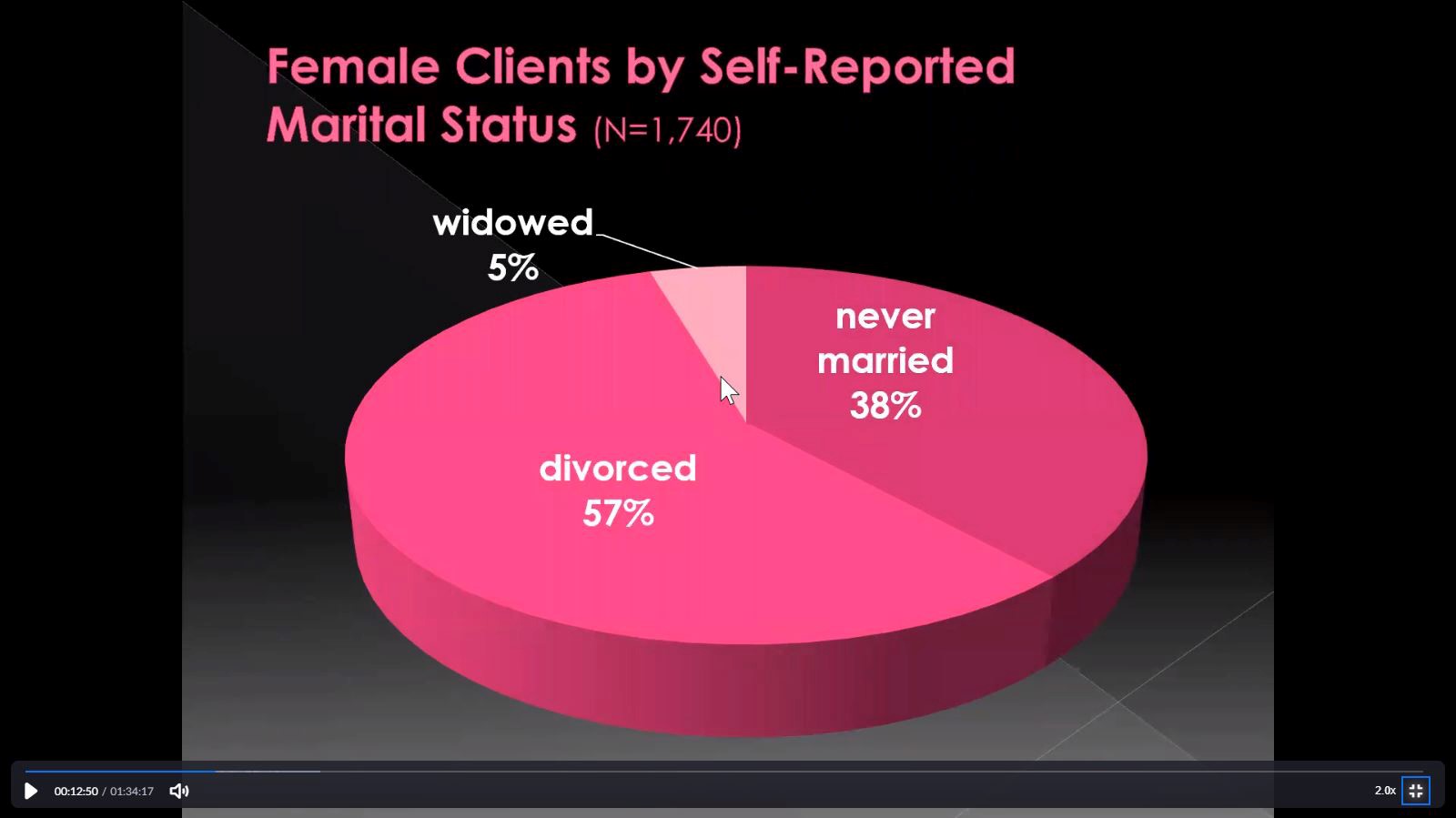 |
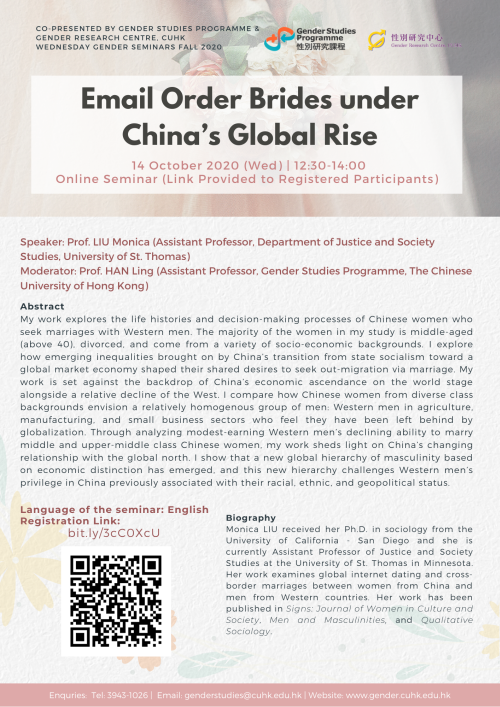 |
 |
In the Wednesday Seminar on Oct 14, Prof. LIU Monica, Assistant Professor of the Department of Justice and Society Studies, University of St. Thomas, presented via Zoom online lecture on “Email Order Brides under China’s Global Rise”, a research project she has been working on since 2008. In-depth interviews and participant observations were conducted with 61 Chinese women who seek marriage with Western men through online dating agencies. By comparing the life trajectories and decision-making process of three cases, Prof. LIU illustrated how women in different socio-economic status envision Western men differently and how the privilege of modest-earning Western men is being challenged under China’s economic rise.
According to Prof. LIU, these women are mostly divorced, who have shared desires for out-migration marriage but with different motives and outcomes. Some of them are “financially flexible” but lose confidence in Chinese men and therefore turn to the foreign marriage market for “true love”, but discovered that the available Western men do not meet their expectations in either physical appearance or masculine charisma. Some of them are “financially burdened” and wish to improve their life quality through migration marriage, but ended up with an unhappy marriage or with sacrificed power and agency to have their marriage worked out. However, the Western men who order Email brides are relatively homogenous as they are in agriculture, manufacturing, and small business, left behind by globalization, incompetent in the local marriage market, and therefore look for women who fit their traditional gender beliefs via online dating agencies, but becoming less attractive to upper-middle-class Chinese women. The shifting configuration of global capital with the rise of China and other Asian countries, as Prof. LIU concluded, has challenged the hegemonic power and privilege of Western masculinity, and it is important to adopt an intersectional approach in future analyses of migration marriage.
(Written by PhD student Shi Yun and MA student Lee Man Ting of Gender Studies)
23 Sept 2020 (Wed) ‘To Shine’ or ‘To Die’?: ‘Womenomics’ and Women’s Worth to the Economy in Neoliberal Japan
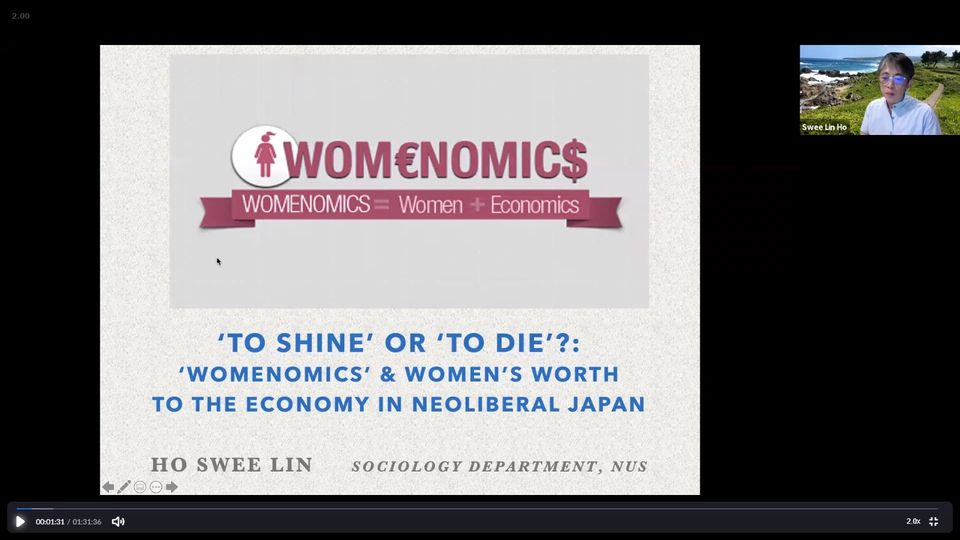 |
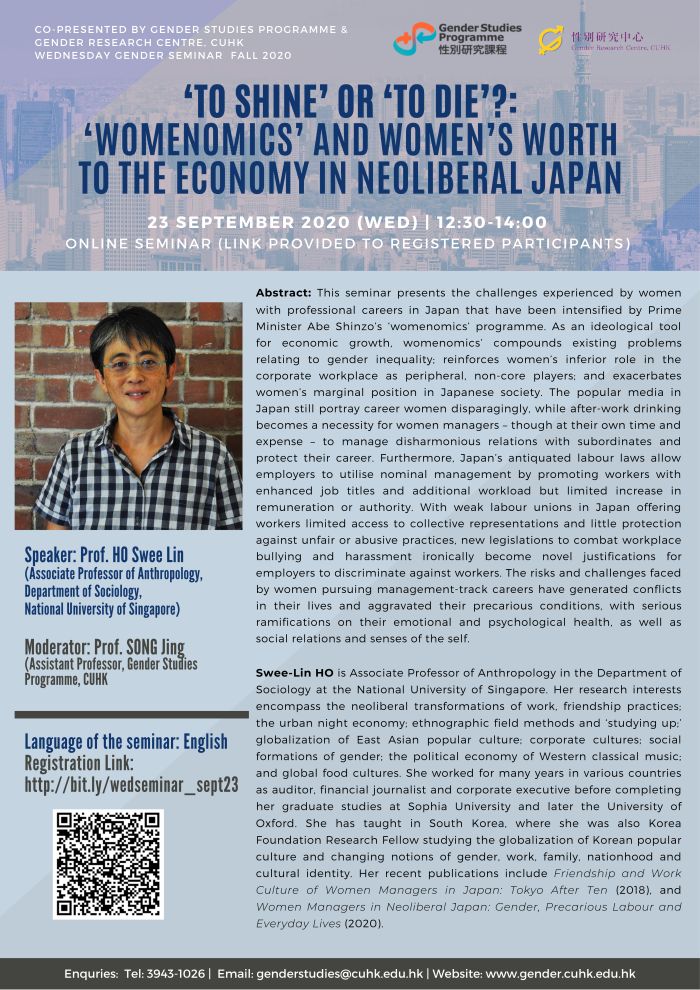 |
 |
On Sep 23’s Wednesday Seminar, Prof. HO Swee-Lin, an associate professor of anthropology at the Department of Sociology, National University of Singapore, shared her research on ‘To Shine’ or ‘To Die’?: ‘Womenomics’ and Women’s Worth to the Economy in Neoliberal Japan via Zoom online lecture.
Based on individual interviews and participants-observations with more than 180 women in supervisory and managerial positions in Japan, Prof. HO investigated whether and how does Prime Minister Abe Shinzo’s “womenomics” programme exacerbates women’s inferior and marginal status at the workplace as well as in the Japanese society?
According to Prof. HO, the Japanese government's economic plan which nominally aimed at creating a society where ‘All Women Shine' has actually turned women into economic tools. In the mass media, negative portrayals of professional women still persist. In the company of co-workers, female managers need to cost their own time and expenses in after-work drinking in order to secure their job position. However, job promotions often bring them more workloads and limited authority. In the office, women are the most vulnerable to sacrifice in corporate restructuring, they are more likely to take part-time jobs than their male counterparts. To the state, the new legislation on bulling and harassment in the workplace also contribute to the increased discrimination against female employees. In short, neoliberal economic changes in national policies and corporate workplaces have failed to truly liberate Japanese women with professional careers, but “enacting prevailing gender roles and reinforcing patriarchal structure”.
(written by PhD student ZHOU Siyuan and MA student GENG Siran, LIU Lianxian of Gender Studies)
Spring 2020
Co-presented by: Gender Studies Programme, Gender Research Centre & Sexualities Research Programme, The Chinese University of Hong Kong
4 Mar 2020 (Wed) 耽美真人CP與自我規訓式審查
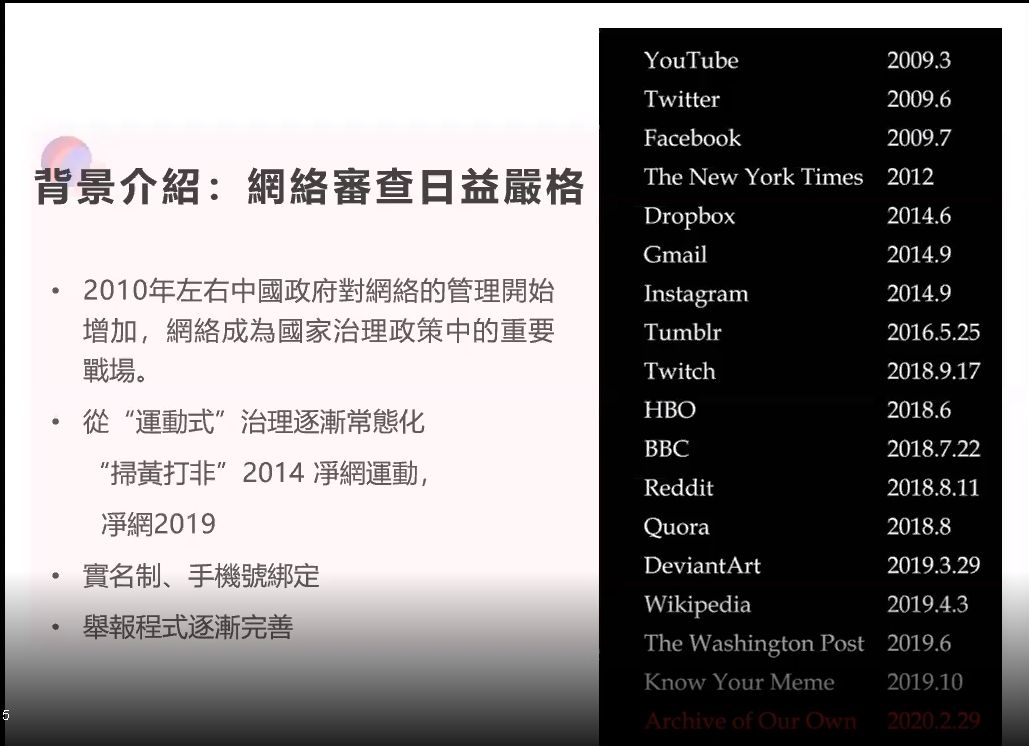 |
 |
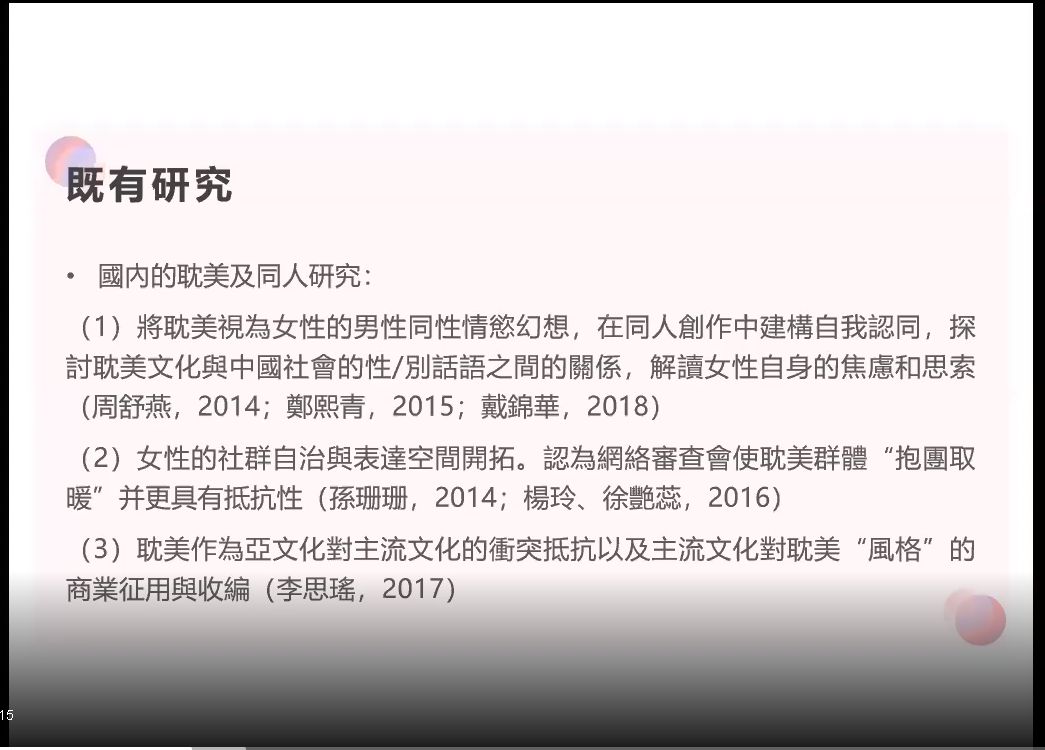 |
As an adaptation of online teaching in the current Coronavirus situation, Gender Studies Programme in The Chinese University of Hong Kong held an online Wednesday Gender Seminar on March 4, 2020. Wang Yiming, an M.Phil student from the programme, shared with the audience about her research on Tanbi CP and the online self-disciplinary censorship in China.
Tanbi is regarded as a subculture in which the male-to-male love stories are mostly written by and for female audiences in China. Wang Yiming took the Sina Weibo platform, a large social media platform in China, as her field site. She studied the Tanbi group that was suppressed and reshaped by online censorship on Weibo, and explored the interactions among online subculture, the impact of online censorship on it, and the new creation of this subculture. This research fills the gap in the complex relationship and representation between opposing network groups, and reflects on the impact of online censorship on the cultural ecology of Tanbi in Asia. 228 audiences registered and participated in the seminar, which reached the peak of Wednesday Gender Seminar participation.
26 Feb 2020 (Wed) Desire for Sale: Live-streaming and DIY Pornography among Chinese Gay Micro-celebrities
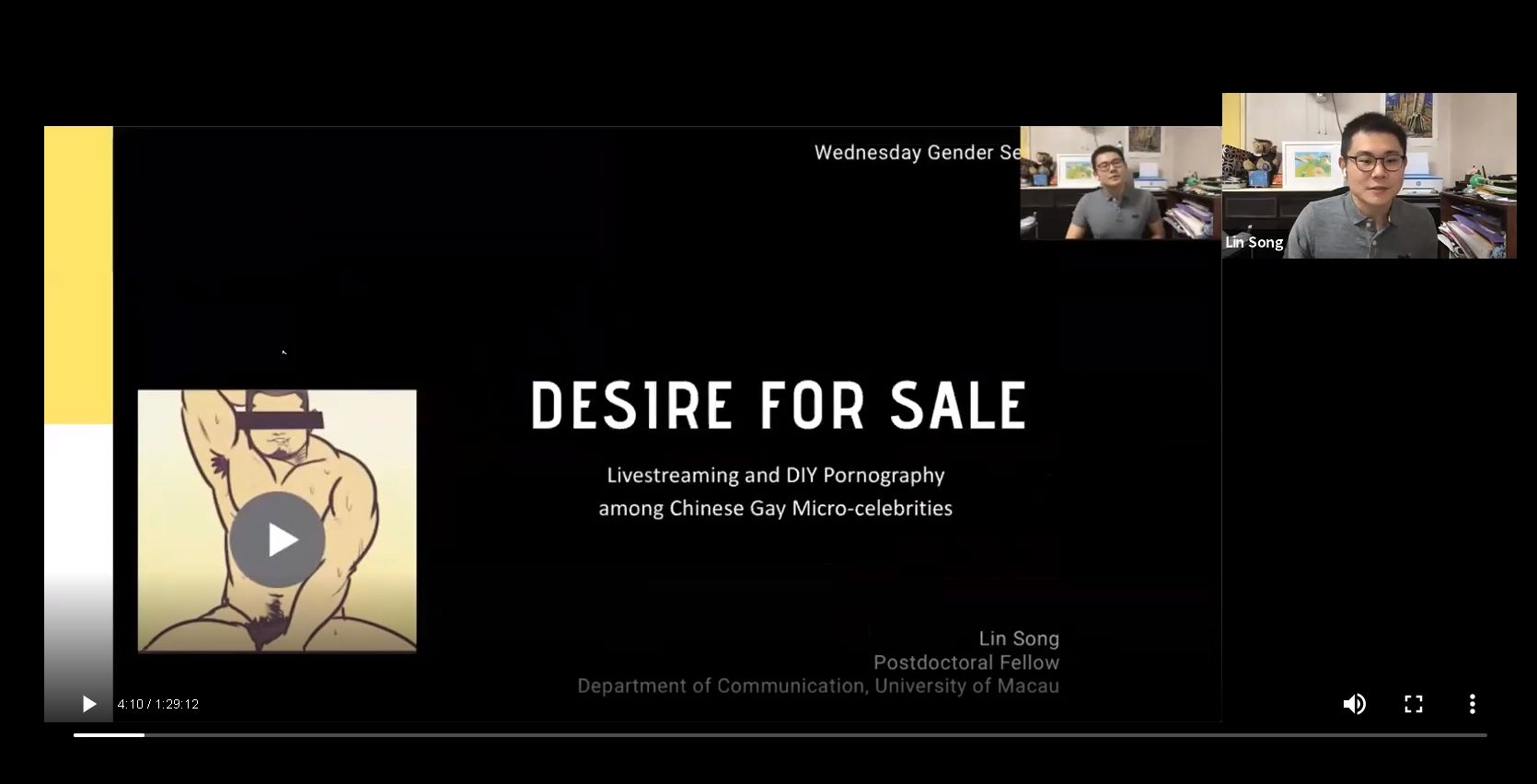 |
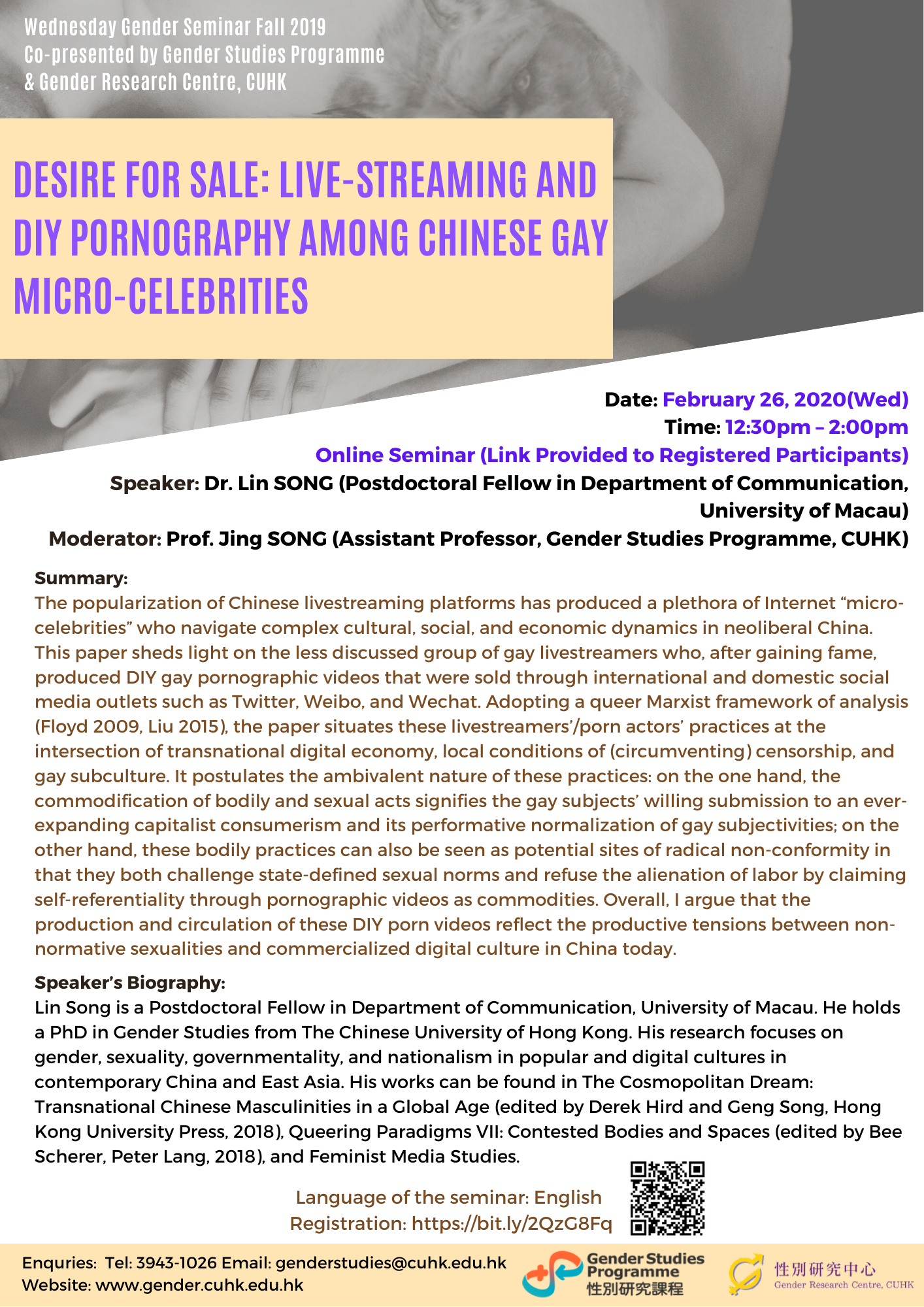 |
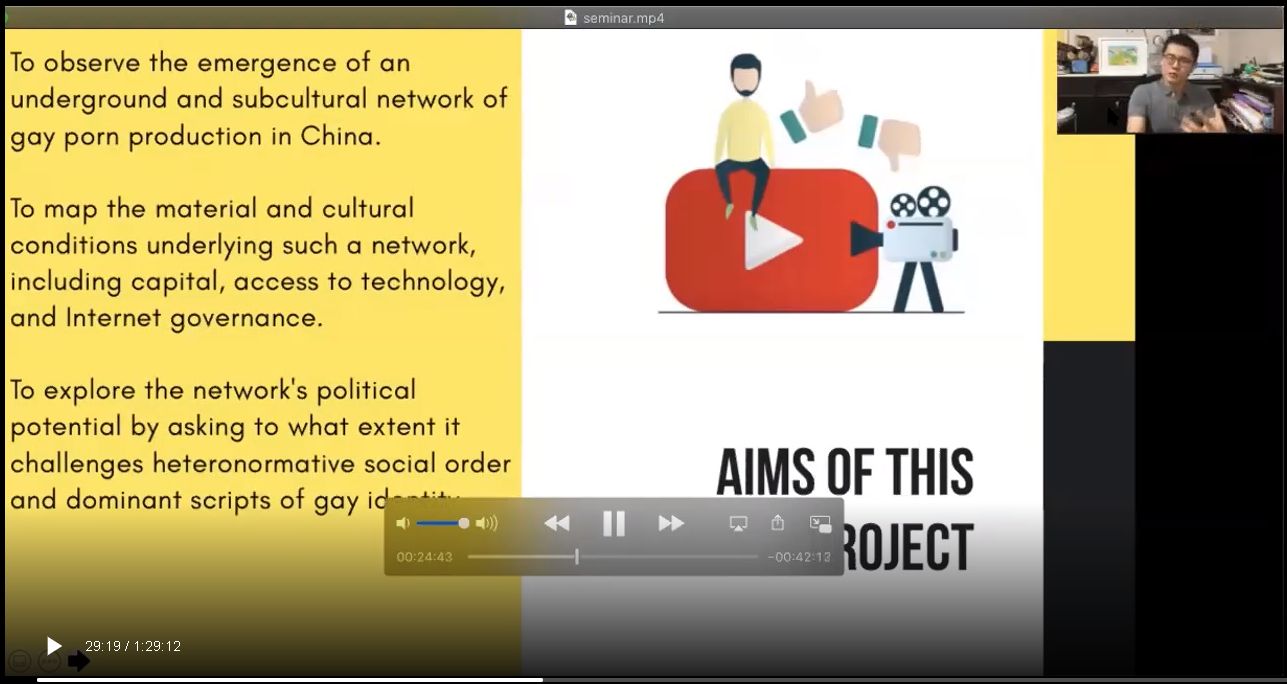 |
On Feb 26's Wednesday Seminar, Dr. SONG Lin, Postdoctoral Fellow from the Department of Communication, University of Macau, shared his research on live streaming and DIY pornography among Chinese gay micro-celebrities via ZOOM online lecture. Through a cultural and media studies approach, Dr. Song explores the development of the underground gay porn "industry" in China, the socio-political circumstances it is situated in, as well as its negotiation with China's Internet governance.
According to Dr. Song, the Chinese DIY gay porn has been largely facilitated by the development of social media, especially the popularization of live-streaming platforms. Also, the nebulous nation of Internet communication has enabled tactics to circumvent strengthened censorship. Applying a queer Marxist analytical framework, Dr. Song addresses Chinese DIY gay porn as an economy centered on desire. While it is a profit-oriented product that completely follows the capitalist logic, it is simultaneously produced at the margins of heteronormativity, state regulation, and corporate capitalism, with the potential to subvert the existing dominant order.
Fall 2019
Co-presented by: Gender Studies Programme, Gender Research Centre & Sexualities Research Programme, The Chinese University of Hong Kong
2 Oct 2019 (Wed) Refusing obliquely: On siren eun young jung and the three moments of performing in anomaly
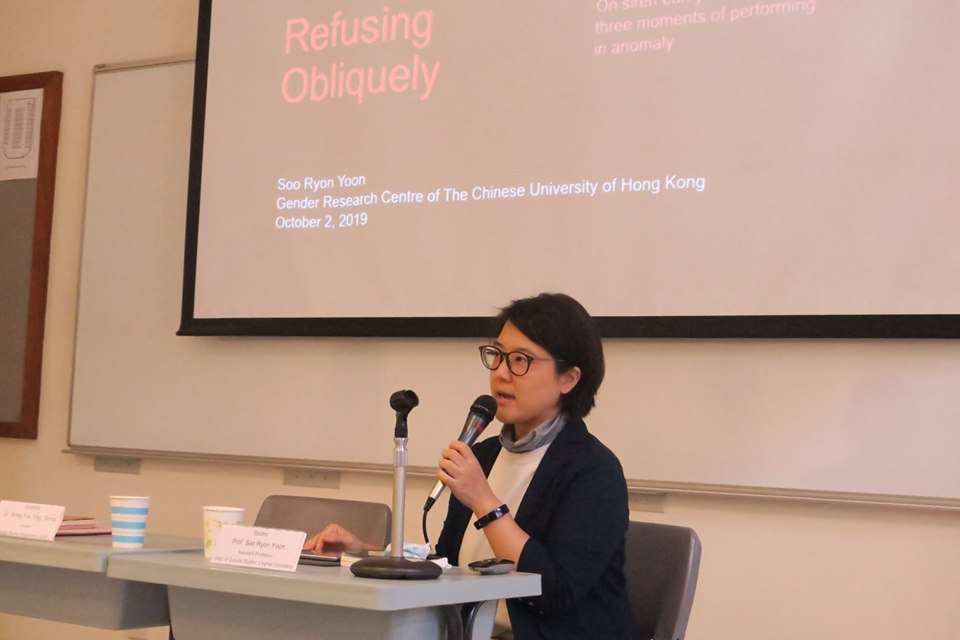 |
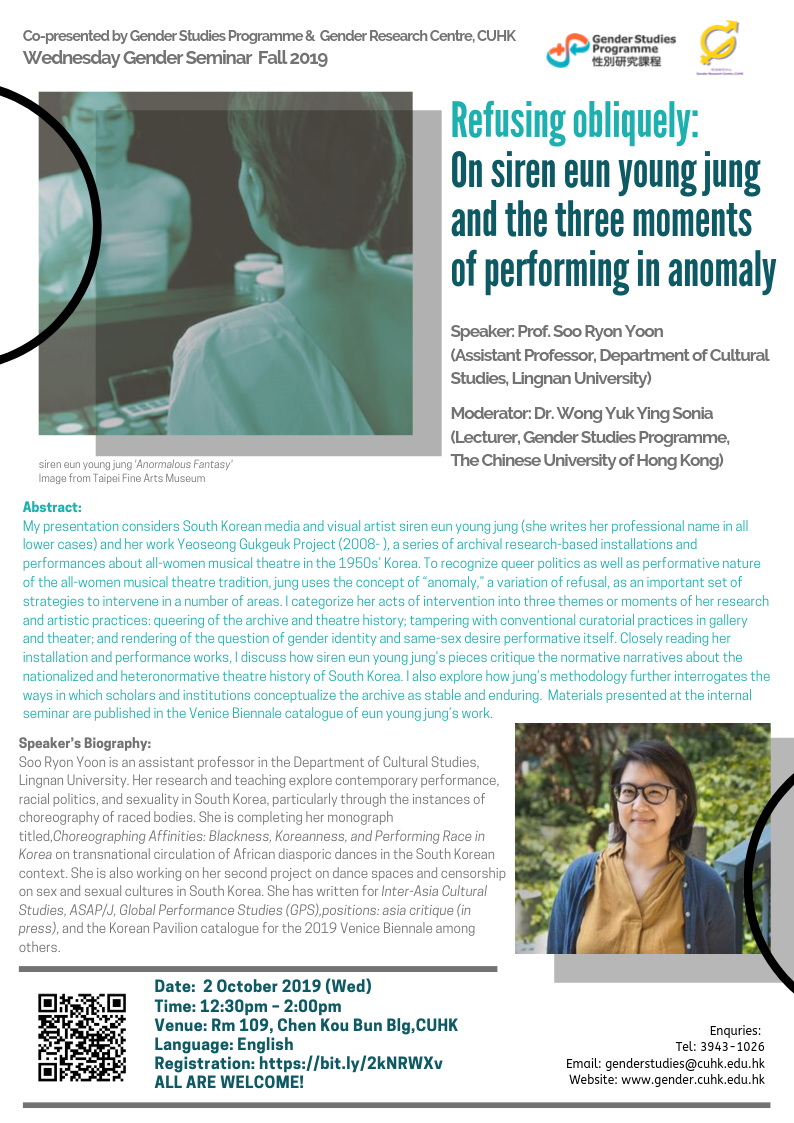 |
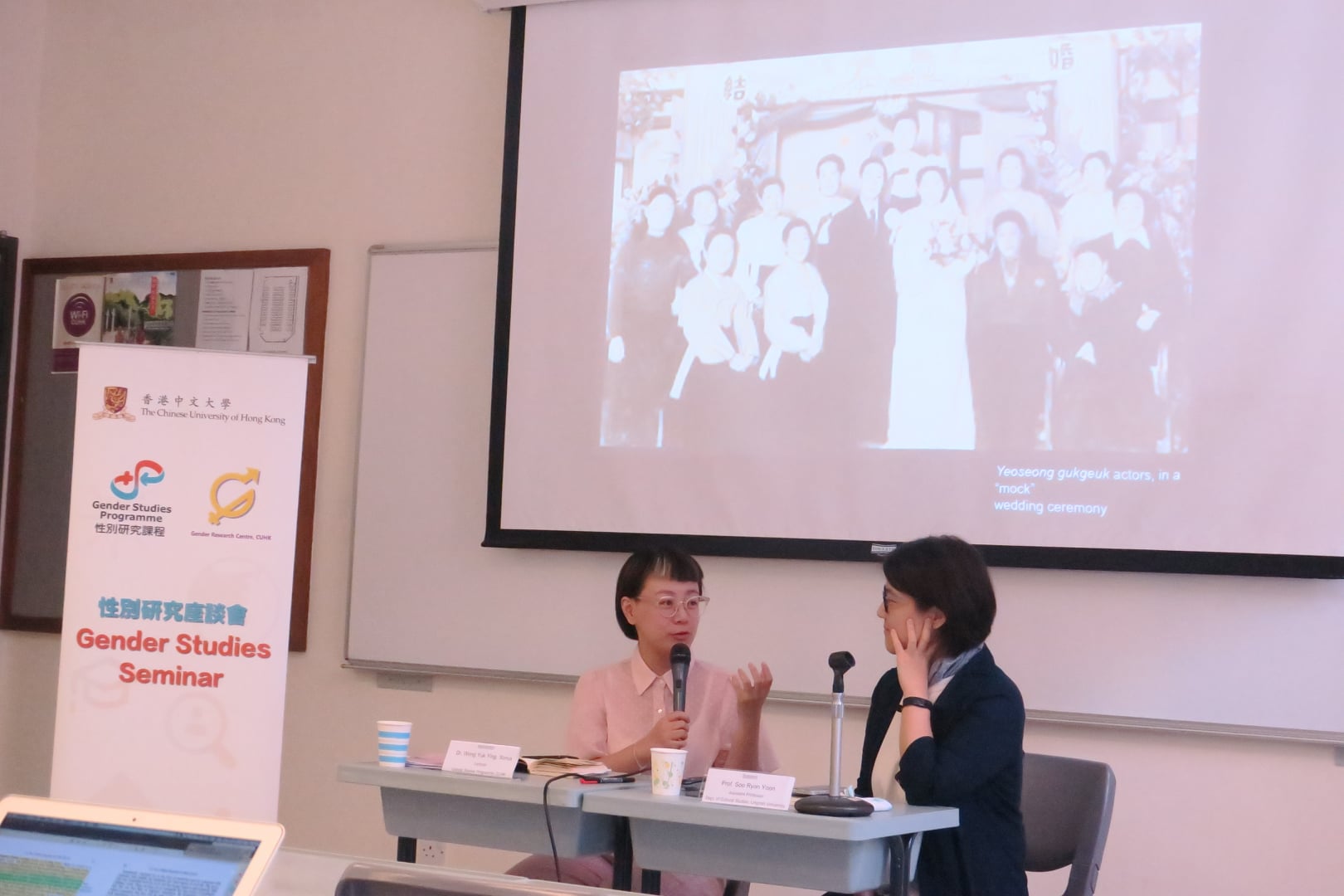 |
During the Wednesday Gender Seminar on Oct. 2, Prof. Soo Ryon Yoon, an assistant professor from the Department of Cultural Studies, Lingnan University, shared her research on South Korean media and visual artist siren eun young jung and her work Yeoseong Gukgeuk Project (2008-).
Yeoseong Gukgeuk (Women's National Theatre Performance), a form of theatre with all characters played by female actors, used to be the most popular art form in the 1950s' Korea but gradually declined partly due to its inherent tension with the heteronormative logic underlying the state's imagination of "true" national heritage.
Siren eun young jung, a Korean artist, has spent years to conduct a series of archival research-based installations and performances about Yeoseong Gukgeuk. Through close reading of jung's works and from the perspective of queer politics, Prof. Yoon analyzes the strategy in her Yeoseong Gukgeuk Project to play with and within the existing normative institutions of South Korea theatre rather than denying them. Highlighting three themes in jung's acts of intervention, i.e., the archival, the tradition, as well as gender and queer politics, Prof. Yoon explores how jung's project has interrogated the nationalized and heteronormative theatre history and opened up new possibilities to resurrect queer presence in theatre.
11 Sep 2019 (Wed) The performative effects of diagnosis: thinking gender, sexuality, and intimacy through diagnostic logics and politics
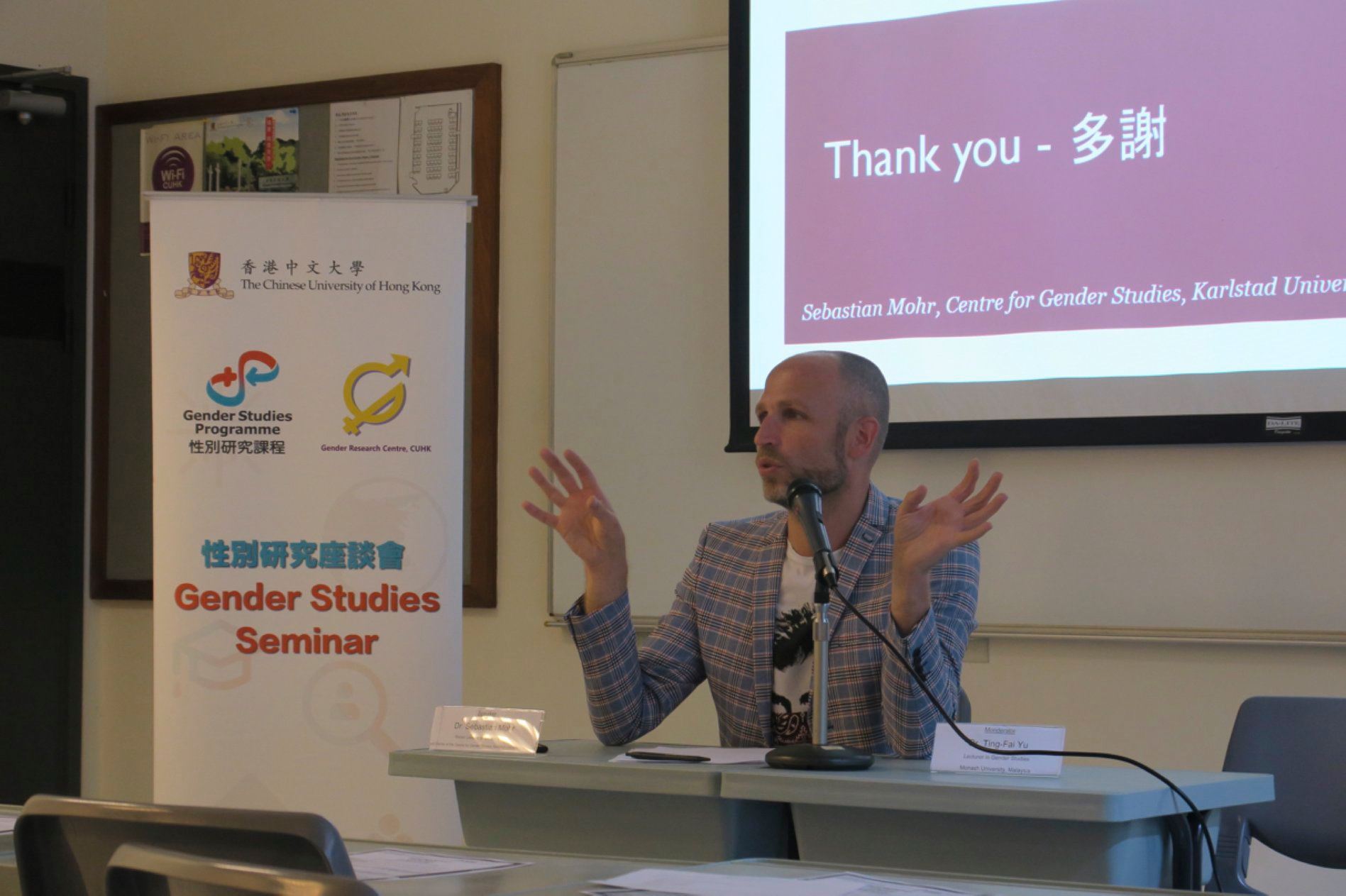 |
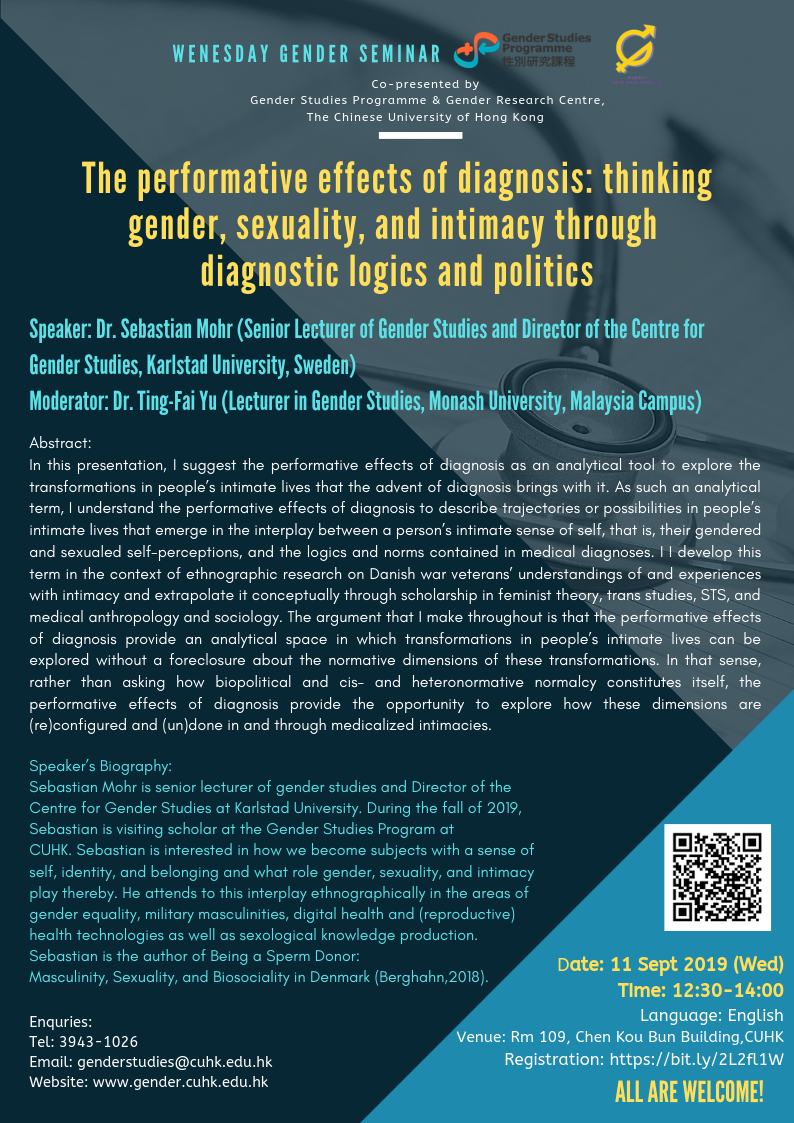 |
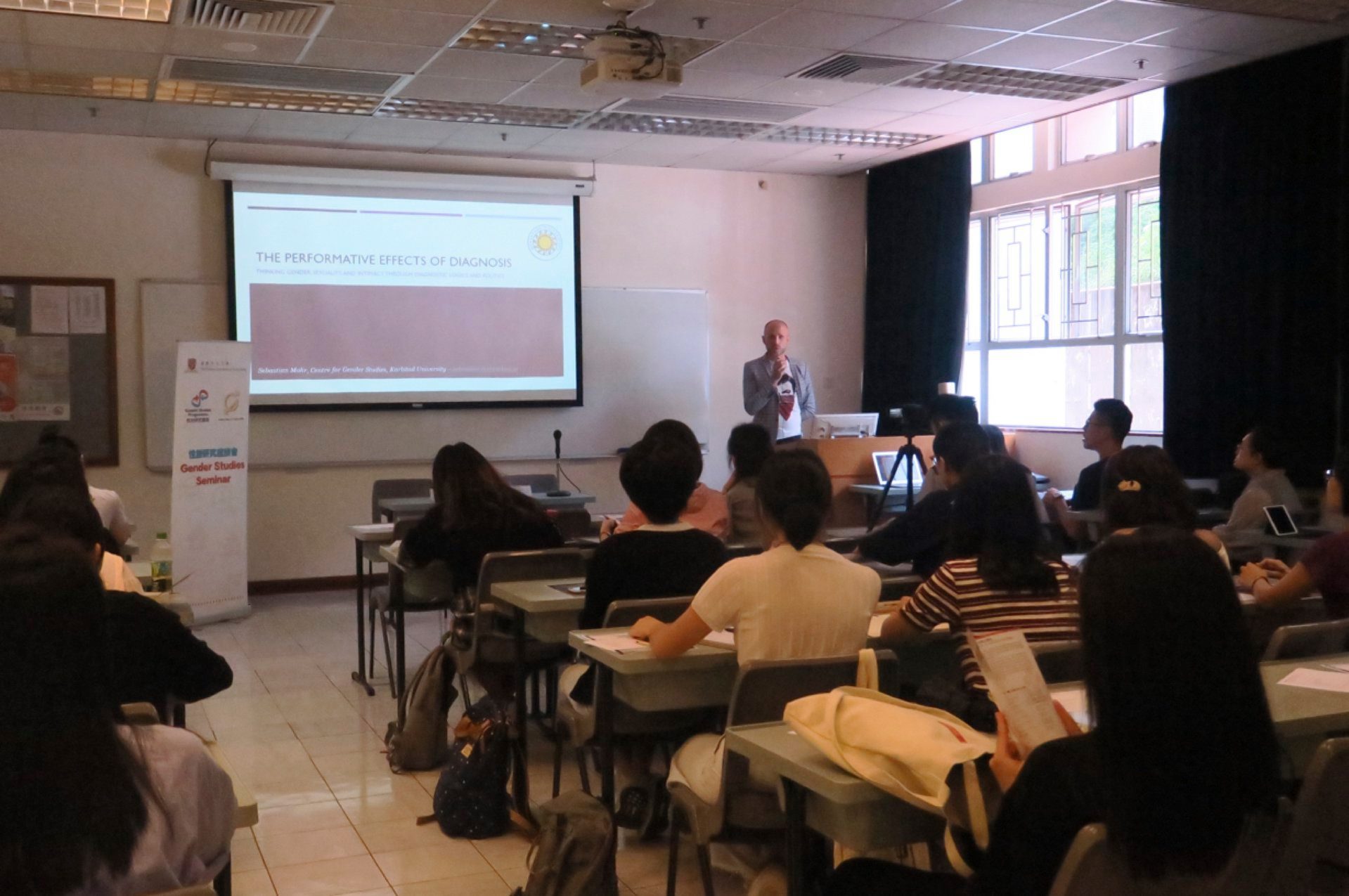 |
On 11 Sep’s Wednesday Seminar, Dr. Sebastian Mohr, Senior Lecturer of Gender Studies and Director of the Centre for Gender Studies at Karlstad University, Sweden, shared his research on the performative effects of medical diagnosis. Dr. Mohr is also a visiting scholar at the Gender Studies Program at CUHK during the fall of 2019.
Based on the ethnographic research on Danish war veterans’ understandings of and experiences with intimacy, Dr. Mohr discussed how medical diagnosis transform people’s perception of their intimate self as well as how the medicalized intimacies provide potentials to rework biopolitical and cis- and heteronormative normalcy.
*For more information concerning Wednesday Gender Seminars, please click here.
TANG, Lin
Spring 2021
Co-presented by: Gender Studies Programme, Gender Research Centre & Sexualities Research Programme, The Chinese University of Hong Kong
17 Mar 2021 (Wed) Family Matters: Gender and Motivations in Women’s Online Entrepreneurship
 |
 |
 |
In the Wednesday Seminar of March 17, 2021, Ms. TANG Lin, a Ph.D. candidate in Gender Studies Programme and the Department of Sociology at the Chinese University of Hong Kong, shared her ongoing Ph.D. research on how gendered experiences in relation to the family institution construct women’s motivations in online entrepreneurship in China.
The fast development of the Internet in the past decade has witnessed Chinese women’s greater participation in E-commerce compared to men. More than 50% of the business owners on Taobao are female (AliResearch 2015), and more than 70 % of the individual WeChat sellers are female (Xinmin Evening News 2017). In regard to entrepreneurial motivations, previous studies suggest while men are more economic oriented, women are more achievement-oriented and family-oriented. Women are more likely to venture into family-related businesses. Moreover, family-work dynamics are always important factors impacting women’s entrepreneurship. Family structure and composition also have a profound effect on the acquisition and mobilization of entrepreneurial resources for women entrepreneurs.
By in-depth interview and online ethnography, Ms. Tang Lin examined in her research women’s entrepreneurial experiences in relation to both their natal family and marital family The research subjects are mostly from a more privileged group: those well-educated young women who are the only child in their natal family and live in the more affluent eastern and southern coastal areas. A life-course perspective honoring four significant life events, namely university graduation, formal employment, cohabitation or marriage, and childbirth was adopted to offer a more dynamics-sensitive and multi-dimensional analysis on the comparatively high percentage of women’s participation in online entrepreneurship.
By using “pull” and “push” to structure her analysis, Ms. Tang Lin pointed out two pairs of effects to pull those privileged young women into online entrepreneurship or push them out from it, during the transition of their status. As urban singleton daughters, they were initially pulled into online entrepreneurship when they were graduating from their postgraduate programs. Becoming a dài-goù, namely doing surrogate shopping for others, was regarded as a spontaneous move to make up for their parents’ investments in their overseas tertiary education. However, after they graduated and came back to their hometown, the social expectation of stable and ideal jobs — such as public servants, teachers, administrative staff — for women started to push them out from online entrepreneurship. As they and their parents perceived, online entrepreneurship could only be a temporal and transitional option.
If the first pair of pull-push effects happened in their natal families, the second pair of effects emerged in their marital family or marital family-to-be. When they started cohabitating with their marital partners, they could be pulled into online entrepreneurship to make extra money, especially when their partners were financially insecure. However, the motivation of online entrepreneurship had nothing to do with women’s empowerment. Although some of their marital partners would do pep talks or offer physical supports to help them run their online business, the aim was pretty much materialistic. Once they got pregnant and had their own children, childcare obligations would push them out from online entrepreneurship. As Ms. Tang Lin observed, their motivation for online entrepreneurship decreased dramatically in this life event. For those who still insisted on, they had to juggle between paid work in the household and their online economic activities.
Written by:
Peng Yiyi & Wu Yuehan, PhD candidates of Gender Studies, CUHK
Marco Teng Wang, student of PhD in Linguistics, Hong Kong Baptist University



